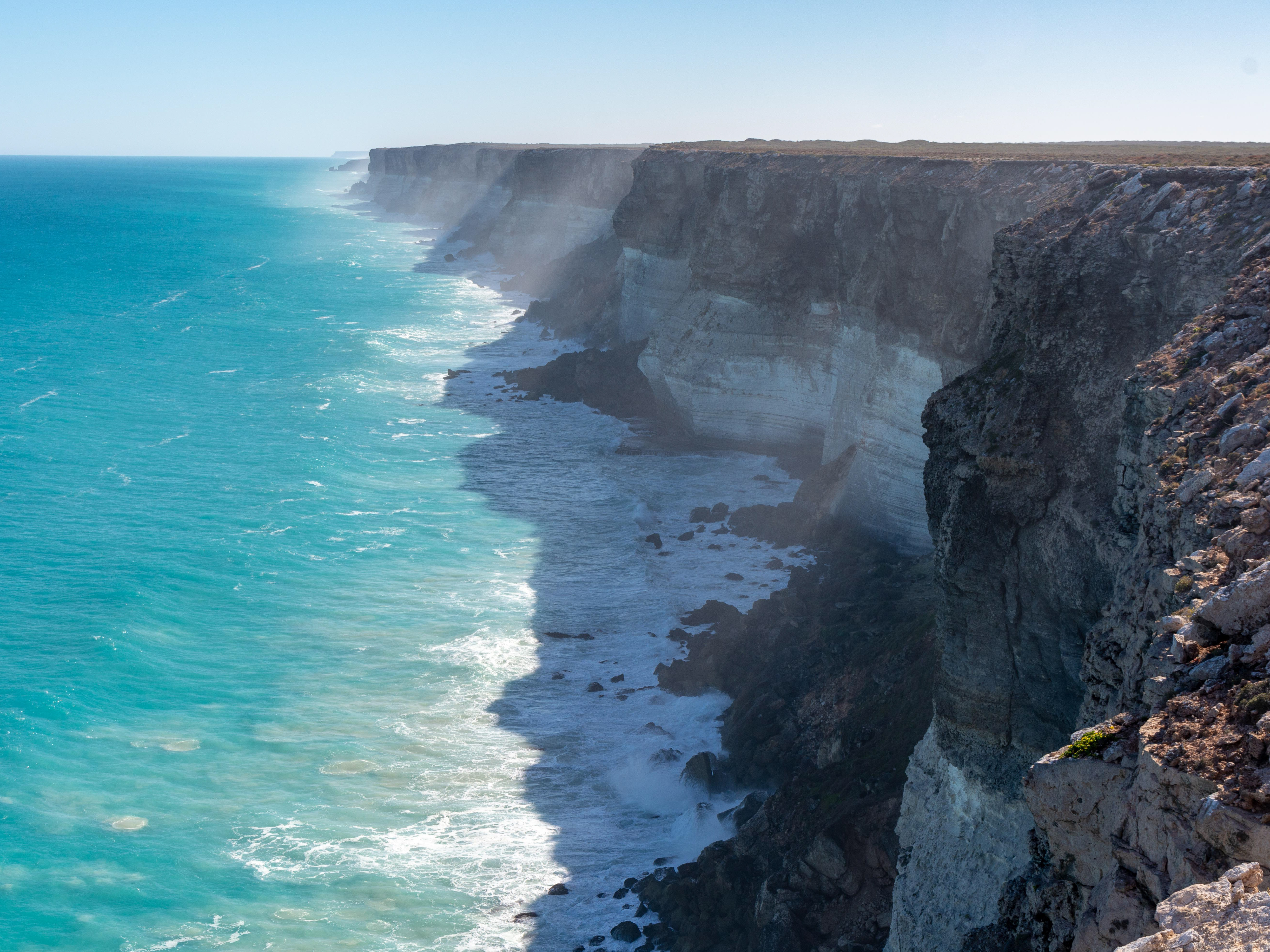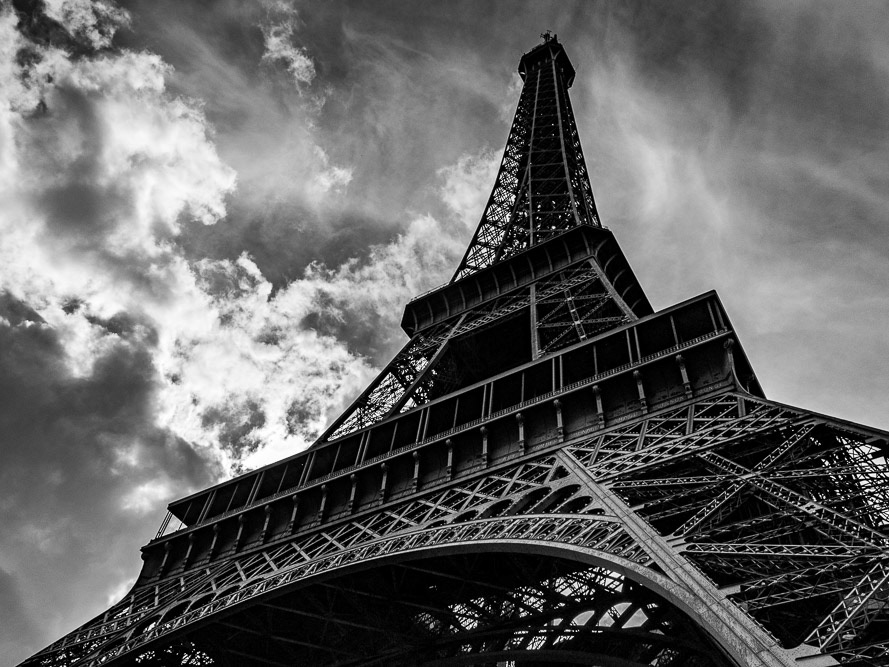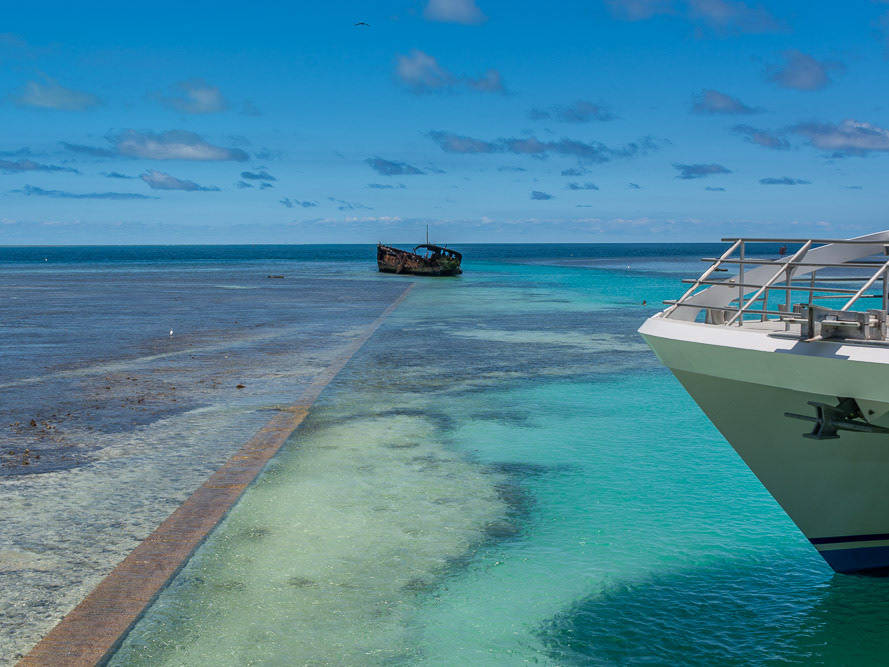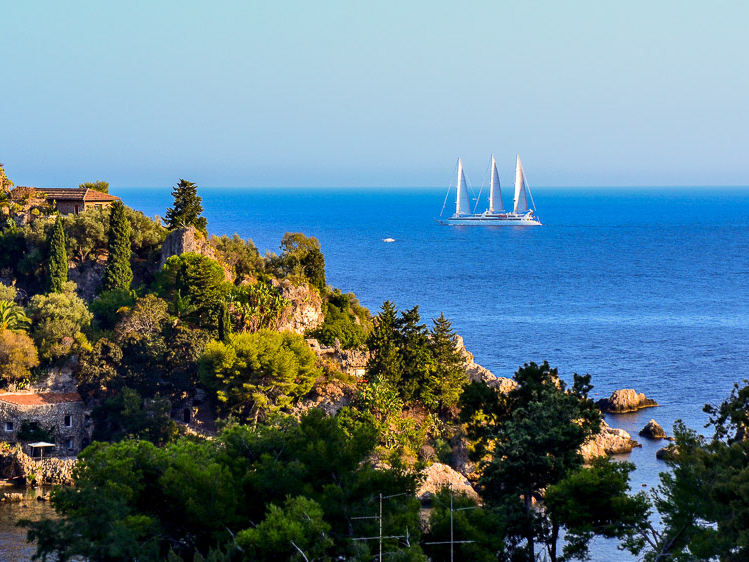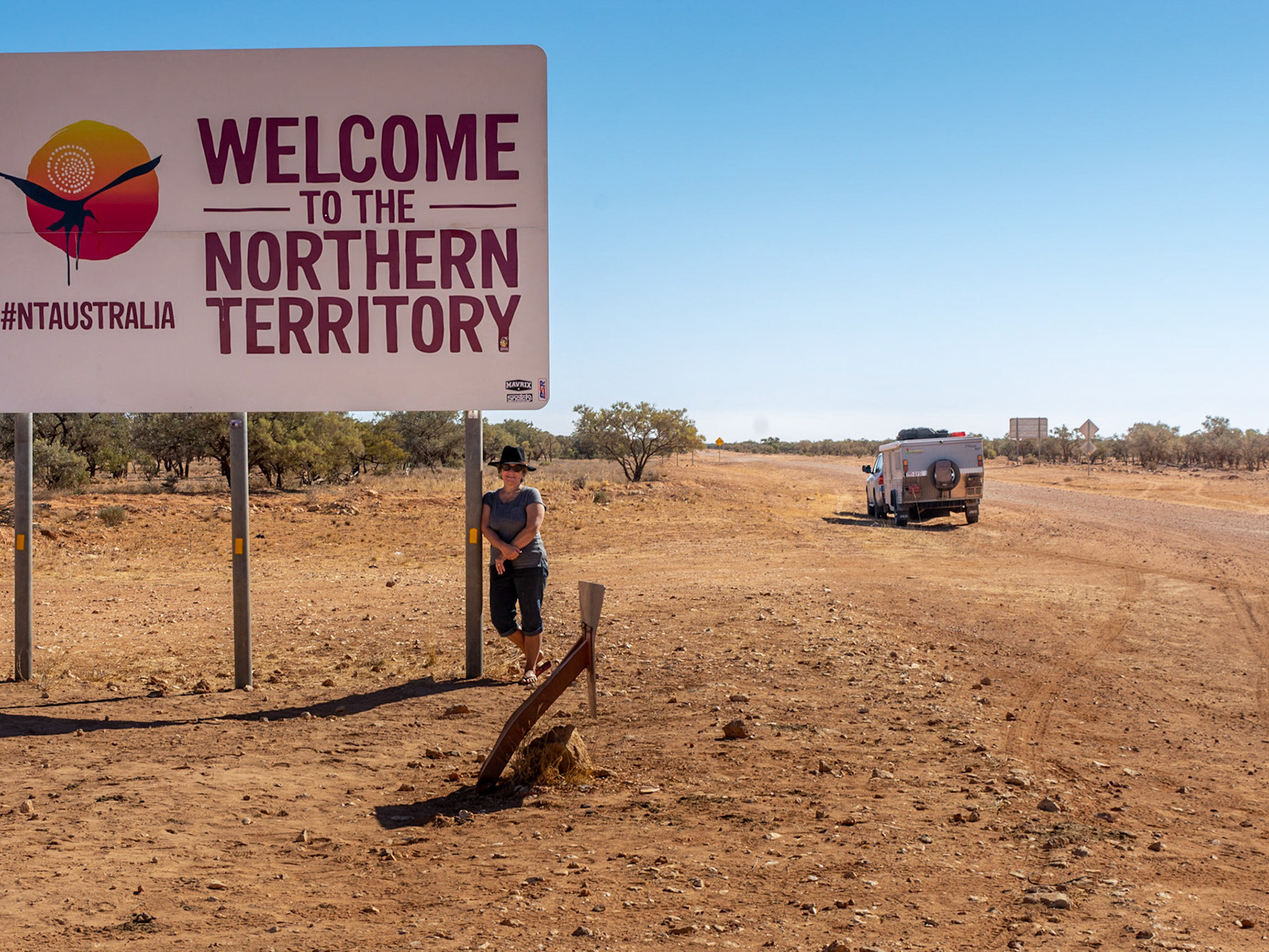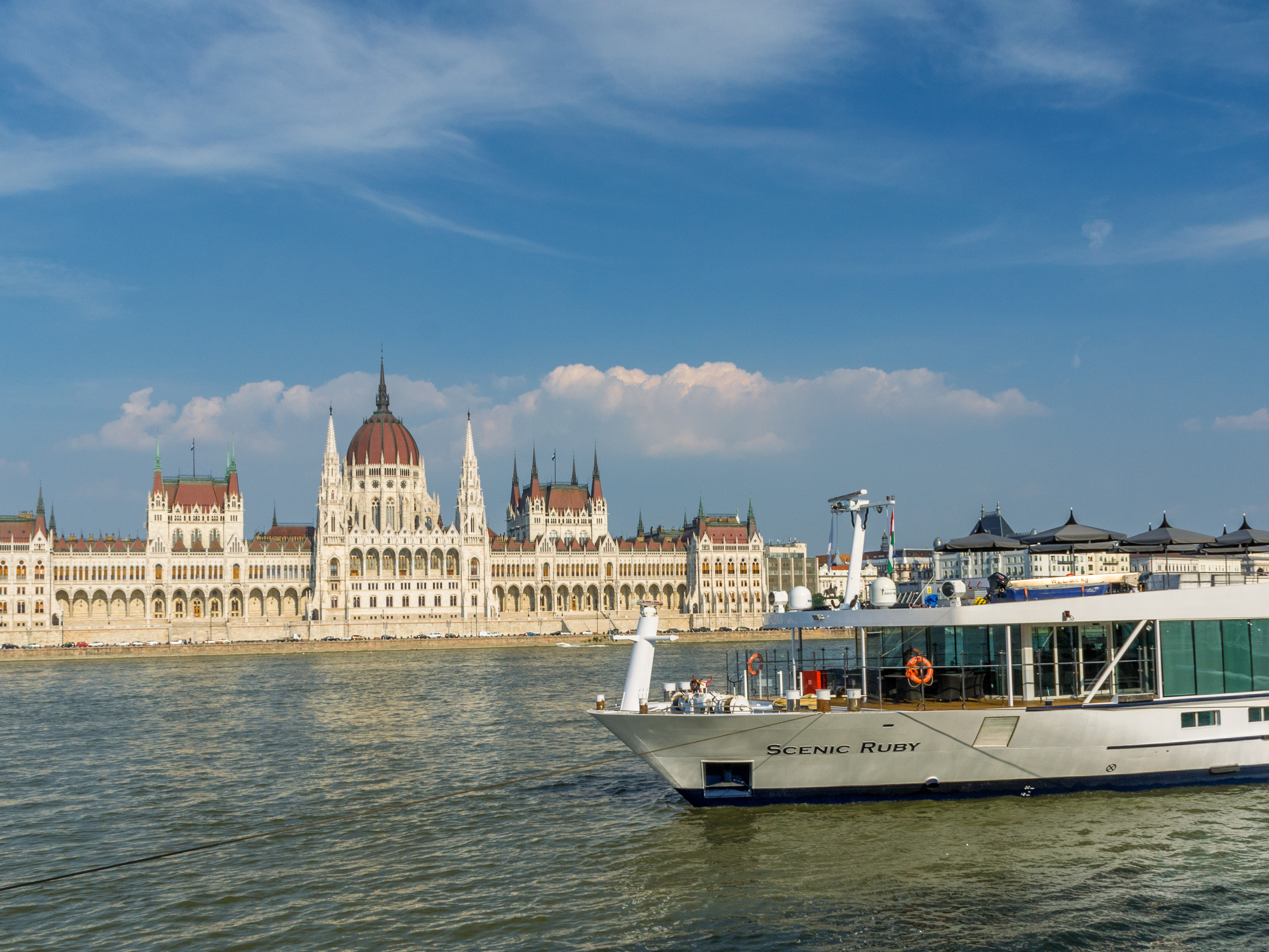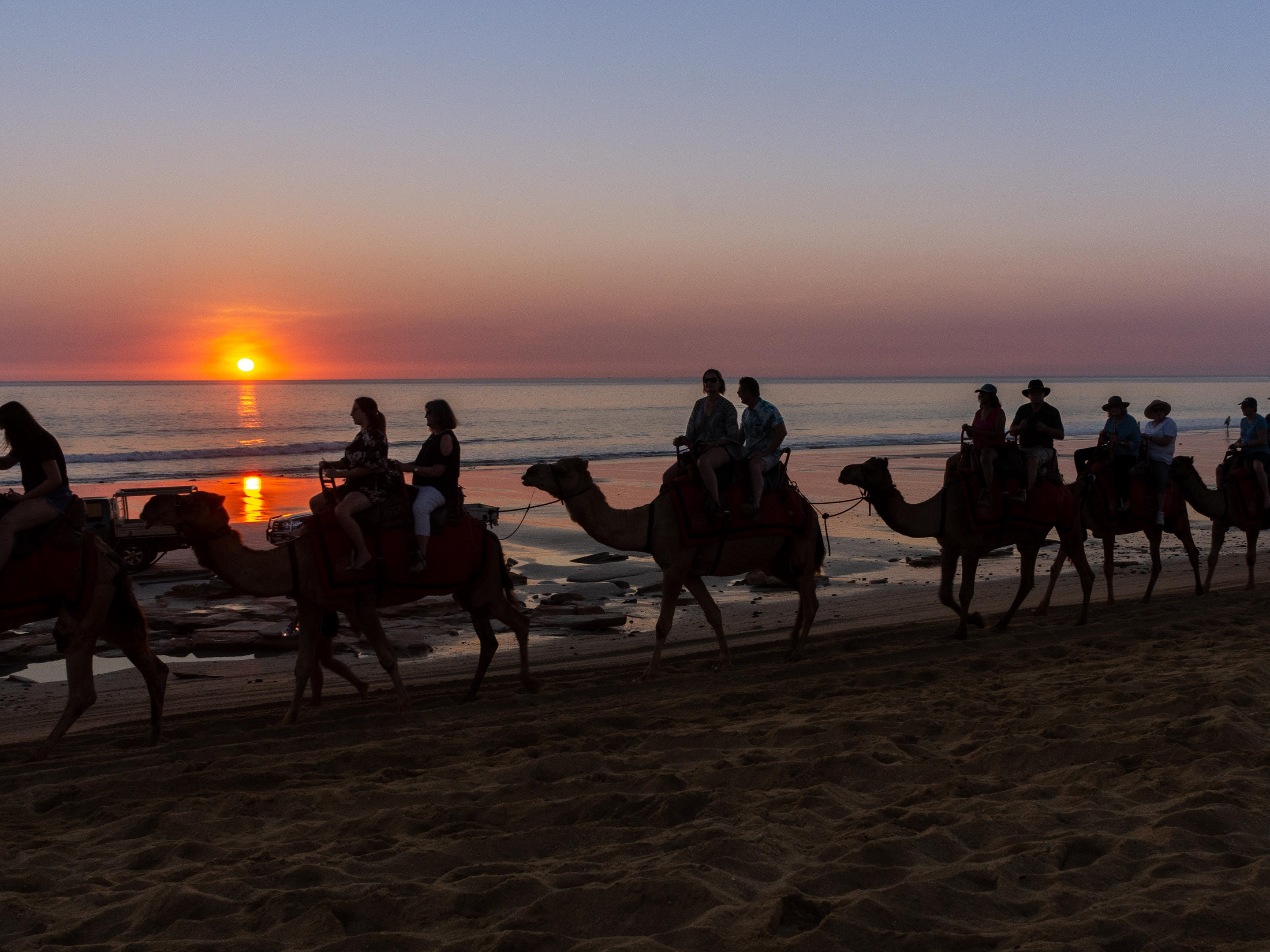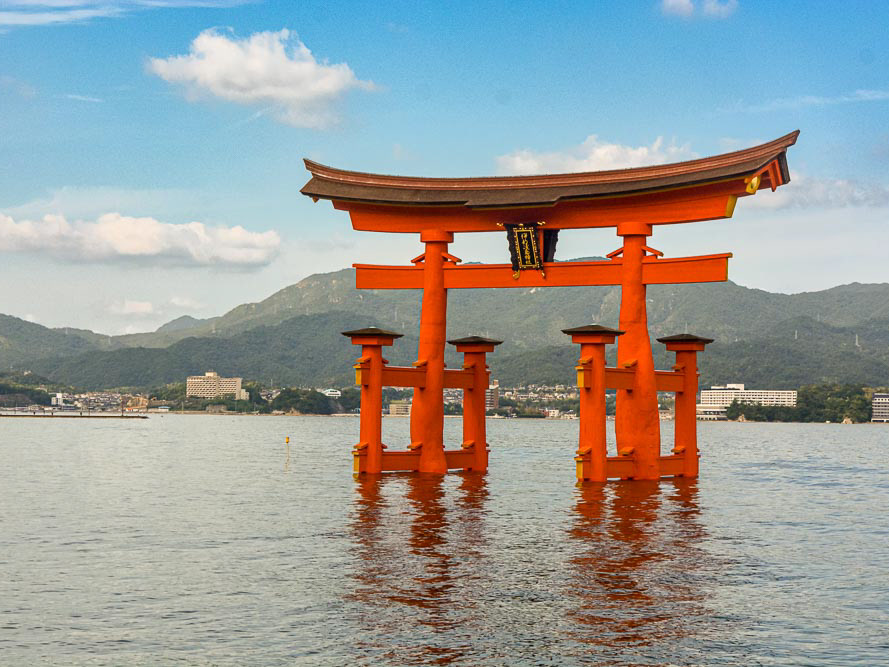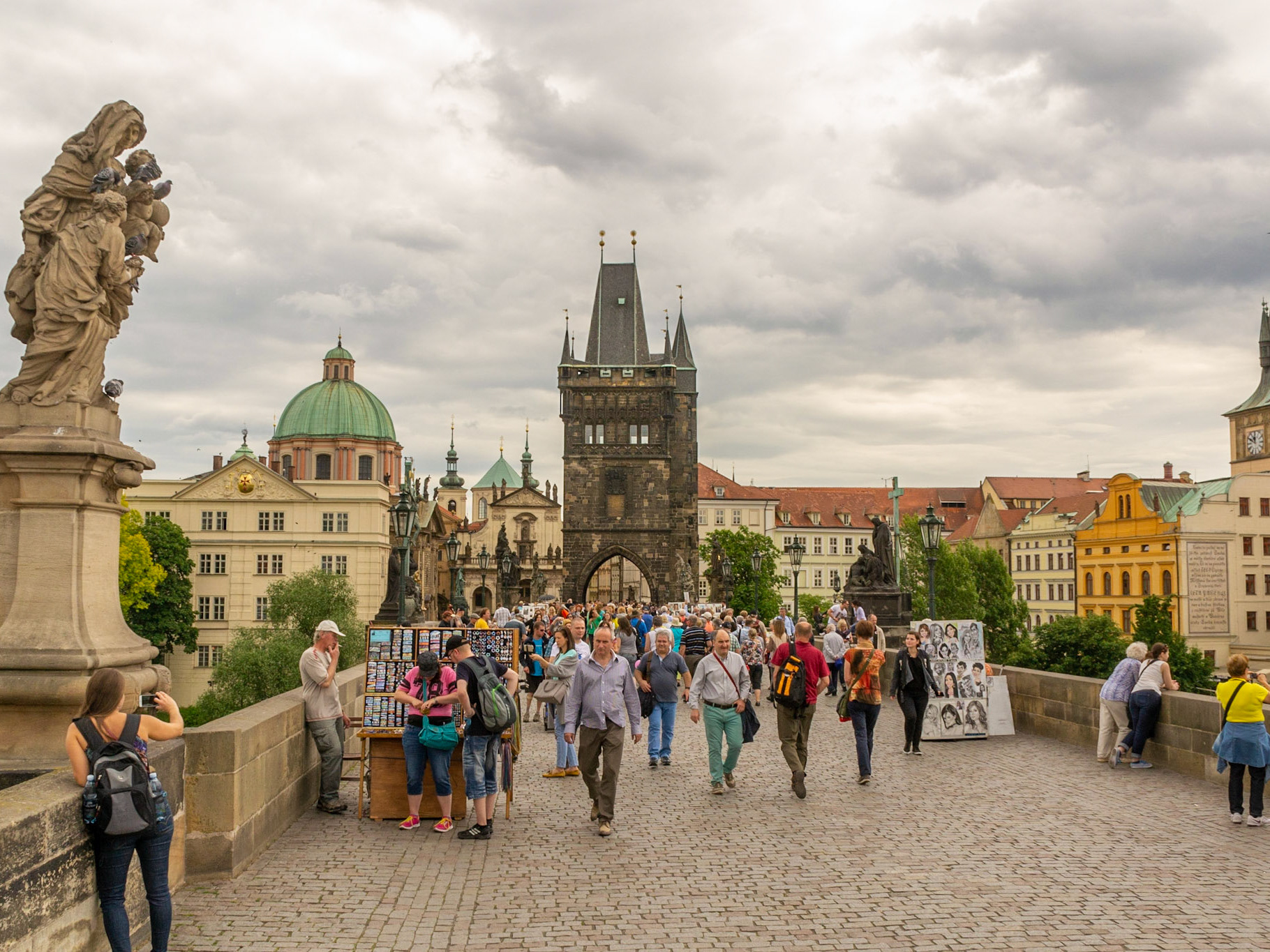Hanoi
On our arrival in Hanoi we take a brief stroll in the immediate vicinity of our hotel to orientate ourselves before departing for Halong Bay the following day for a three-night cruise. On our return from Halong Bay to Hanoi we spend a further three days exploring the old city areas.
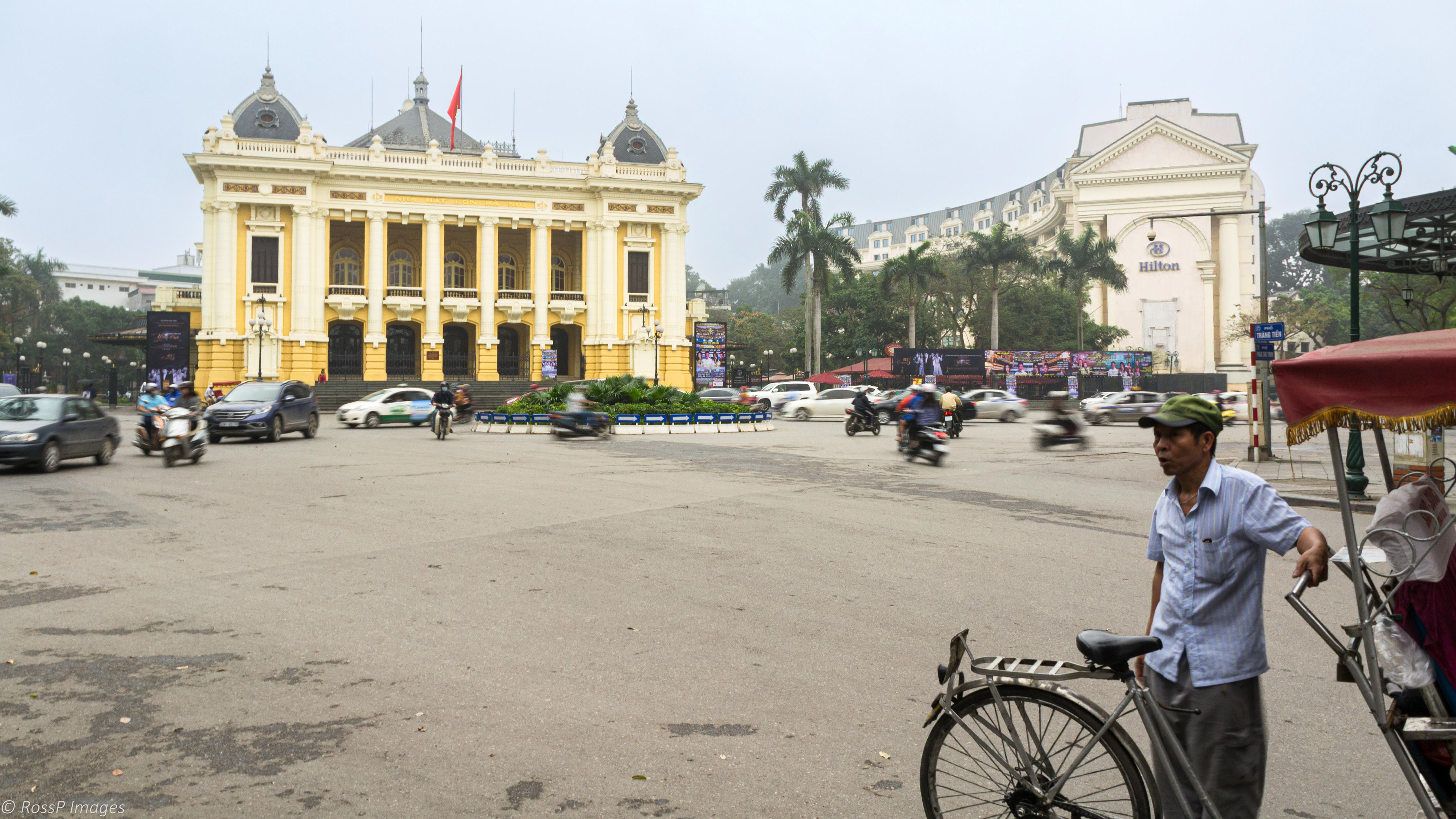
Hanoi Opera House modelled on the Palais Garnier of Paris.
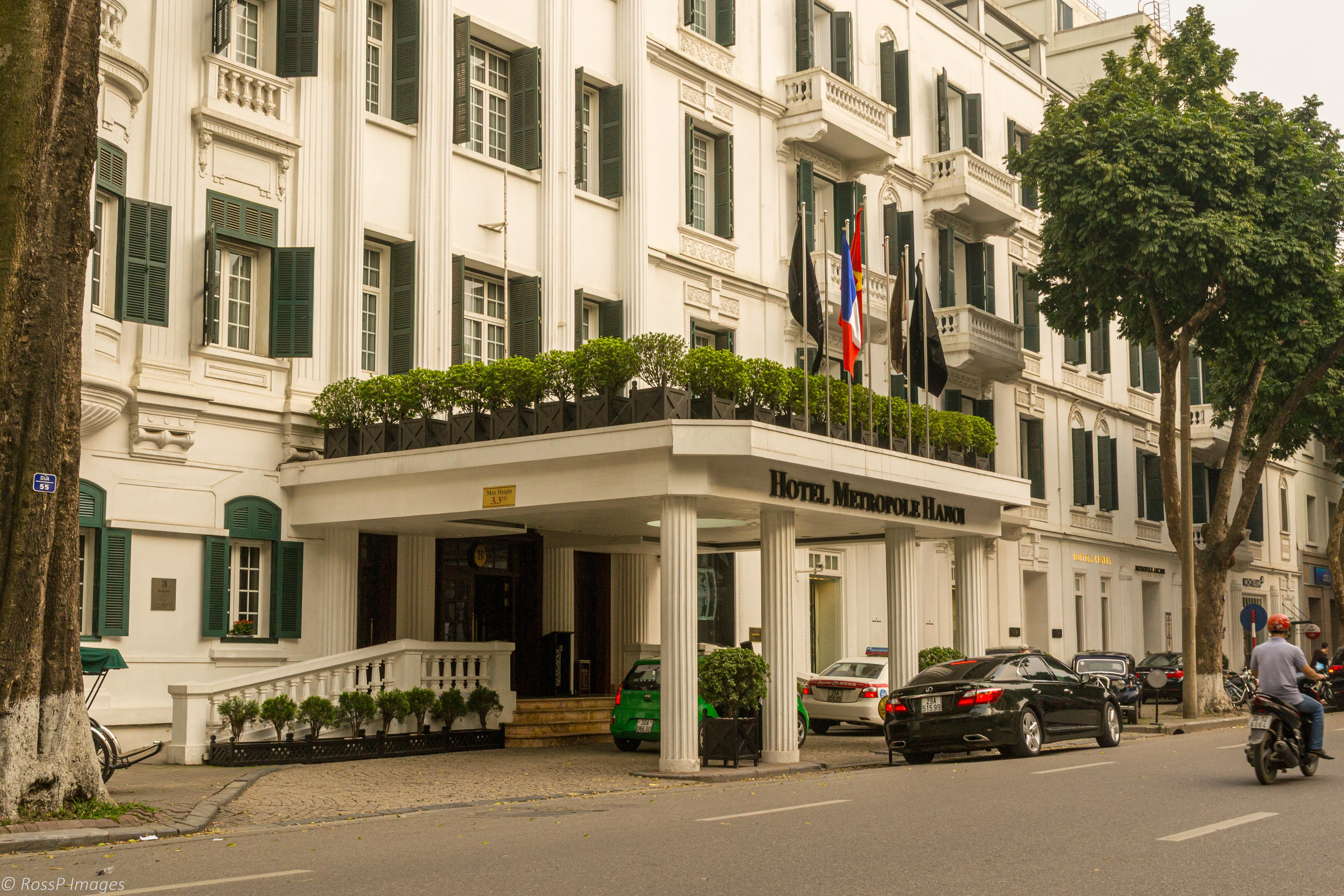
Hotel Metropole Hanoi our humble abode whilst in Hanoi.

Badminton players in the park beside our hotel oblivious to the misty rain.

Bonsai trees in Indira Ghandi Park, Hanoi.

Statue of King Ly Thai To in Indira Ghandi Park, Hanoi.
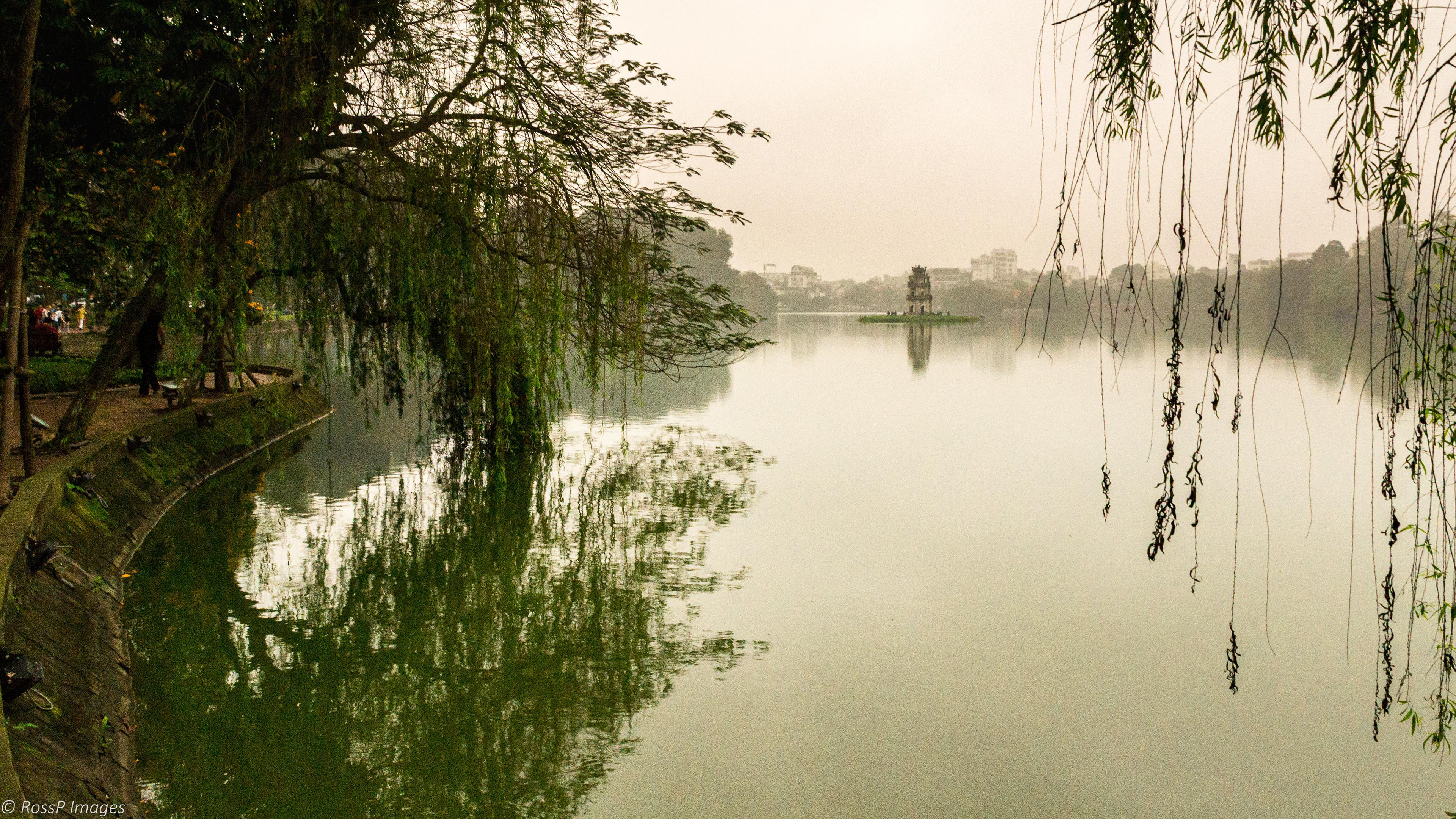
Haon Kiem Lake with the Turtle tower in the background.
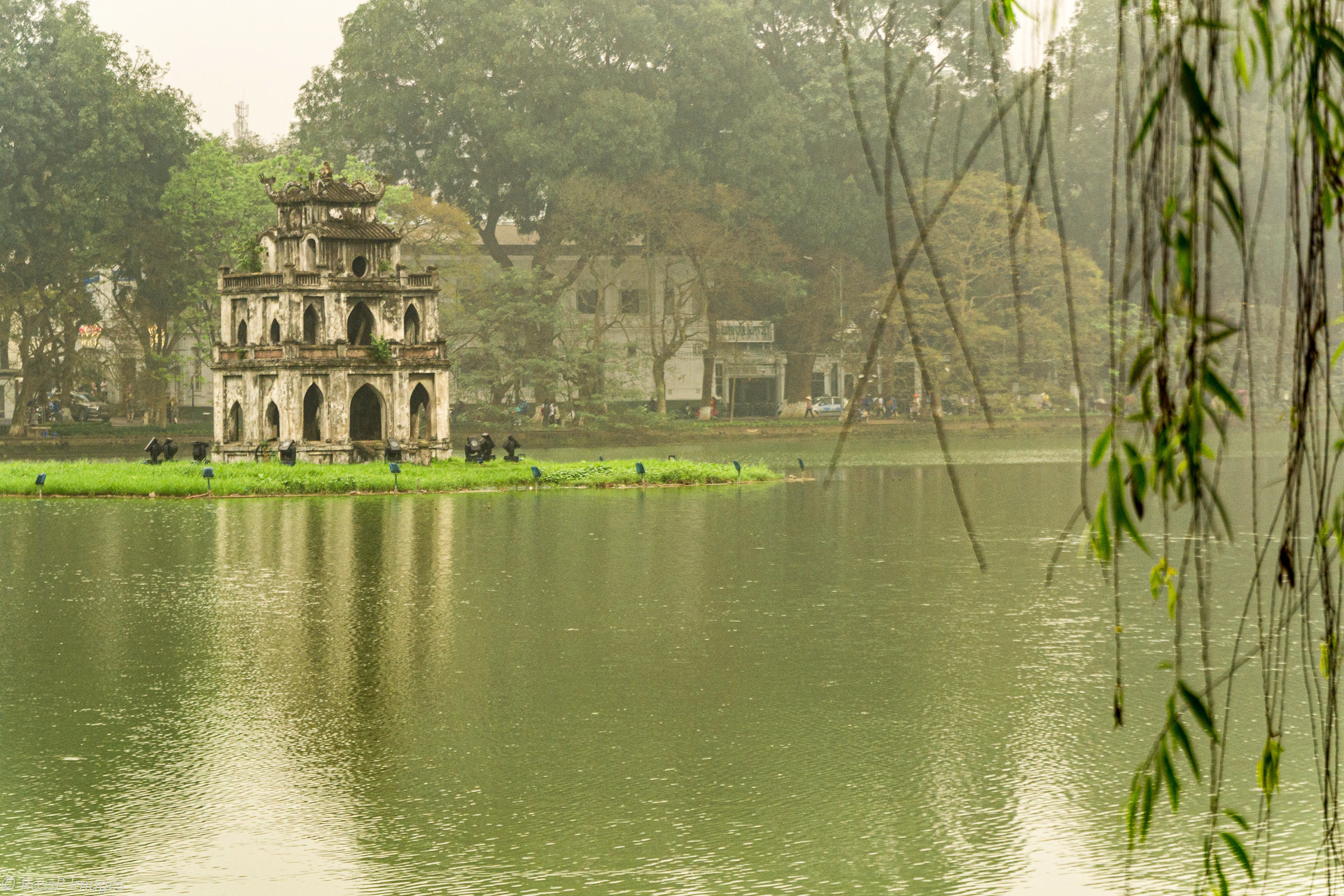
The Tortice Tower, Haon Kiem Lake.

All set for our tour of the Old Town area of Hanoi in traditional Cyclo-taxi.
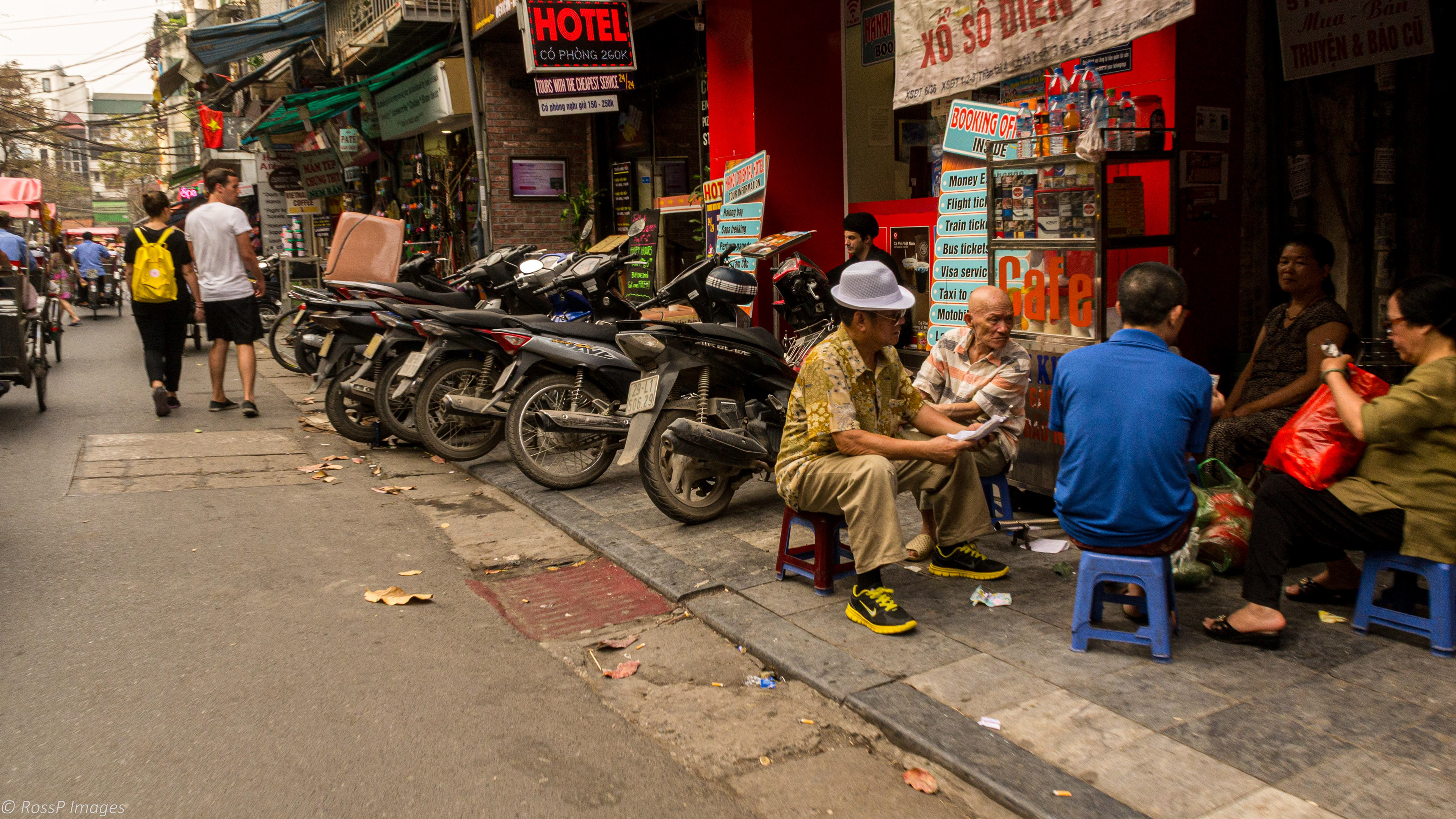
Locals go about their daily business oblivious to the passing tourists.

Traffic may be chaotic in the old town but just works.
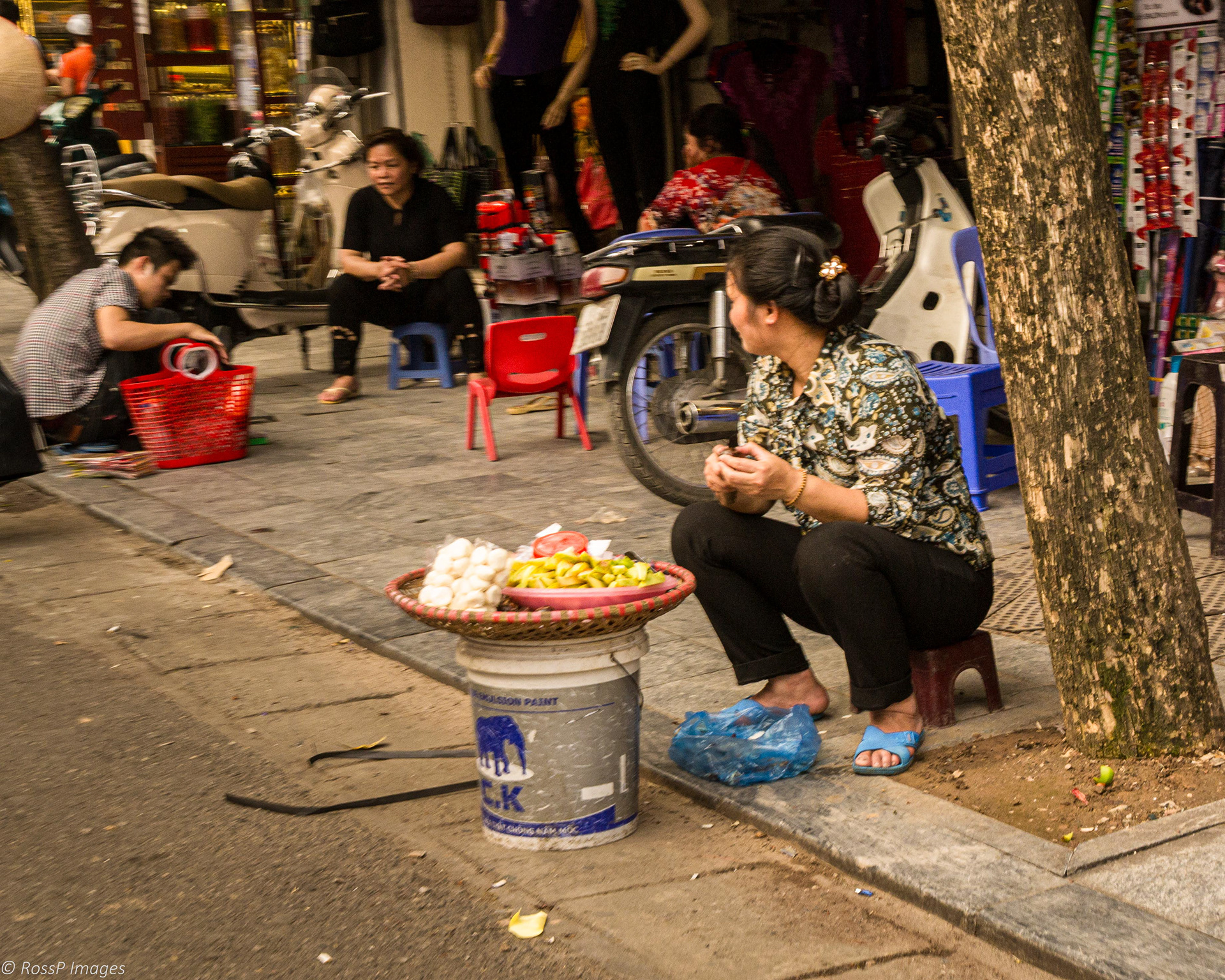
All it takes is a tray of food, a bucket and a stool to set up shop.

Dong Xuan Market, one of the oldest and biggest markets in the old quarter of Hanoi.

We enjoy a performance at Thang Long water puppet theatre.
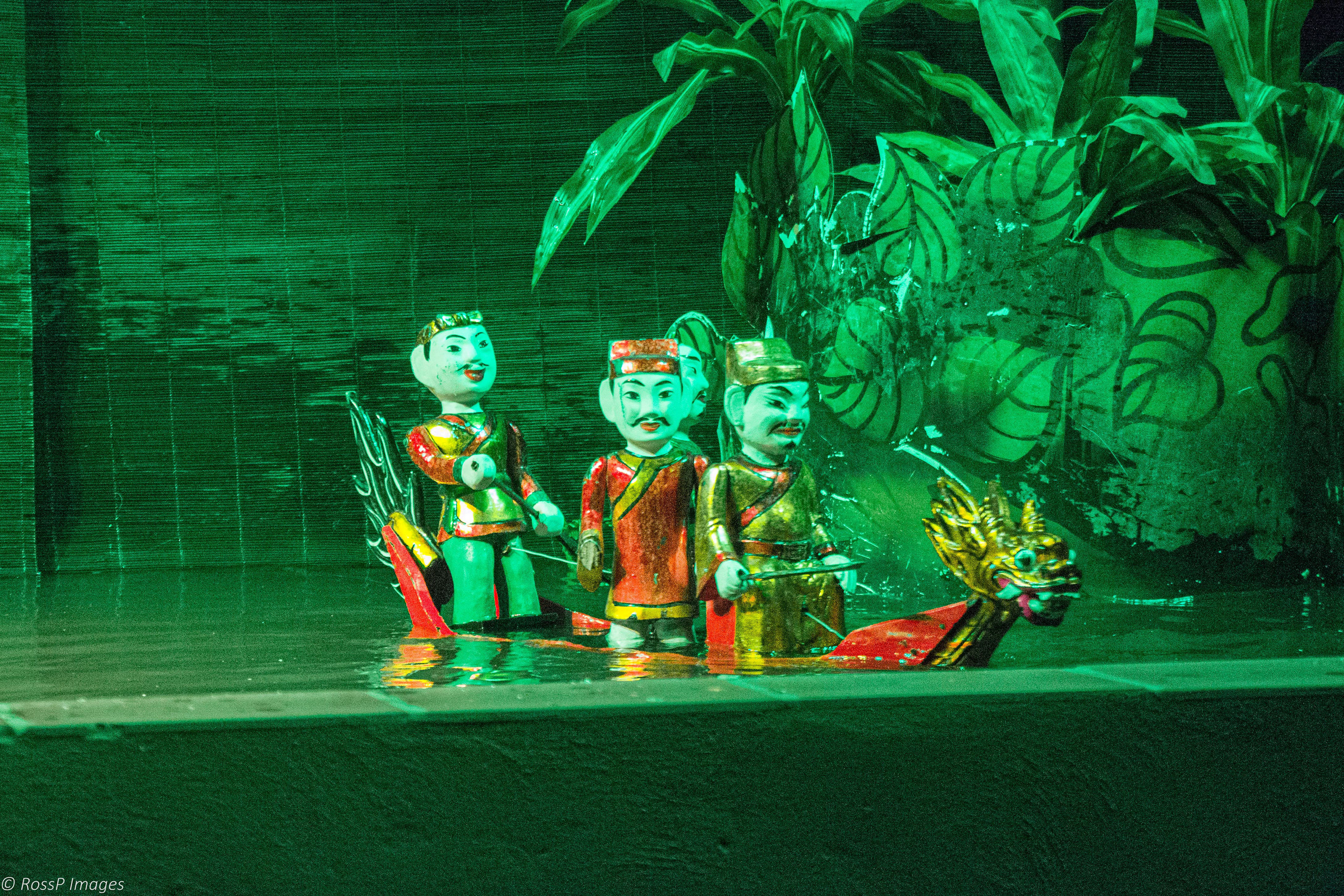
Each play performed on the stage is a legend or story that tells of the heroic history and colorful customs of the country.
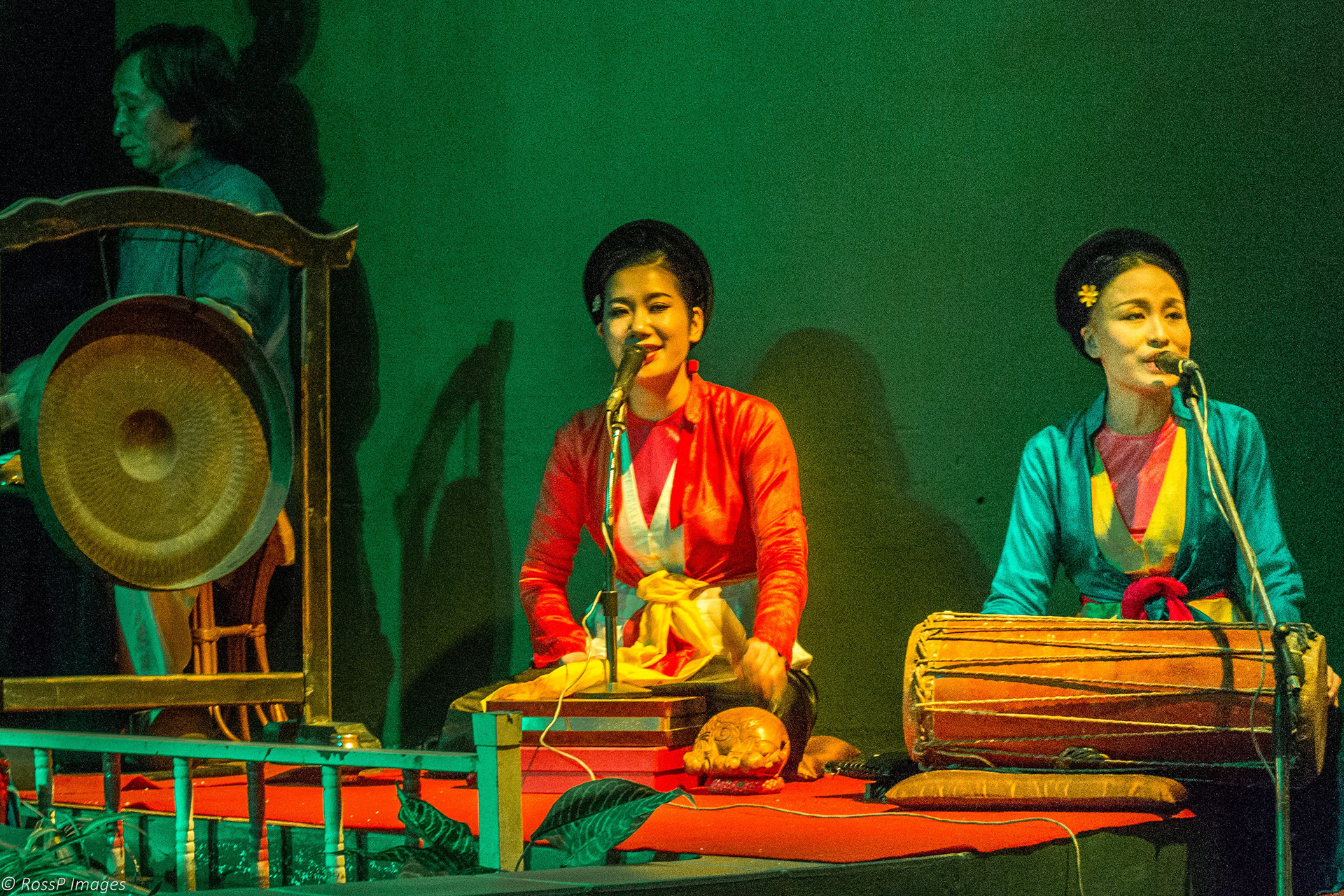
Musicians play traditional Vietnamese instruments as part of the Water Puppet performance.
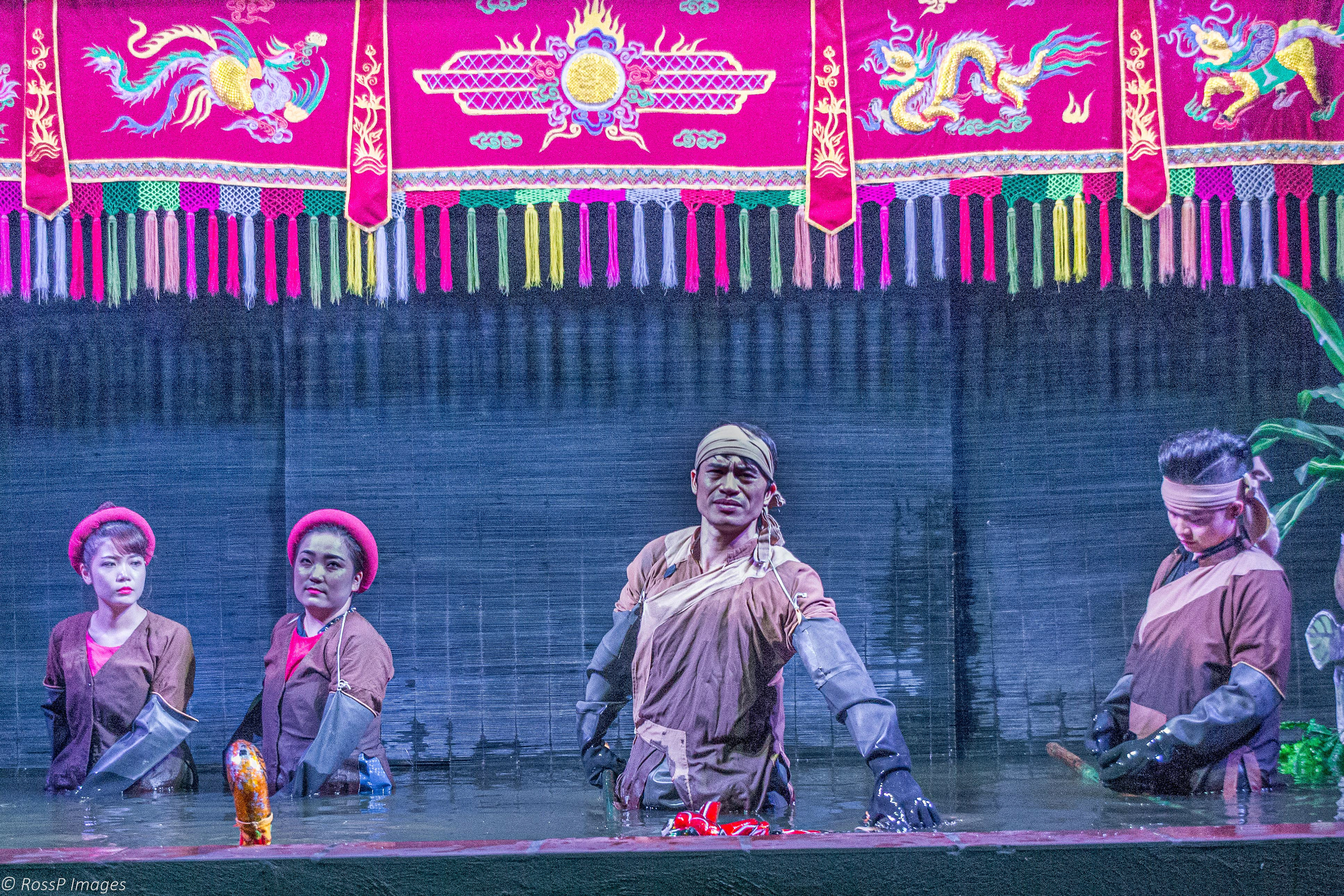
Master Puppeteers stand waist deep in water behind a bamboo screen to make the puppets dance on the water.
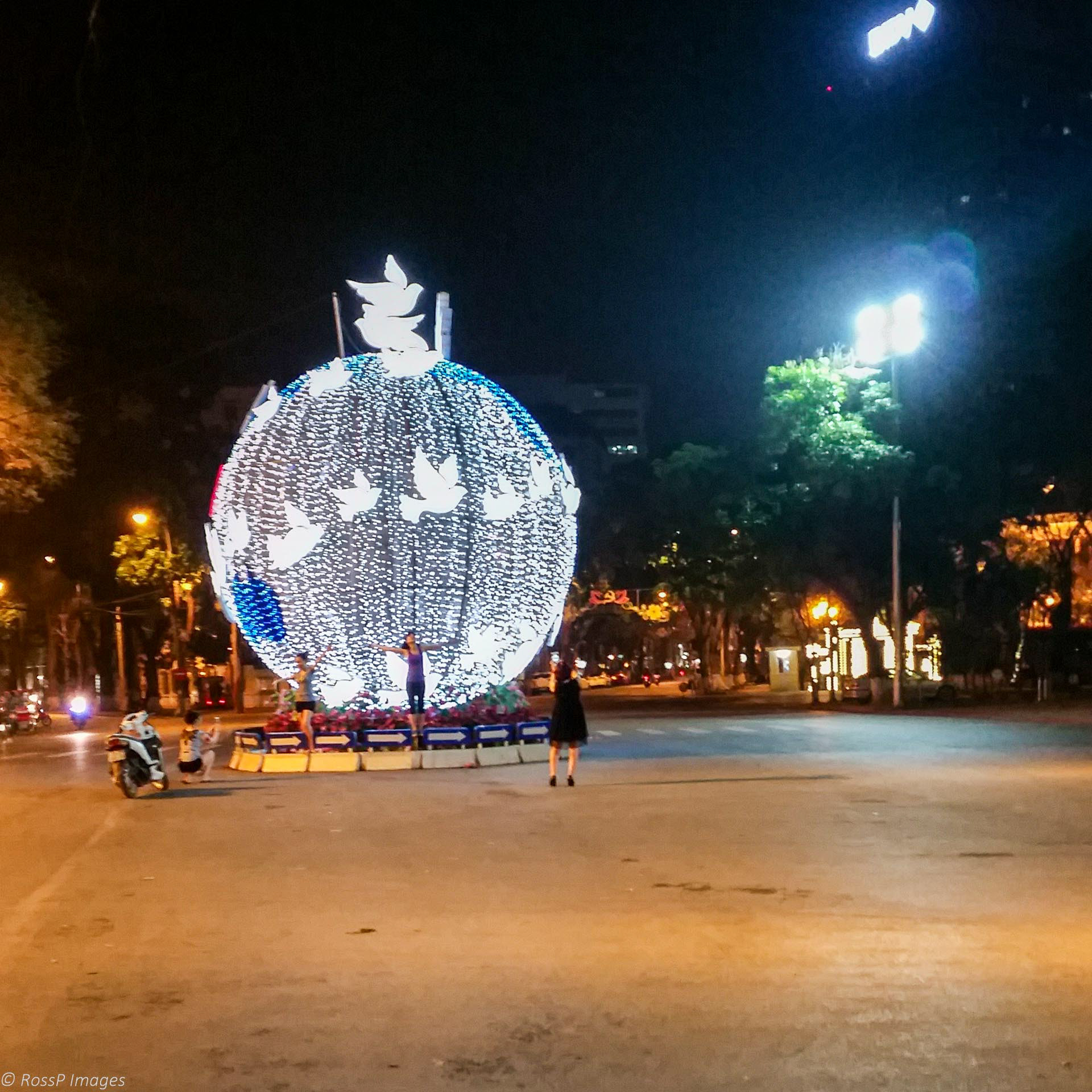
Peace Doves circle the globe, a photo opportunity for tourists.
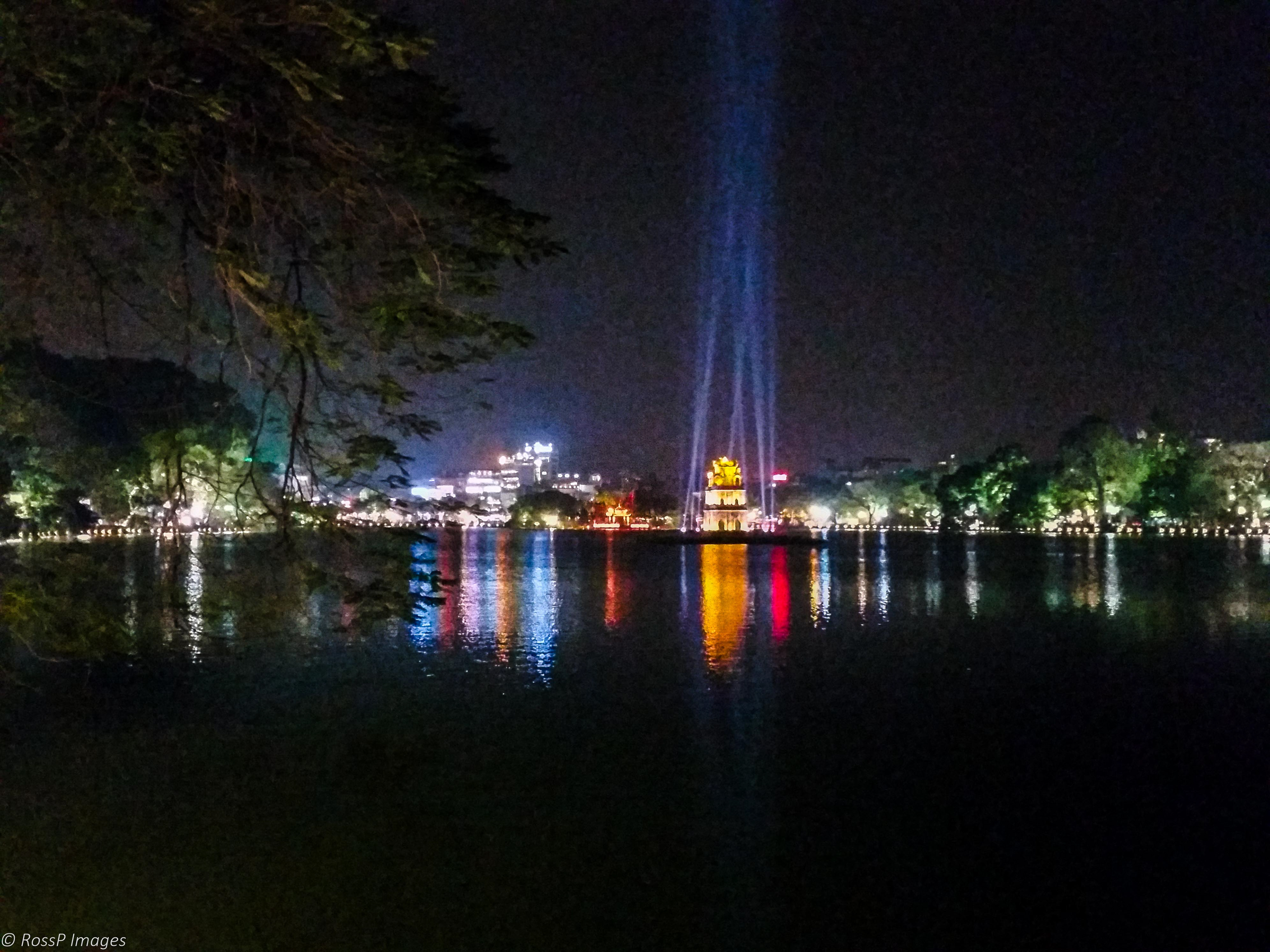
The Tortice Tower is lit up in Haon Kiem Lake.

The infamous Hoa Lo prison (aka Hanoi Hilton) where American airmen were held during the war. Prior to that a brutal place of incarceration of Vietnamese people by the French Colonists.
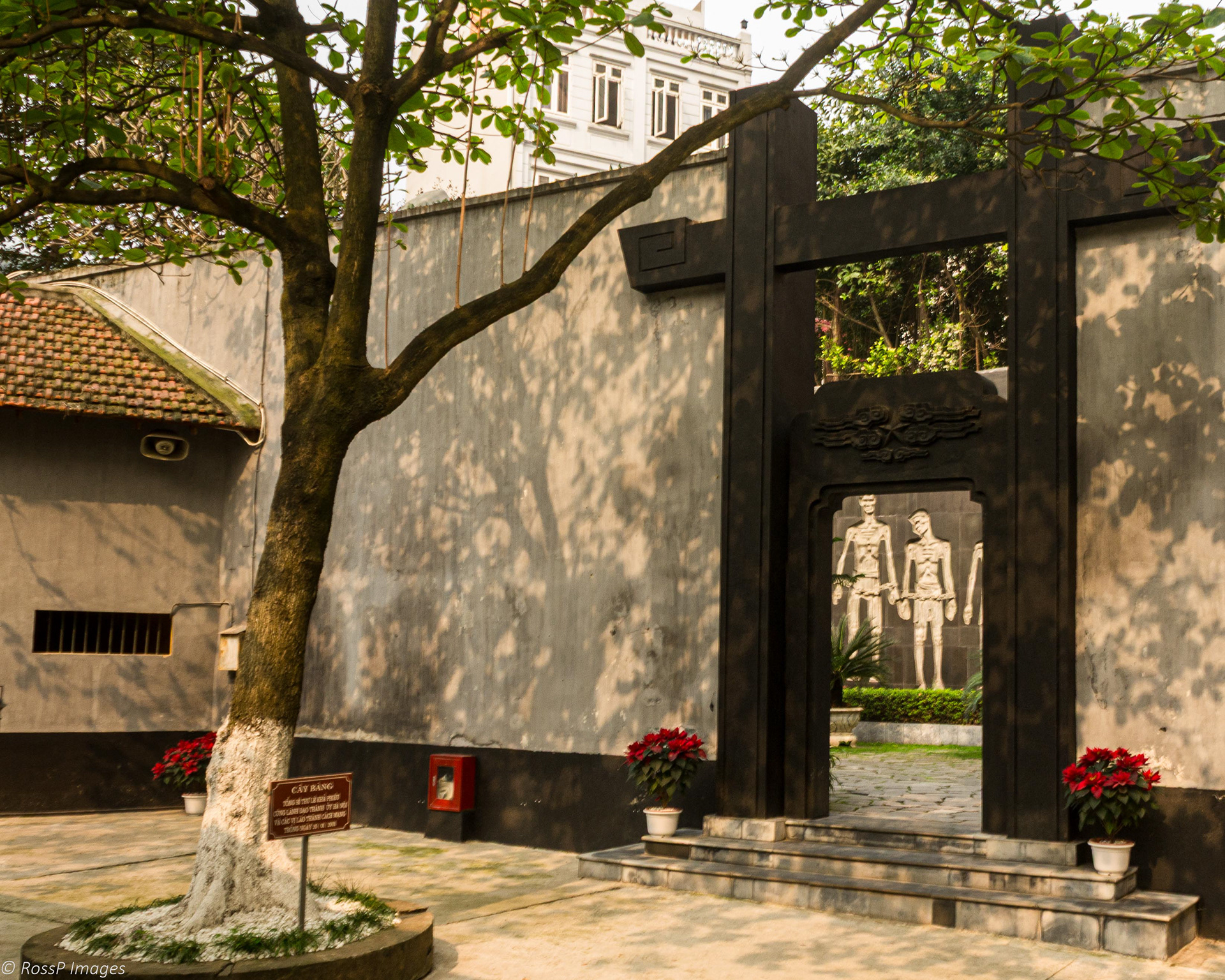
Glimpses of a brutal past is etched on the walls as a reminder to all who visit.
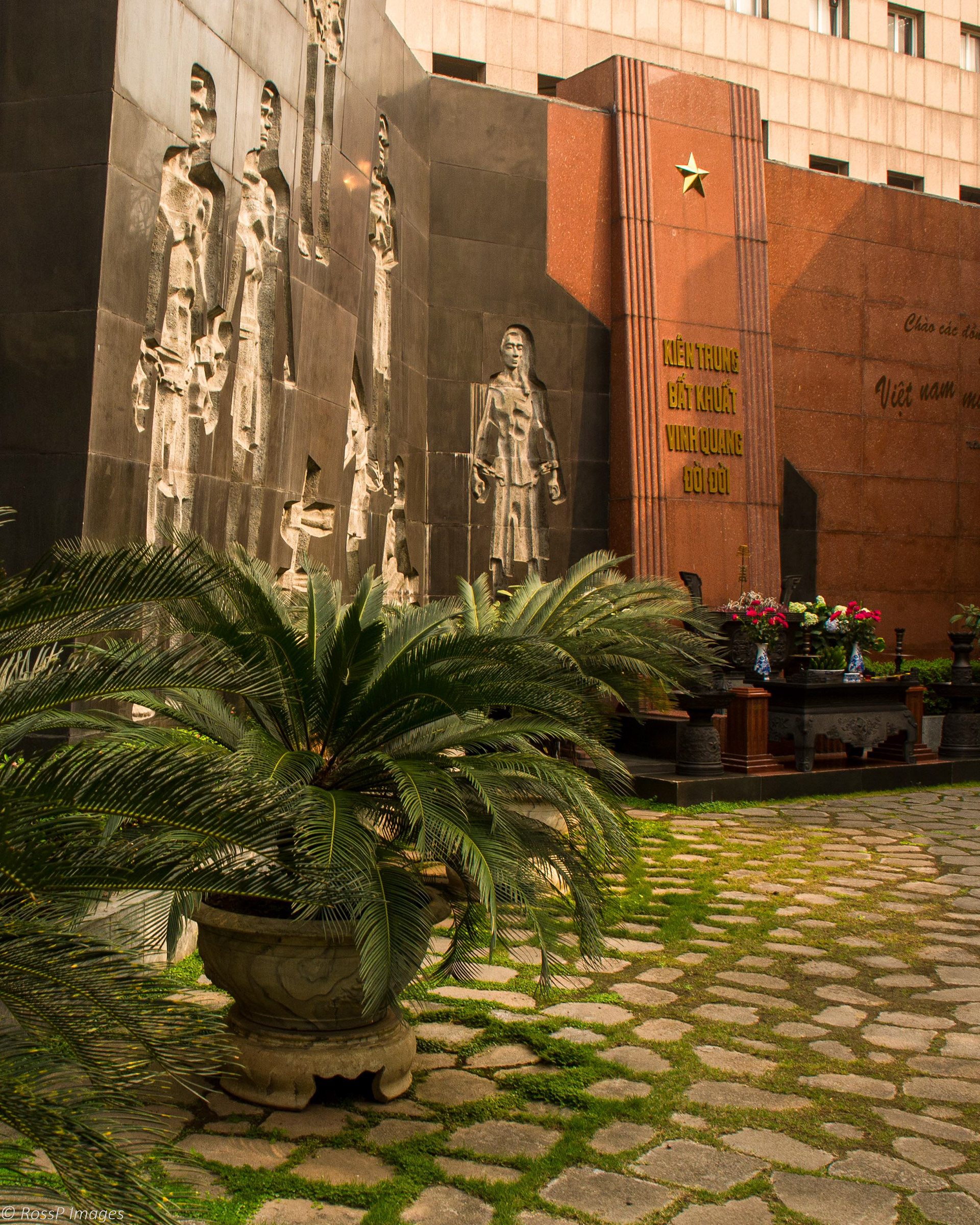
A memorial to the prisoners who passed through these walls and didn't survive.

Confines of the exercise yard.

The brutal French guillotine, used to behead Vietnamese revolutionaries.
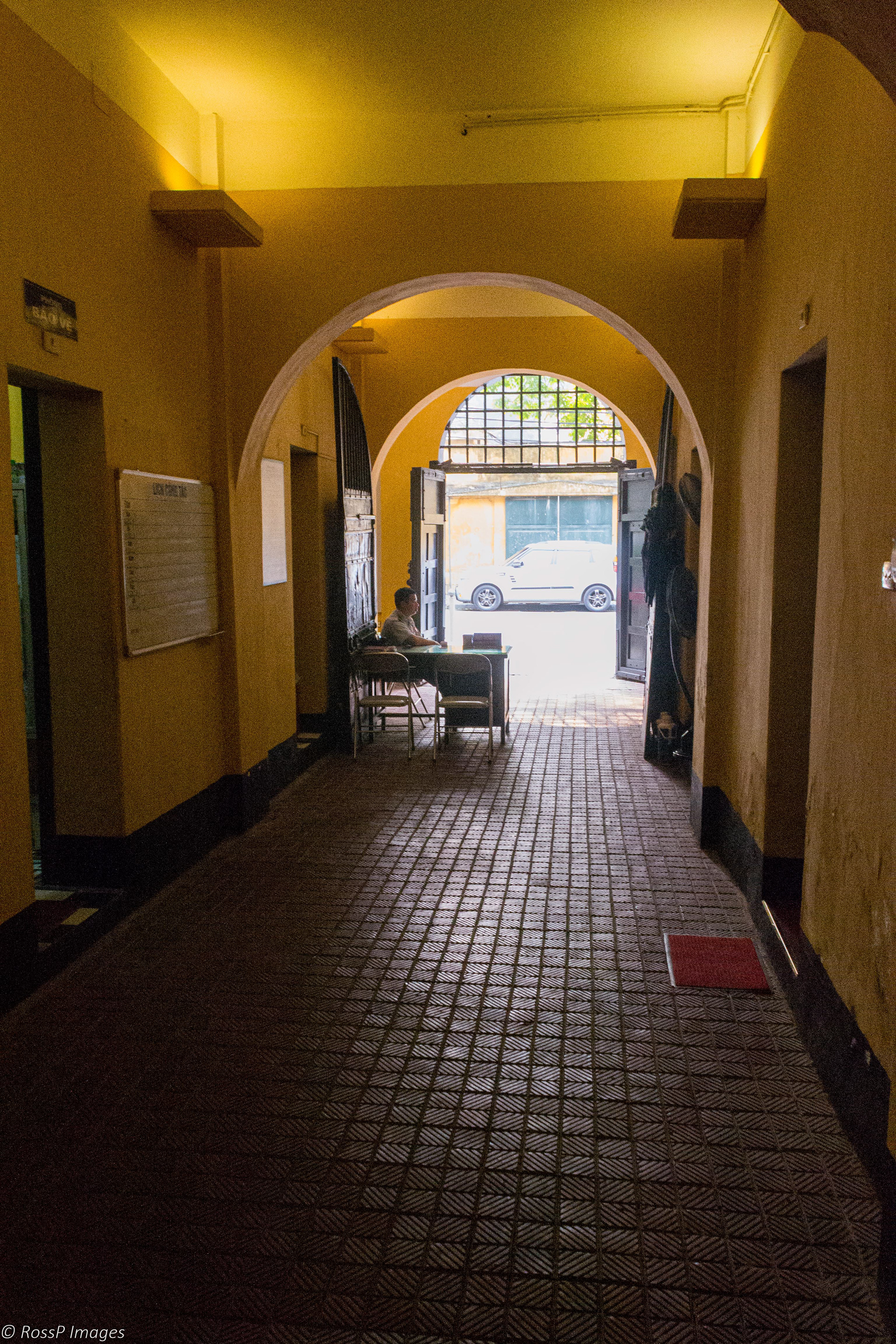
Inside Hoa Lo Prison used by the French for political prisoners. During the Vietnam war for American POWs it was known as the "Hanoi Hilton".
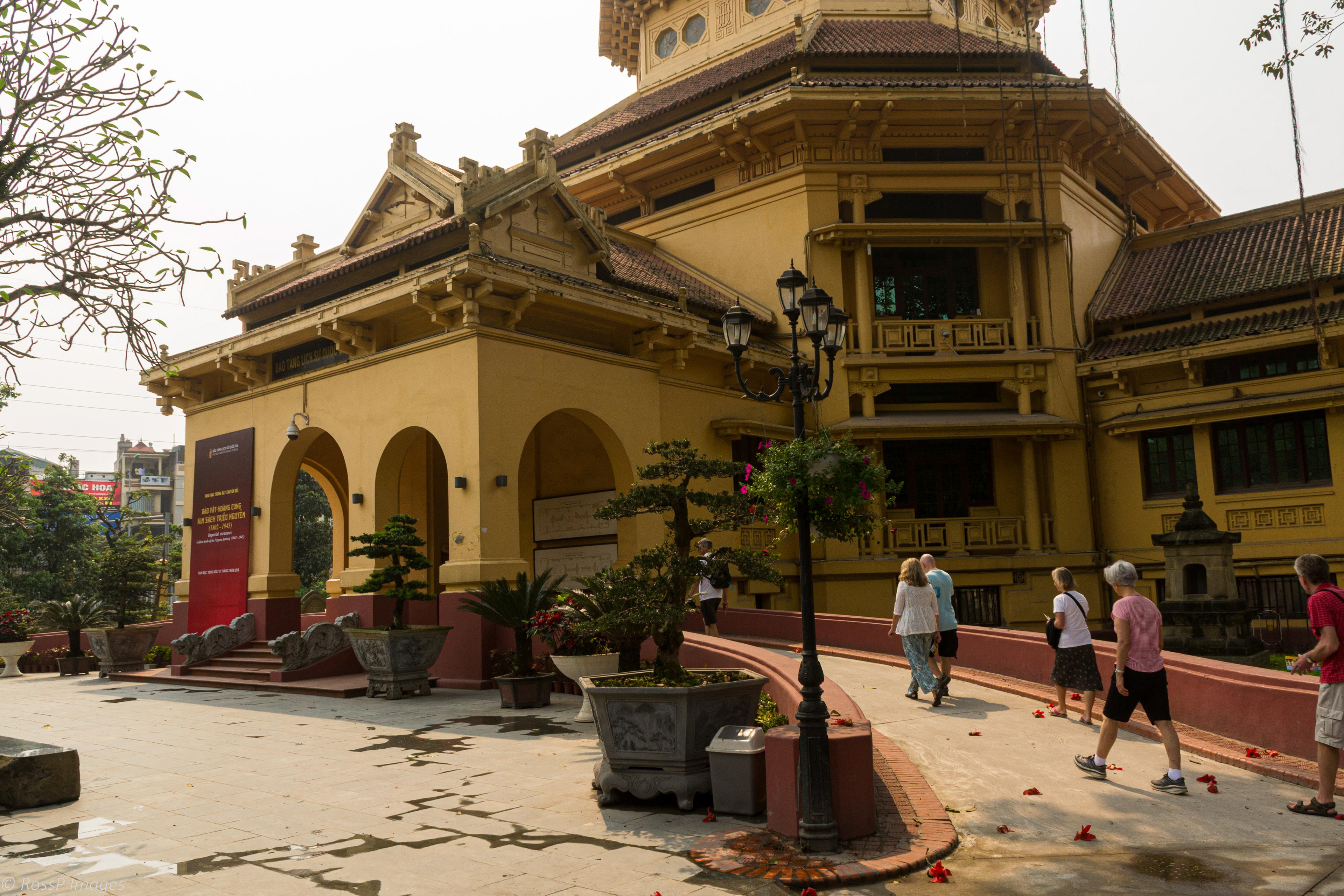
National Museum of Vietnamese History. The museum highlights Vietnam's prehistory (300,000 years ago) up to the August 1945 Revolution.

Buddha in the National Museum.
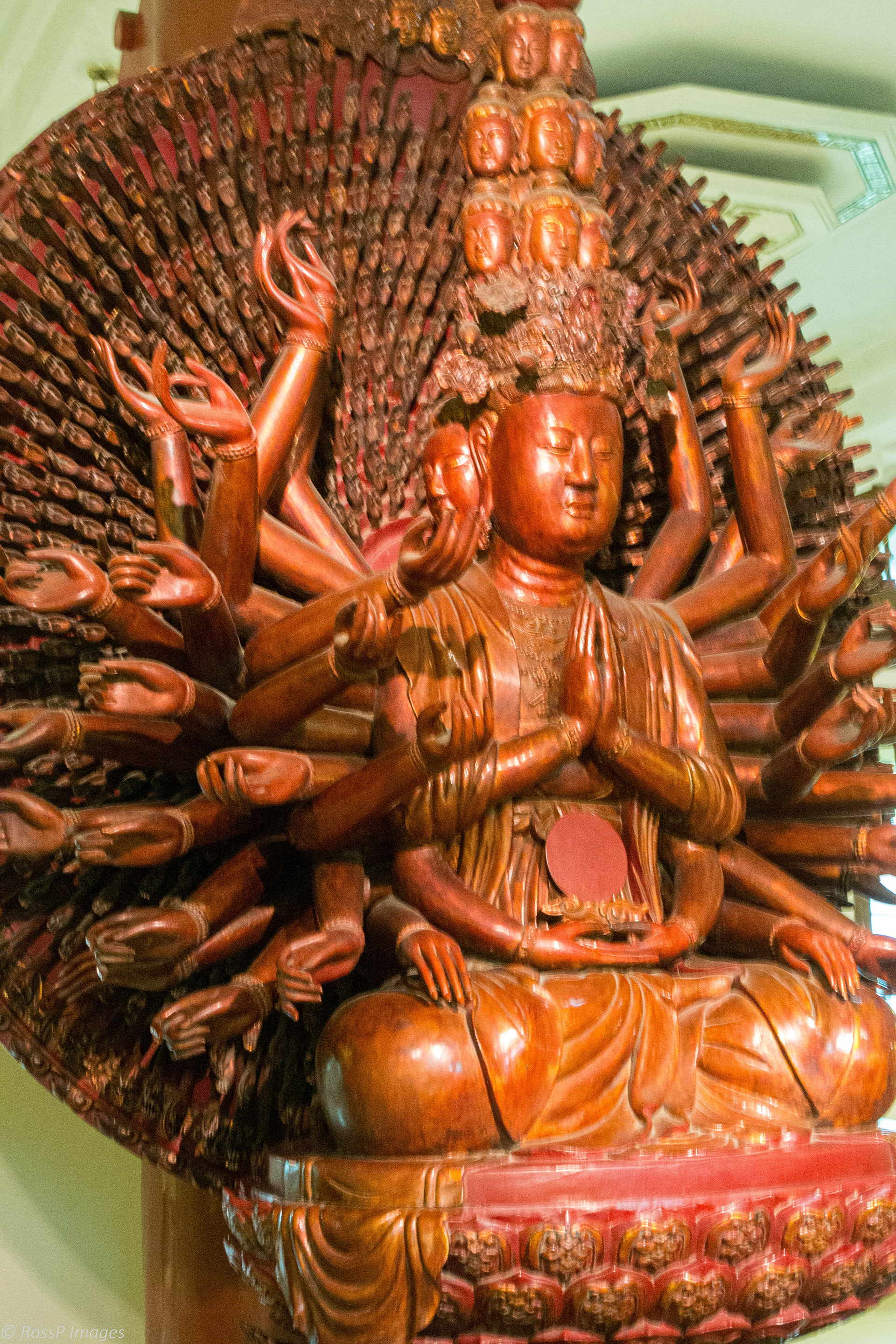
Guanyin and the Thousand Arms, carved in 1656 in the Bac Ninh Province.
Cruising in Ha Long Bay (meaning Descending Dragon).
The bay features 1,969 limestone karsts and islands of various shapes and sizes, approximately 40 are inhabited of which we visit one, Cat Ba Island. The population of Hạ Long Bay is about 1,540, mainly in Cửa Vạn, Ba Hang and Cặp Dè fishing villages. Residents of the bay mostly live on boats and rafts buoyed by tires and plastic jugs to facilitate the fishing, cultivating and breeding of aquatic and marine species.
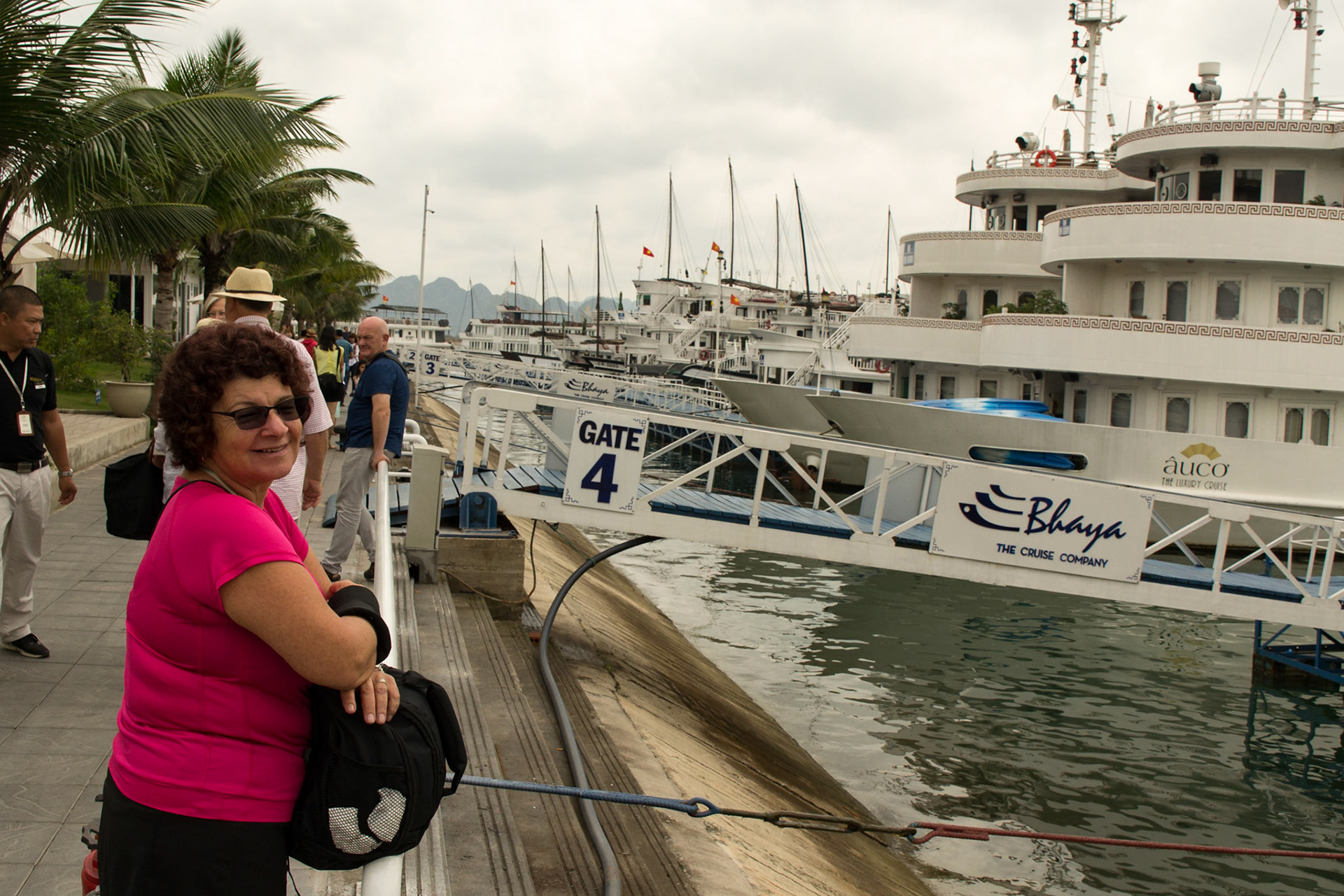
Cheryl waiting to board the ship, our home for the next couple of days
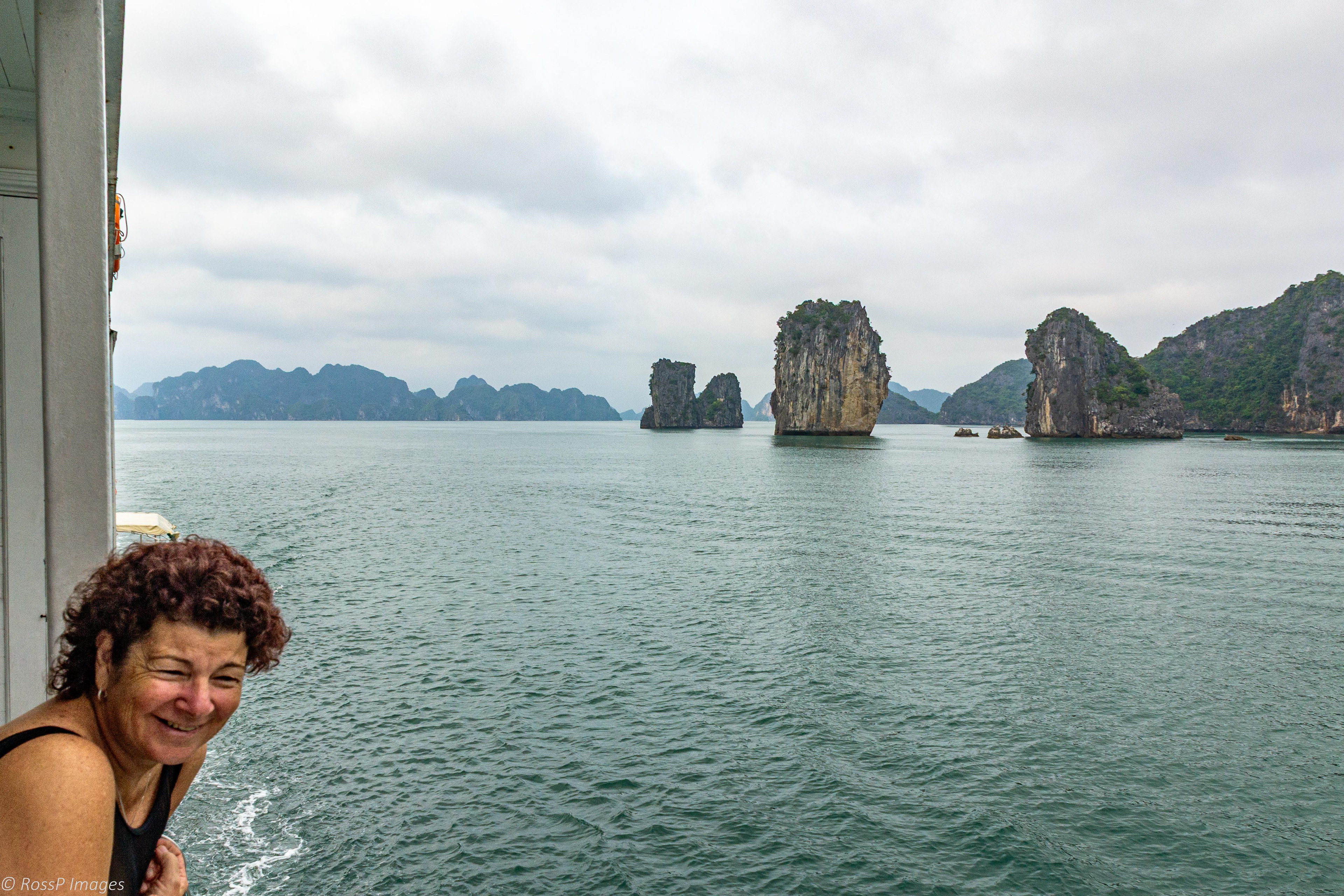
Cheryl enjoying the moment as we head off on our bay croise.
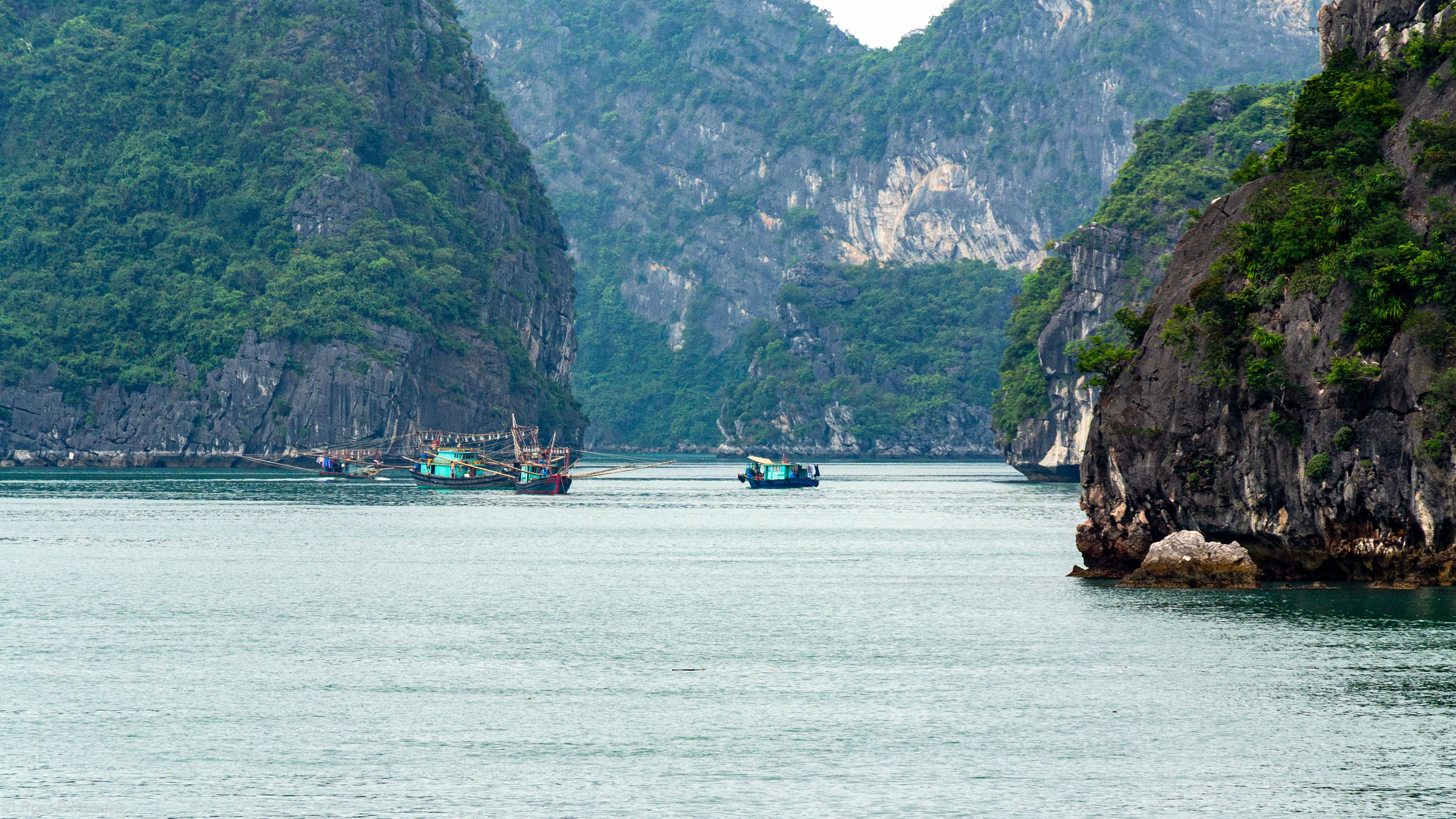
Numerous local fishing vessels are encountered along the way.
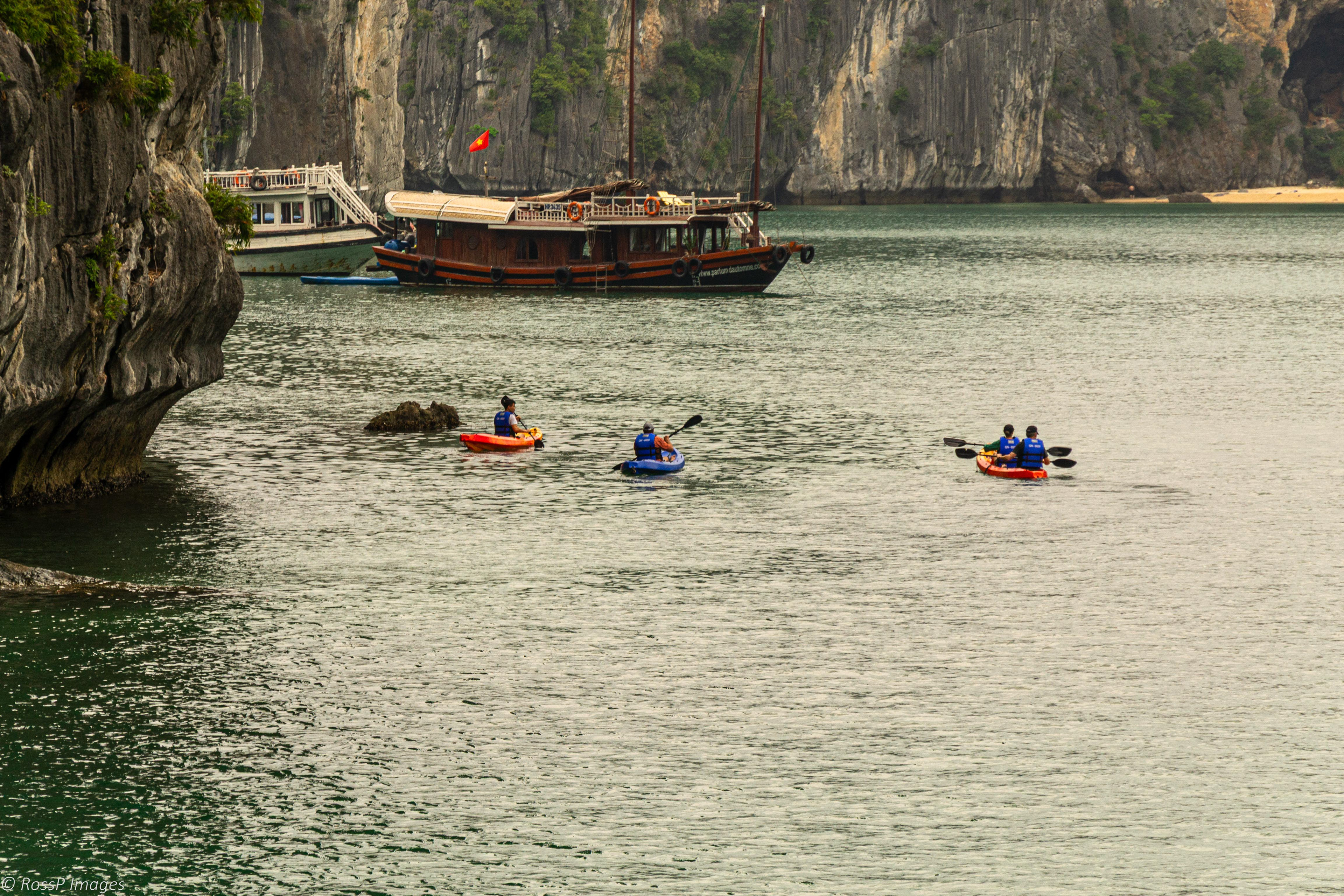
Exploring the islets by kayak we encounter other cruise boats.
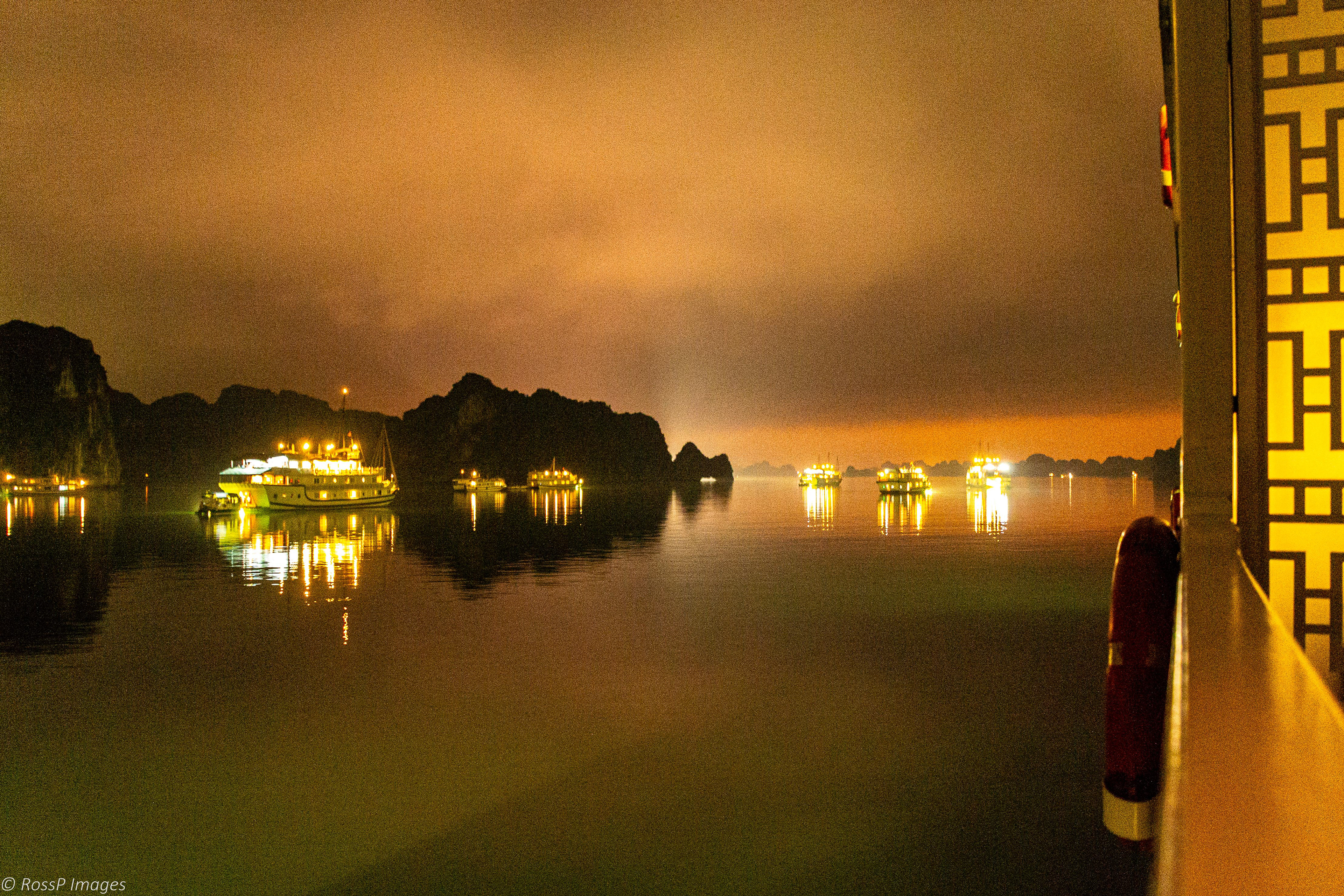
Cruise boats at anchor as an eerie night fog descends.
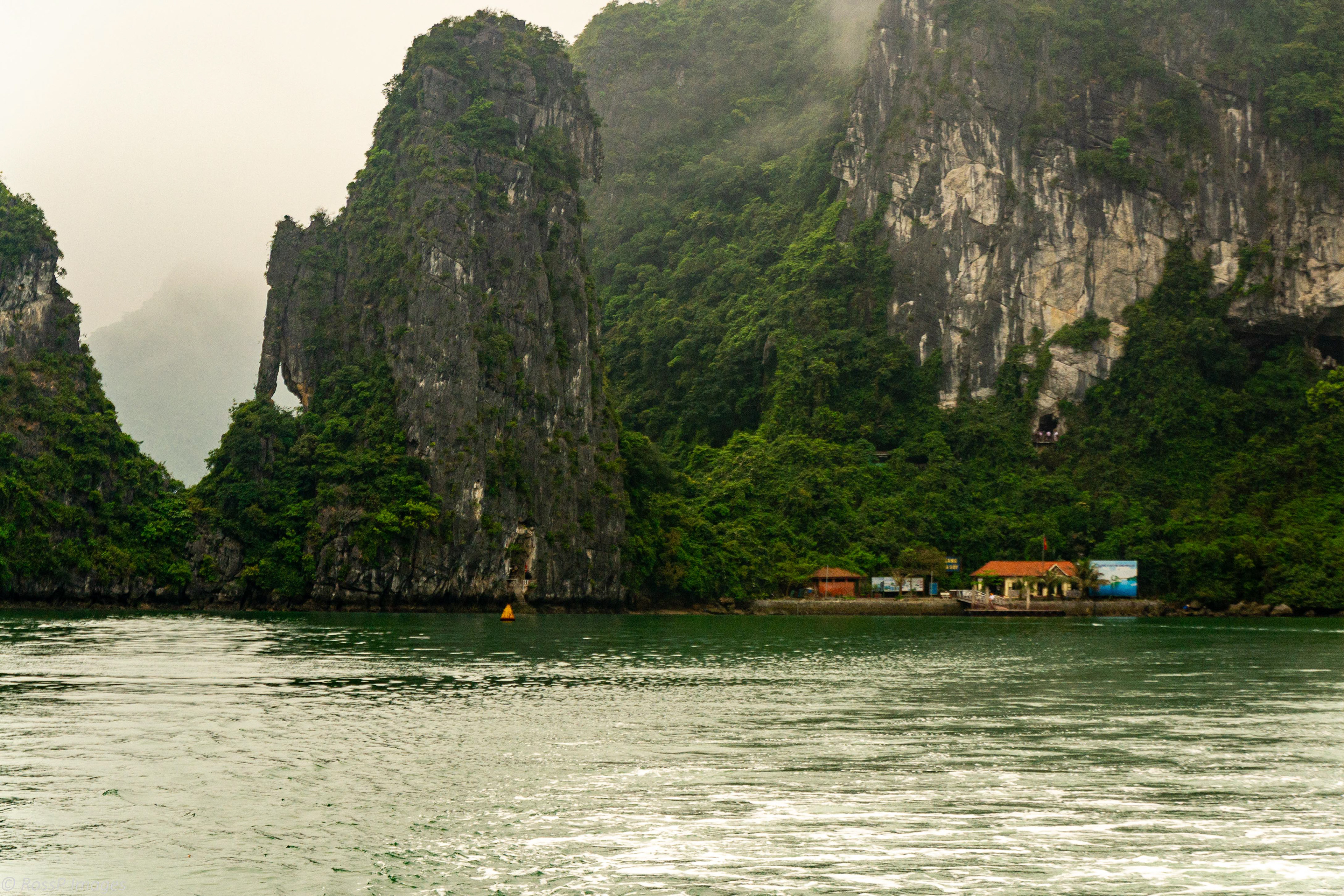
Approaching Hang Sung Sot cave - the grotto entrance can be spotted 25 metres above the jetty buildings.
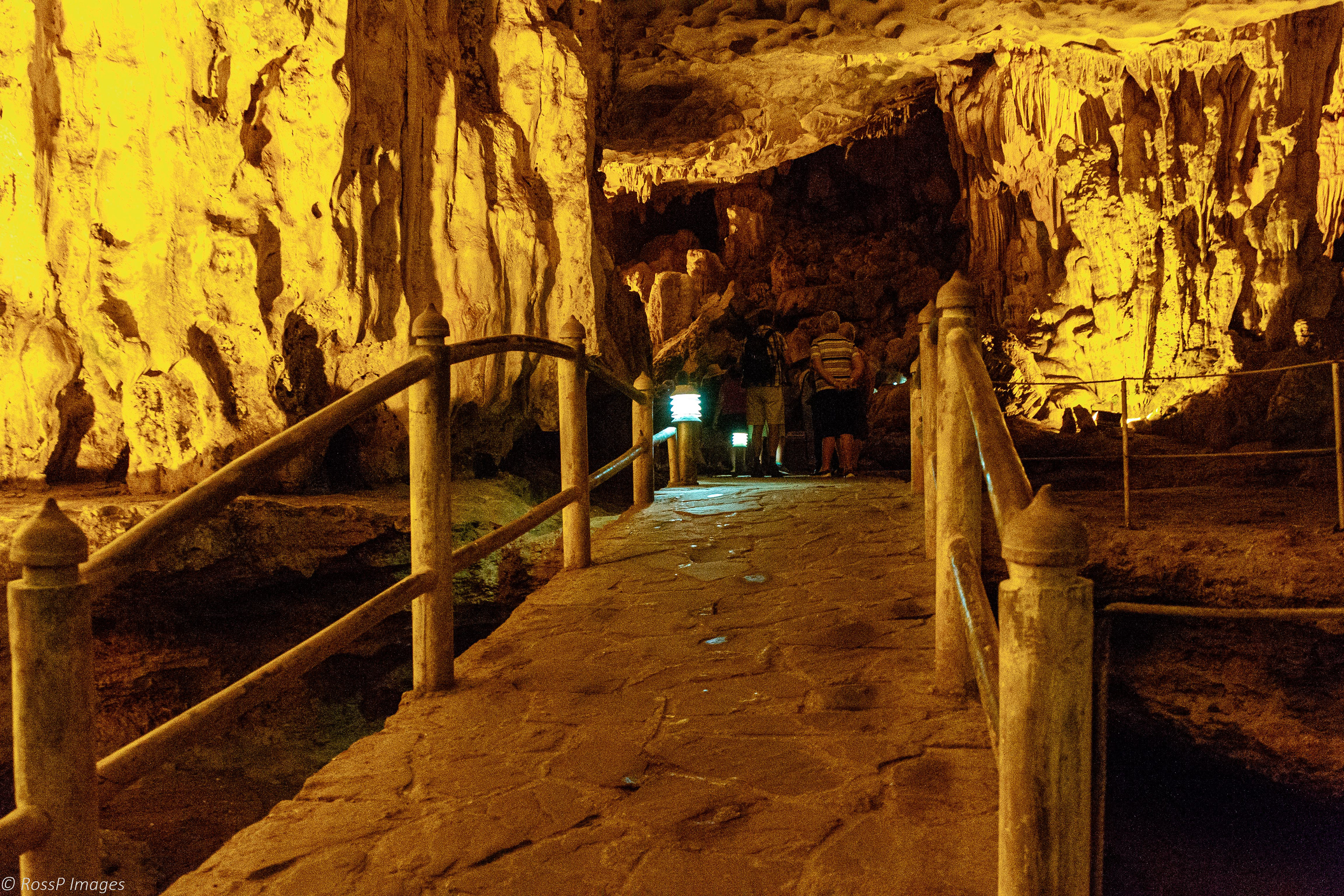
Well defined paths ensures the cave system easily accessible.
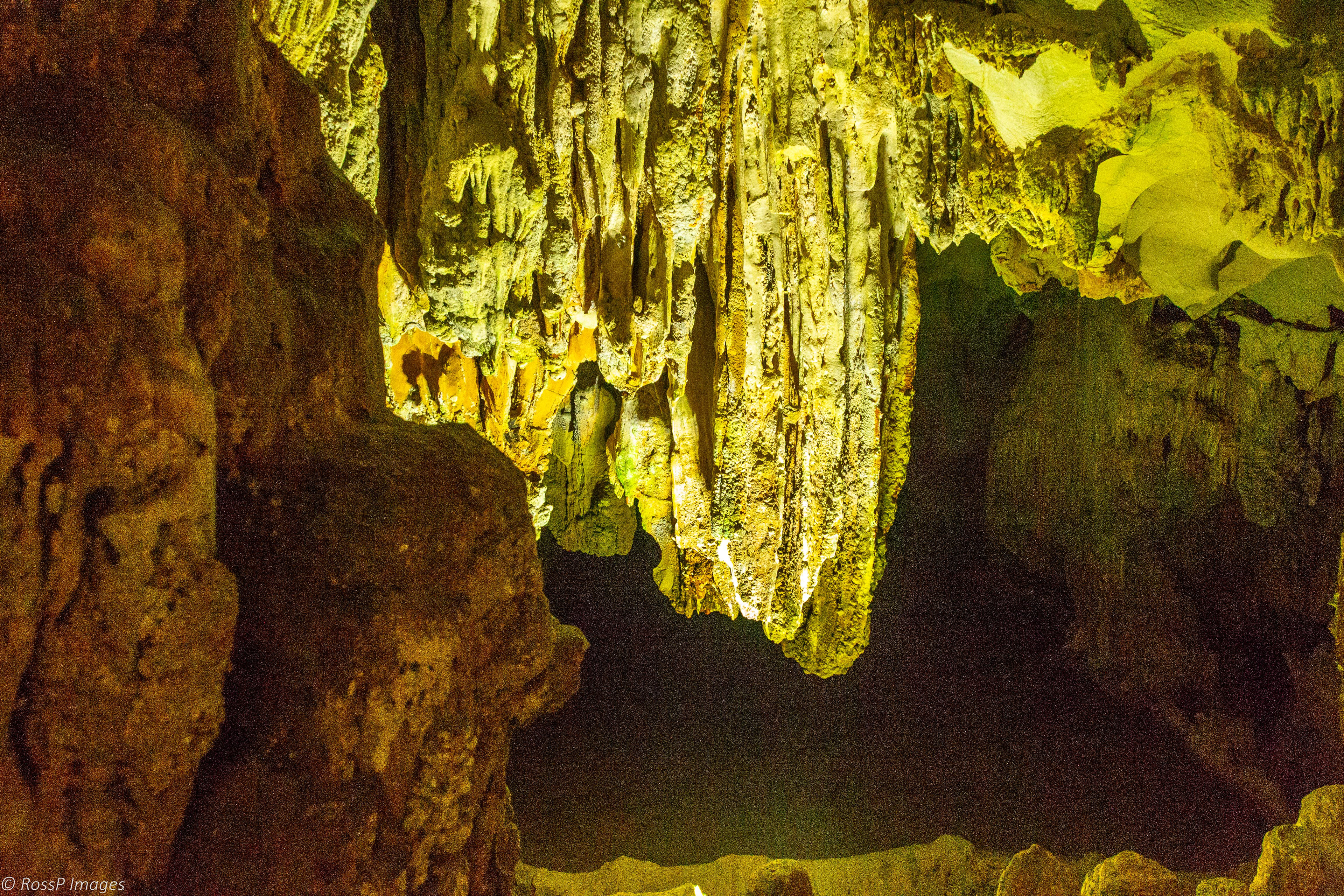
Mood lighting inside Hang Sung Sot cave.
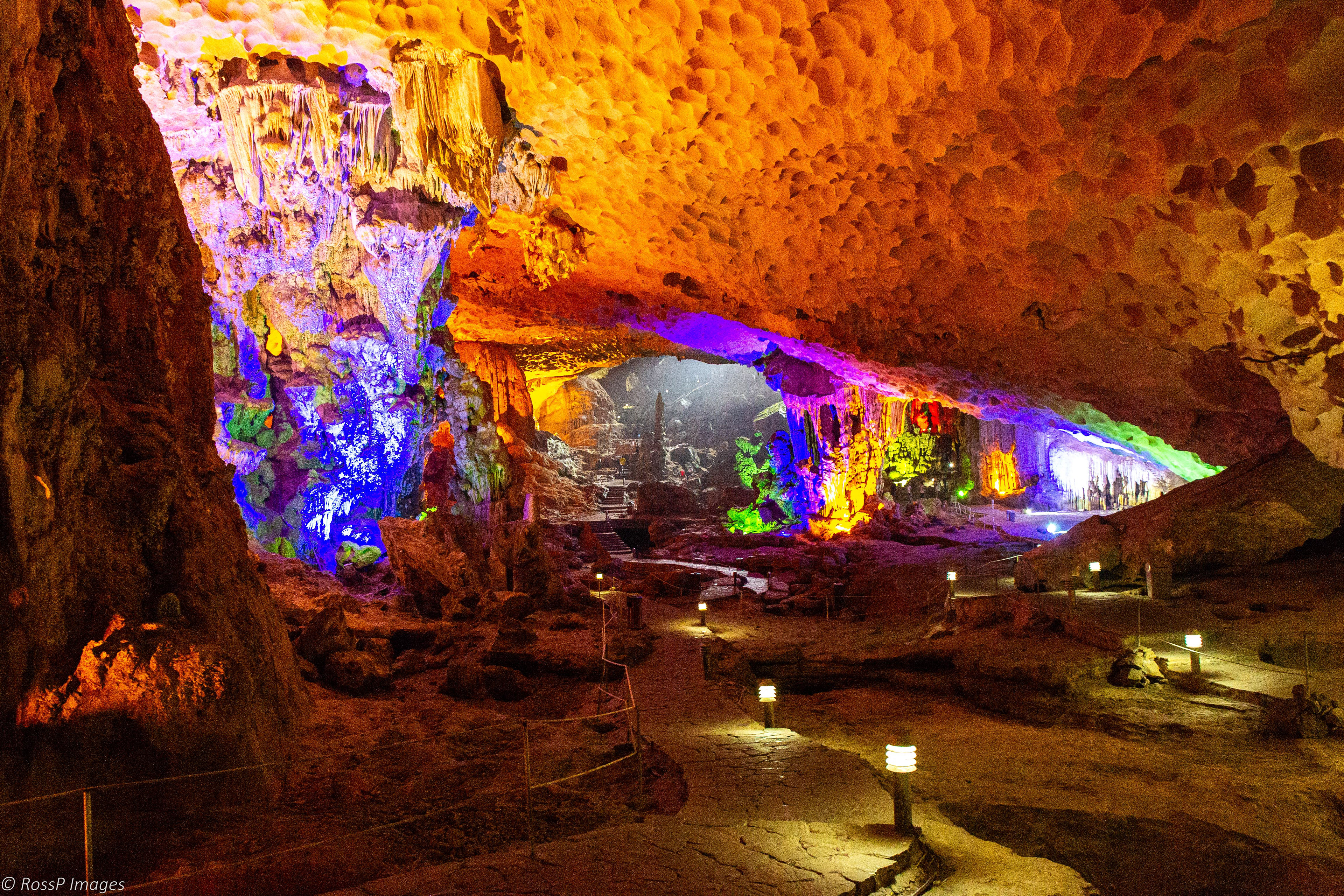
The vast interior of the cave system is an awe-inspiring sight highlighted by the multi-coloured lighting.
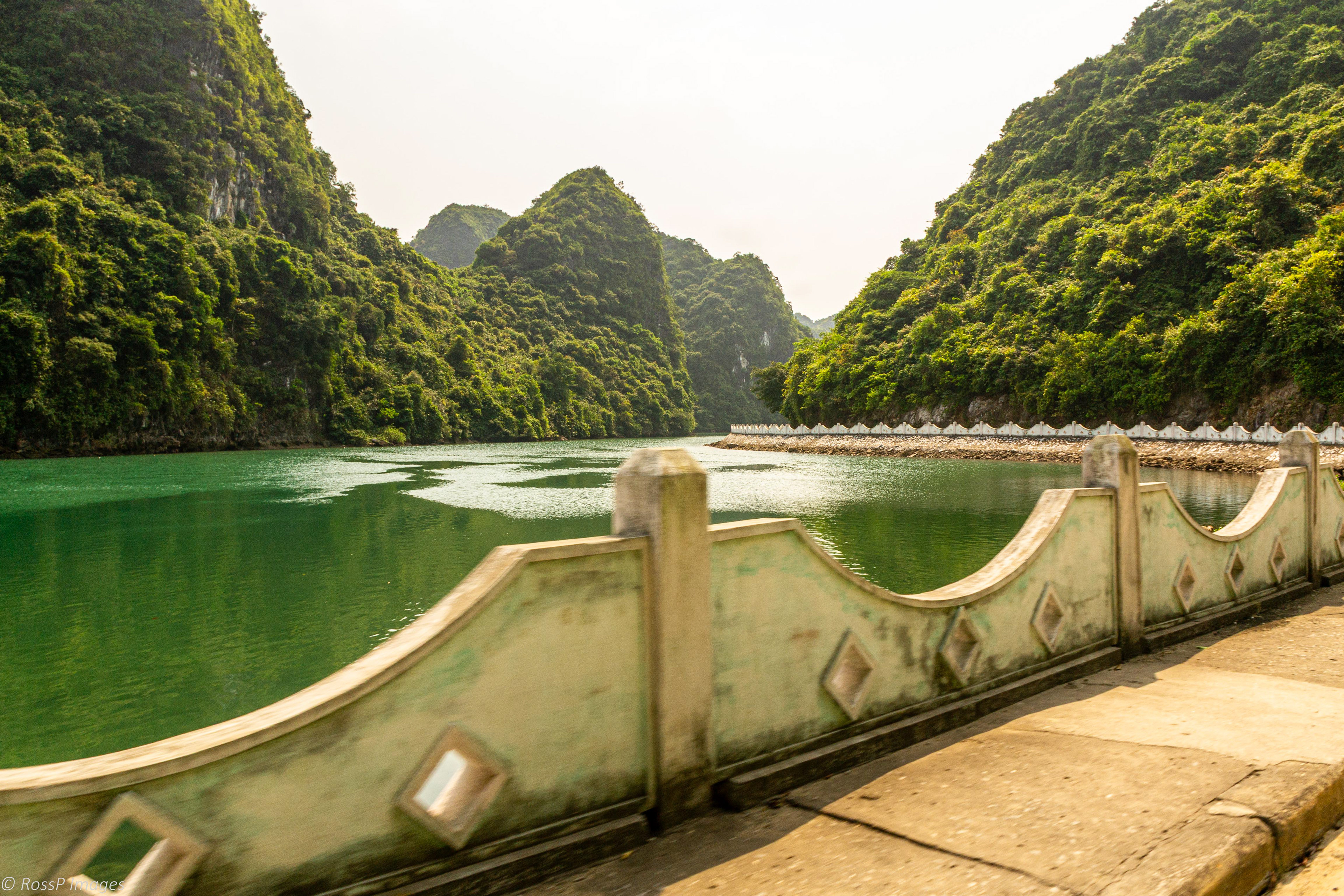
It's an mpressive entrance along the foreshore to Viet Hai Village located deep in Cat Ba National Park.
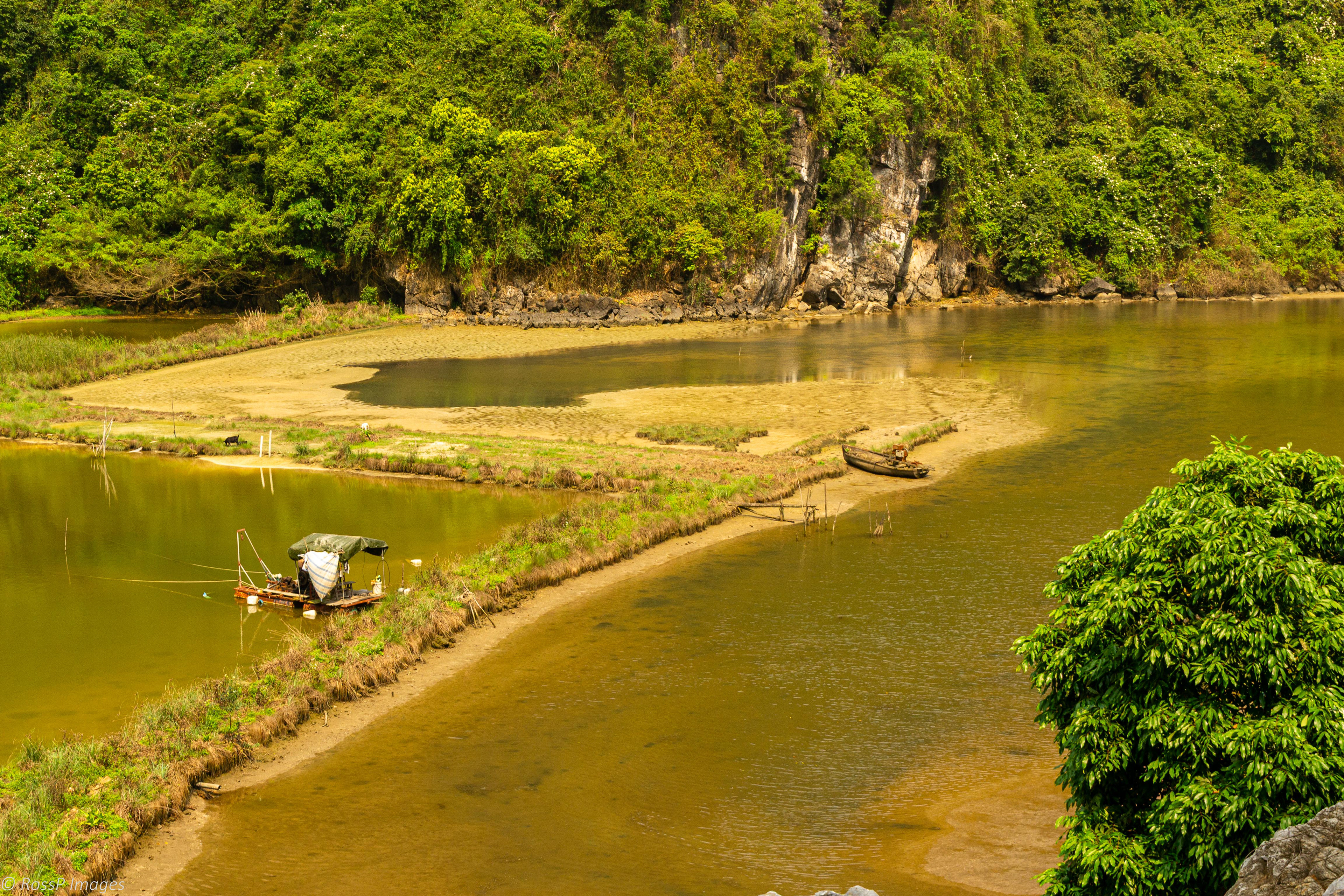
Ponded areas for aquaculture.
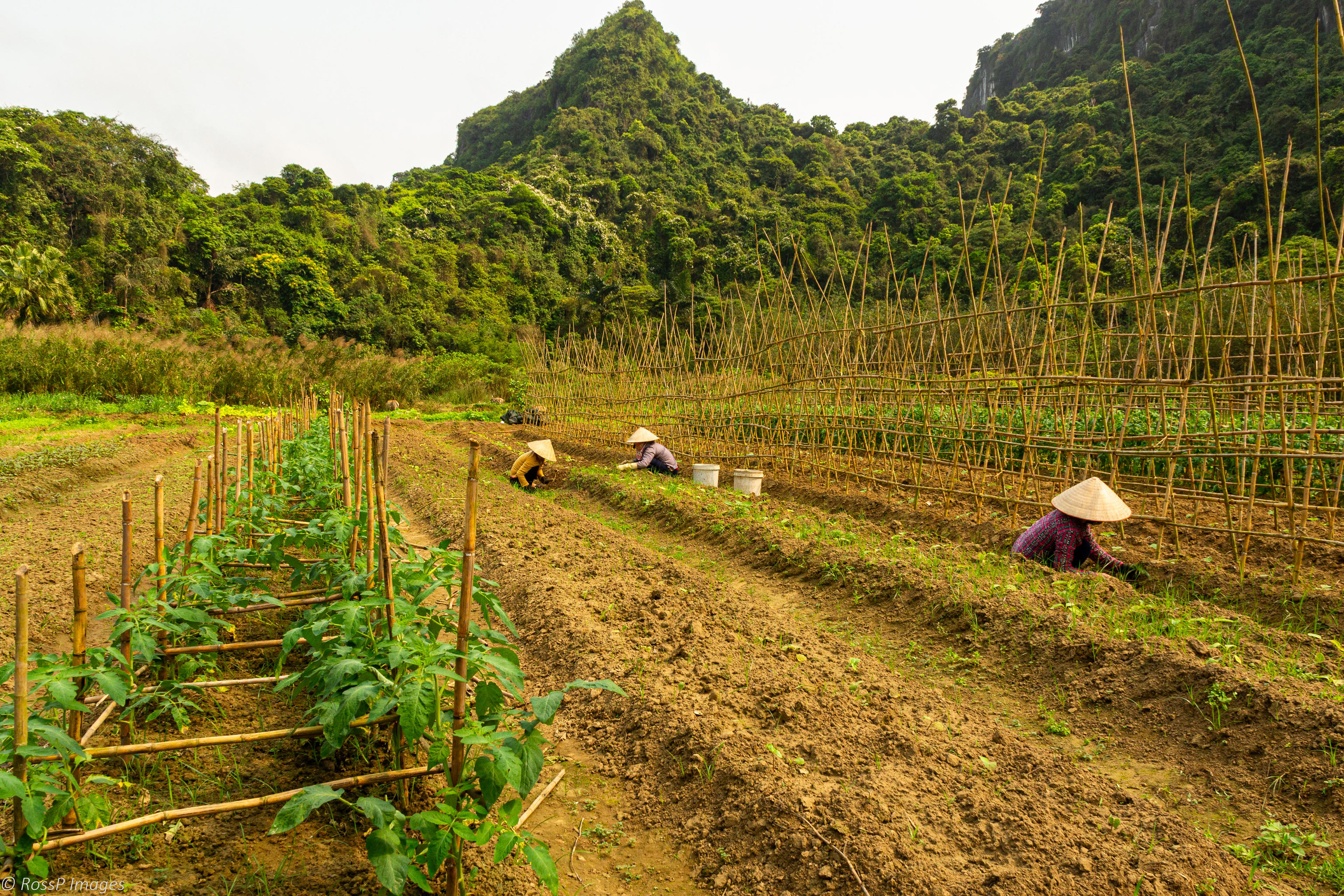
Women working in the market gardens near Viet Hai Village.
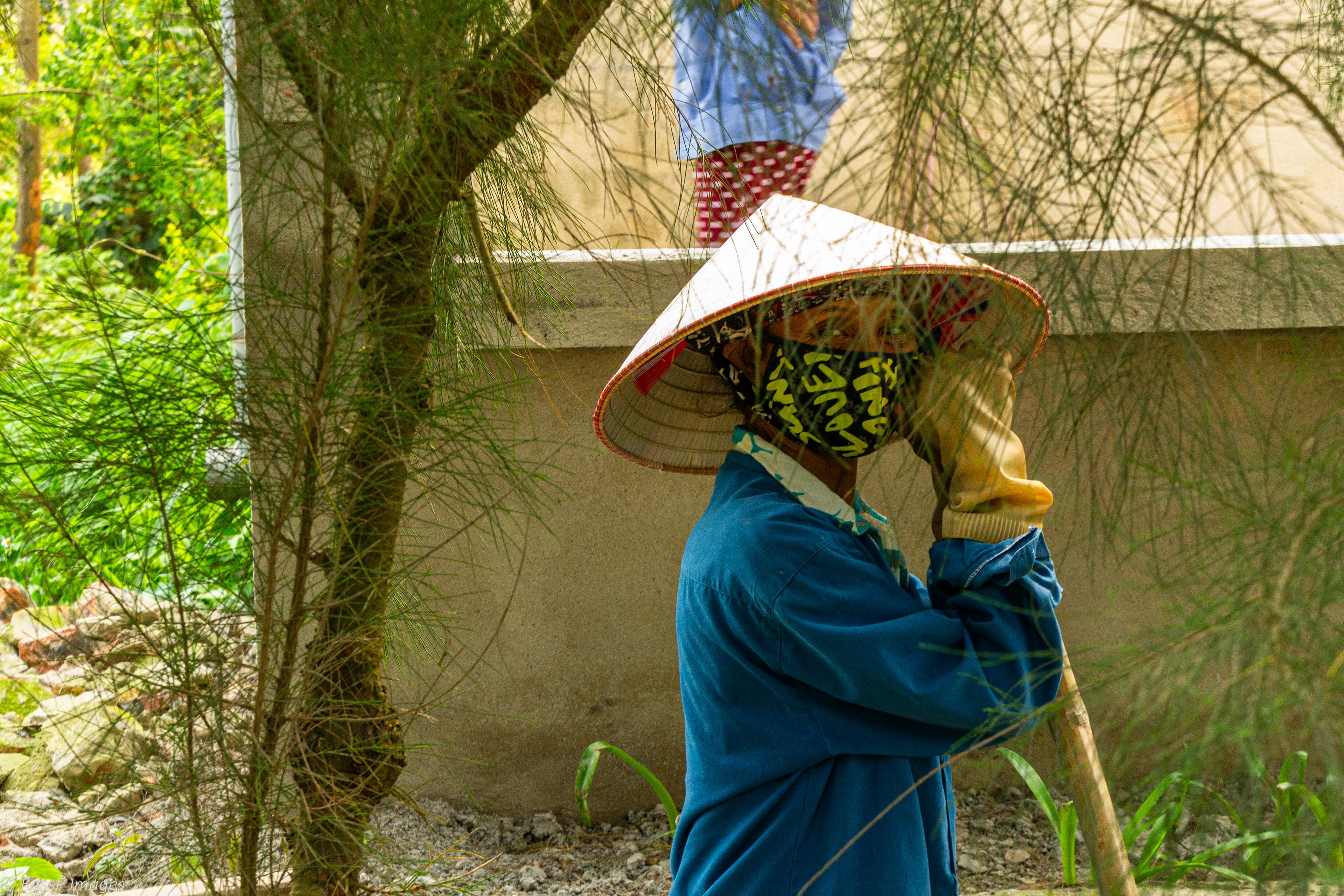
Cat Ba Woman, Viet Hai.
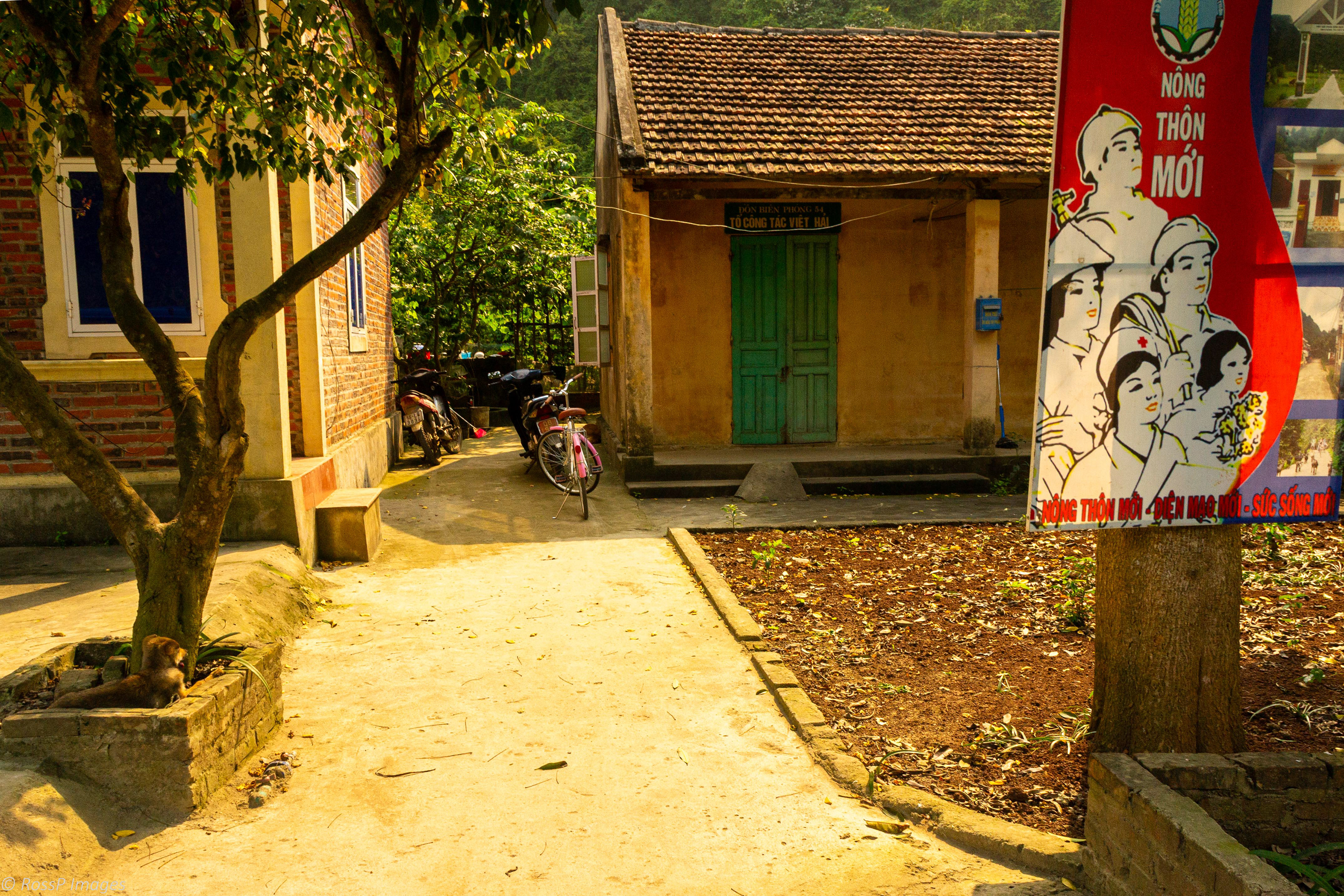
The village streets are deserted.

Young child looks on in interest as we wander through the village.
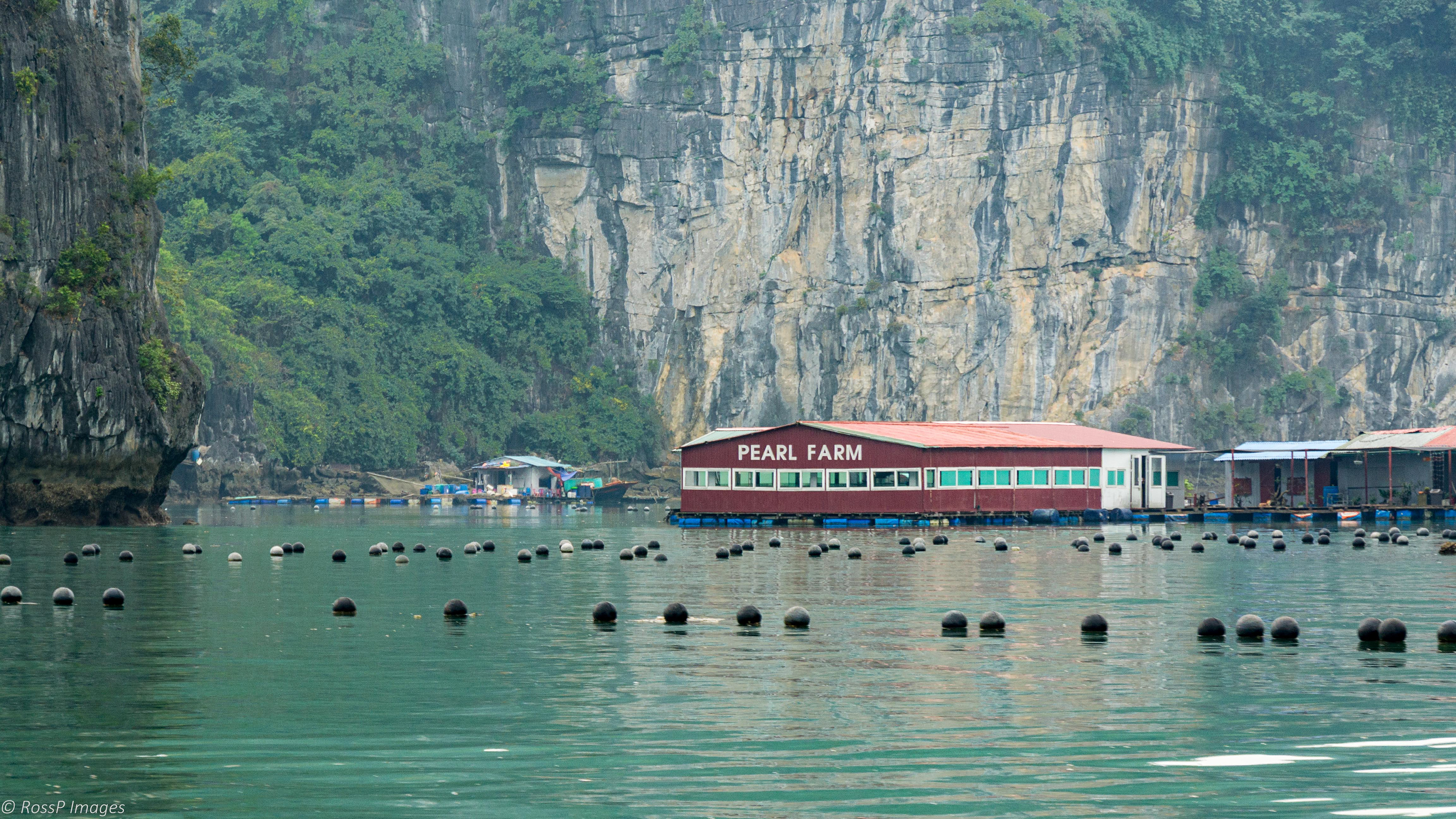
Pearling is one of the major industries in Ha Long Bay.
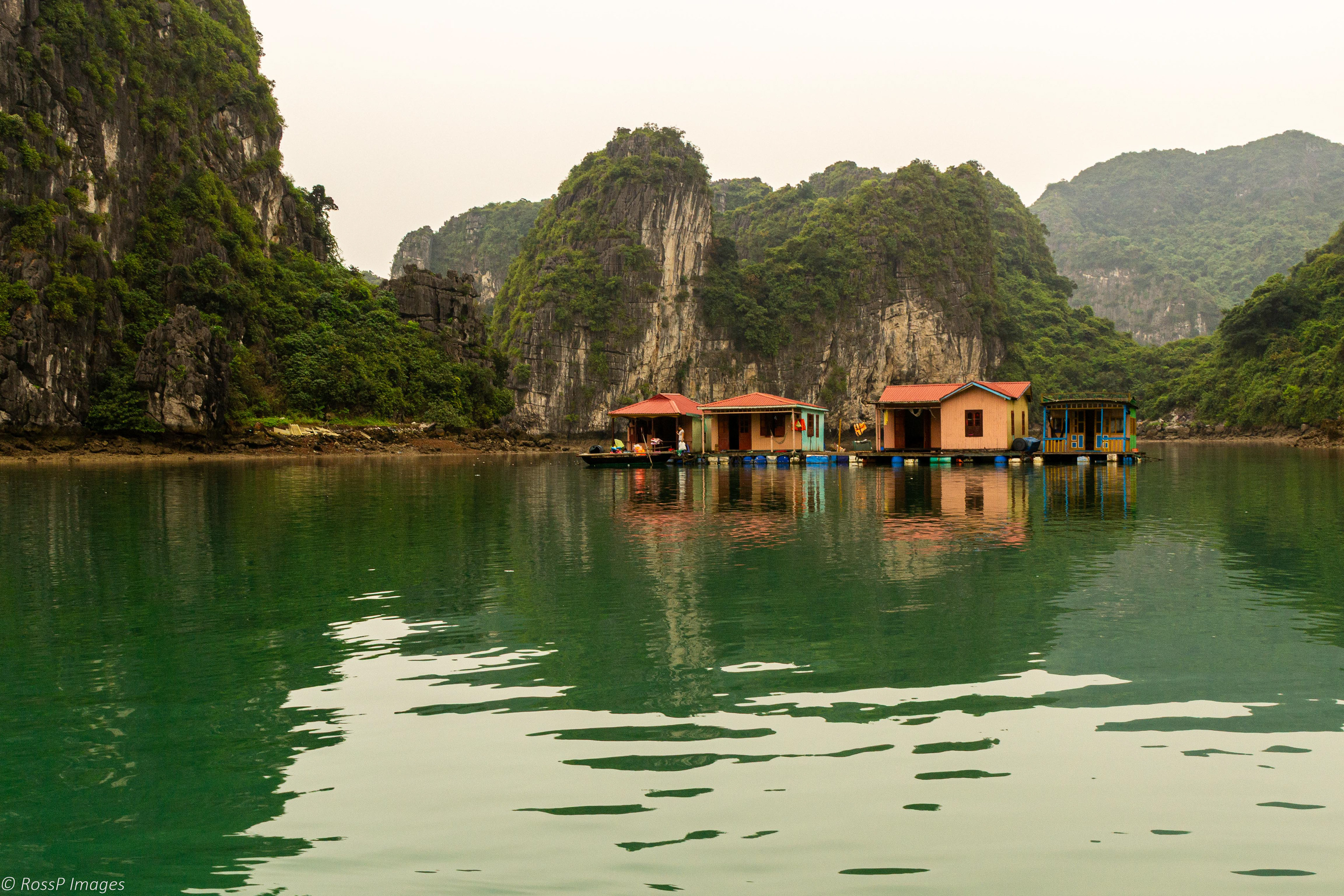
Floating homes of Ha Long Bay.
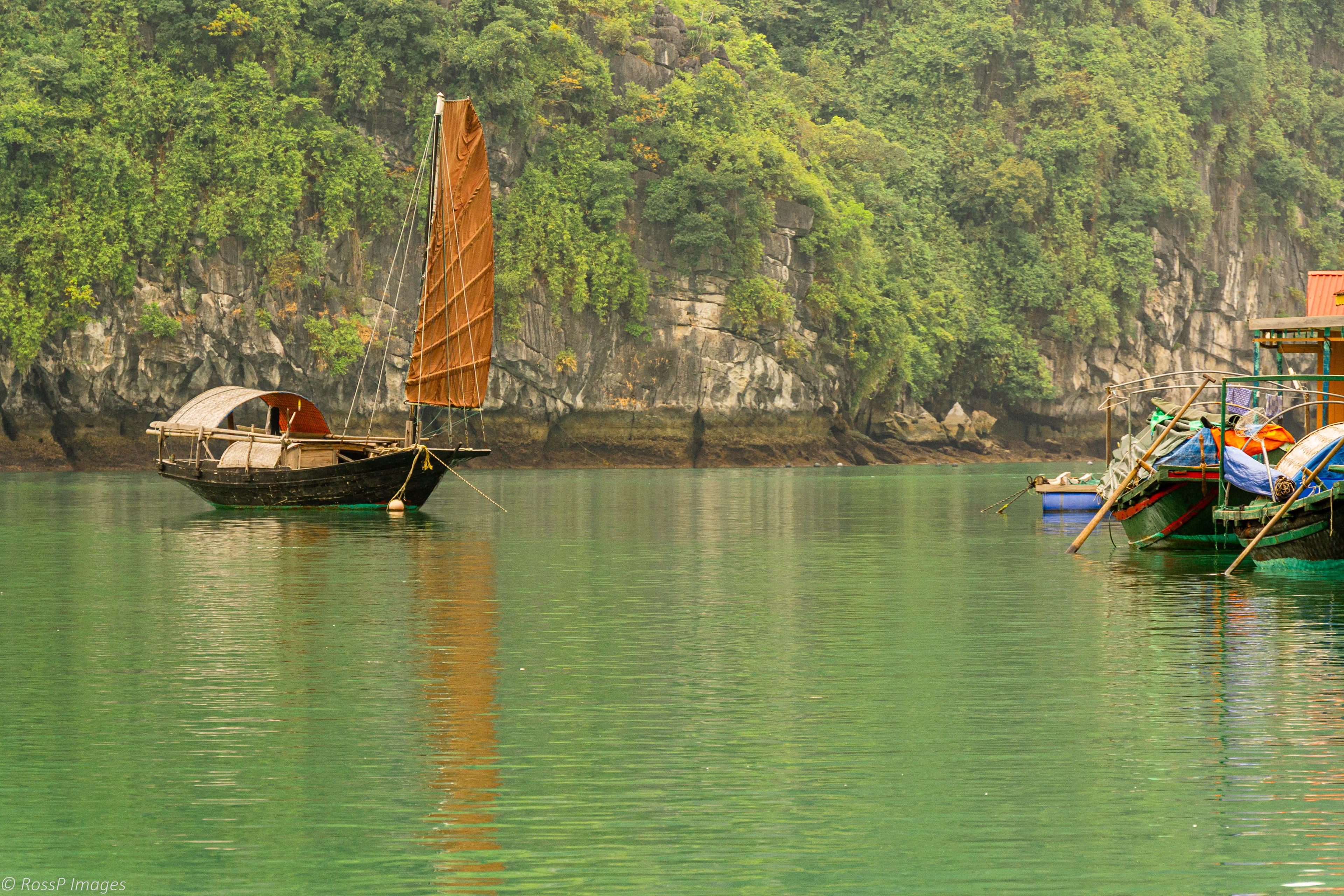
All types of boats are encountered on our journey.

Fishing boat anchored beside a floating house.
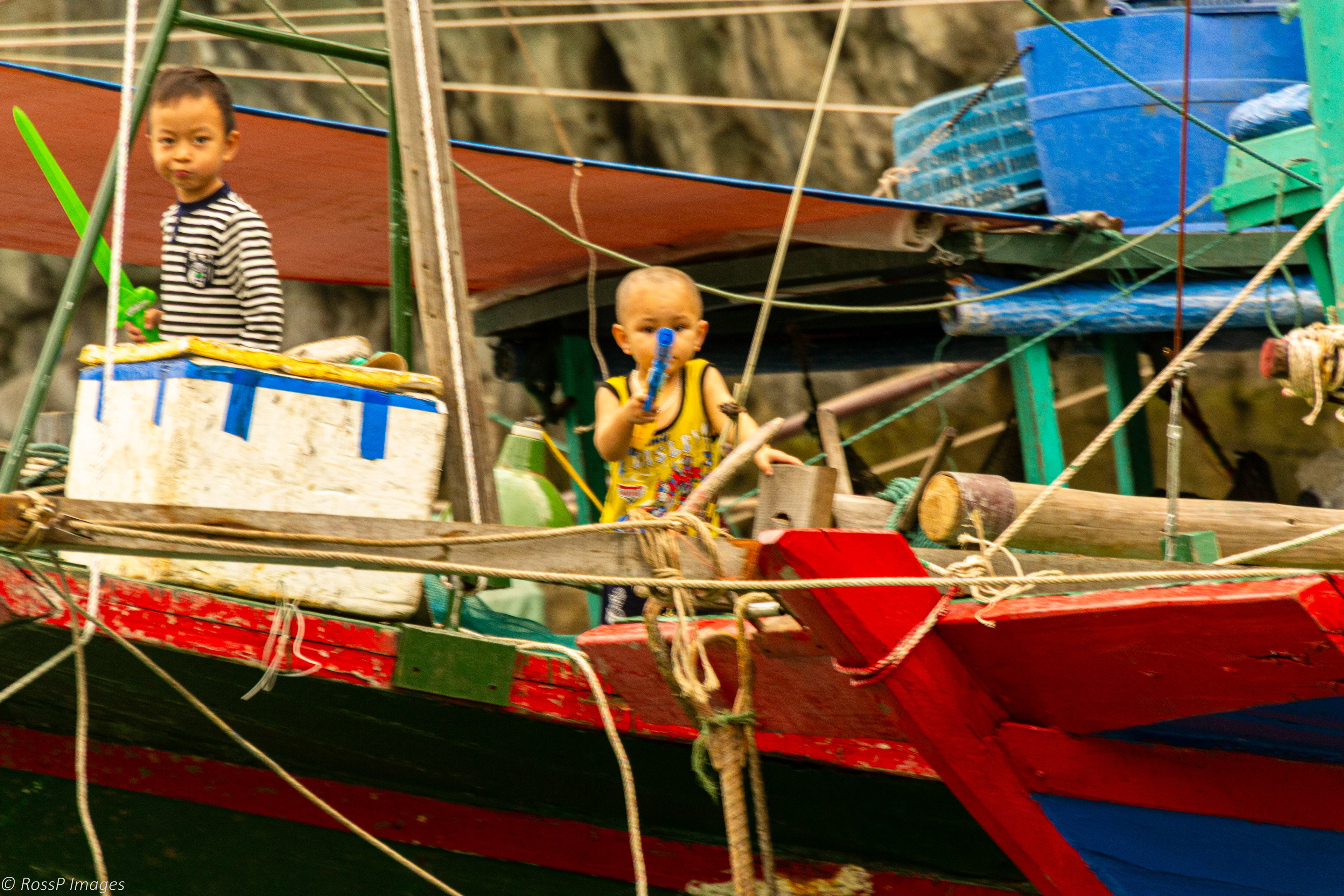
Ahoy there.................pirates at play.
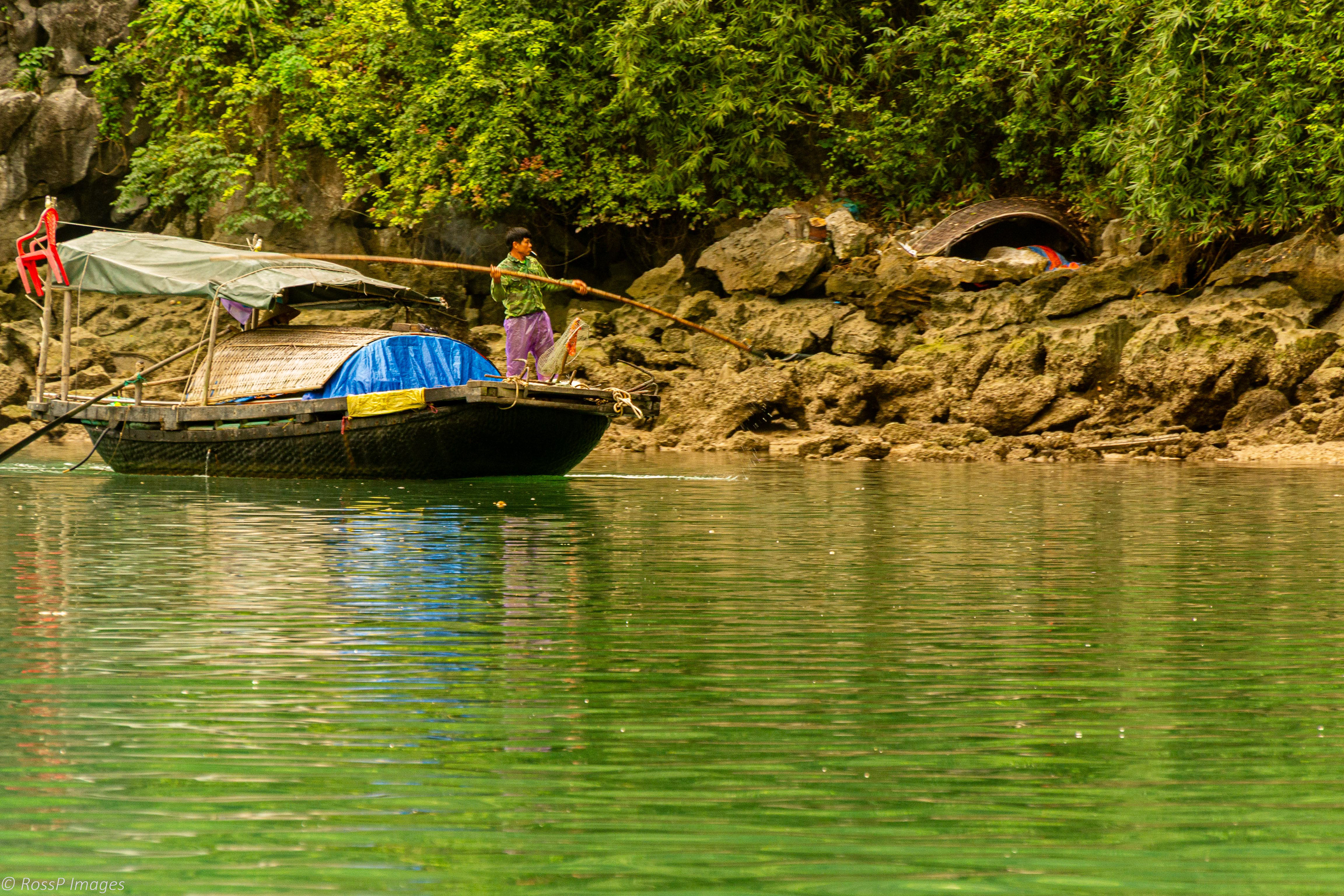
Spear fishing Vietnamese style.

Our water taxis waiting for us to board and tour the floating village.
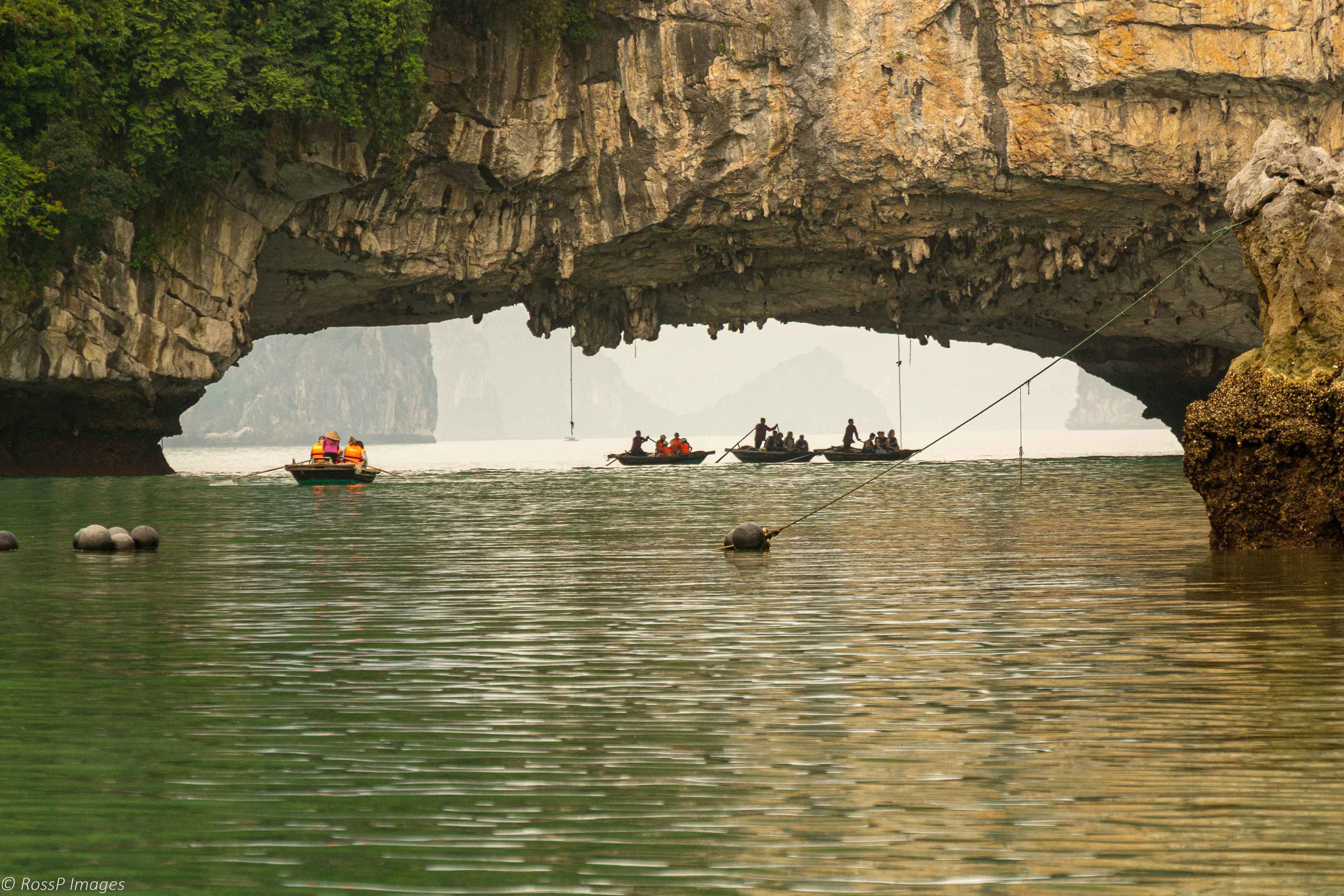
Exploring the natural wonders of the surrounding islands and arched openings by bay-style water taxi.
Hue
Our first point of call in Hue is the UNESCO-designated Hue Citadel, a complex of imperial palaces, tombs and temples. Inside its moat and thick stone walls the complex encompasses the Imperial City of Hue and the Forbidden Purple City (once the Emporer's home).
Hue Citadel & Imperial City
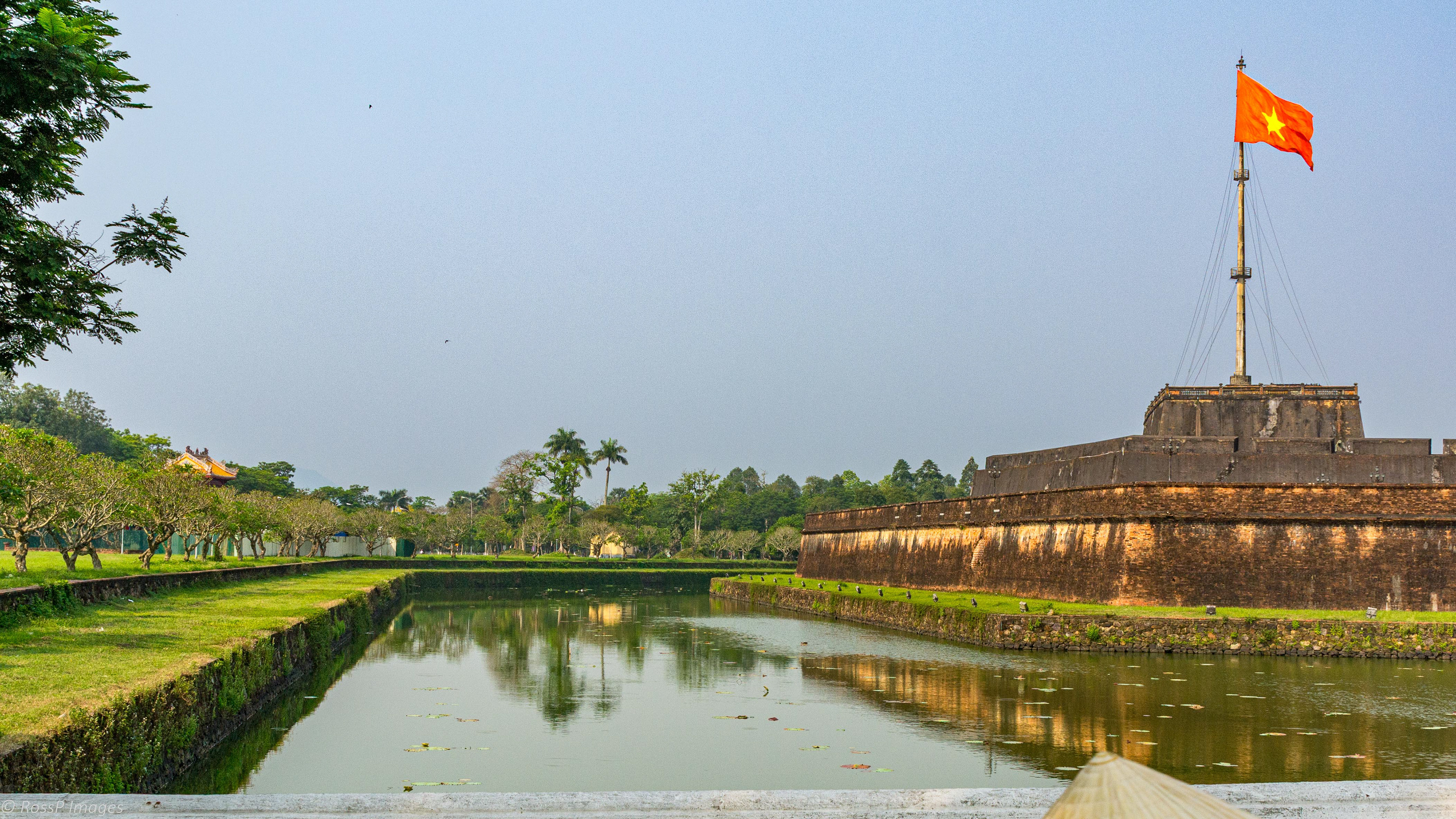
Stage of Flag (Ky Dai) - a huge Vietnamese flag flies over the Imperial City of Hue, located within the citadel walls and moat.
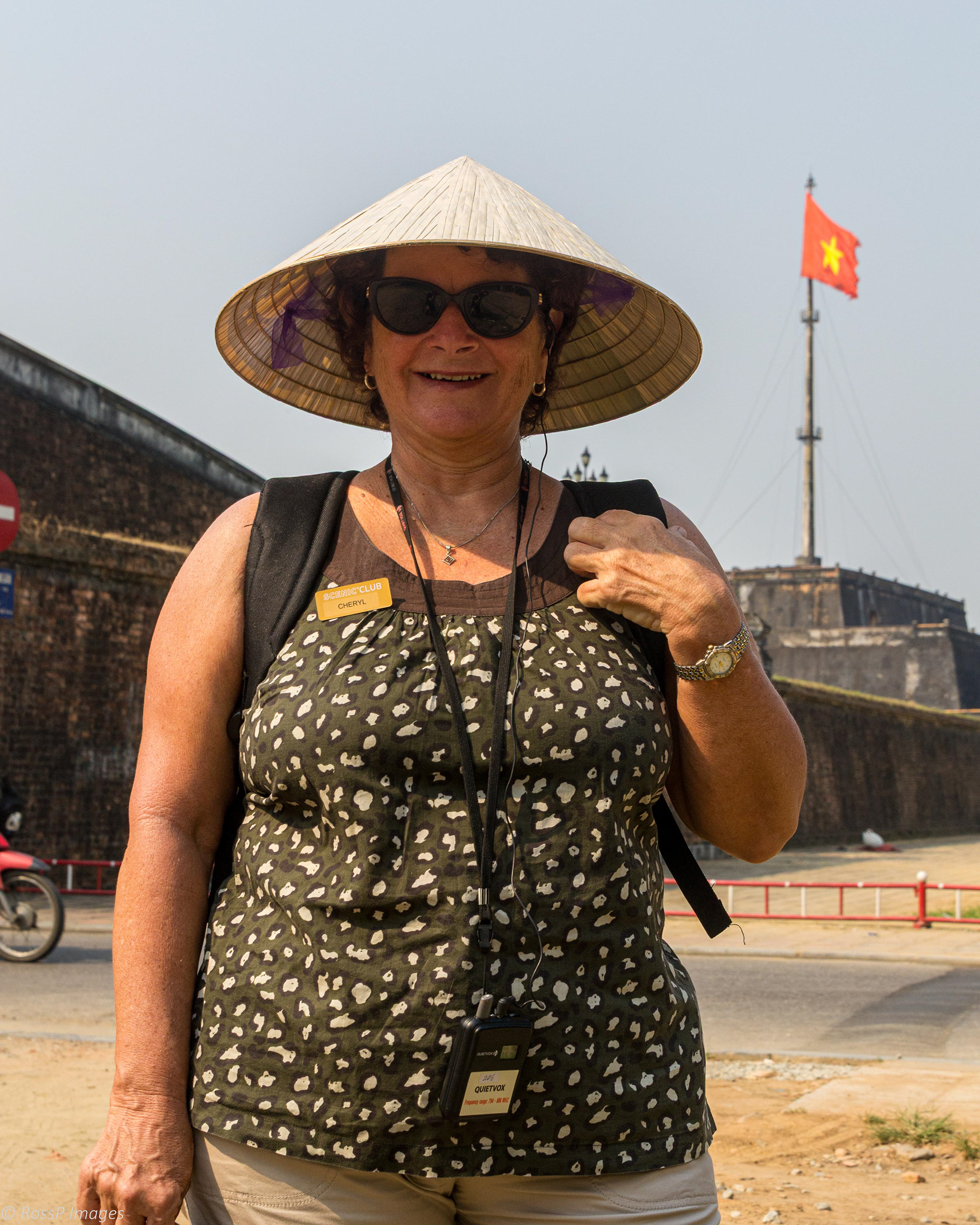
Cheryl sporting a Vietnamese conical palm-leaf hat (Non La)

We enter through Thuong Tu gate through fortified ramparts protecting the Imperial City and the Purple Forbidden City.
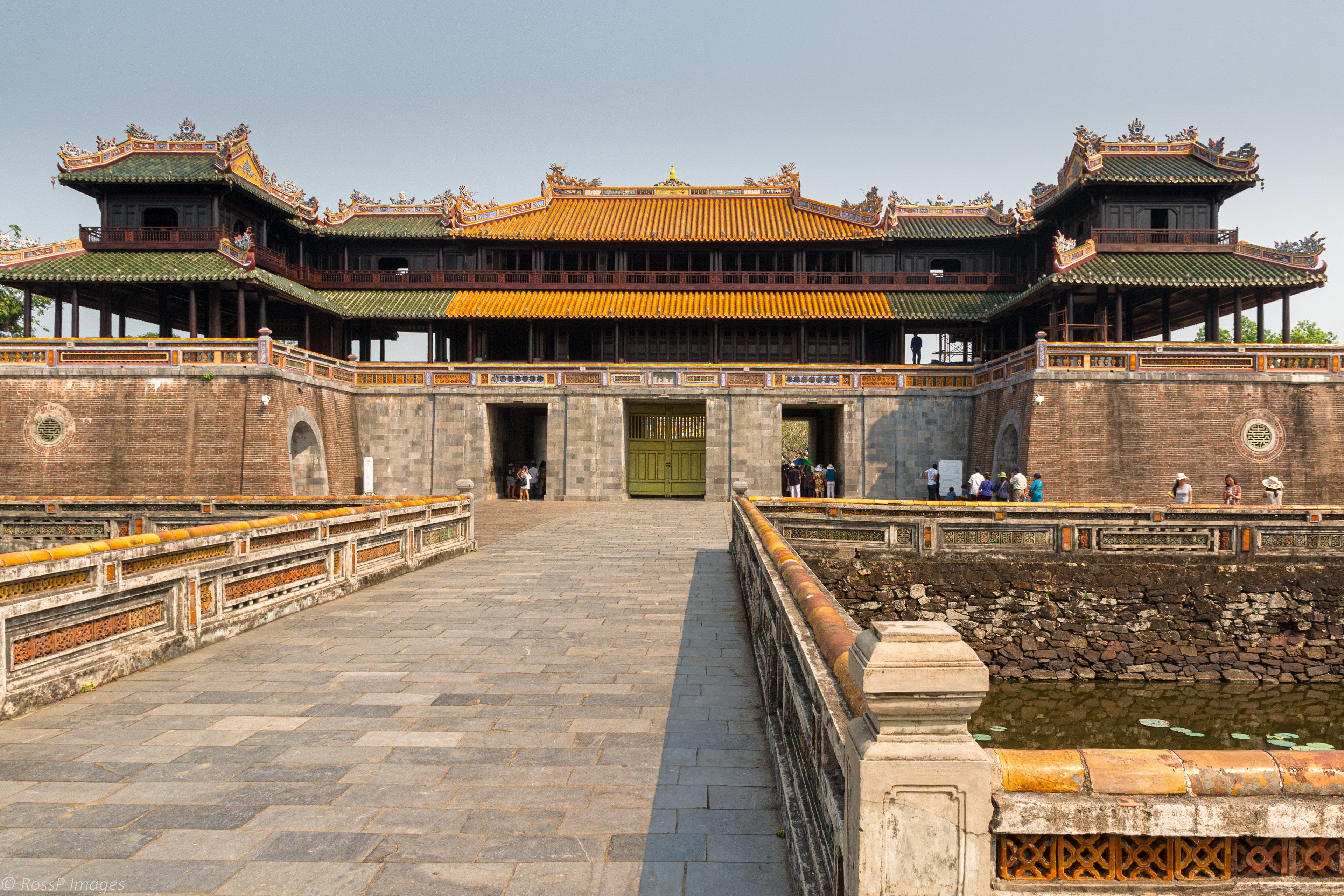
Ngo Mon Gate (or Merdian gate), the main entrance into imperial palace.

Thái Hòa Palace (Hall of Supreme Harmony).

The courtyard in the front of Thai Hoa Palace.
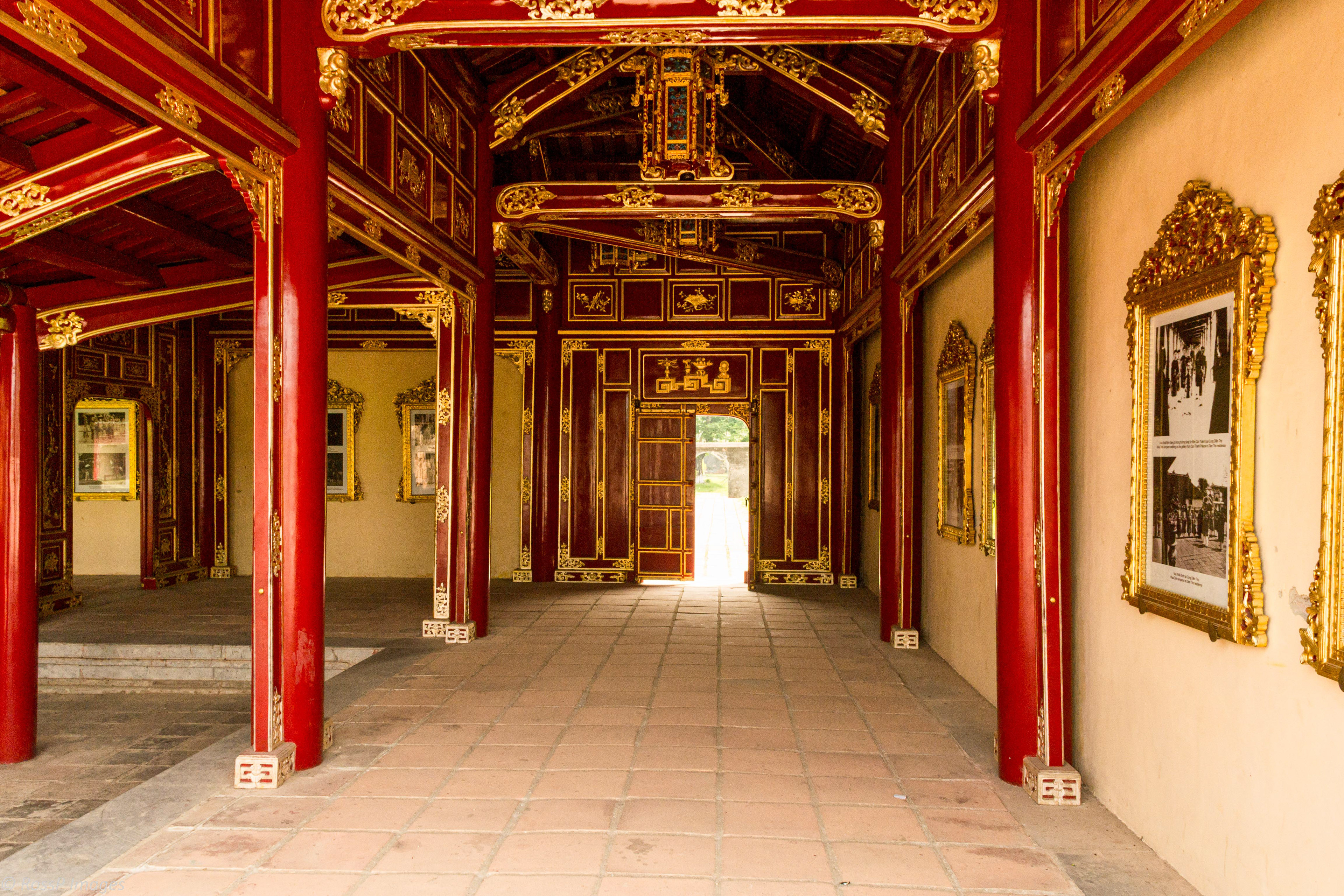
The timber in the palace is all ironwood, carved, and painted very elaborately.
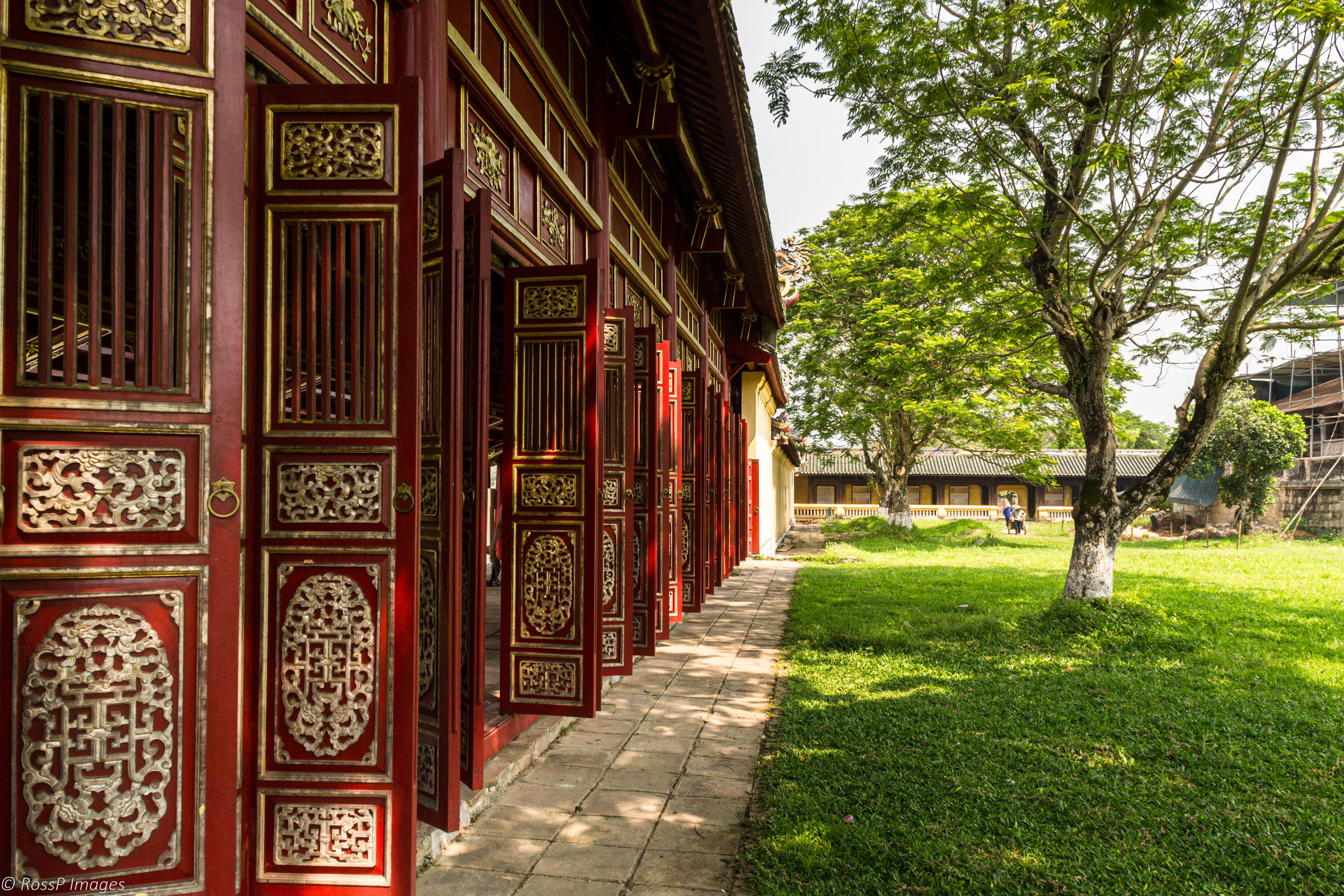
Courtyard beyond the elaborately gilded doors.
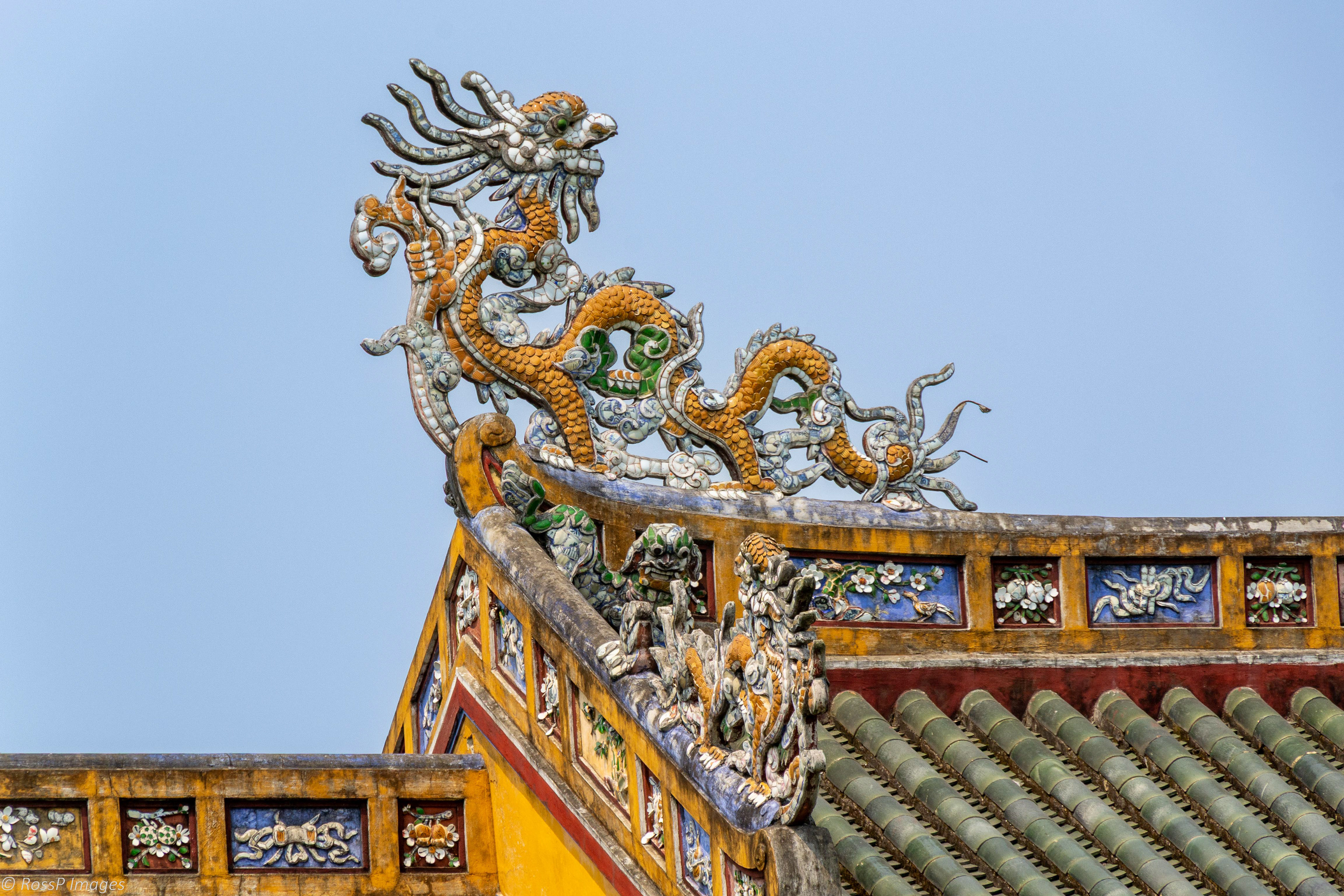
The roof originally covered with the yellow royal ceramic tiles. The decoration on the roofs is all about dragons, the symbol of the power of the emperor.
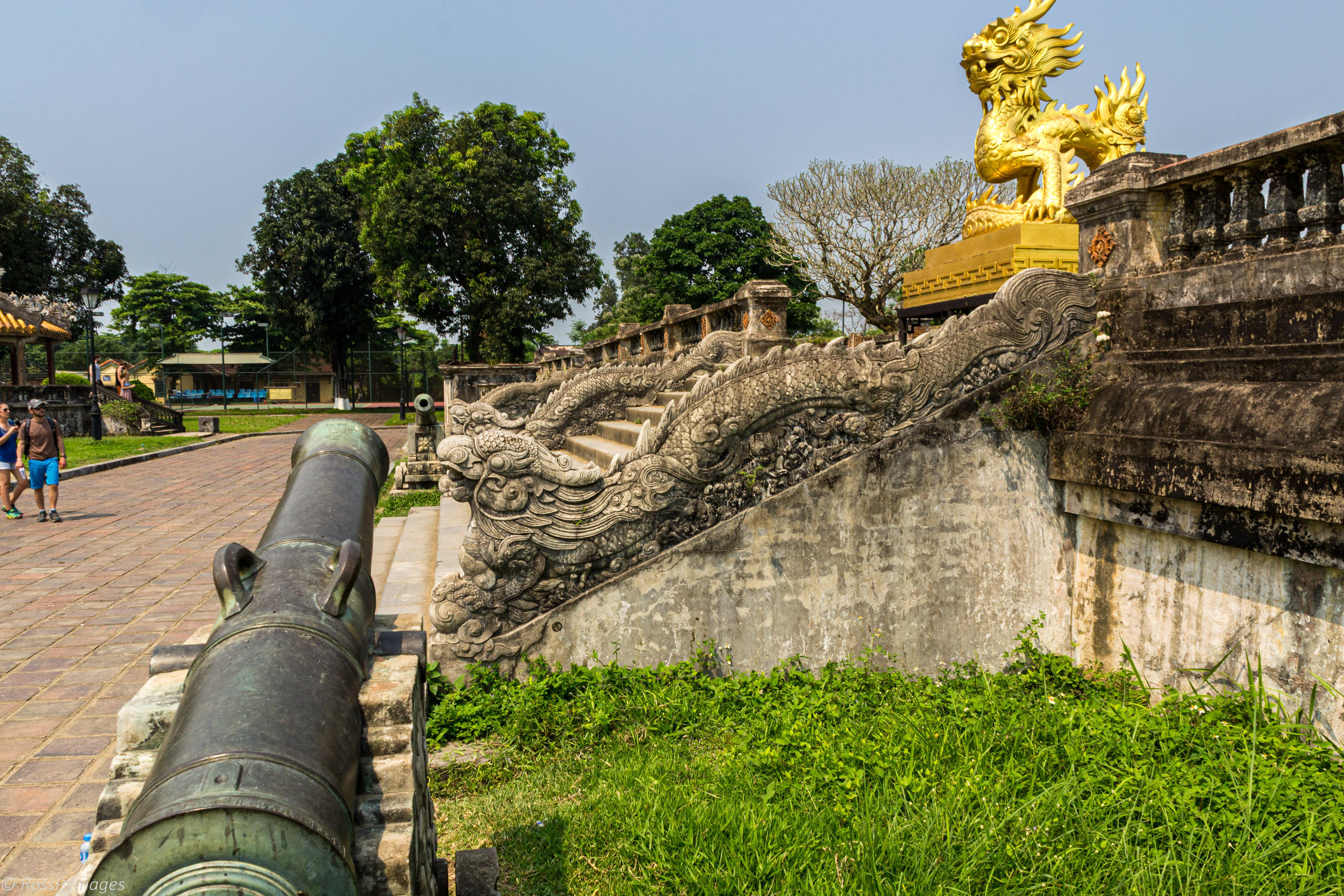
A golden dragon sculpture stands on the terrace of the garden of the fobidden city just behind the Supreme Palace of Harmony.
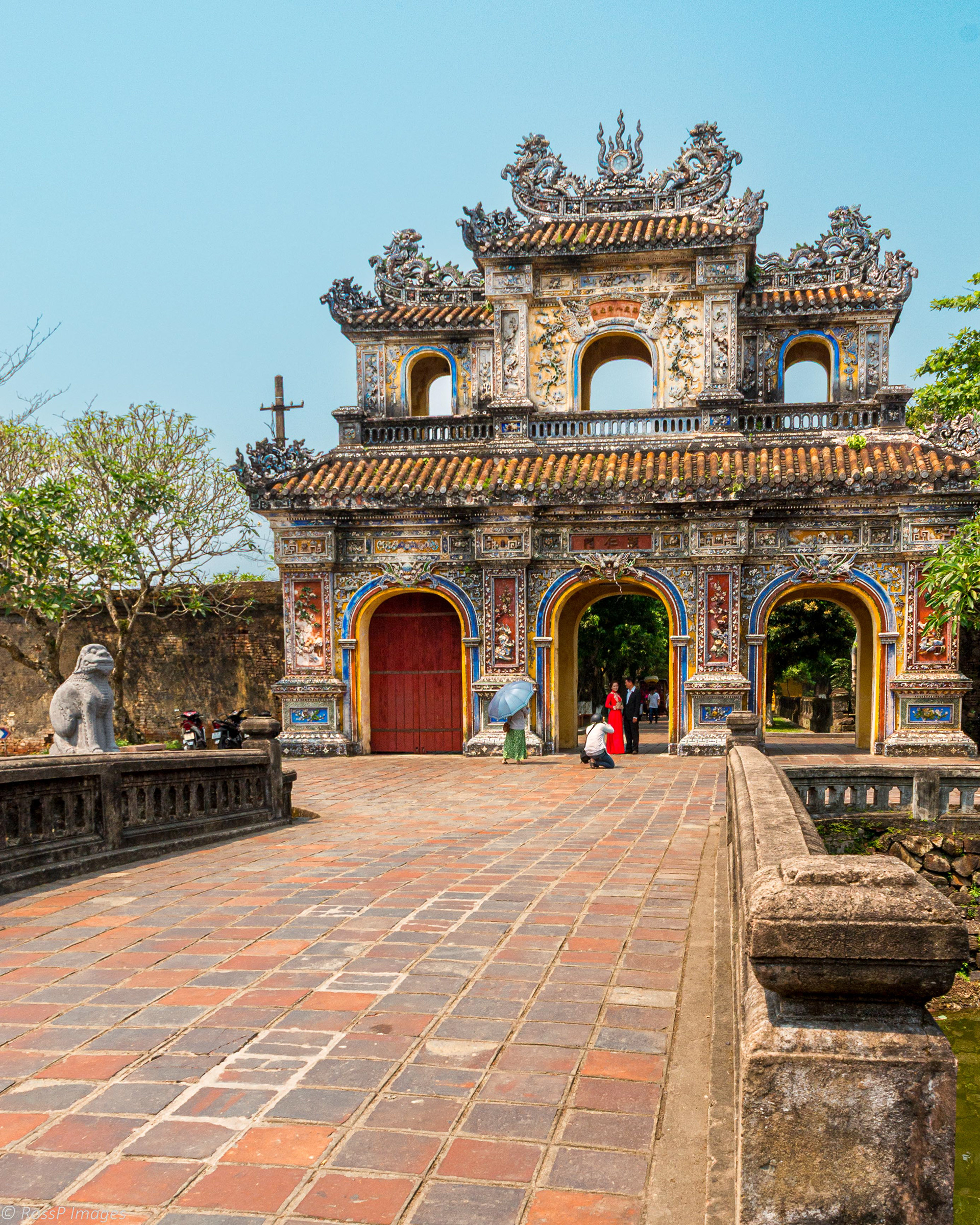
Hien Nhon Gate, eastern gate. Only used by men as women are forbidden to enter through this gate. Today it's a popular backdrop for wedding photoshoots.
Thien Mu Temple, Hue
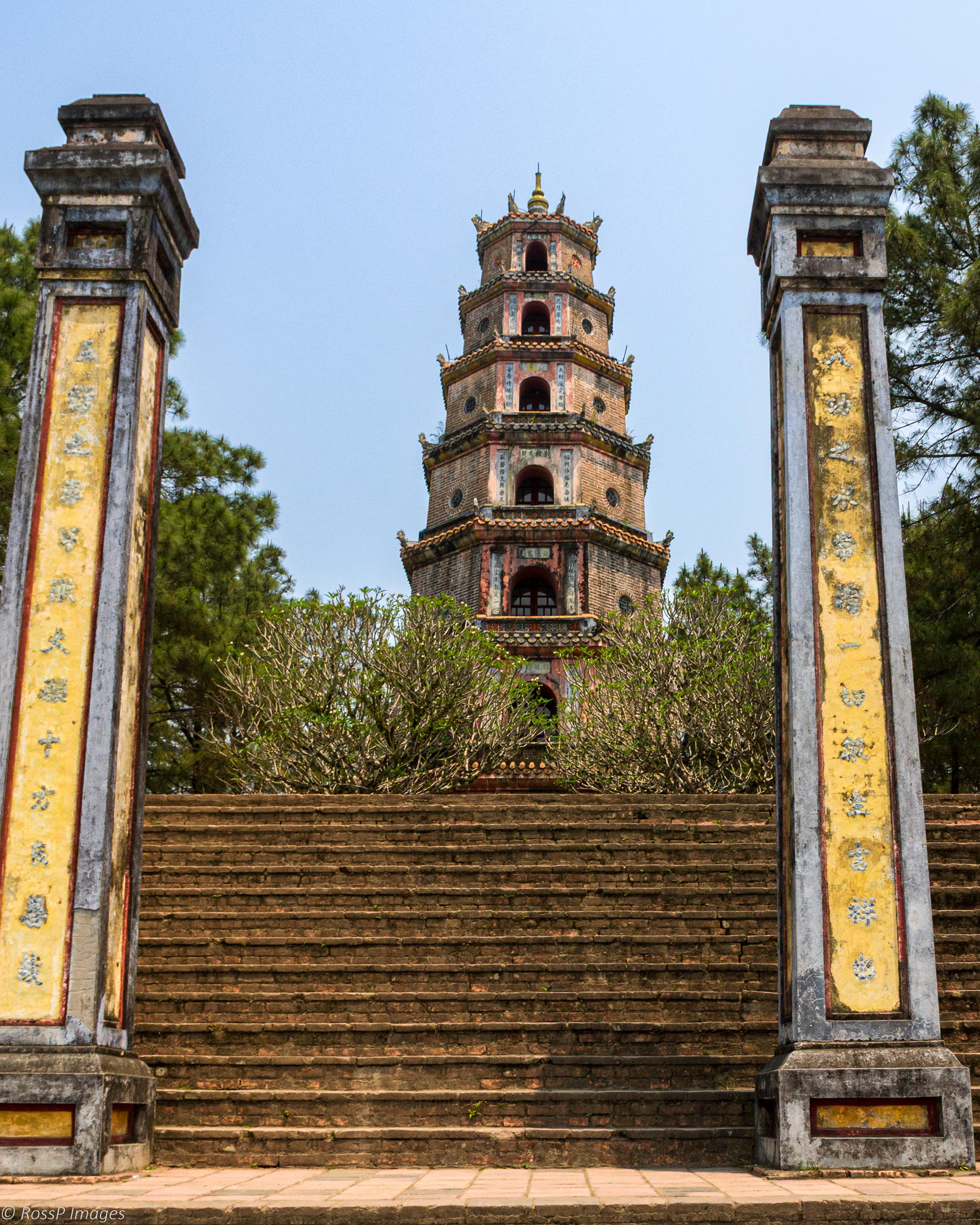
Thien Mu Temple is a seven storey pagoda regarded as the unofficial the “symbol” of the city of Hue.
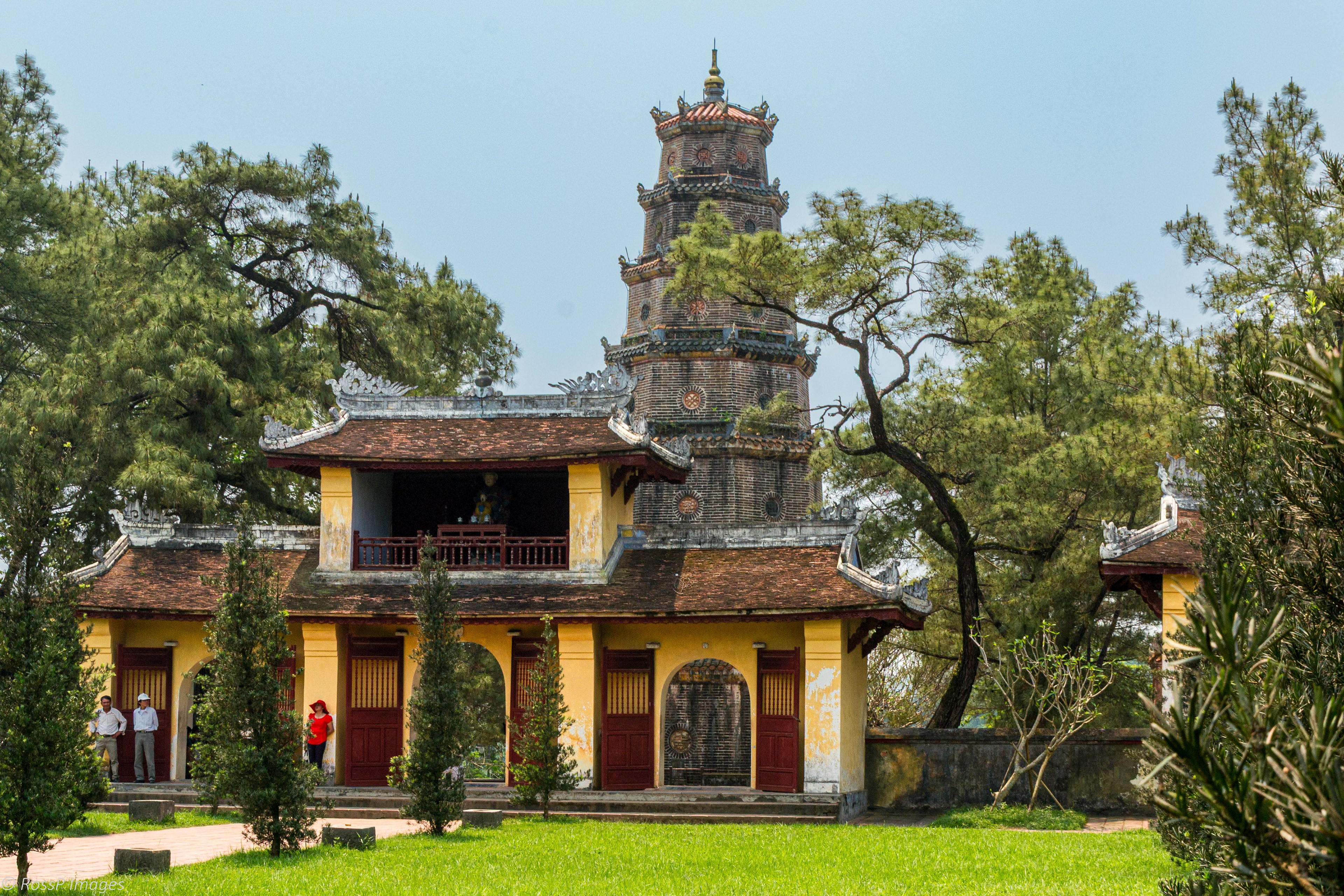
The gate of Thien Mụ Pagoda and Phuoc Duyen Tower is seen from the inside.
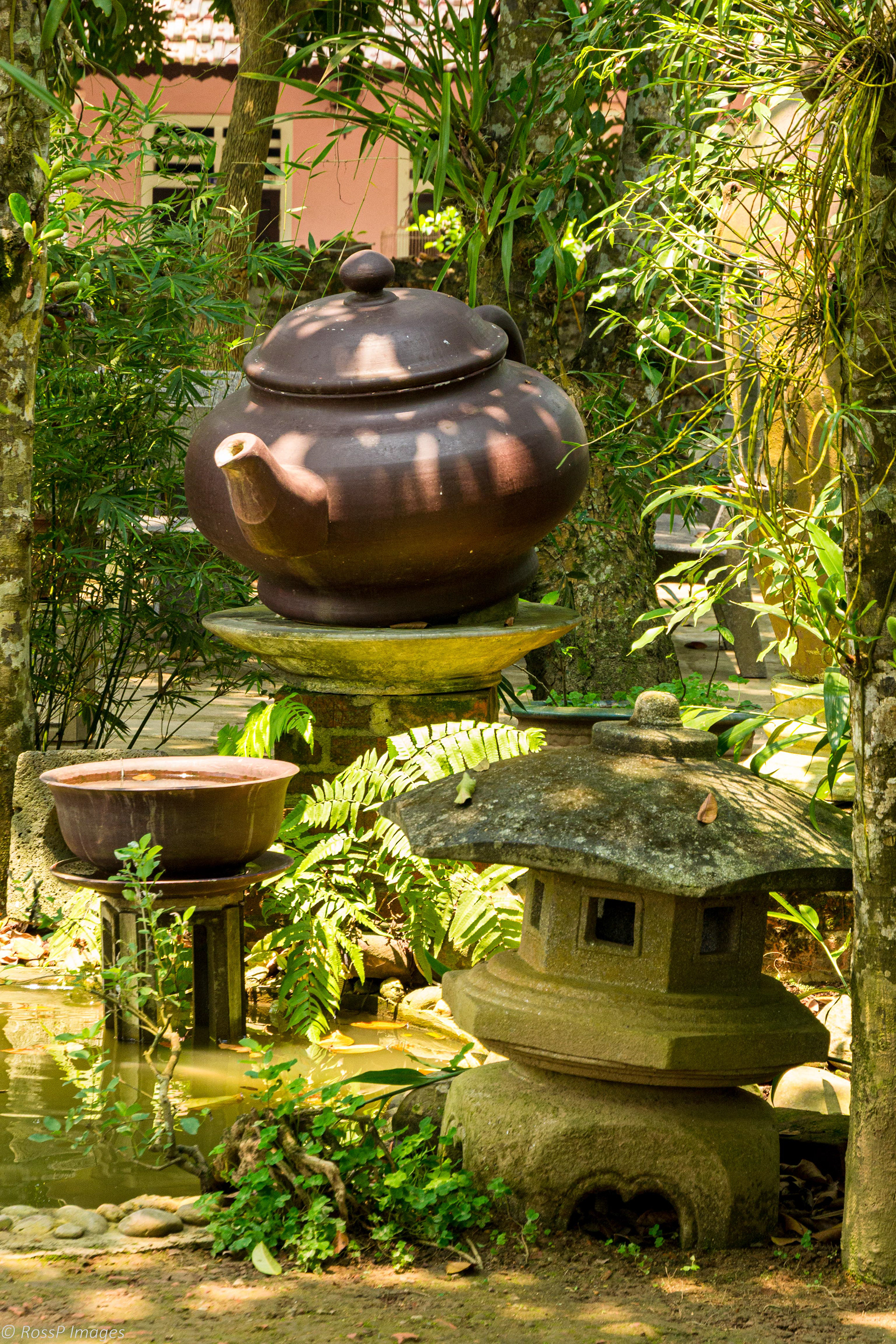
"I'm a little teapot"- Garden ornaments of Thien Mu grounds.
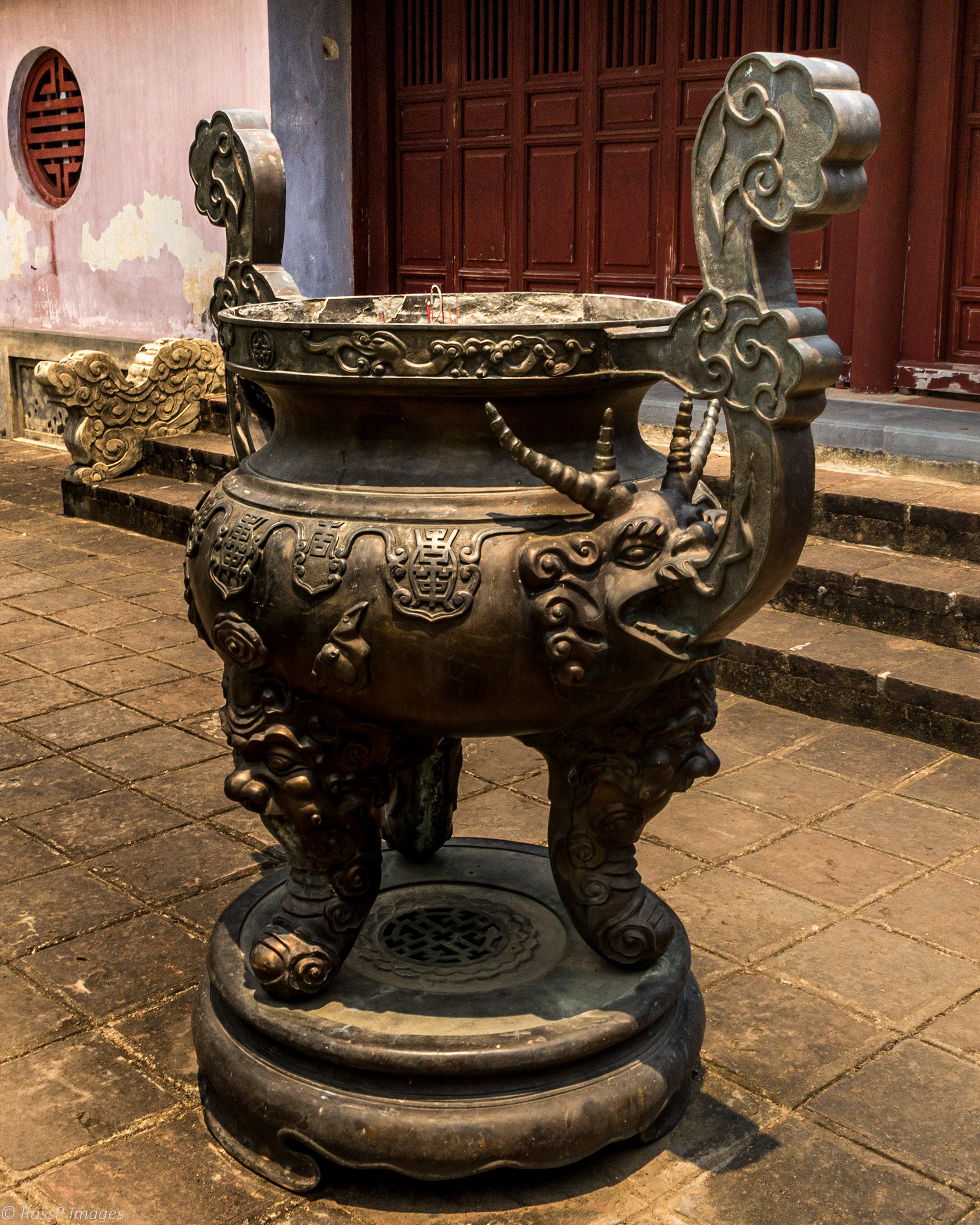
A giant bronze incence urn.
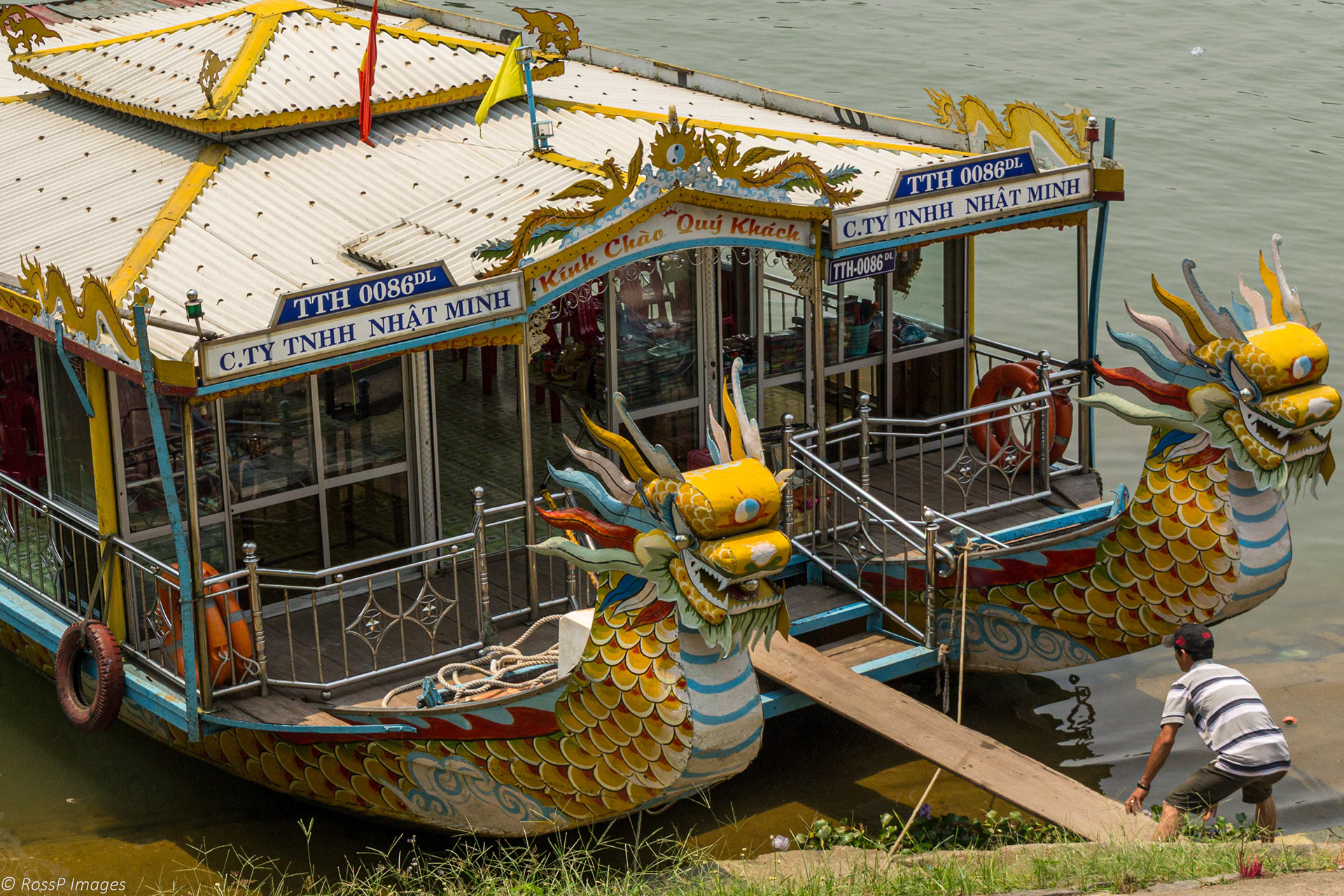
Preparing a Dragon Boat for tourist trips on the Perfume River. The boat is home to the family who operates them.
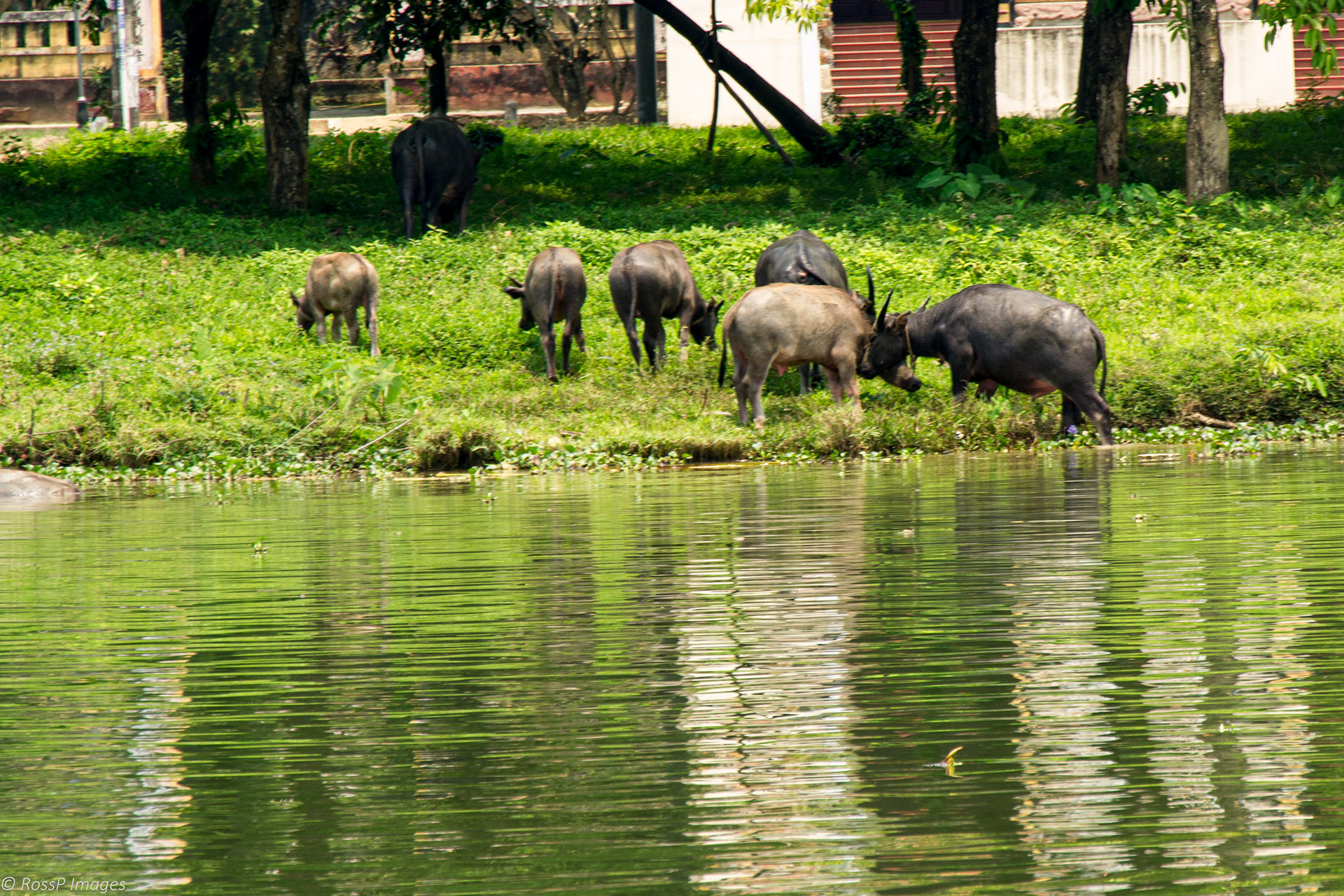
Water buffalo graze on the banks of the Perfume River.
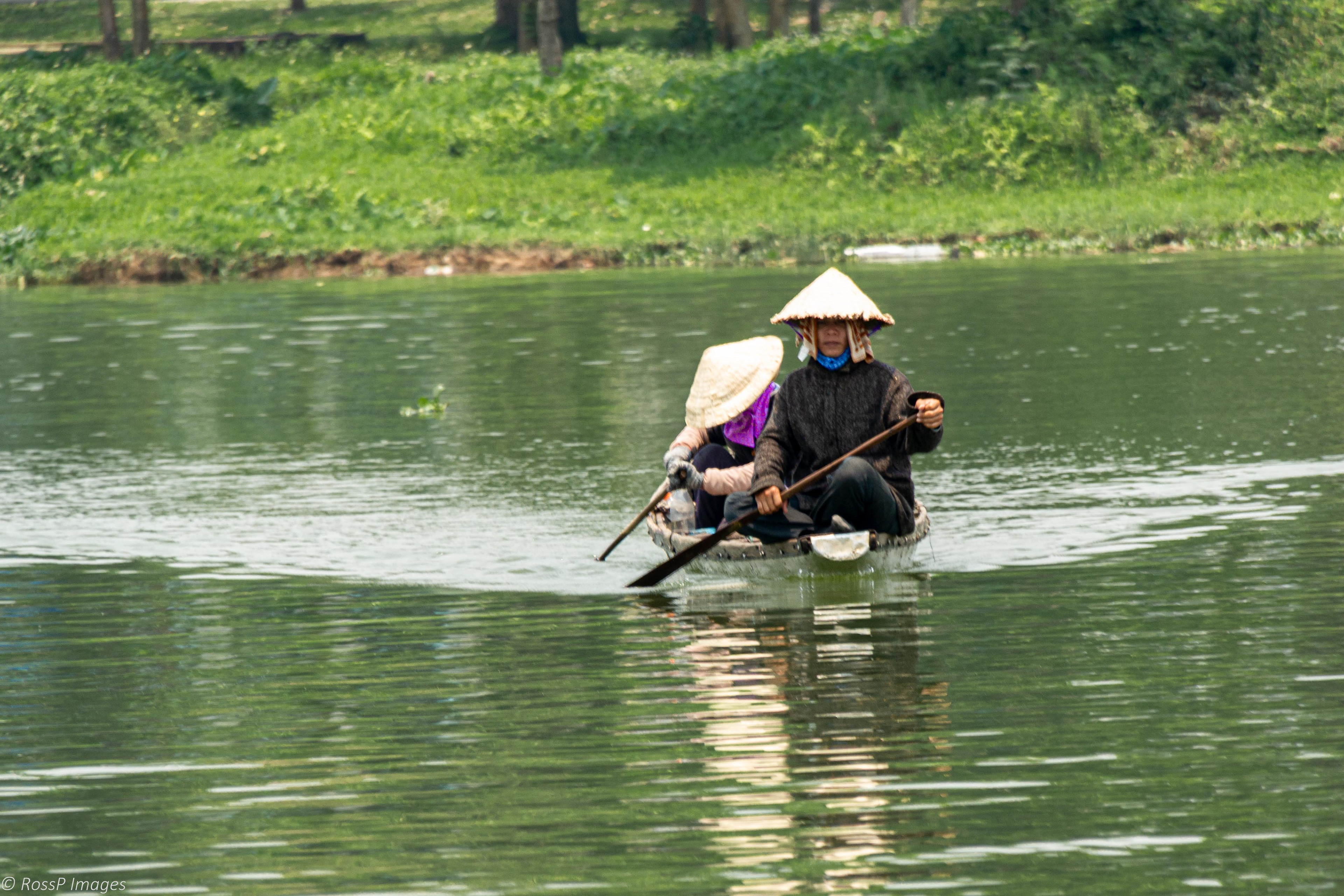
Vietnamese women paddling a canoe on the Perfume River.
Minh Mang Tomb, Hue
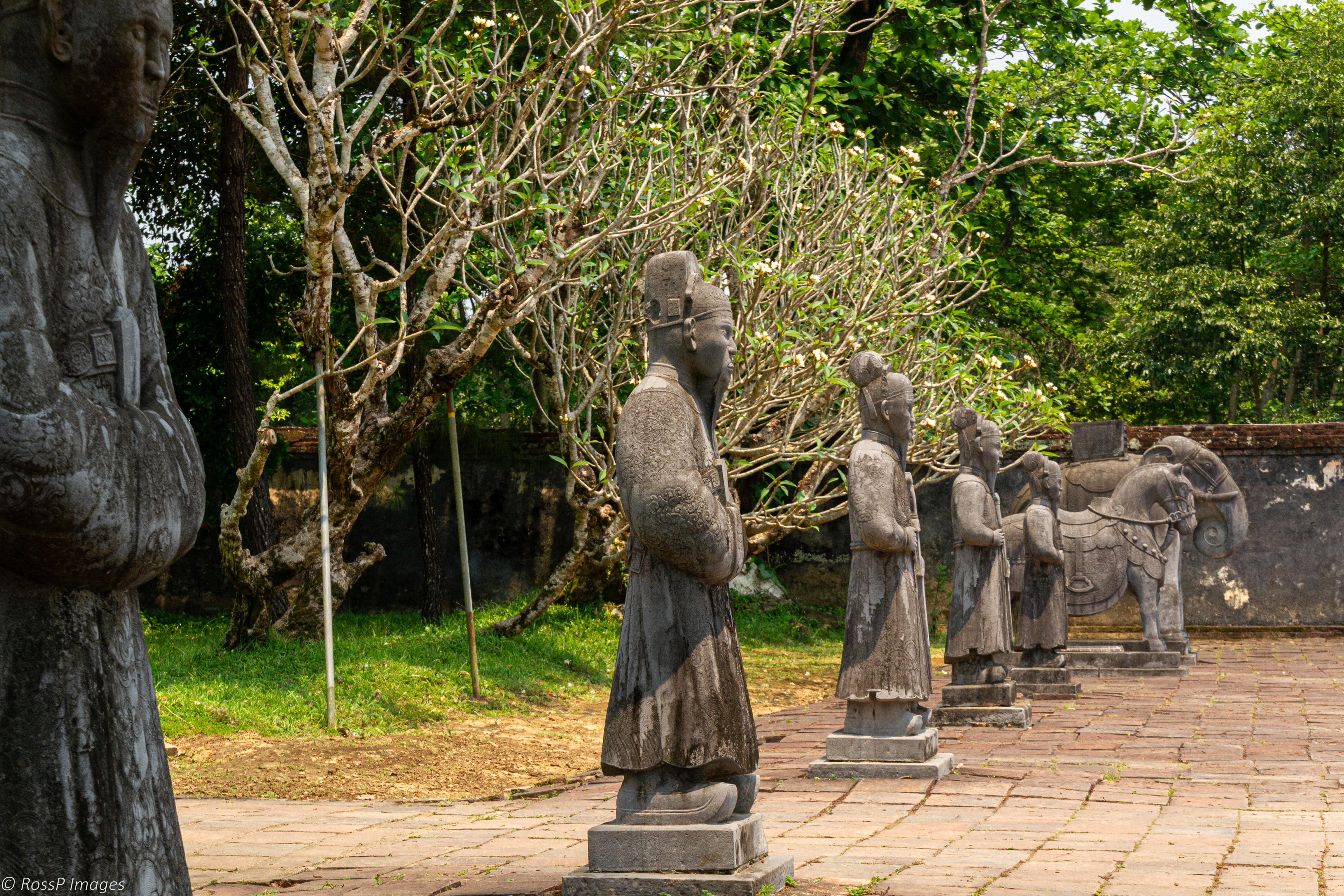
Stone carvings of Mandarins and war horses and elephants form a guard of honour entering Emperor Minh Mang's Tomb.
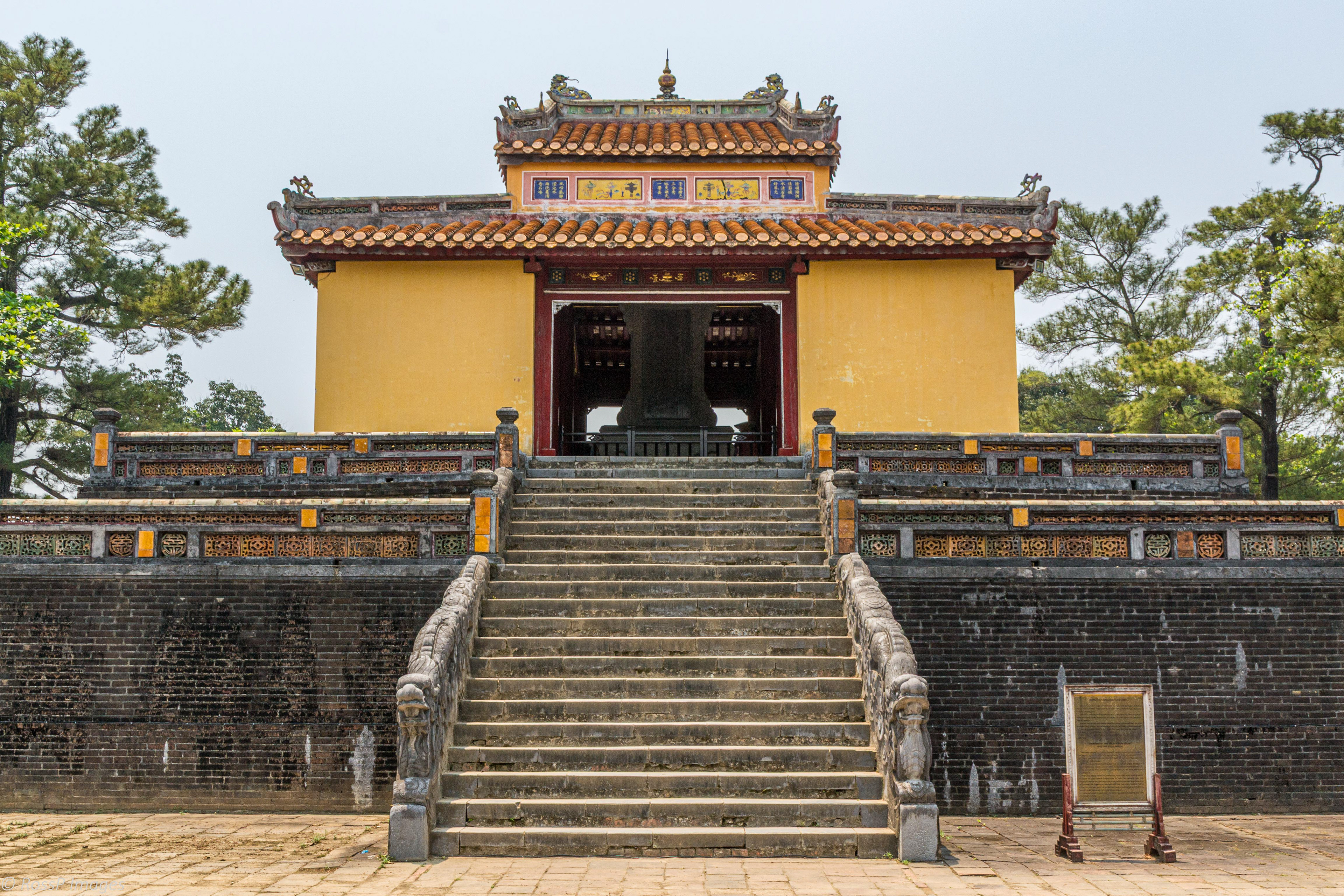
Minh Mang Tomb.

Hien Duc Gate, Minh Mang Tomb

Minh Lau (Bright pavilion) at Minh Mang Tomb.
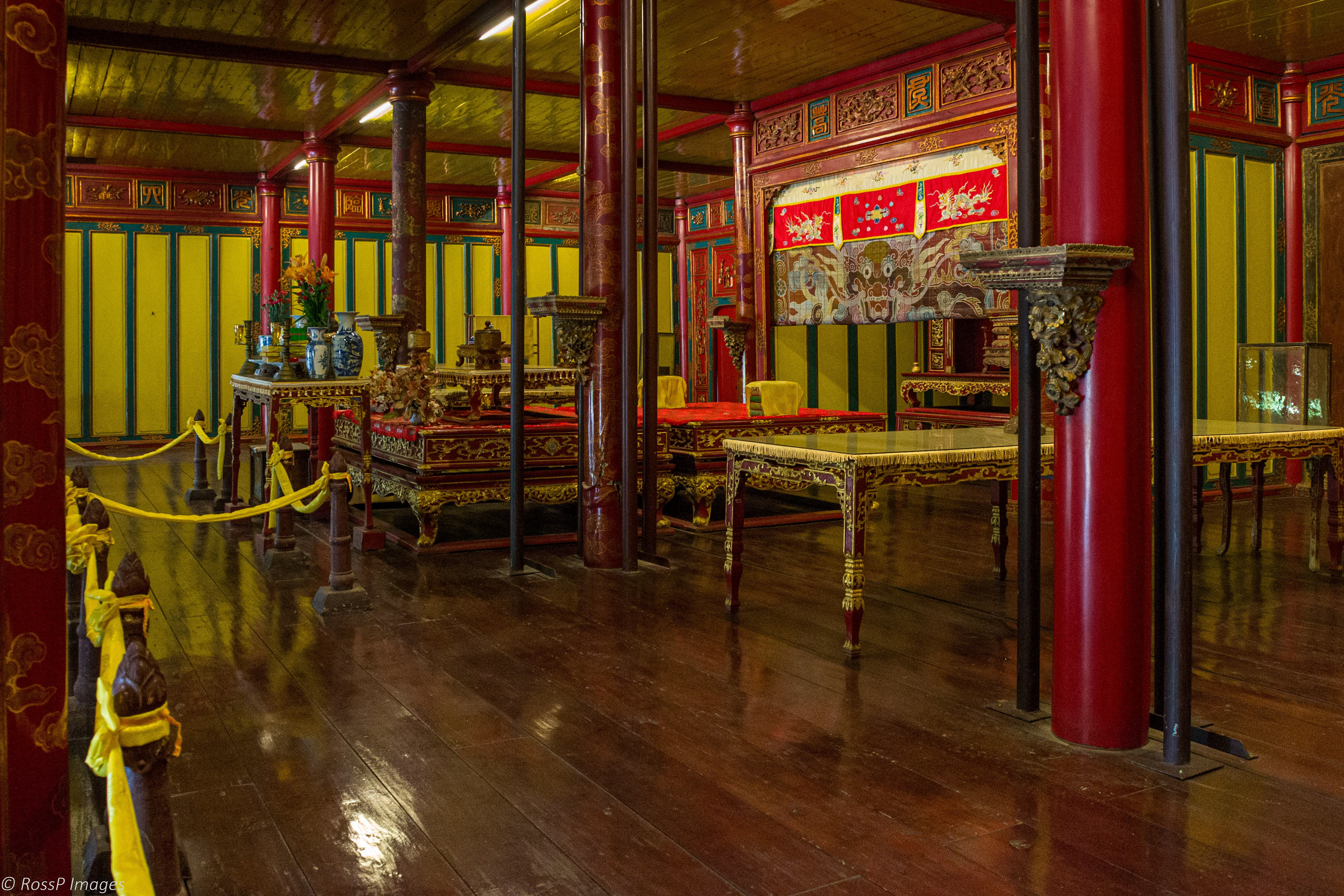
The lavish interior Minh Lau Pavilion, Minh Mang Tomb.
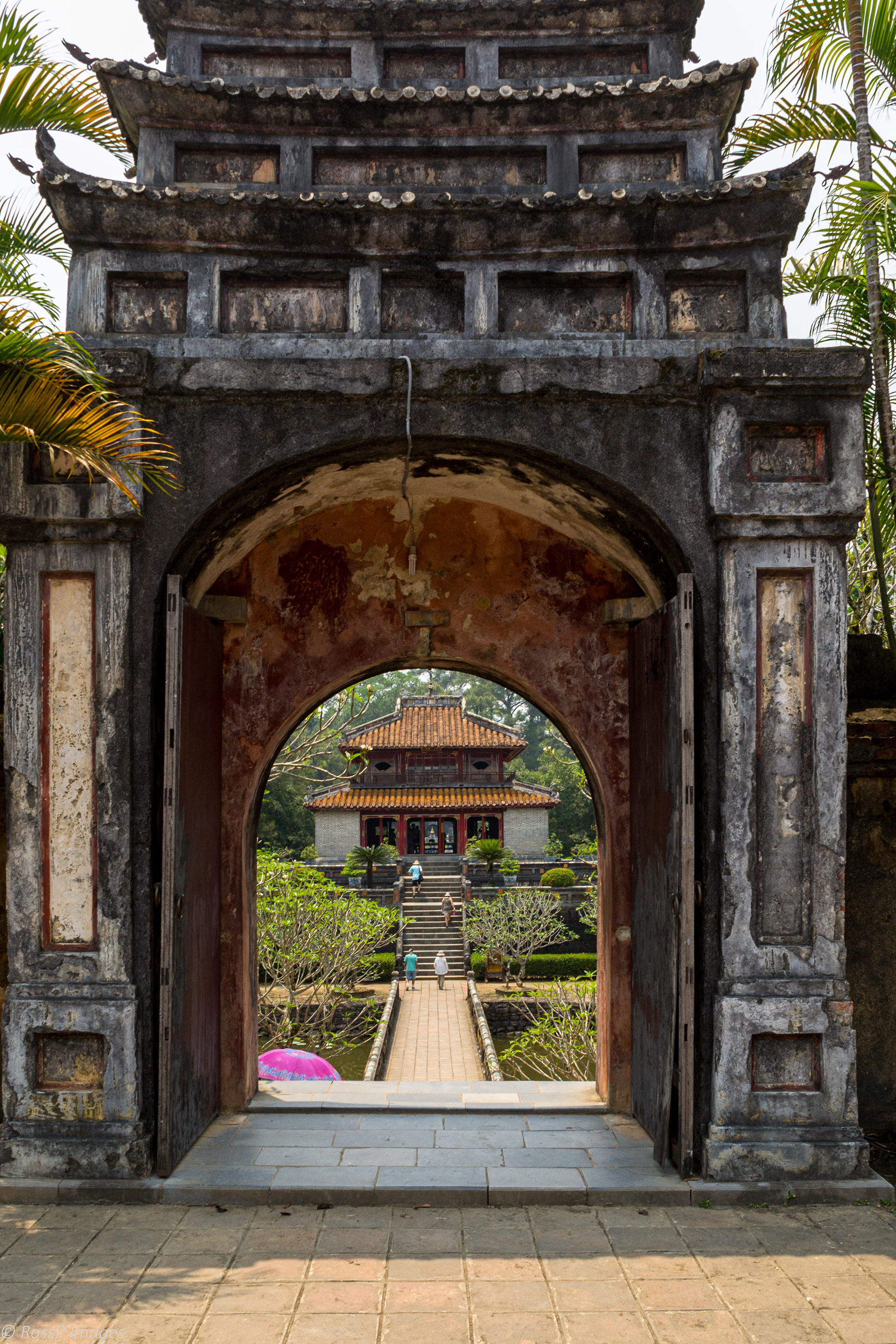
Hoang Trach Mon gateway aligns towards the centrally located Minh Mang Pavilion.
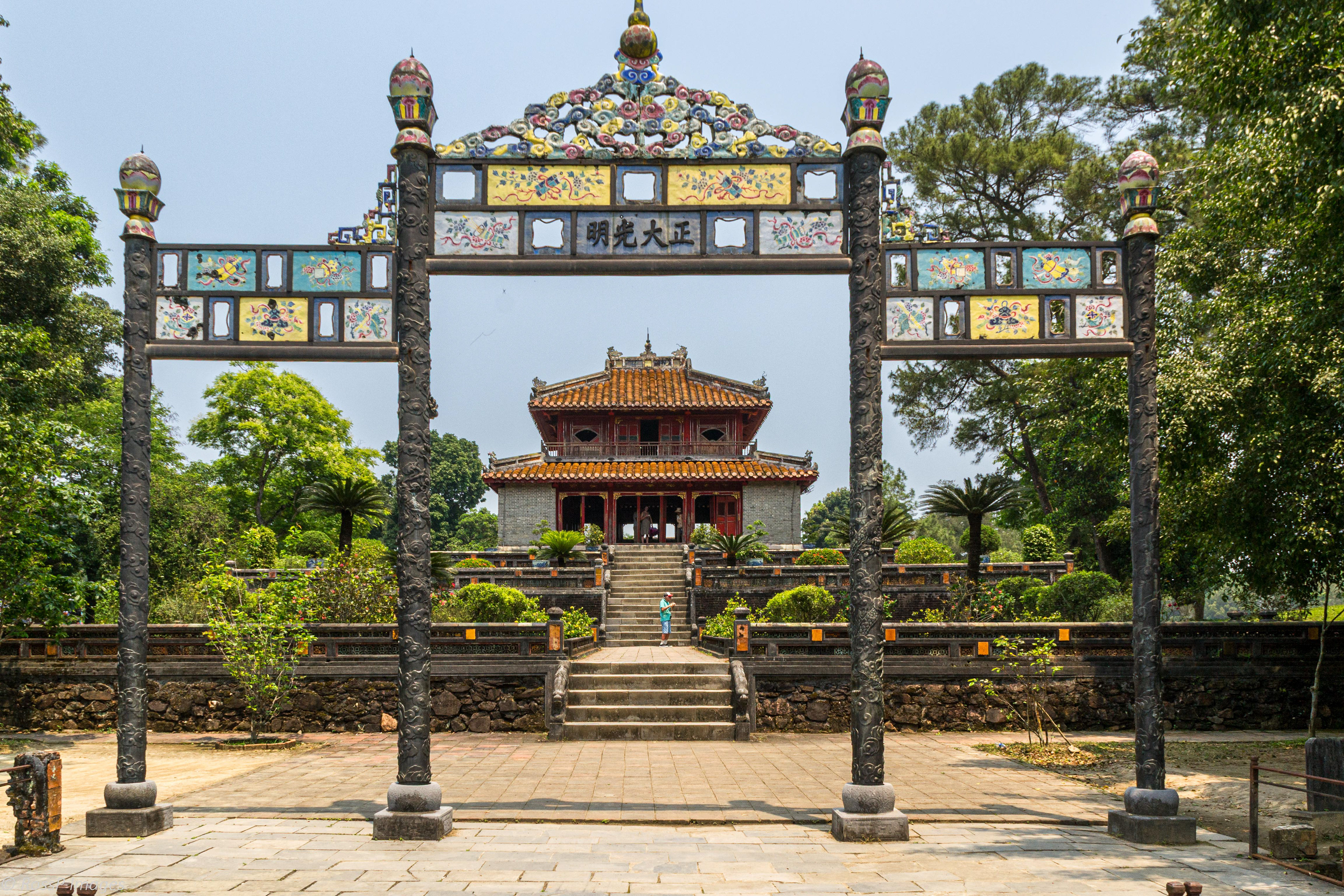
Gateway framing the Royal tomb of Minh Mang.
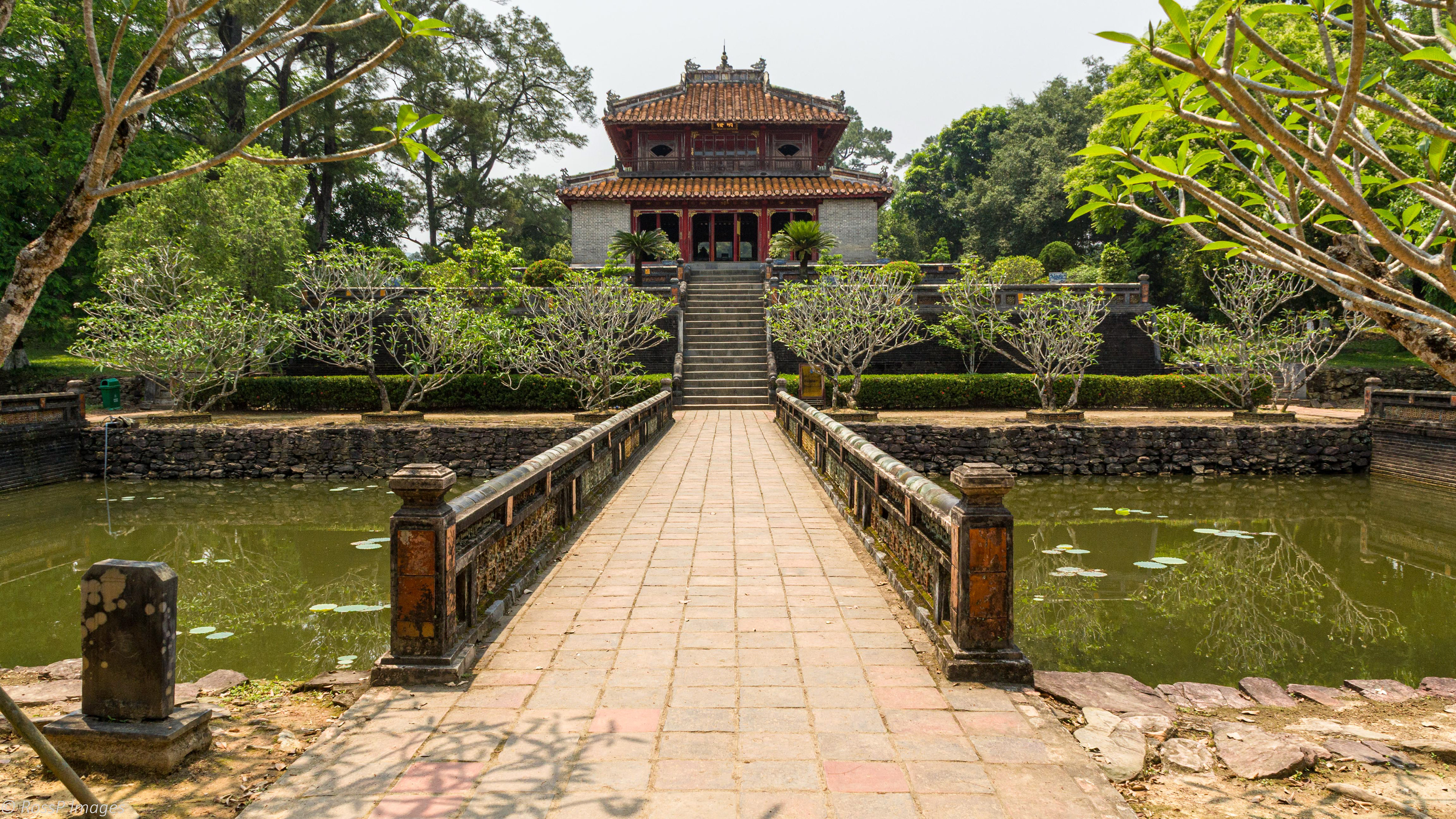
One of several bridges within the tomb complex designed to symbolize the passage between life and the afterlife.
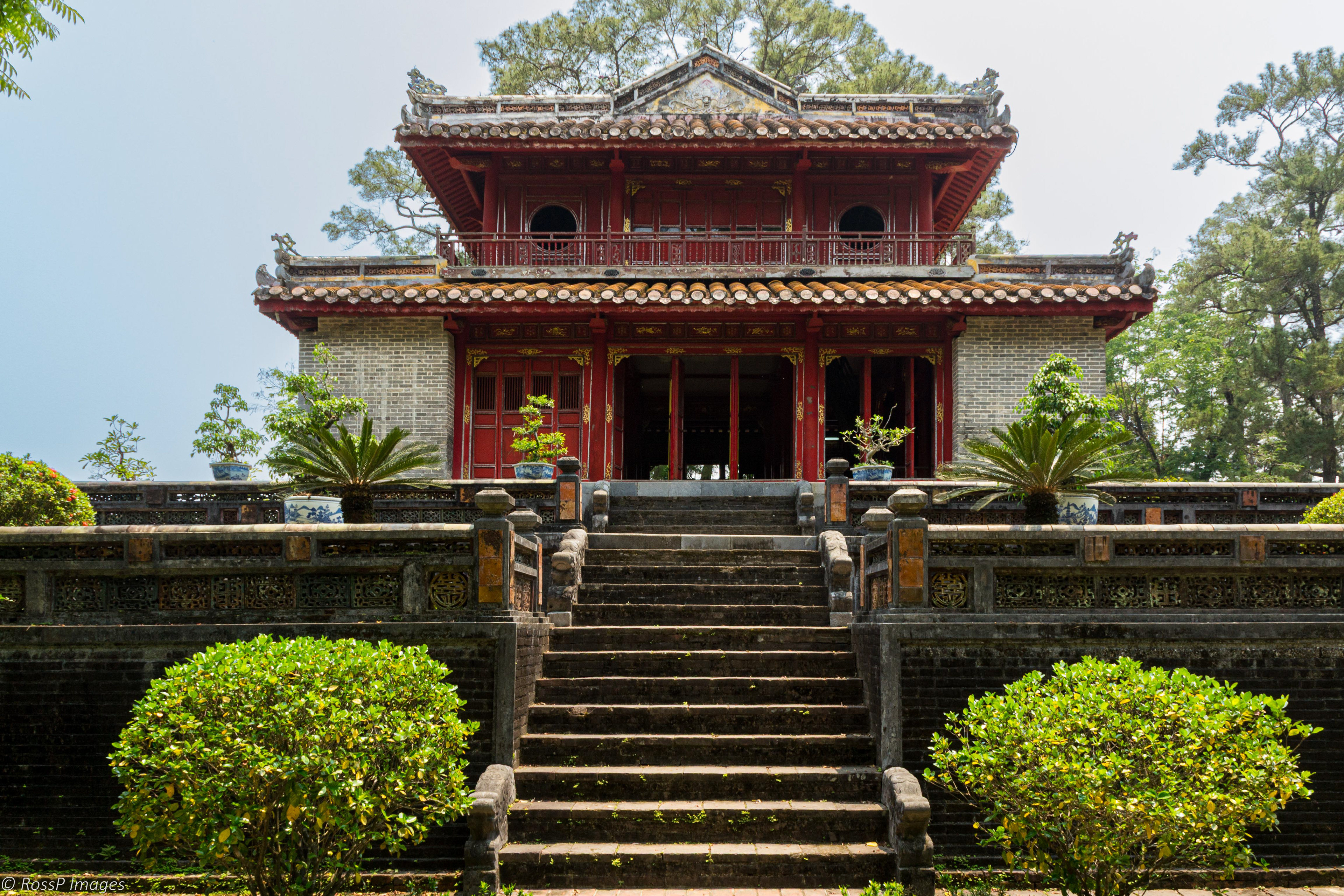
Royal tomb of Minh Mang. The tomb is the central structure within the complex, symbolizing the Emperor's final resting place.
An Bang Village and Tam Giang Lagoon, Hue
Travelling well off the usual tourist trail past rice paddies and local villages and lagoons I ended up in An Bang Village and its adjacent cemetery known by locals as the City of Ghosts.
An Bang Village is an affluent settlement famous for its giant villas and tombs. After Vietnamese reunification in 1975 many residents of An Bang Village emigrated to Europe and the USA. From here they sent money back to their relatives who stayed behind making it one of the wealthiest villages in Vietnam. The residents, it would appear, spend their days buildings grandiose mausoleums in the cemetery. These structures often stand two or three stories high, decorated with elaborate ornate gold carvings of dragons and mythical creatures, and complete with fully functional bedrooms, bathrooms and kitchens.
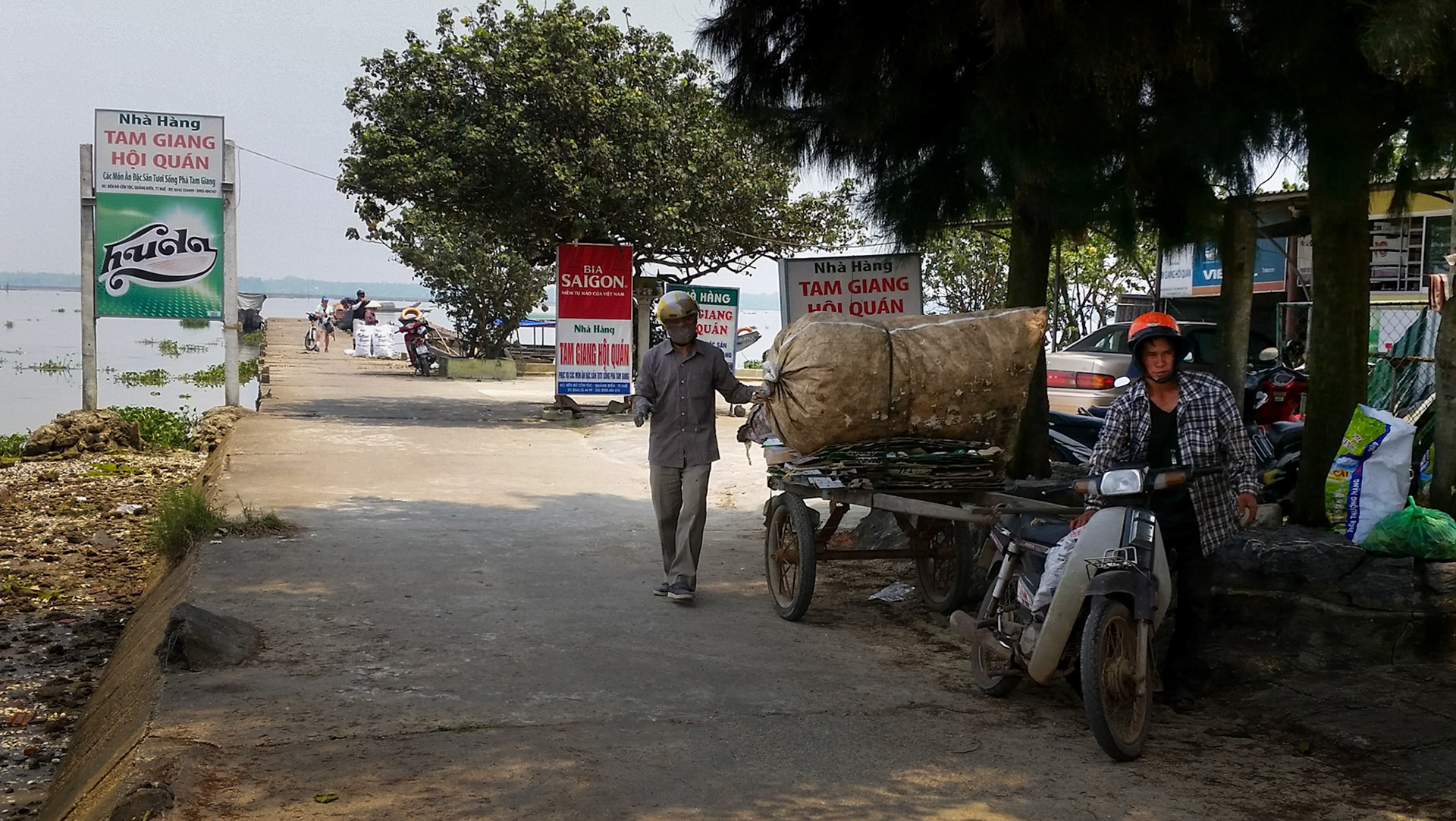
Village on Tam Giang Lagoon - Our ferry-boat crossing point to An Bang village.
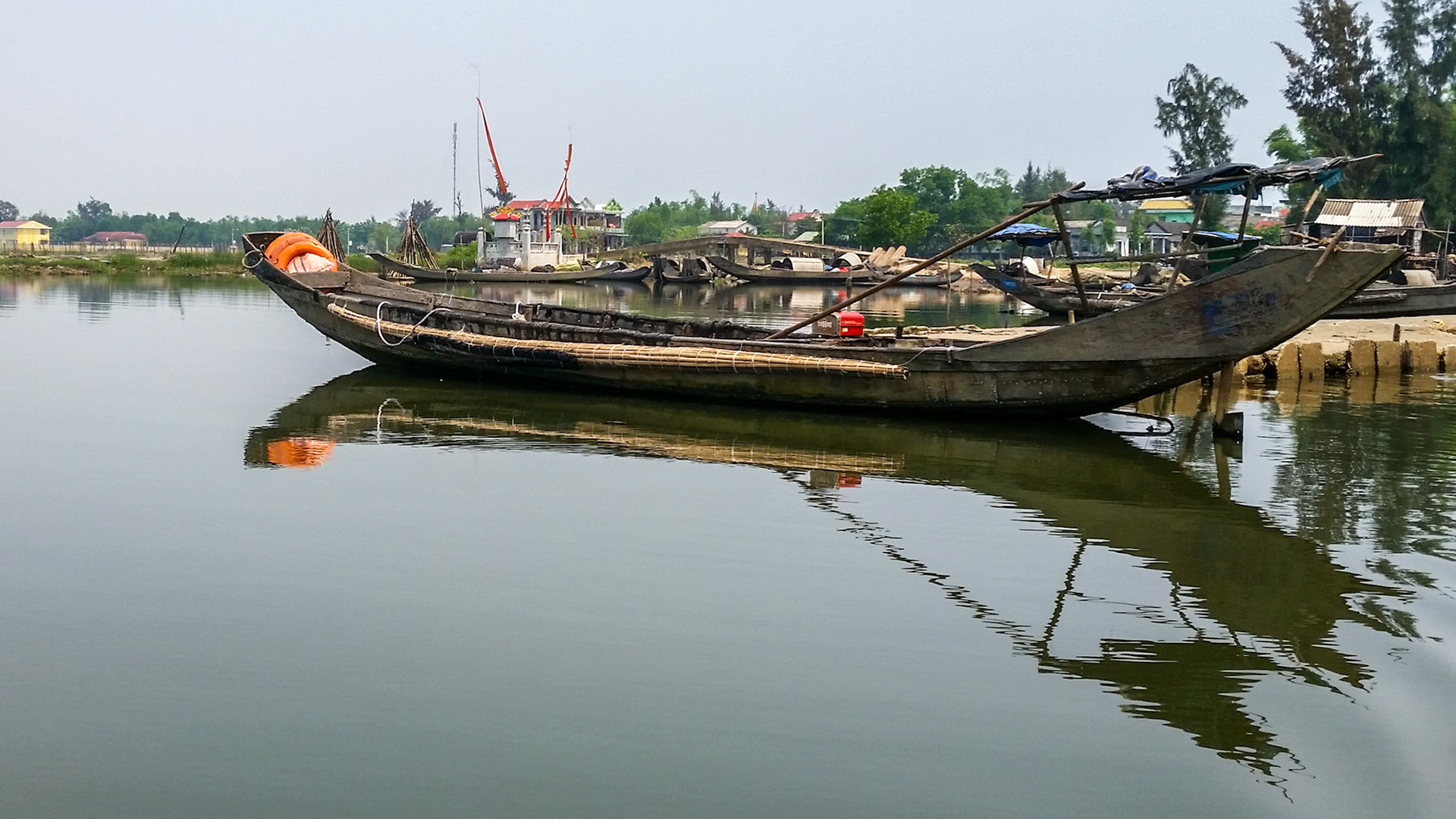
Traditional Vietnamese boat at Tam Giang harbour.
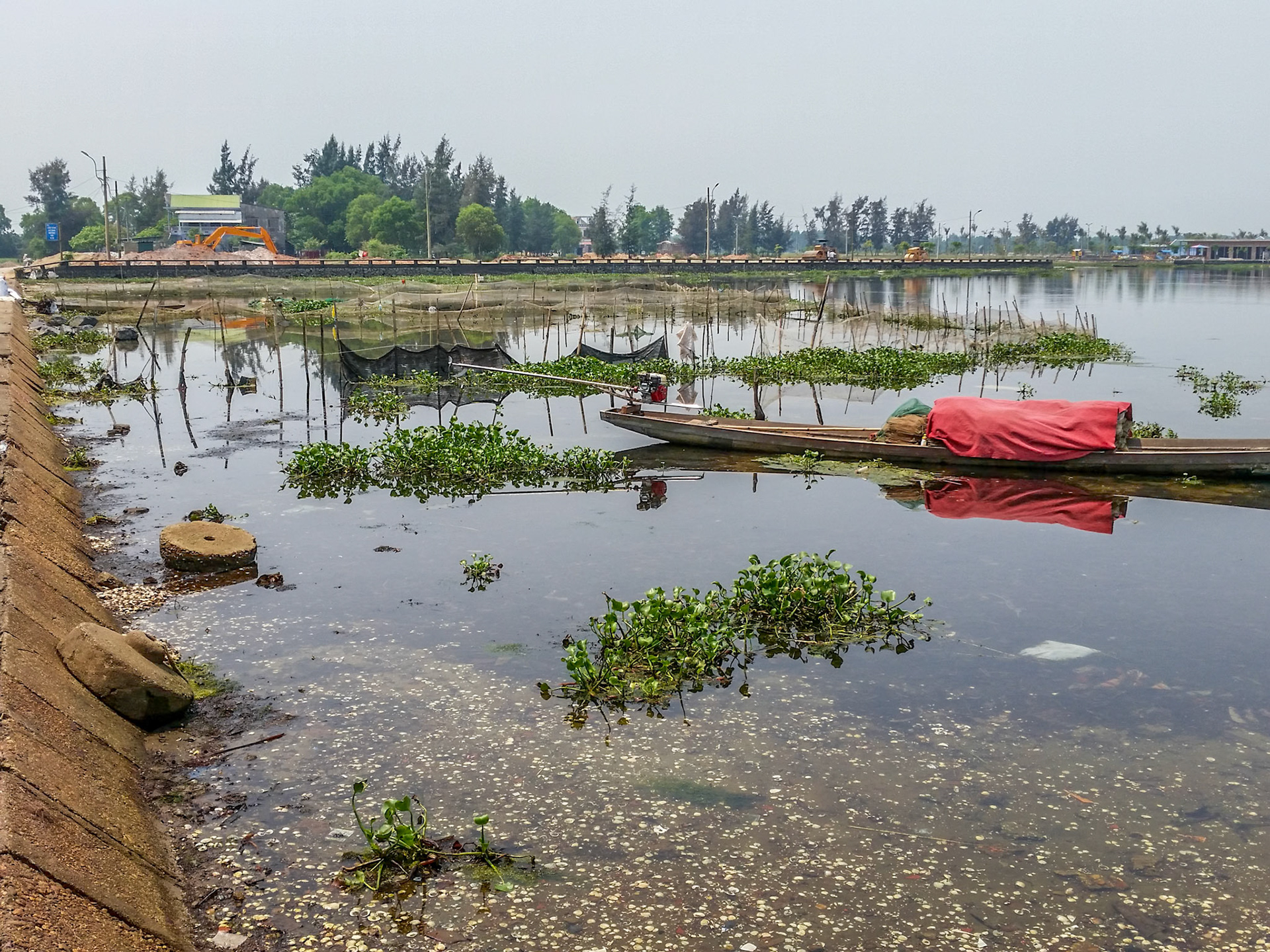
Tam Giang lagoon
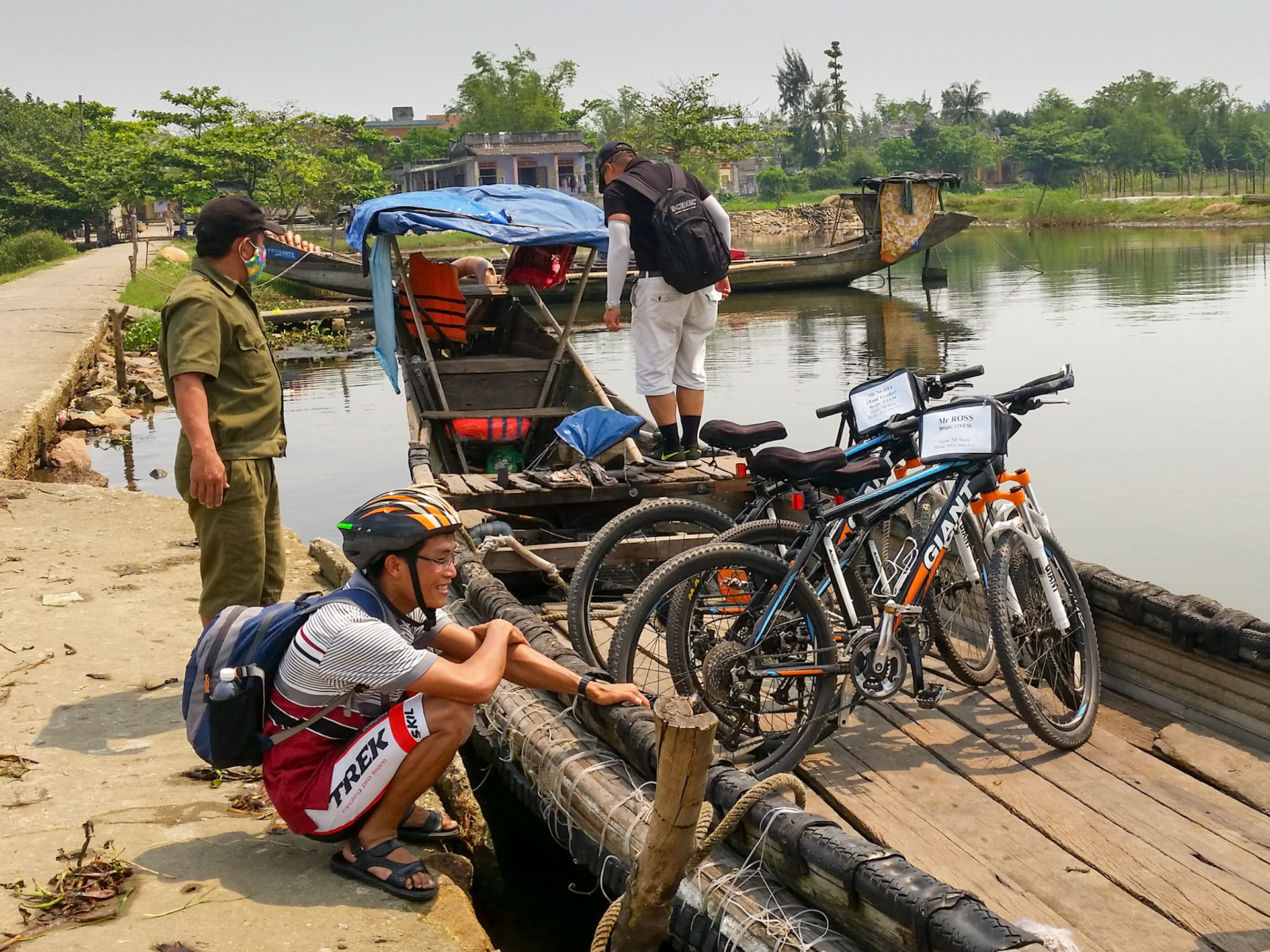
Loading our bicycles onto the long tail boat at An Bang village to cross Tam Giang Lagoon on our way back to Hue.

An Bang Cemetery (Nghia Trang An Bang in Vietnamese), locally known as City of Ghosts.
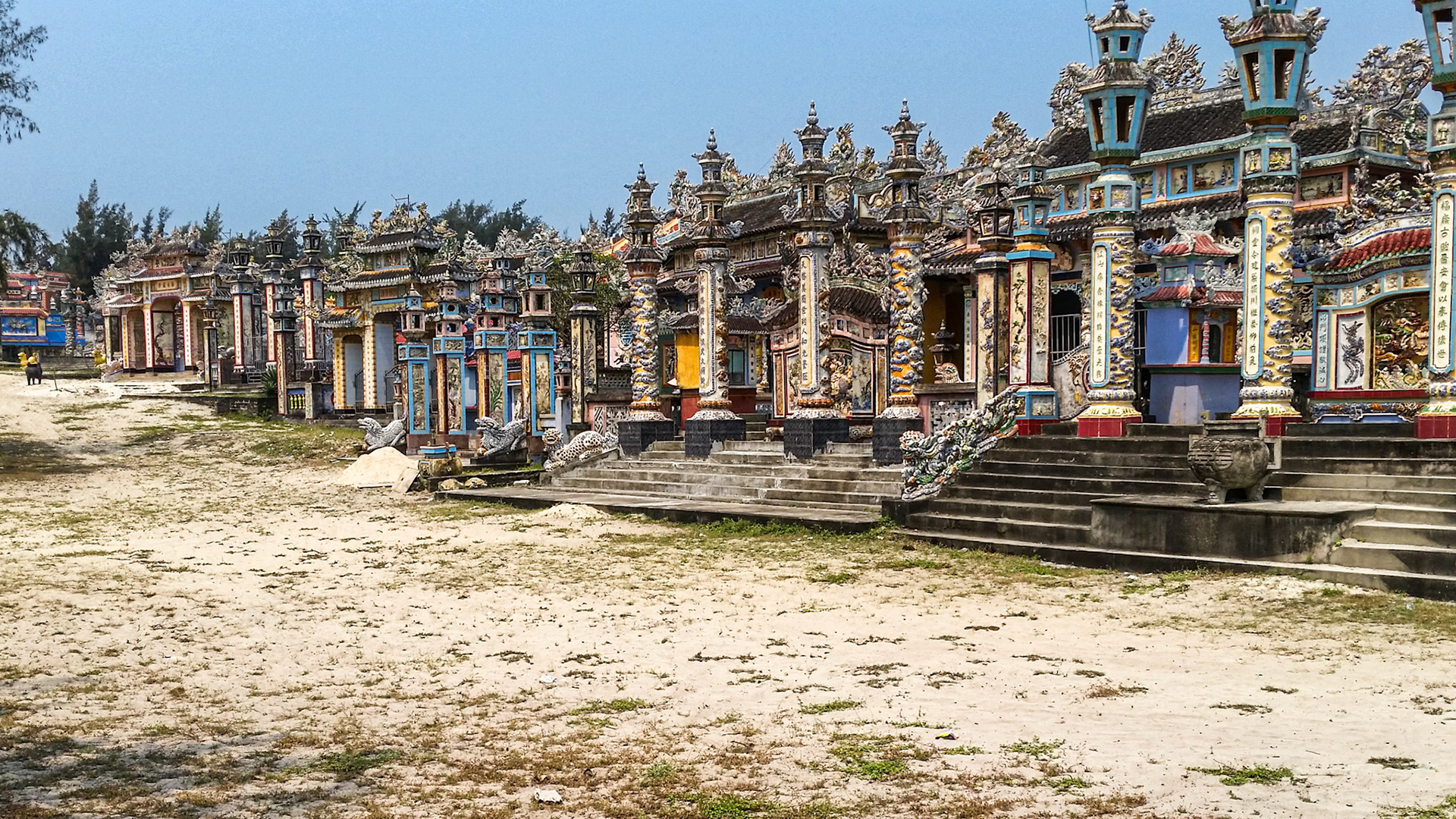
Grandiose mausoleums of An Bang cemetery.
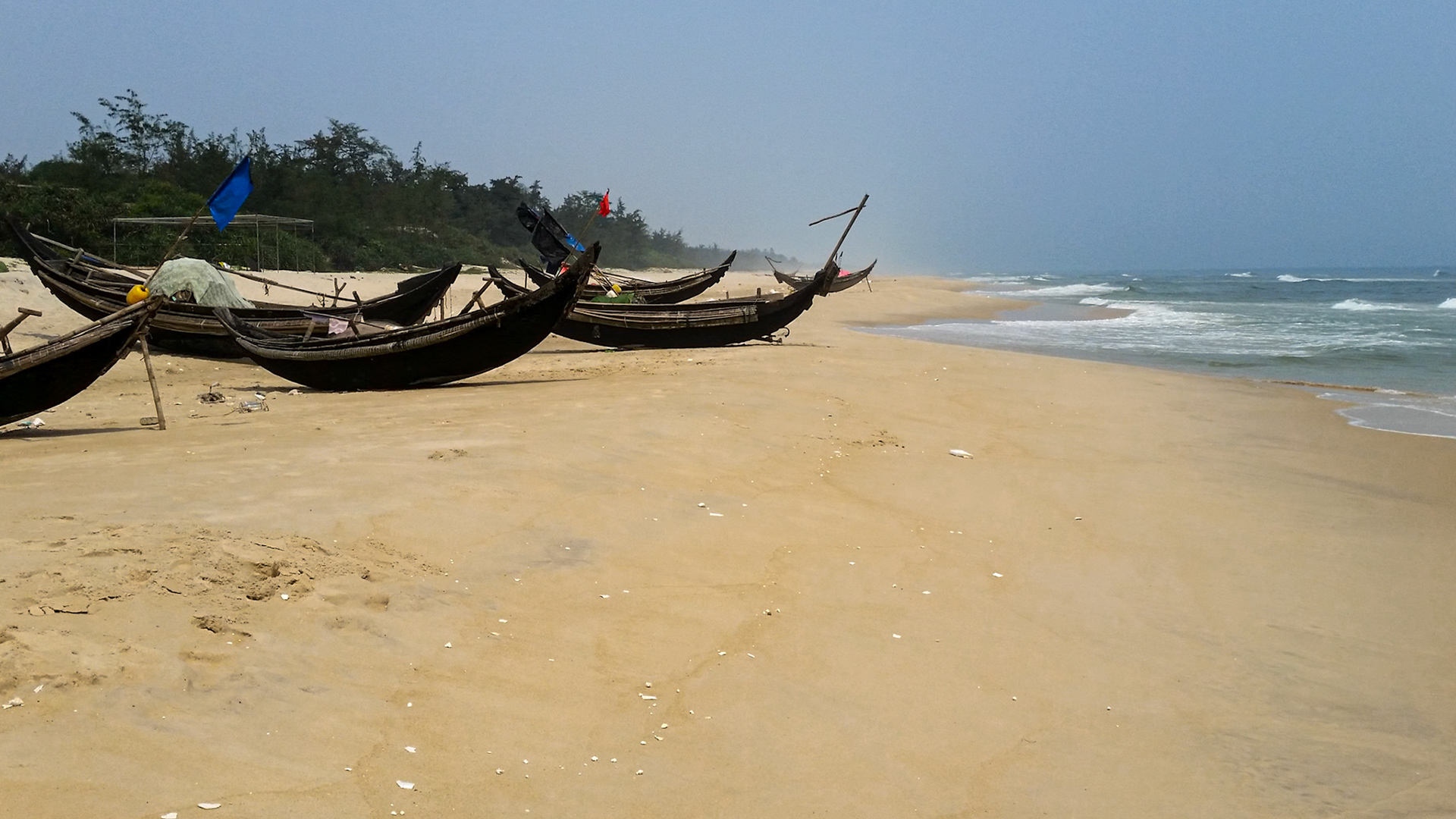
Traditional fishing boats on Tuan An beach.
Dining at a 100-year-old restaurant, Hue.
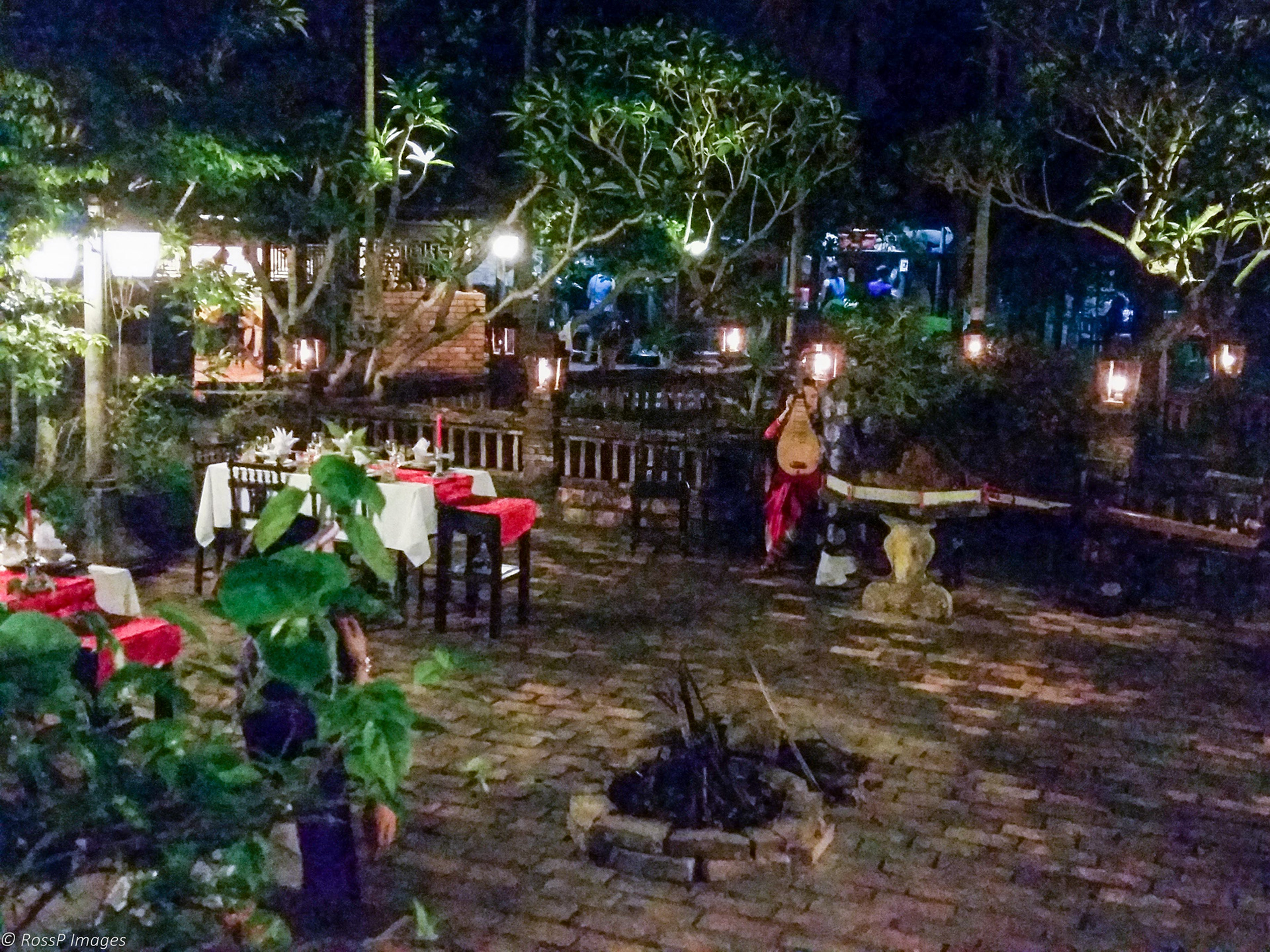
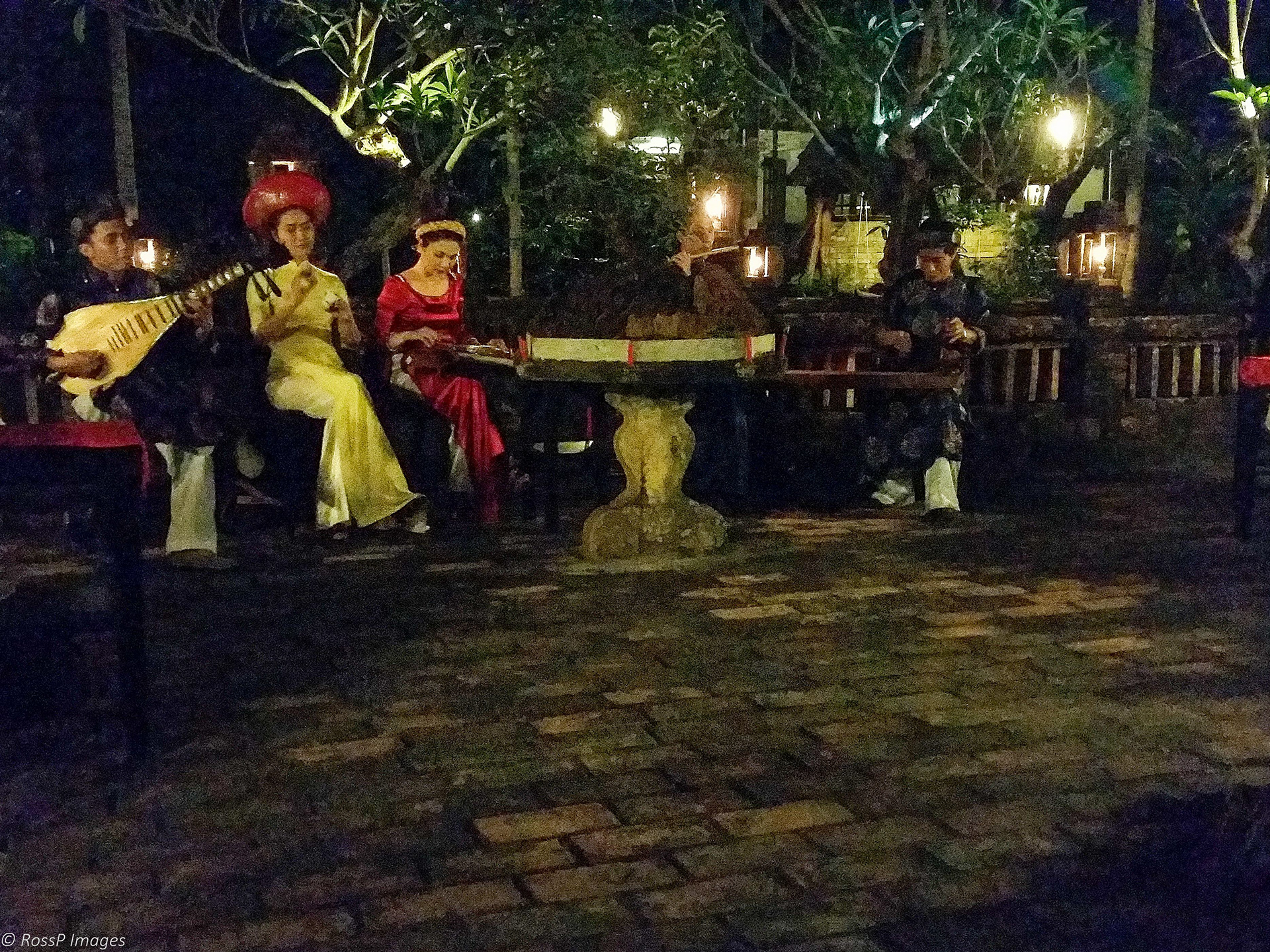
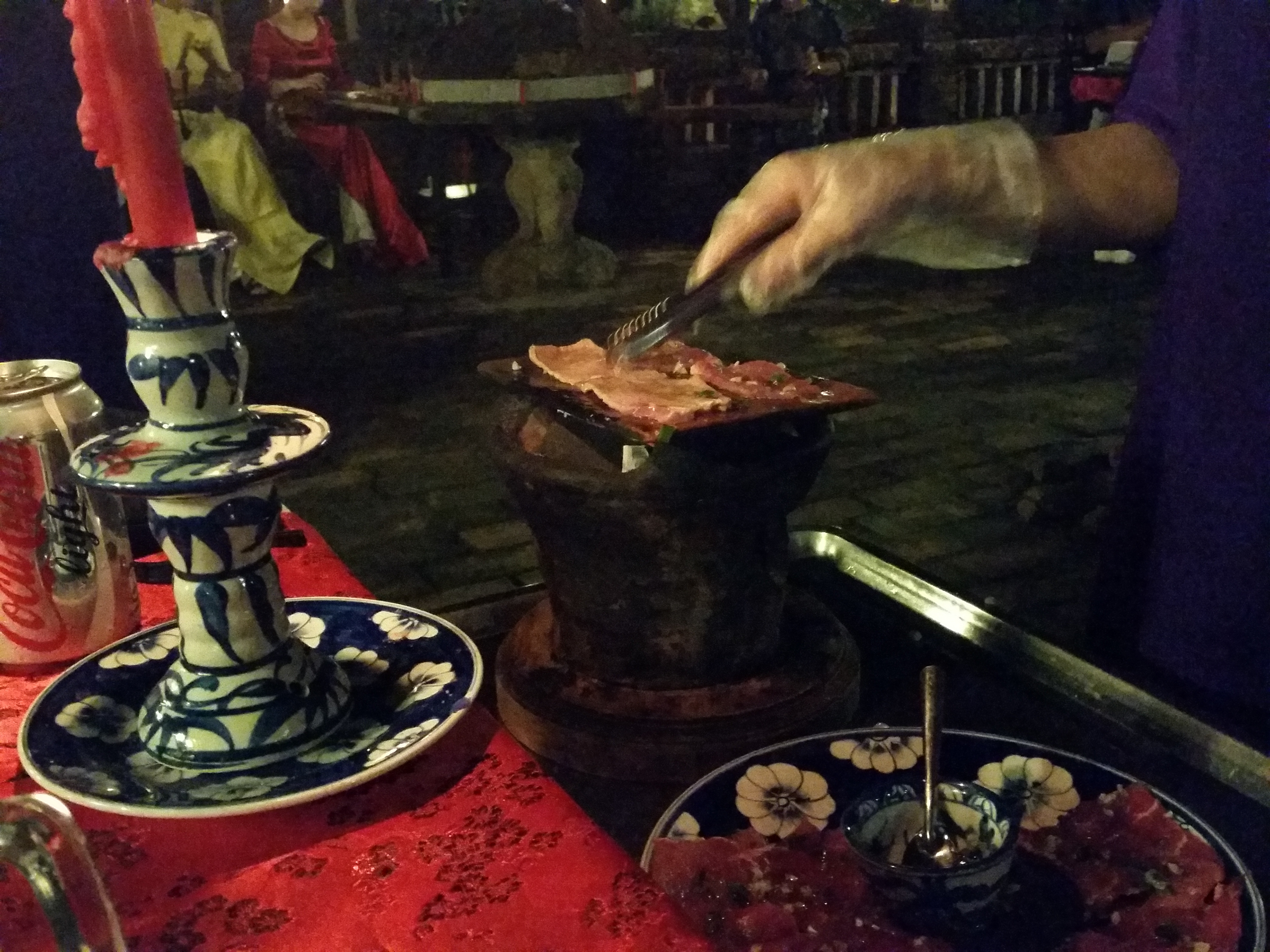
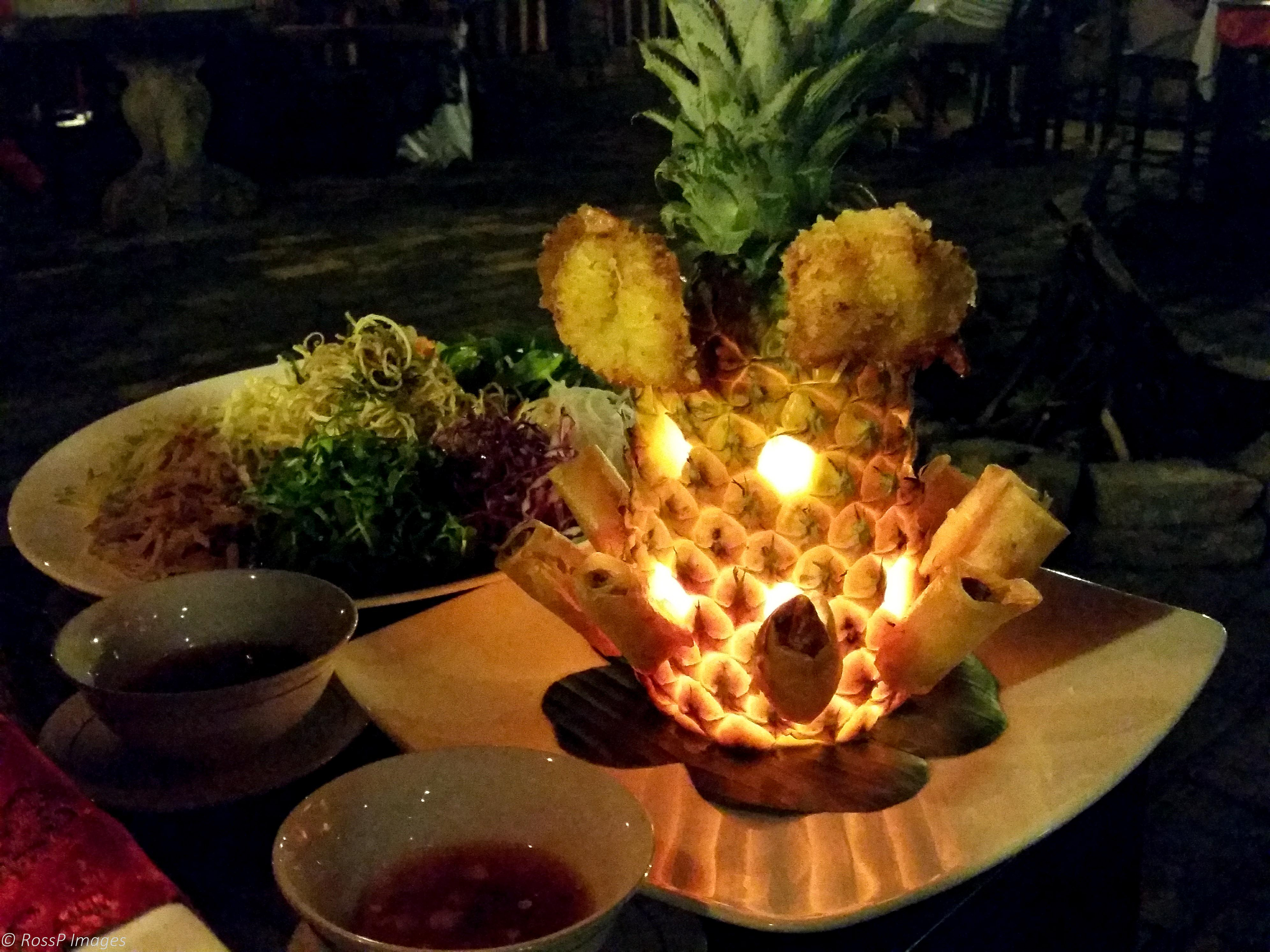
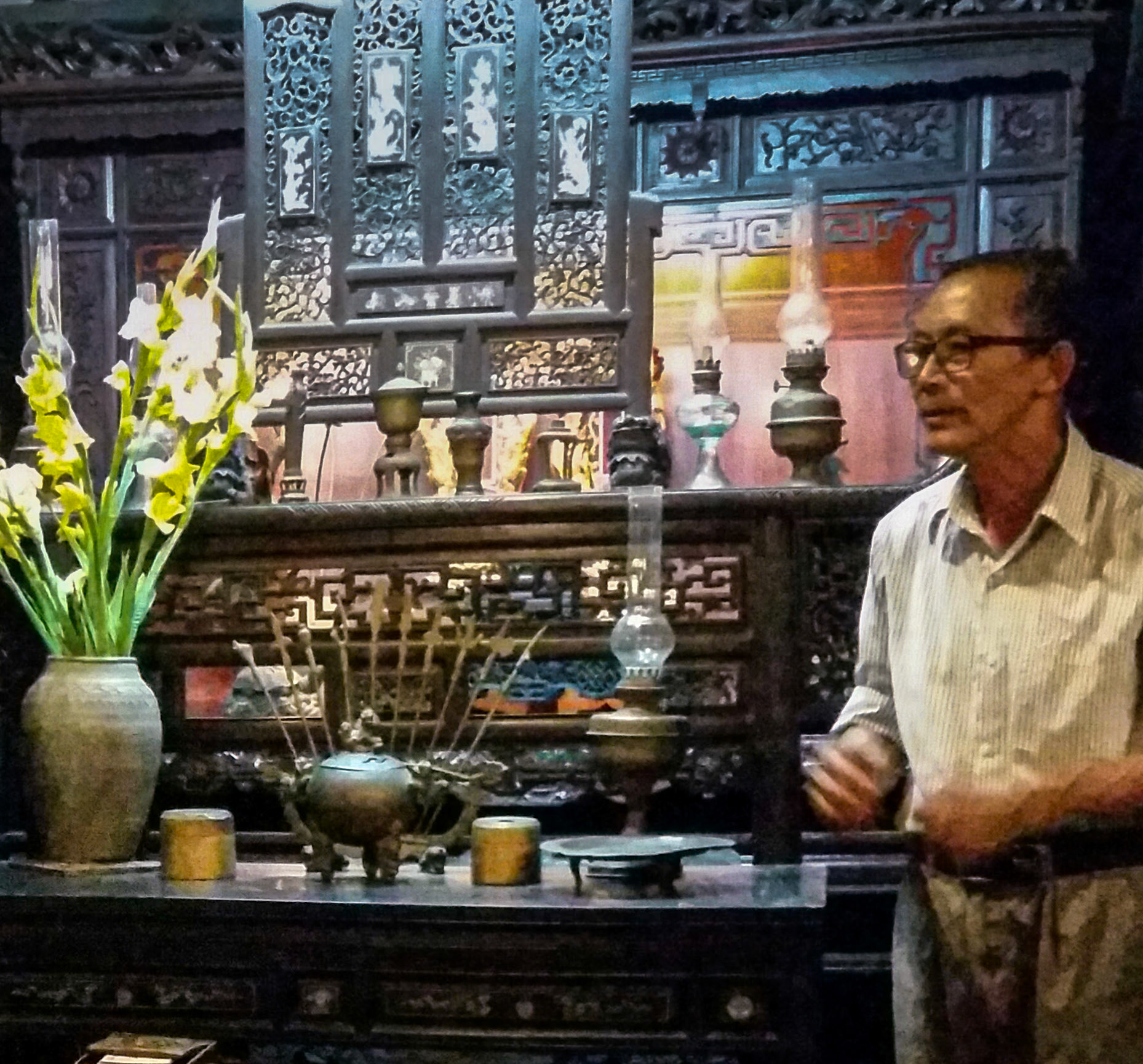
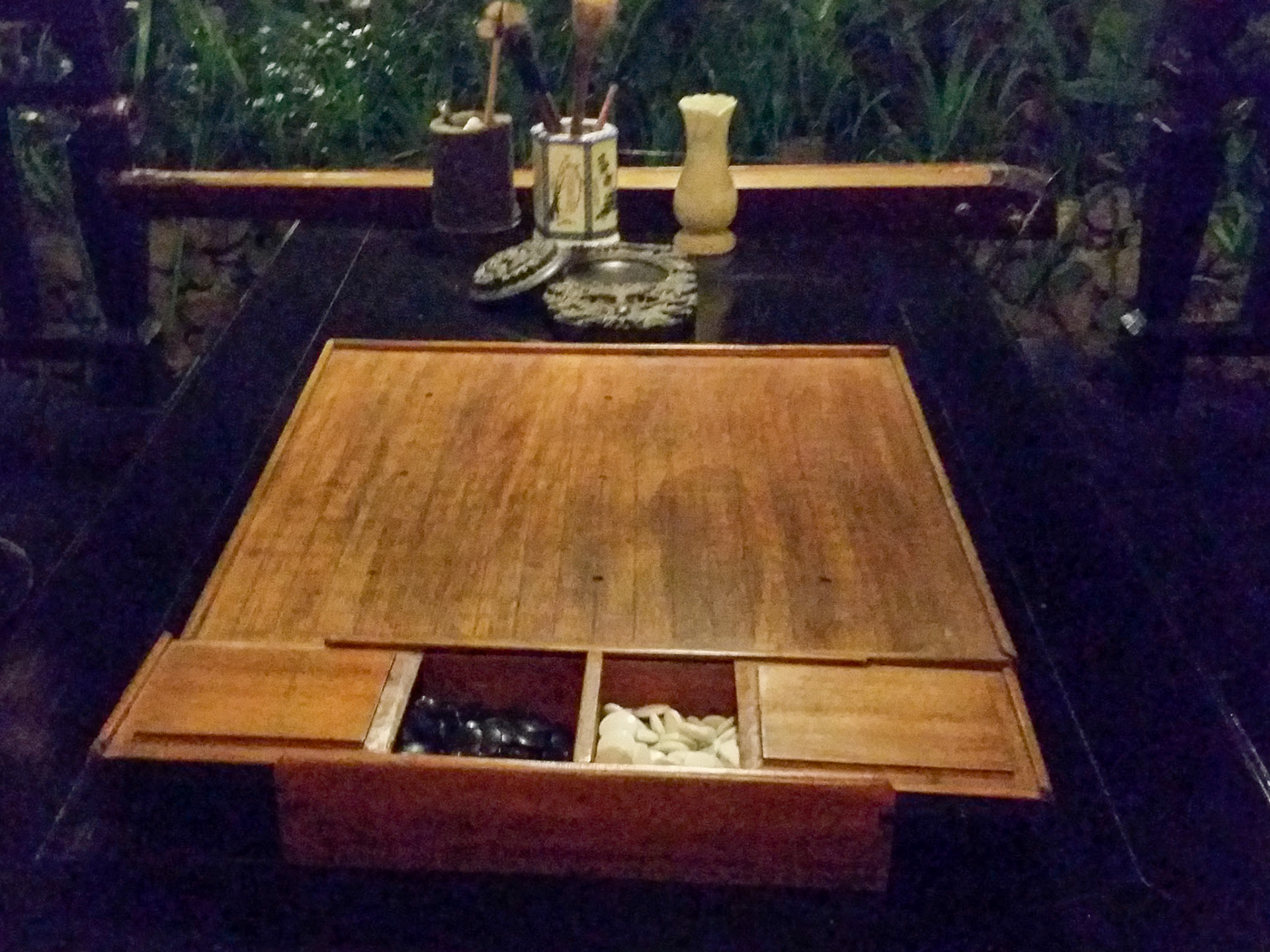

Hoi An
Old Town Hoi An, the city's historic district, is recognized as a well-preserved example of a Southeast Asian trading port dating from the 15th to 19th century, its buildings and street plan reflect a blend of indigenous and foreign influences notably the Japanese bridge. This longtime trading port city offers a distinctive regional cuisine that blends centuries of cultural influences from East and Southeast Asia.
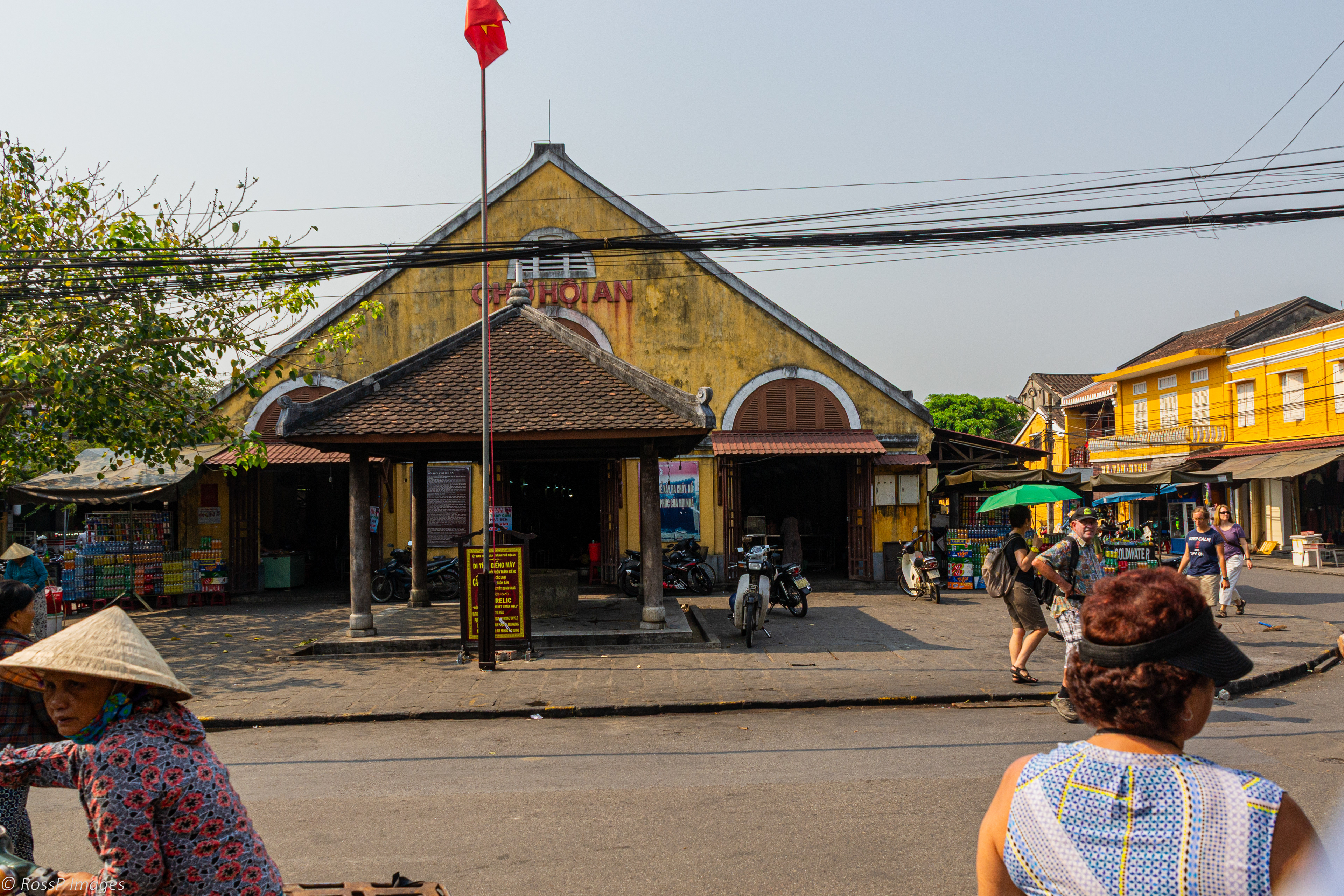
Cho Hoi An is the original and still the largest market place.today.
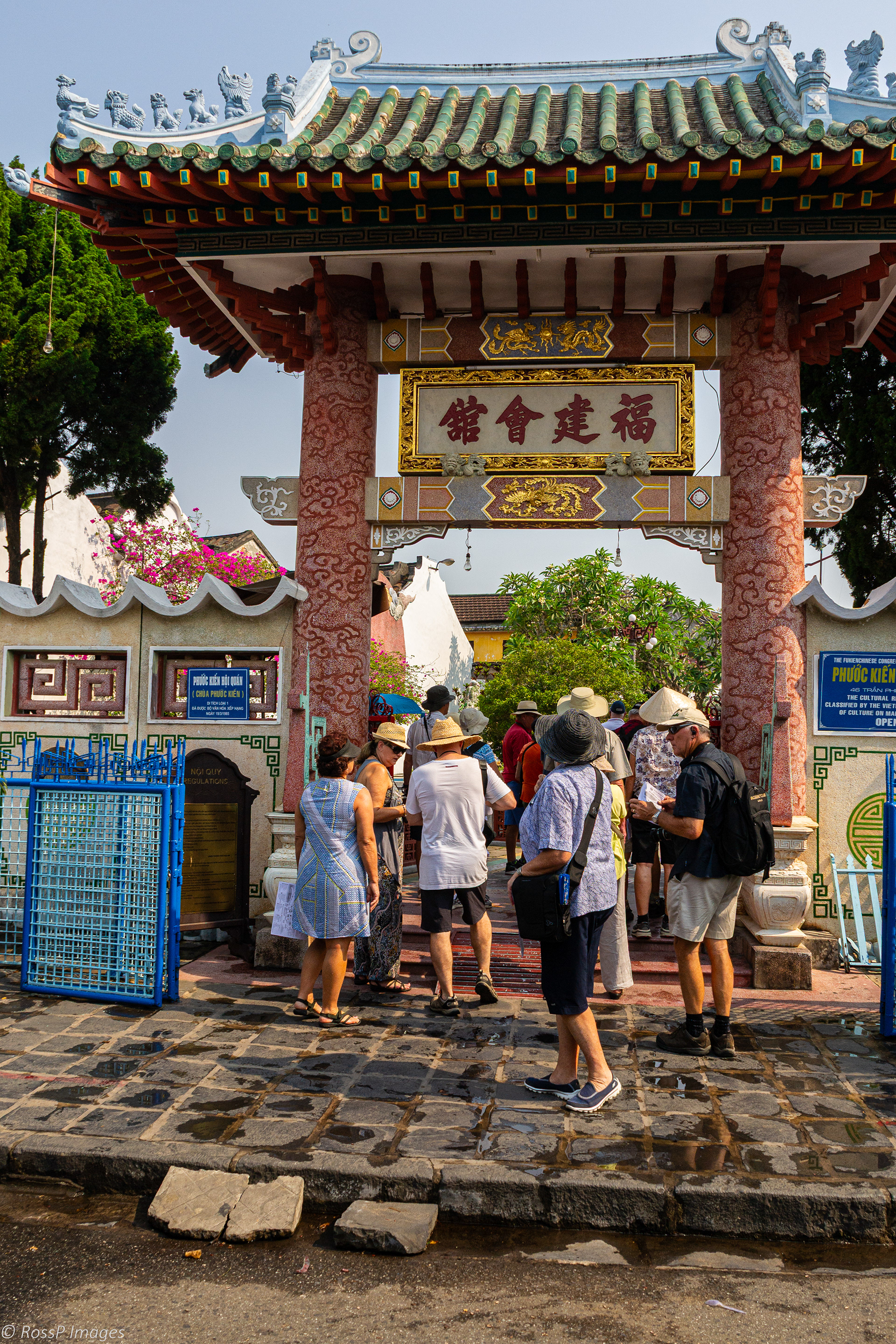
Phuc Kein Assembly Hall entrance gate.

The courtyard of the Fujian Assembly Hall.

Phuc Kein Assembly Hall.
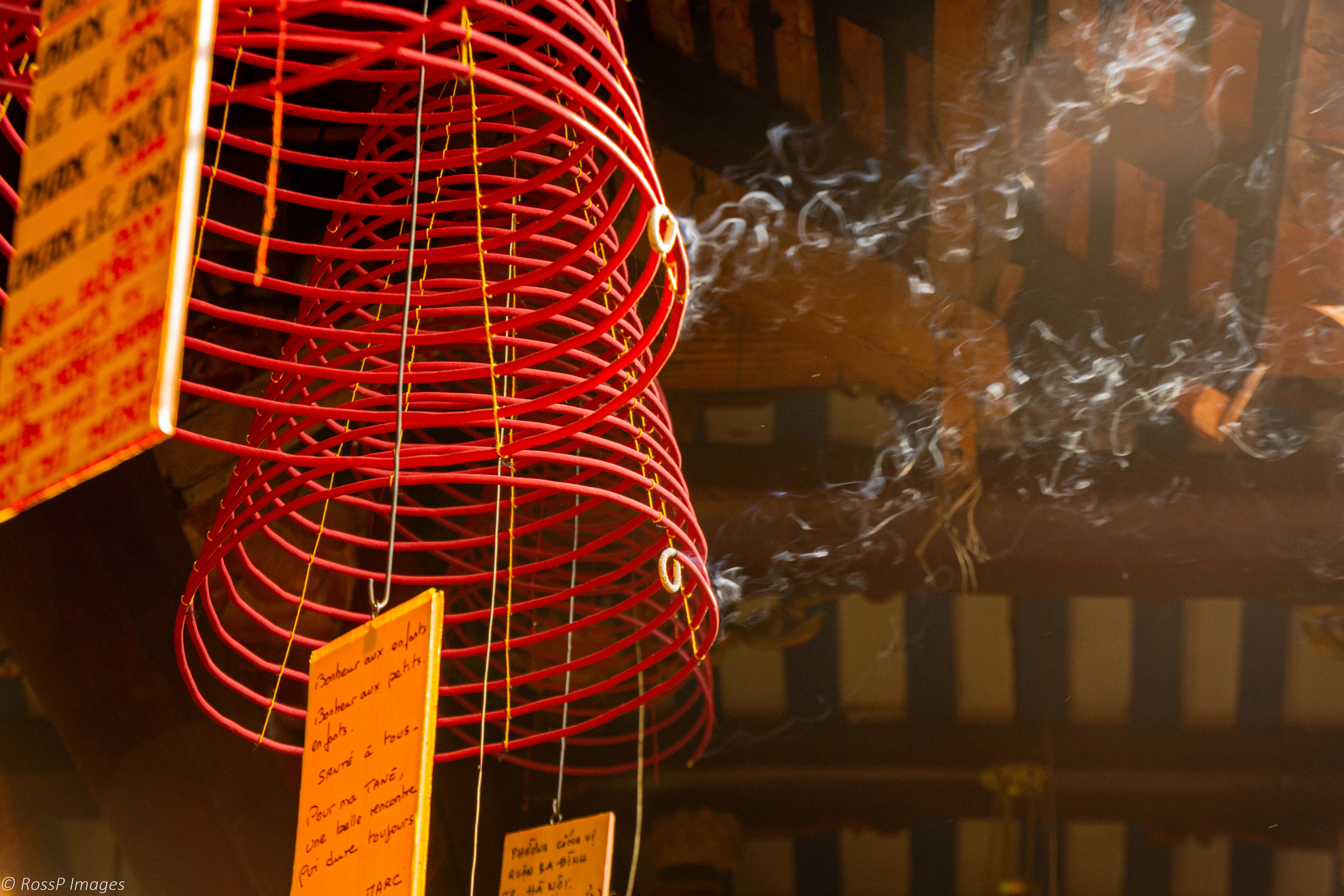
Transporting messages to the Gods via Incense smoke
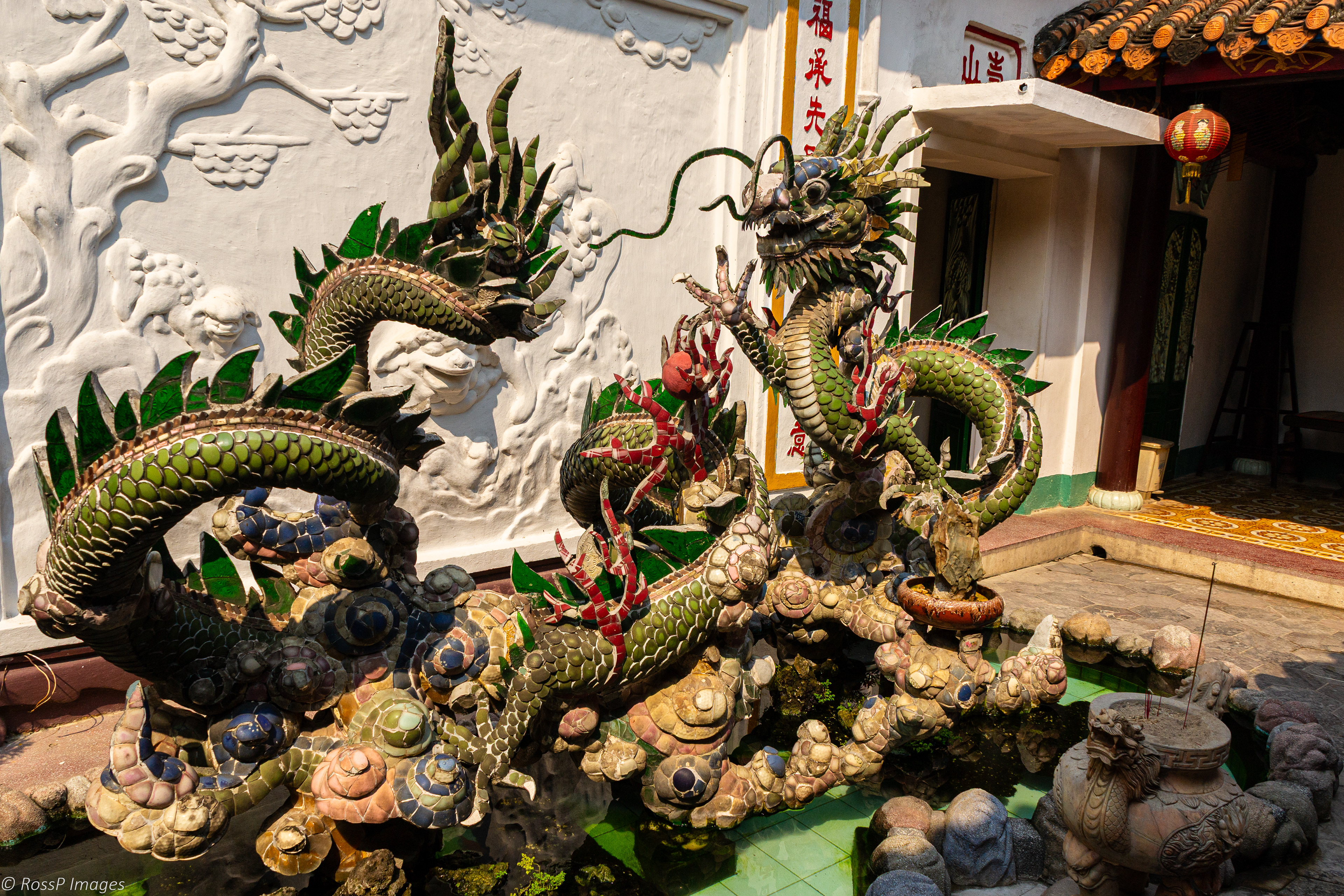
Approaching the entrance is a beautiful apricot blossom aquarium with a sculpture of “carp turning into dragon”.
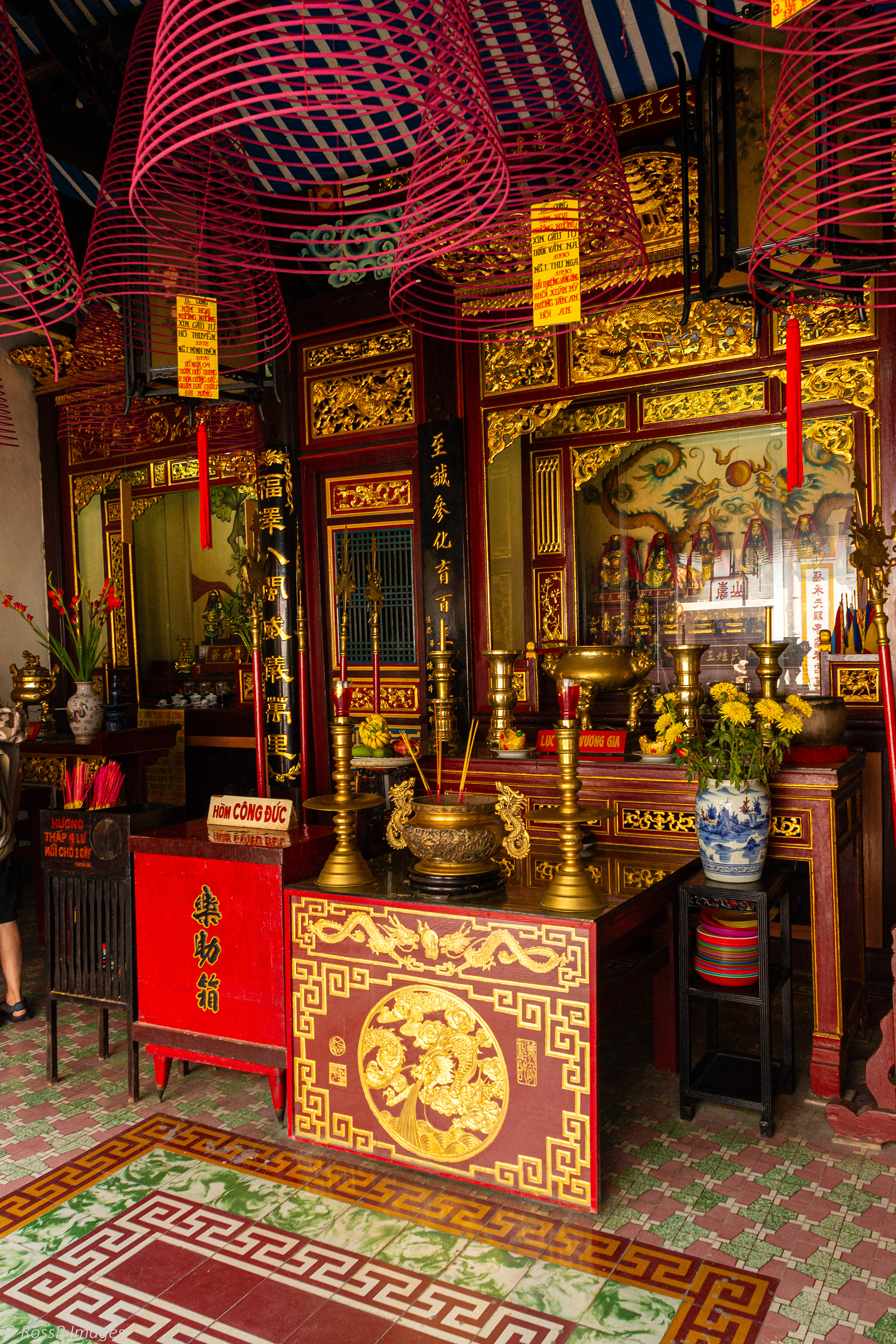
In the middle of the Sanctuaryis a solemn shrine to worship the Sea mother (Thien Hau), who it is said, will come to help and rescue the Chinese businessmen in accidents on the Ocean.
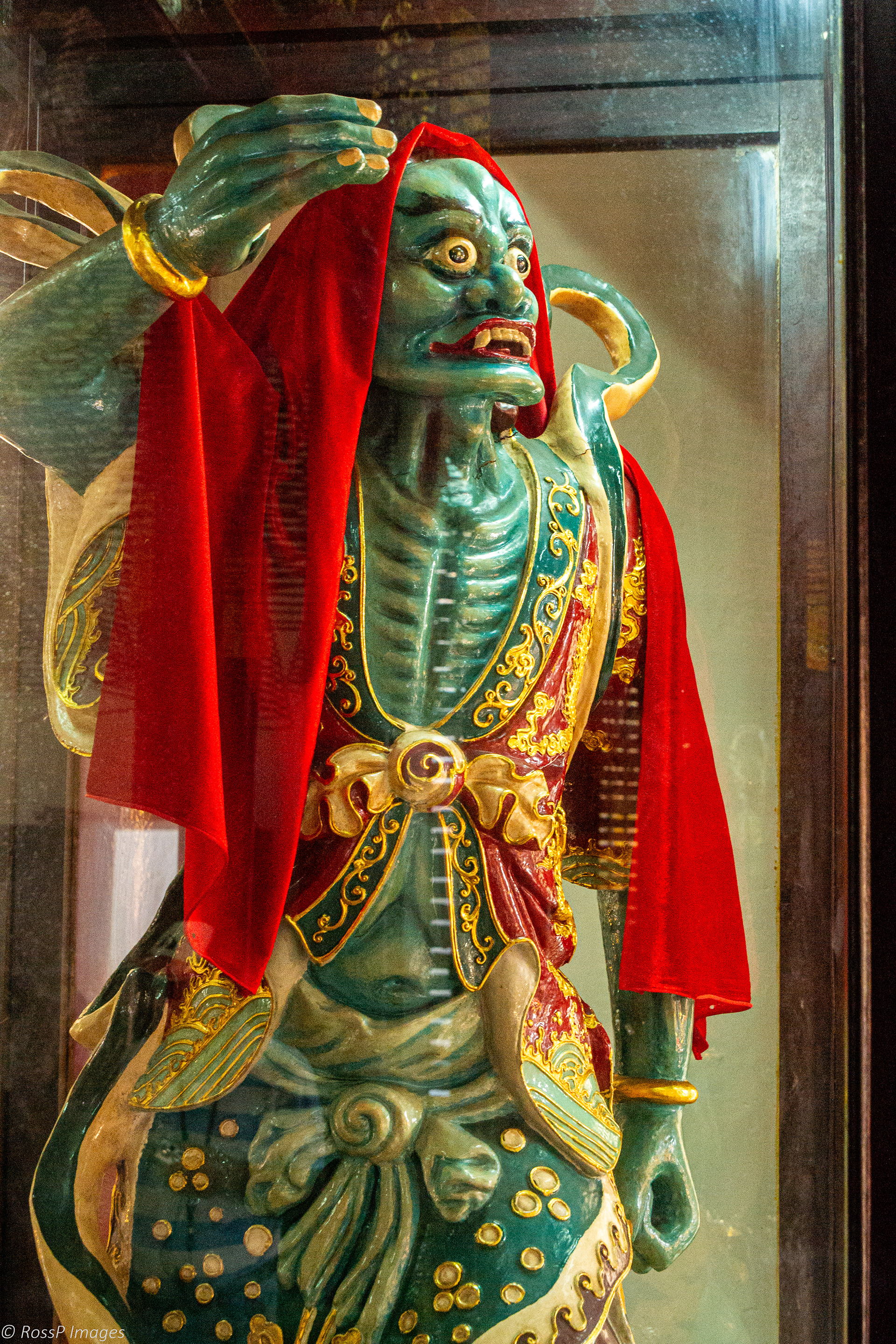
Either side of Lady Buddah statue stand guardians one who has the holy ears and the other has the holy eyes.
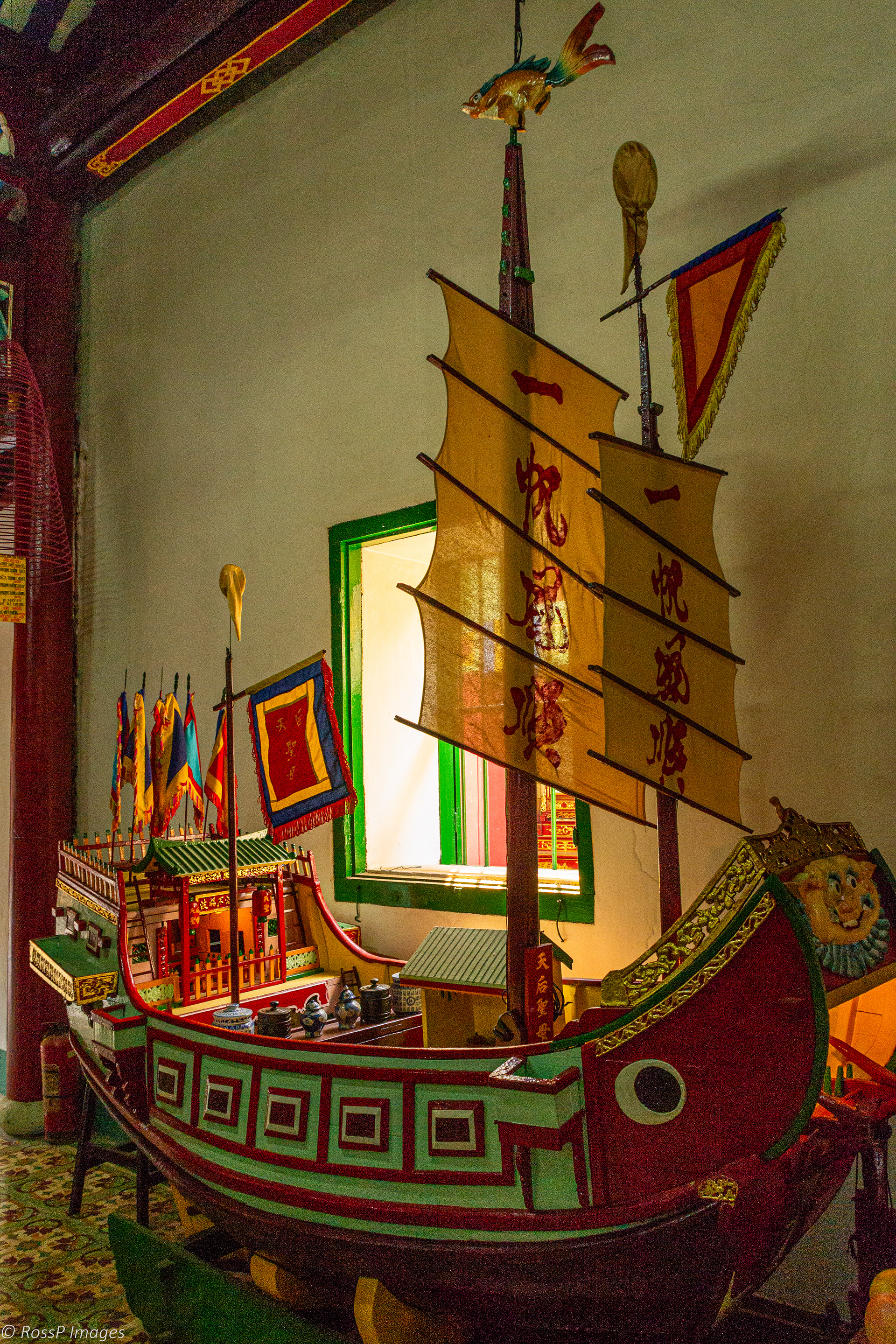
A model traders boat with eyes on the bow. According to locals, these eyes can see catastrophes and dangers at sea.
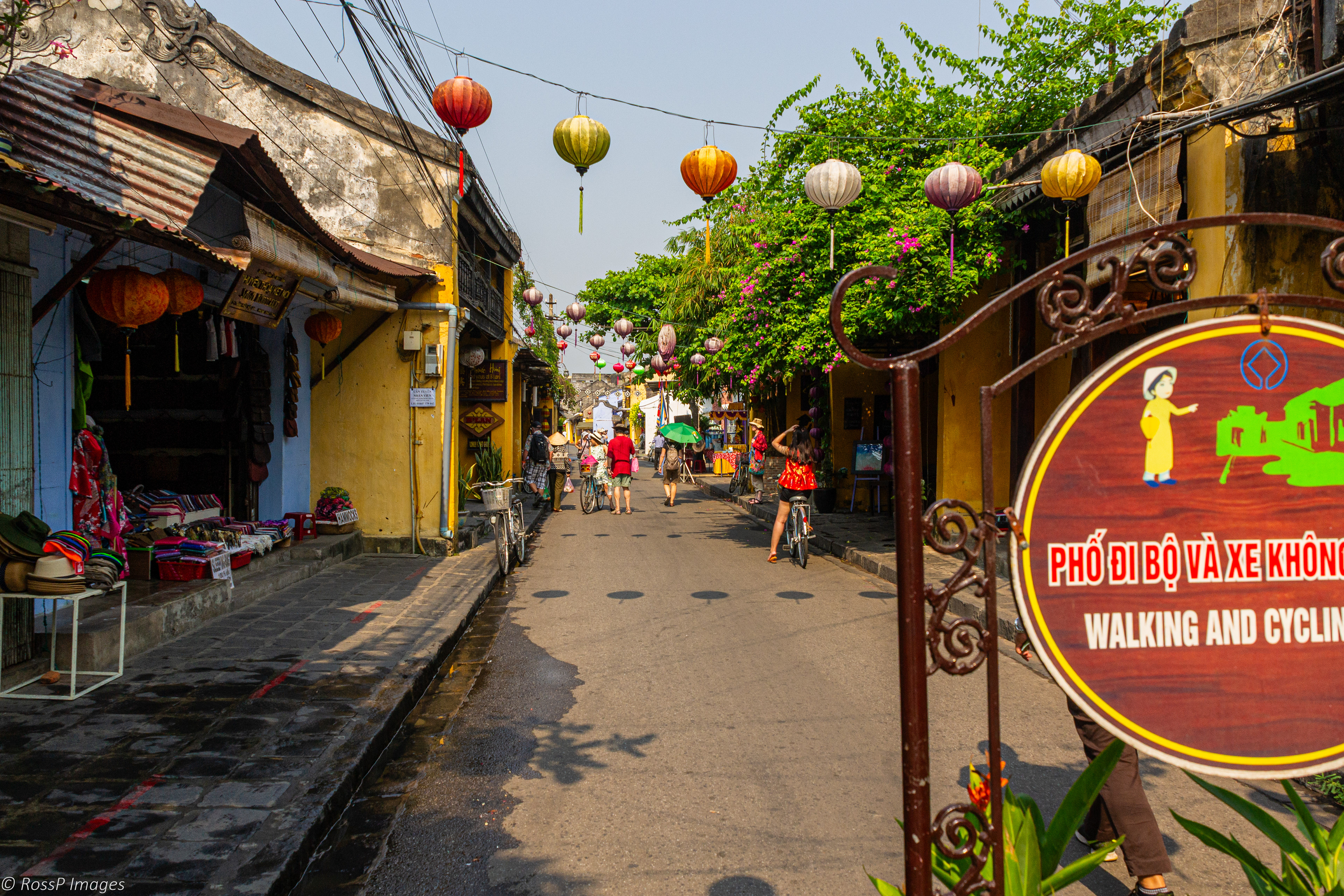
Phan Chau Trinh street in the central heritage area of Hoi An is a vehicle-free environment.
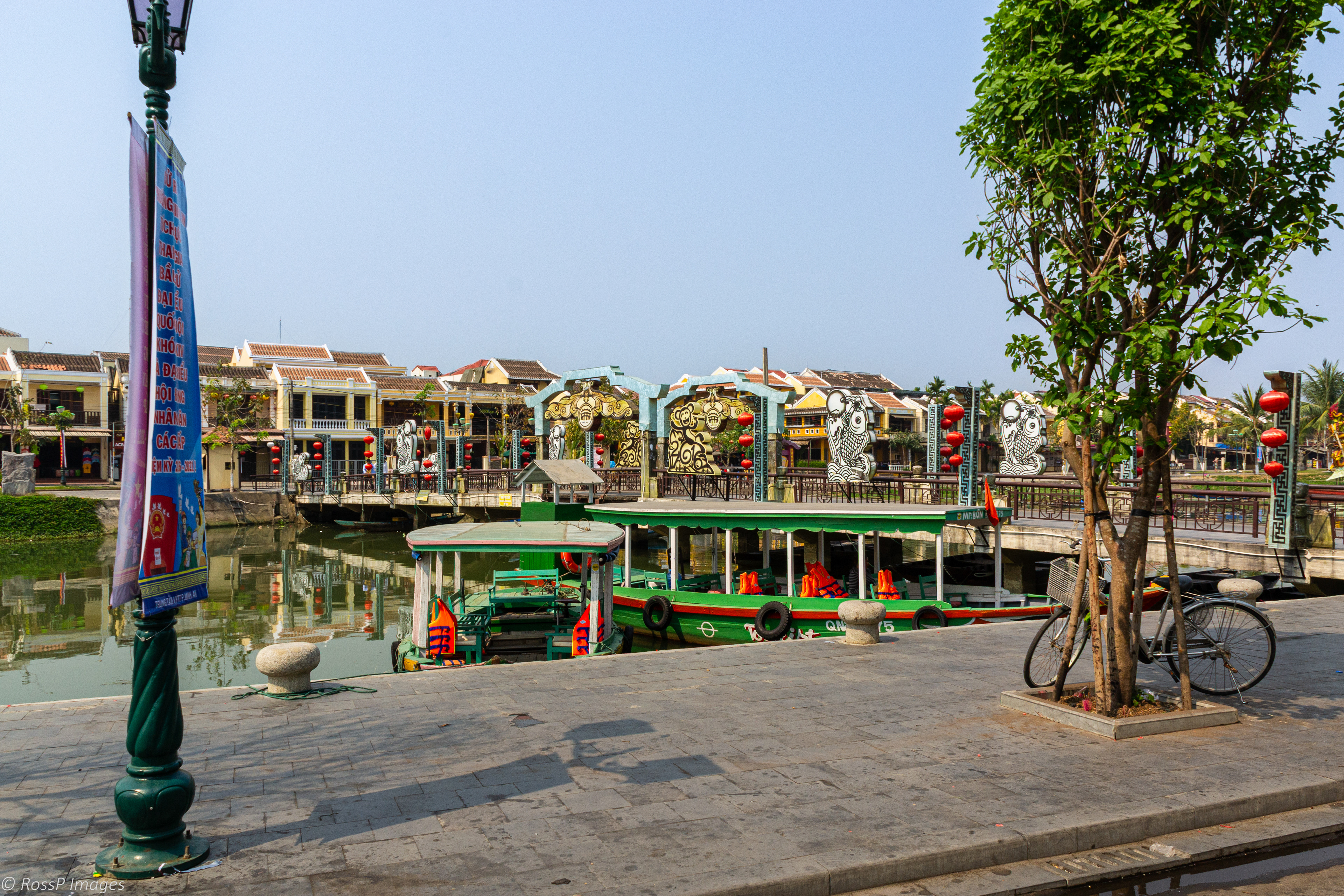
Tourist boats anchored in front of the pedesrtian bridge over Thu Bon River.

Sun smart Vietnamese lady on the Thu Bon River.
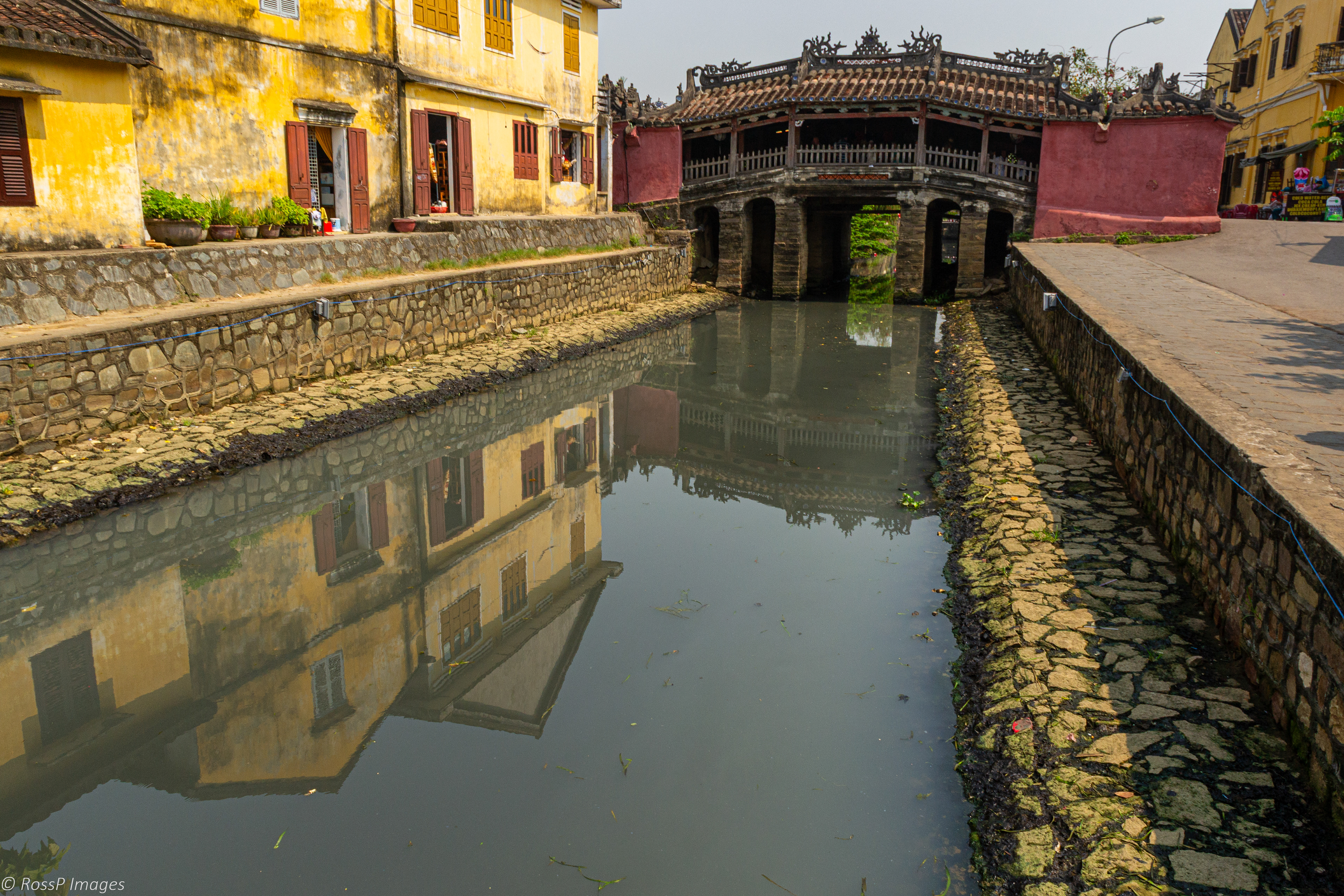
The Japanese Bridge (Chua Cau) built over a canal entering the Thu Bon river. The bridge was initially built by Japanese merchants in the late 16th century.
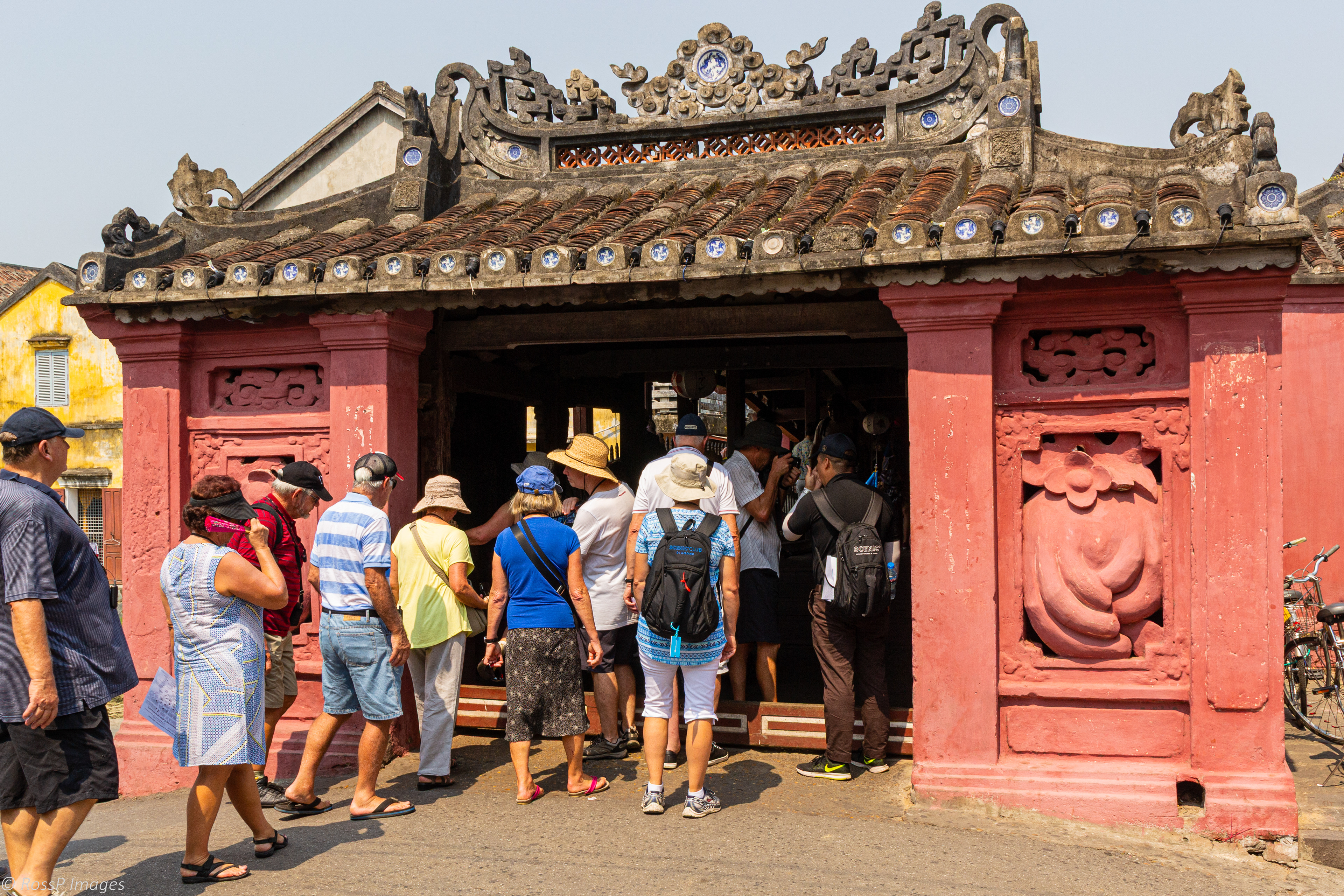
The Japanese Covered Bridge has a small Buddhist temple on its northern entrance.
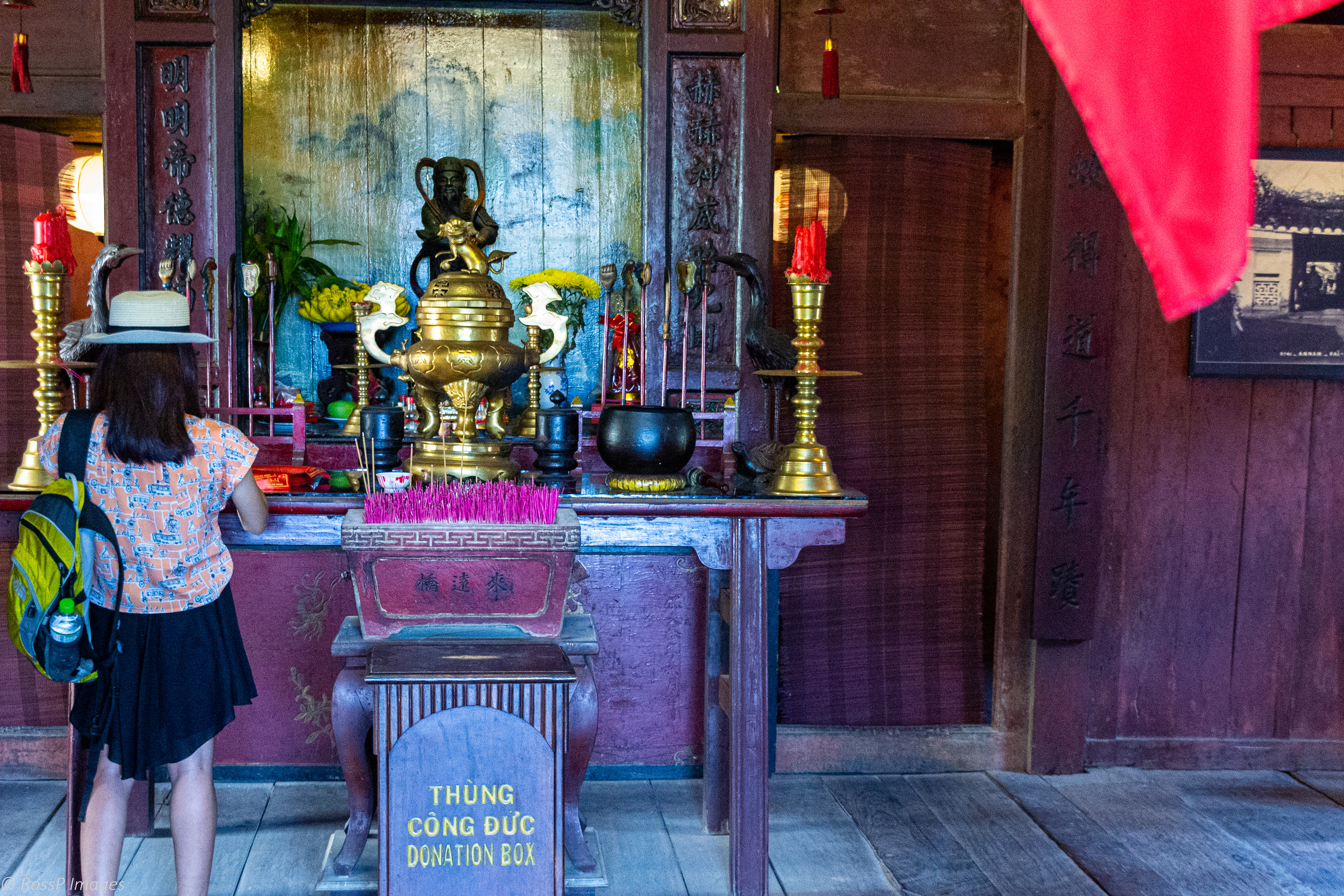
The Shrine inside the small Temple as you enter Chua Cau.
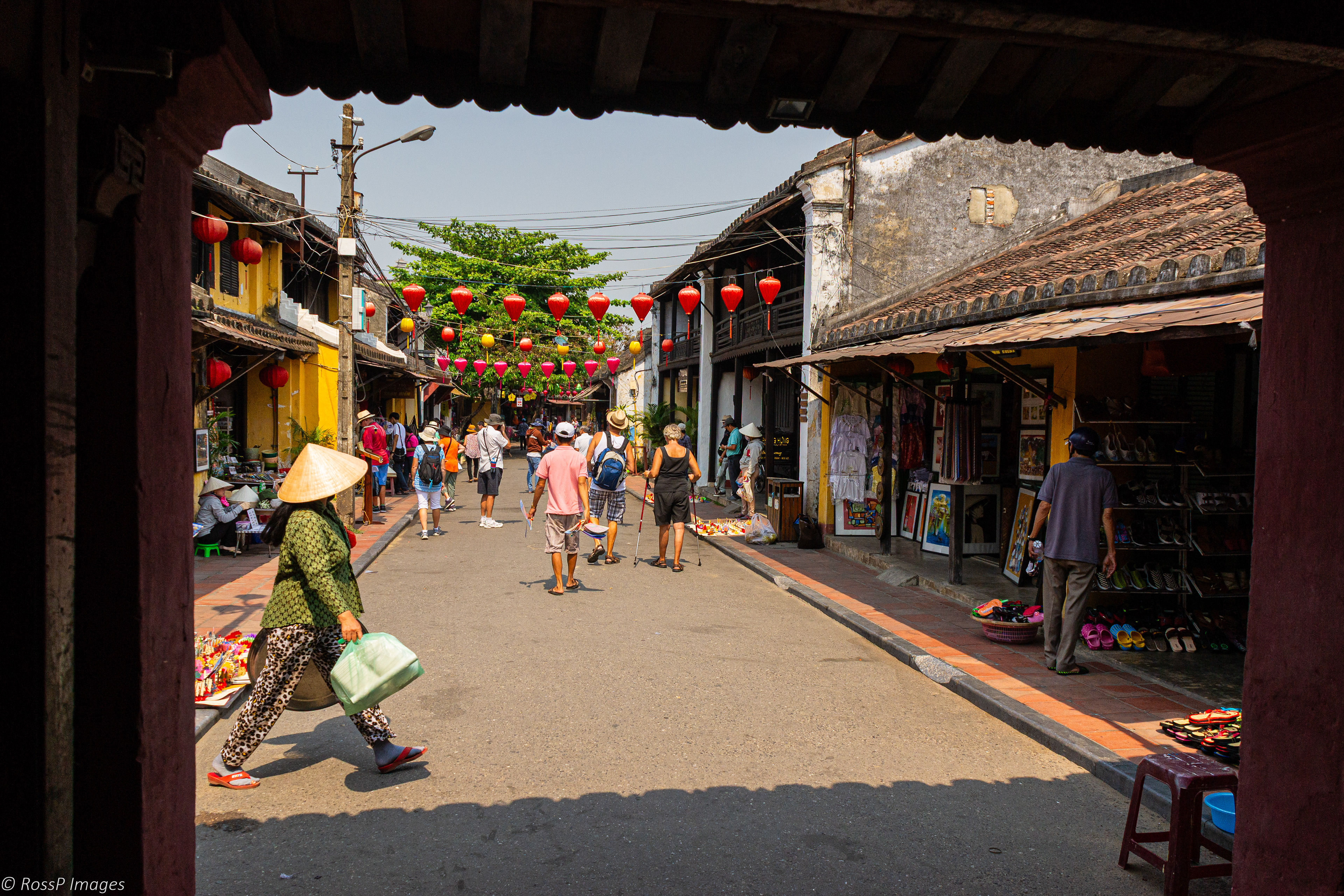
Tran Phu Street looking from the Japanese Bridge.
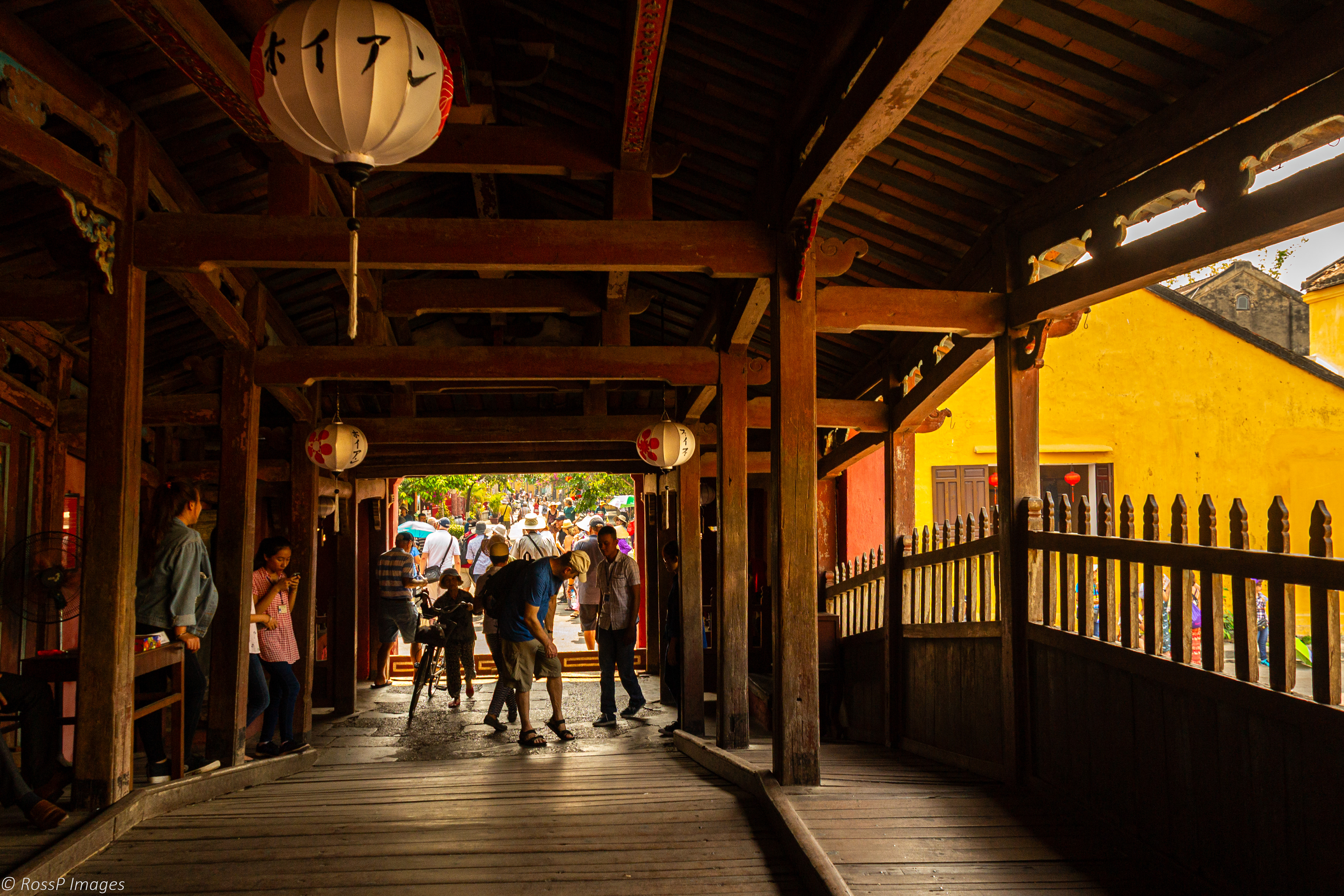
Inside the building frame is made of wood and utilizes three separate, but integrated roof systems for the three portions of the bridge.
Duc An Old house, Hoi An
Duc An Old House in Tran Phu street isn’t overrun with tourists as the owner, Mr Phan Ngoc Tram, a direct descendant of the founding family, claims that’s because he has resisted the temptation to give over his floorspace to souvenir selling. The property has been inhabited by the same family for over 400 years though the present house was built in 1850. It became the most successful bookshop in central Vietnam selling famous Vietnamese and Chinese texts as well as the works of foreign political thinkers like Rousseau and Voltaire. In the early twentieth century the house was a Chinese medicine dispensary. Soon after, it became the centre of anti-French activity in Hoi An.

Duc An house is a modest, unassuming building with little to hint at its historic background other than a small overhead sign.
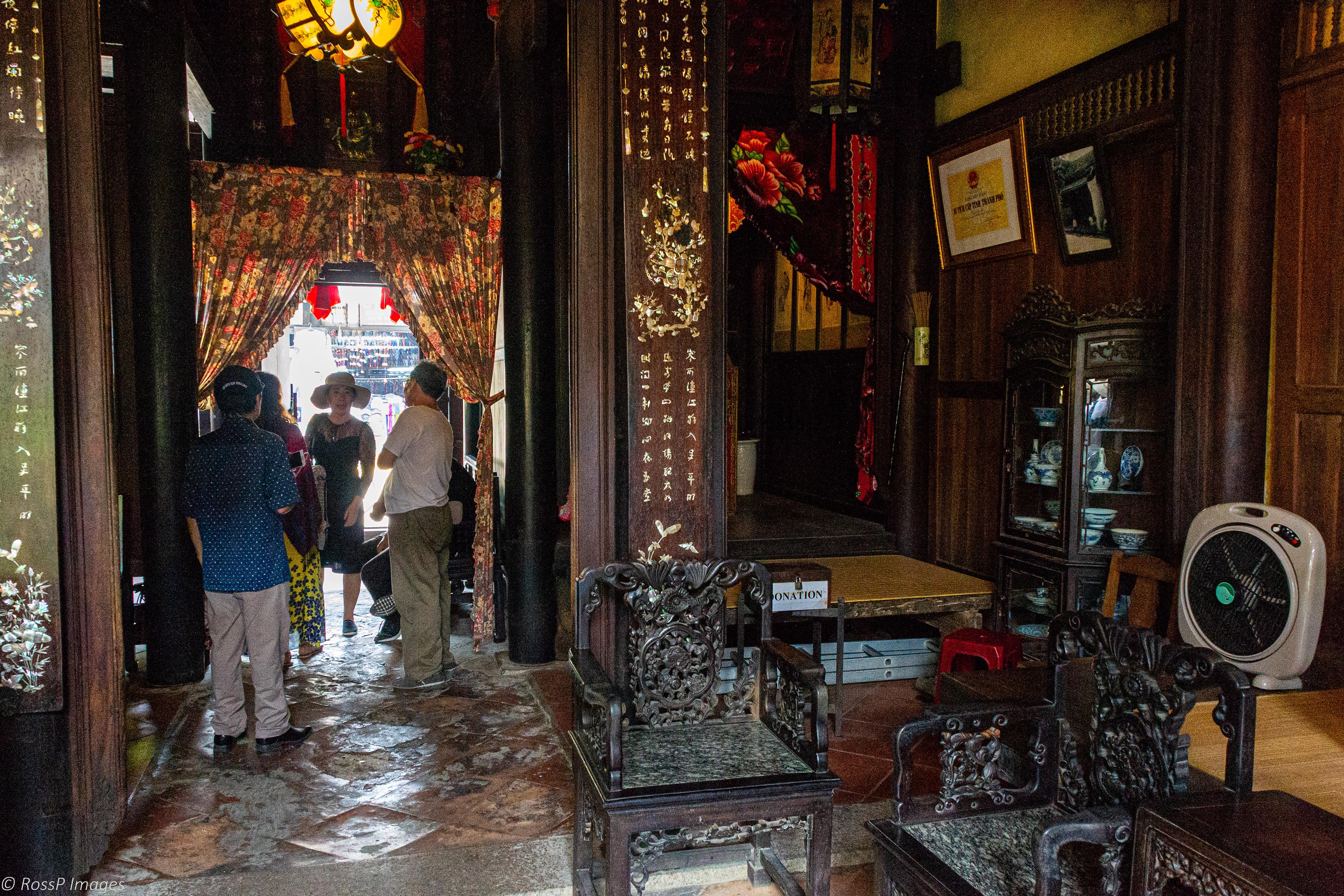
In 1908, the front of the house was converted into a shop selling Chinese medicine.

Adjacent the entry from the shop into the house is a shrine to the family's ancestors.
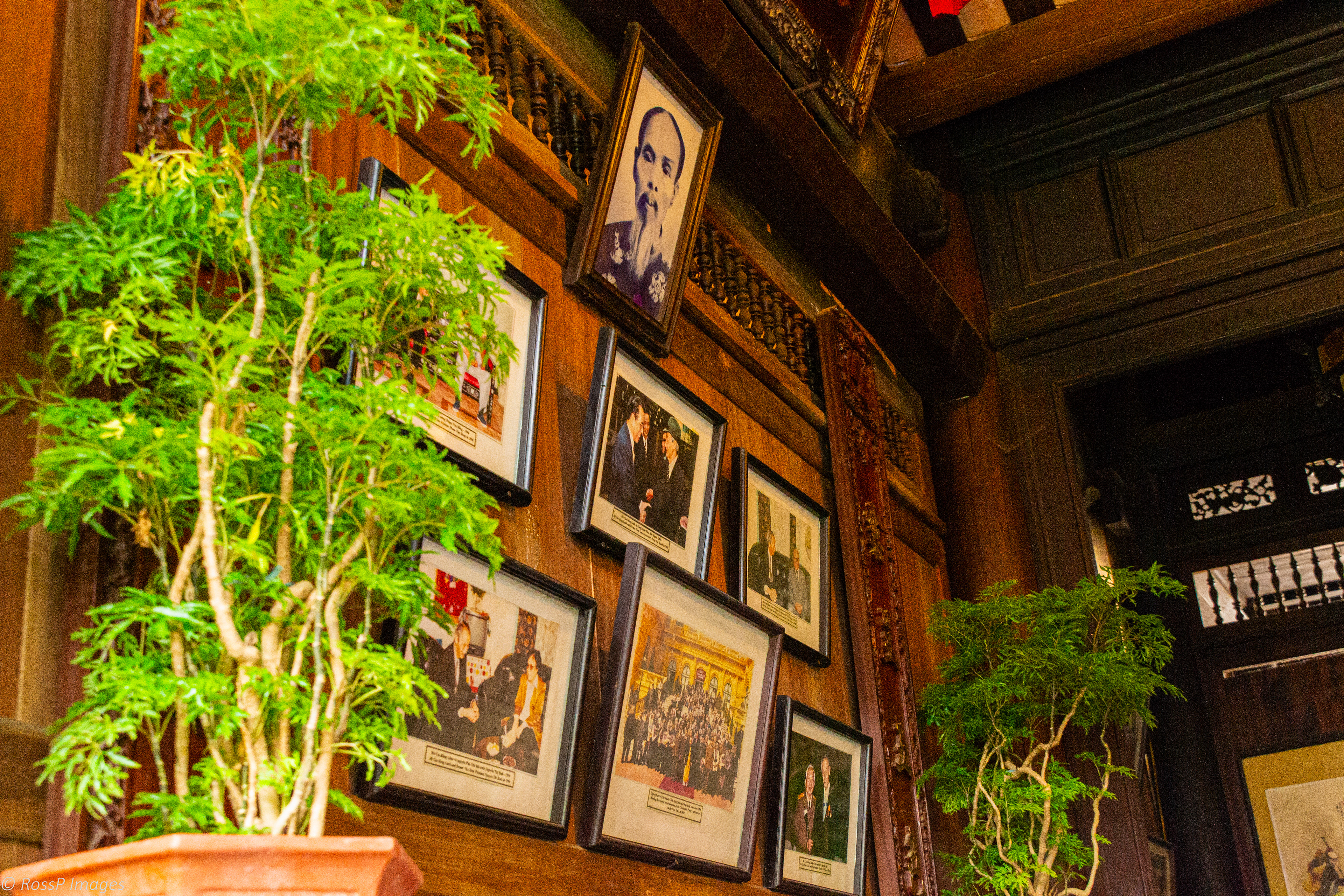
On display notable luminaries of early 20th century intellectuals, such as Phan Chu Trinh who frequented here.
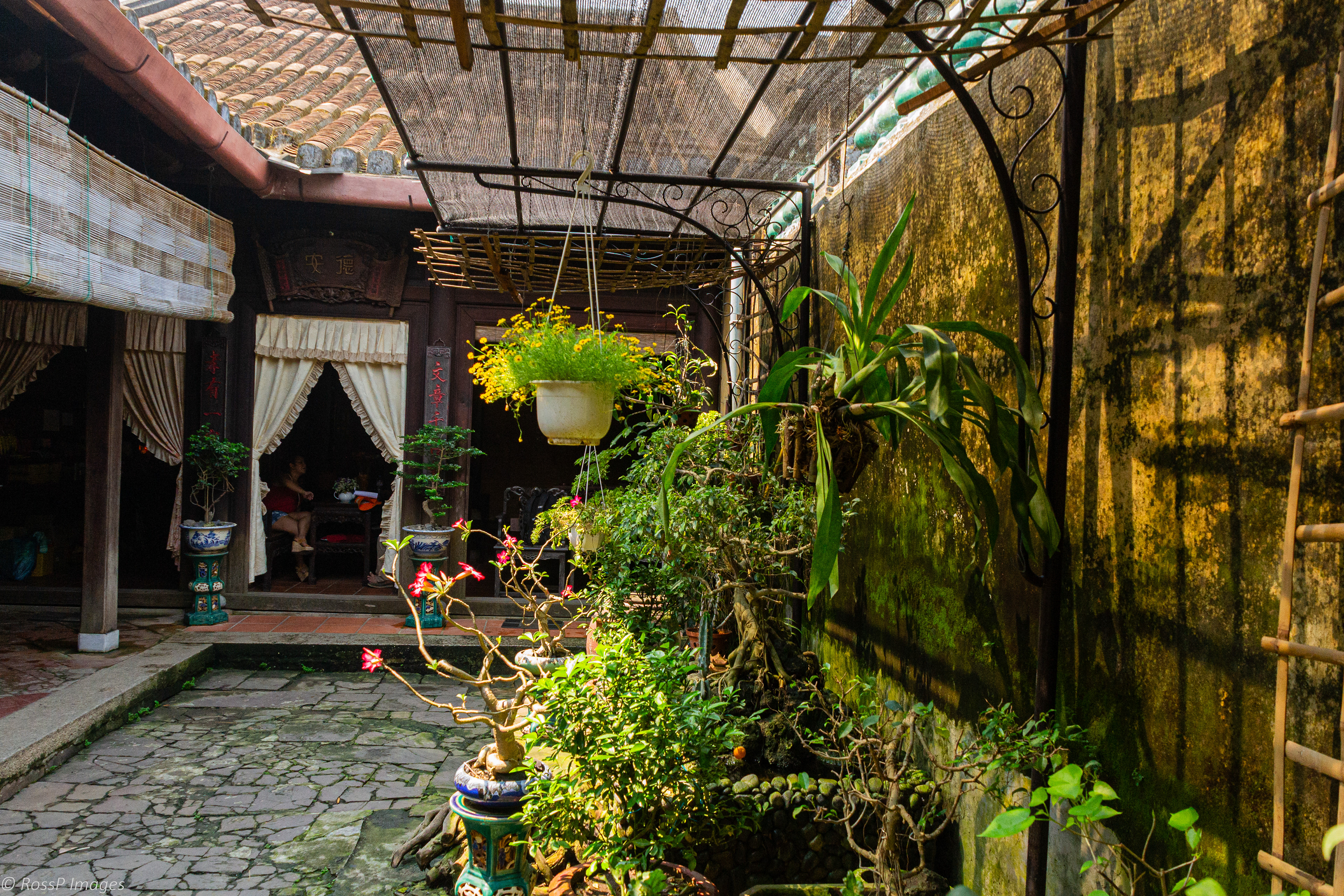
The central courtyard is typical of Vietnamese architectural style.

Duc An Old House's family living area
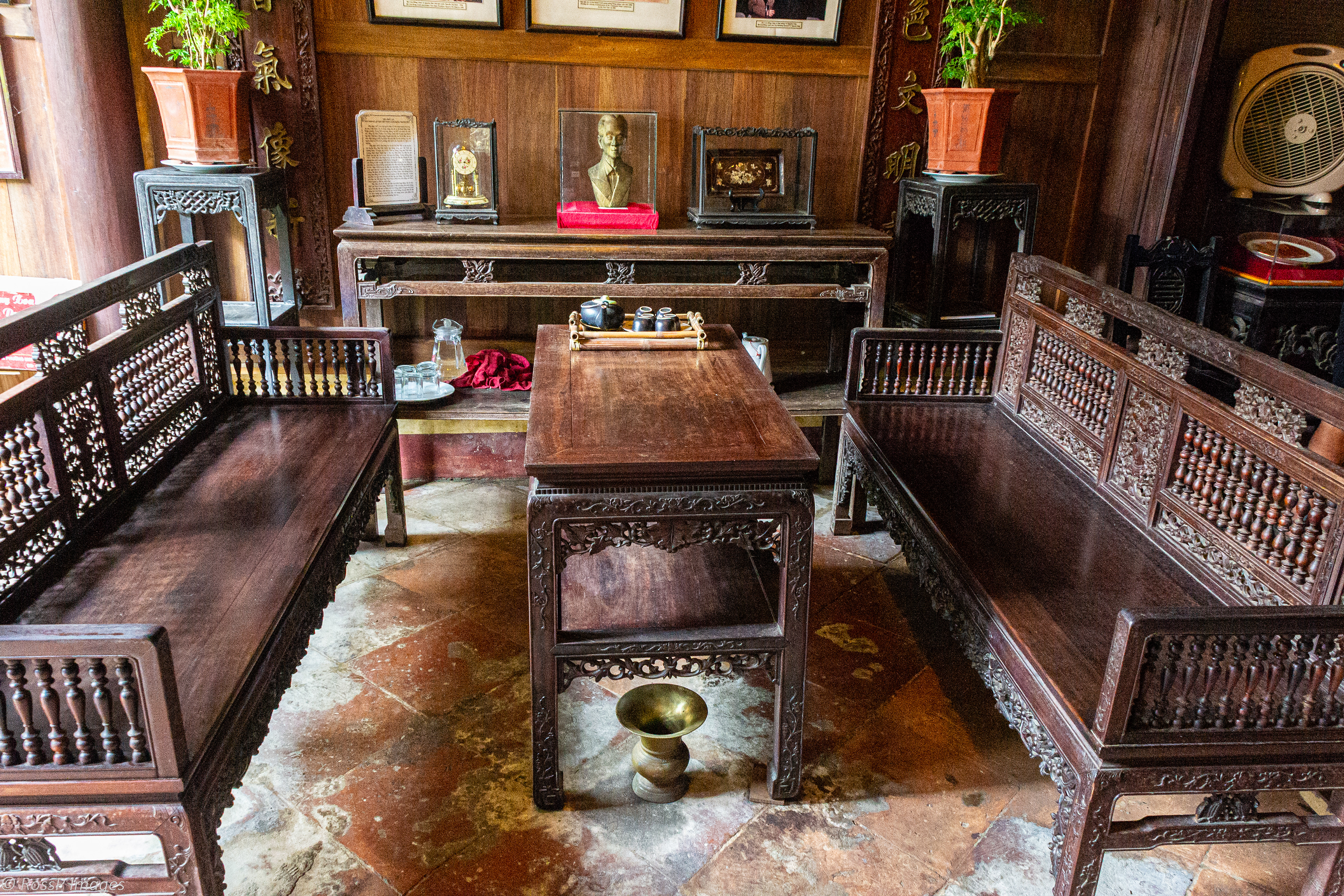
An informal area adjacent the central courtyard.

Duc An Old House features typical Vietnamese oversized architectural timber framing.
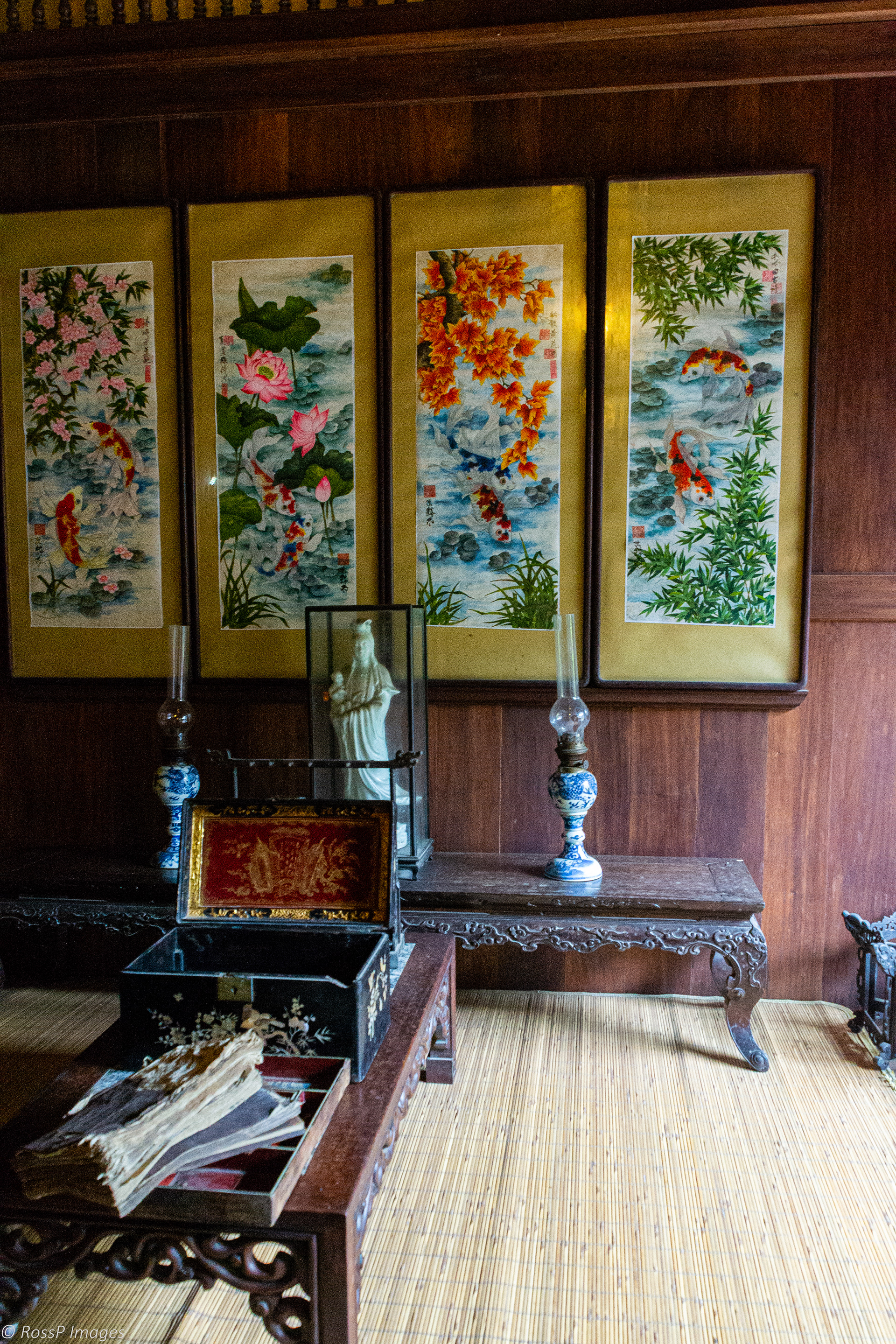
Duc An Old House's antique furniture and books.

A woven daybed.
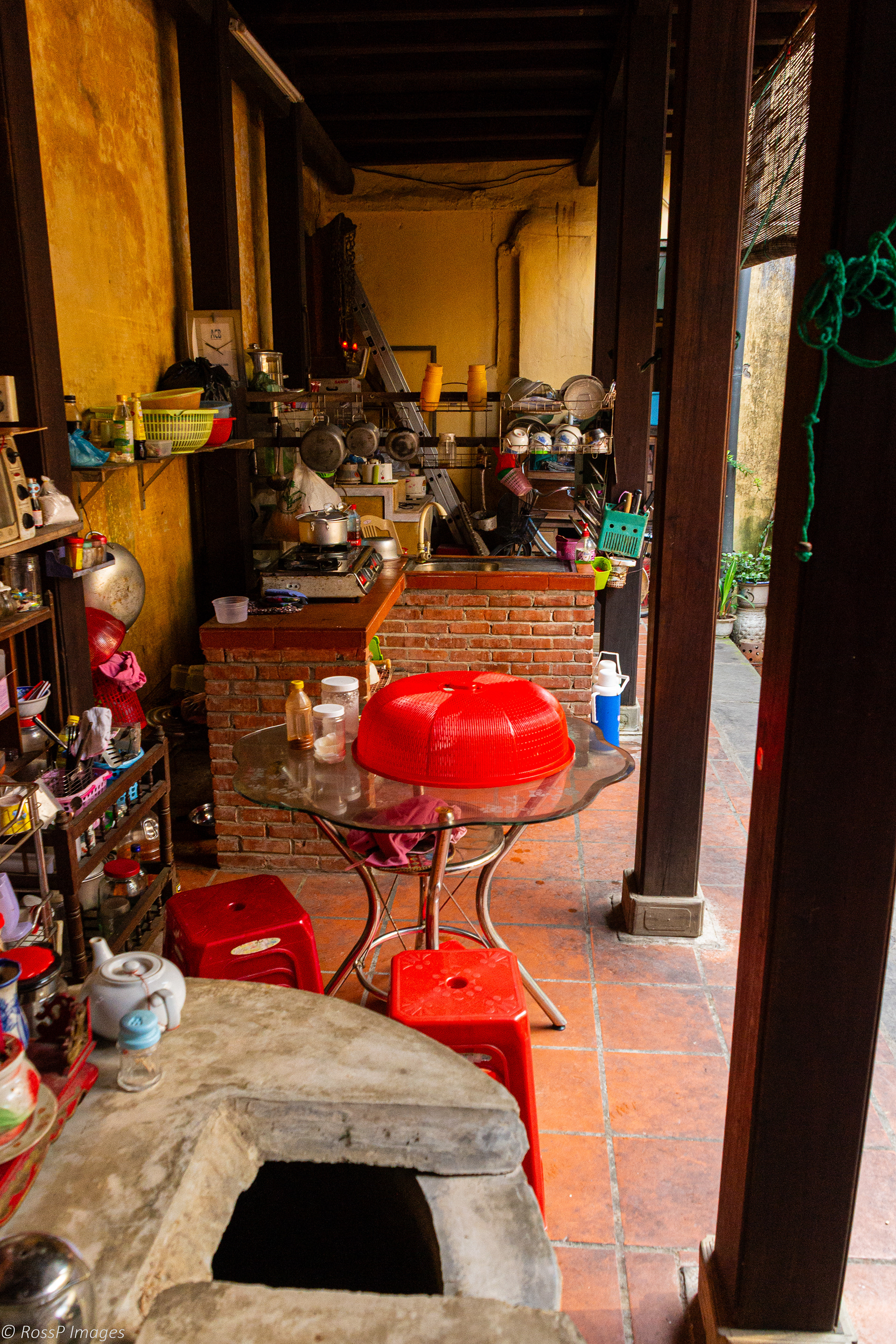
Duc An Old House- rear courtyard verandah and living area..
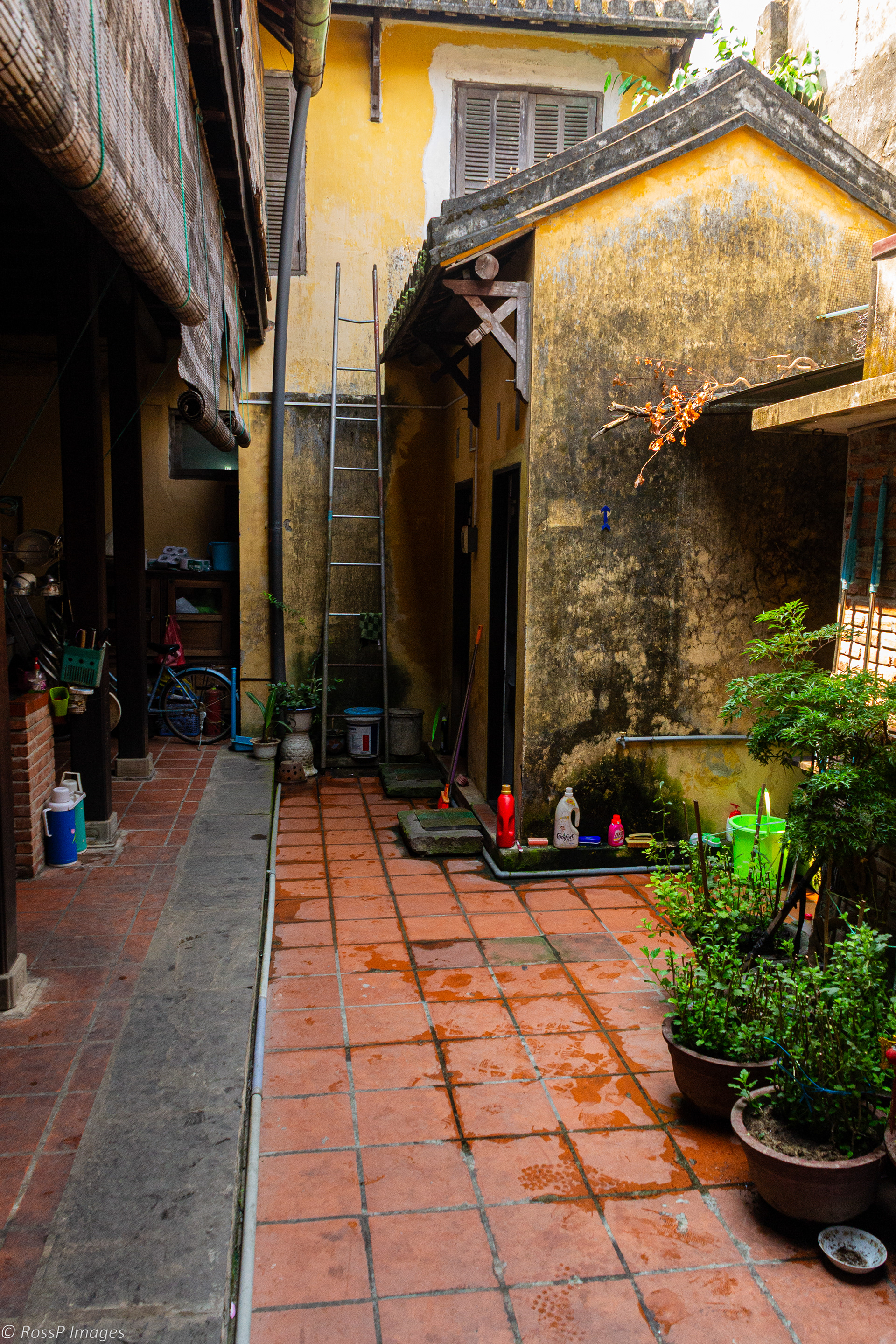
Duc An Old House - rear courtyard and washhouse.
My Son
We take a day trip to visit the monuments of My Son which date from the 4th to the 13th centuries CE and was the religious and political capital of the Champa Kingdom for most of its existence. The tower temples have a variety of architectural designs symbolizing the greatness and purity of Mount Meru, the mythical sacred mountain home of Hindu gods at the center of the universe and are constructed from fired brick with stone pillars and decorated with sandstone bas-reliefs depicting scenes from Hindu mythology. Unfortunately, many of the historical buildings were destroyed during the Vietnam war. The temples area was part of the People's Army and Viet Cong base area when United States aircraft bombed the region in 1969. The surrounding area is still considered dangerous through the presence of unexploded land mines.
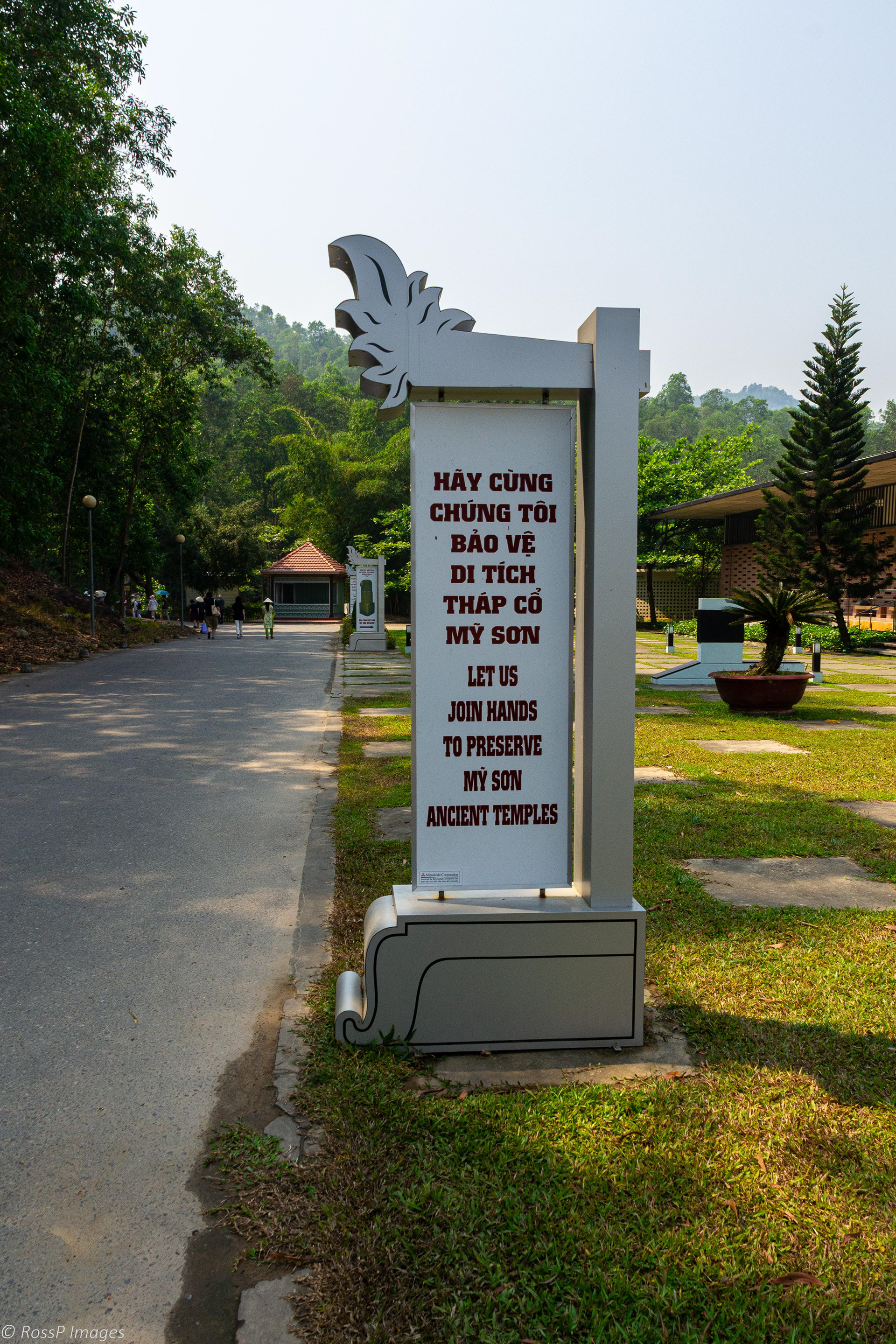
Entrance to My Son Sanctuary.
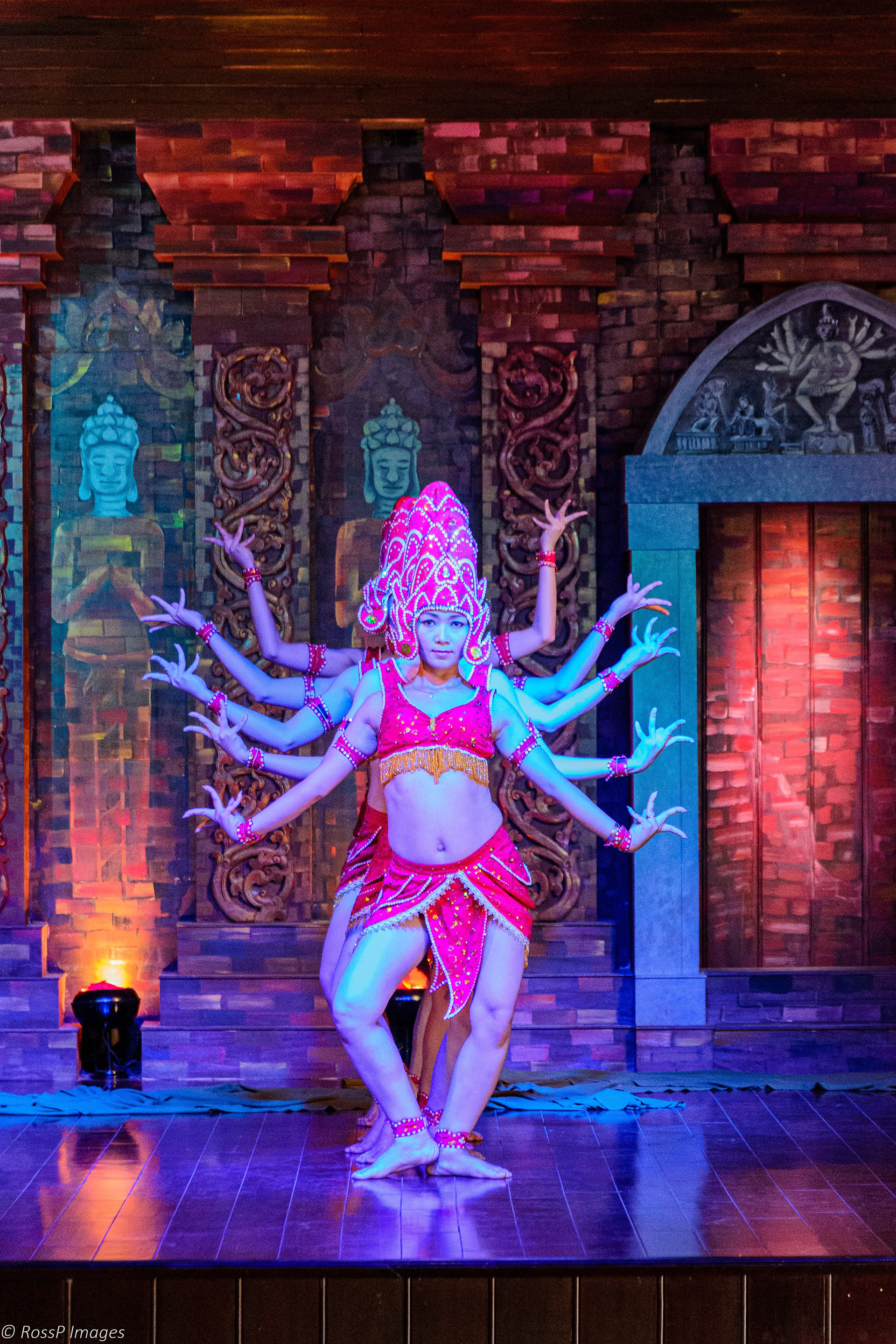
We experience a traditional dance performance at My Son temple complex.

Some monuments constructed from fired brick stone pillars and decorated with sandstone bas-reliefs depicting scenes from Hindu mythology.
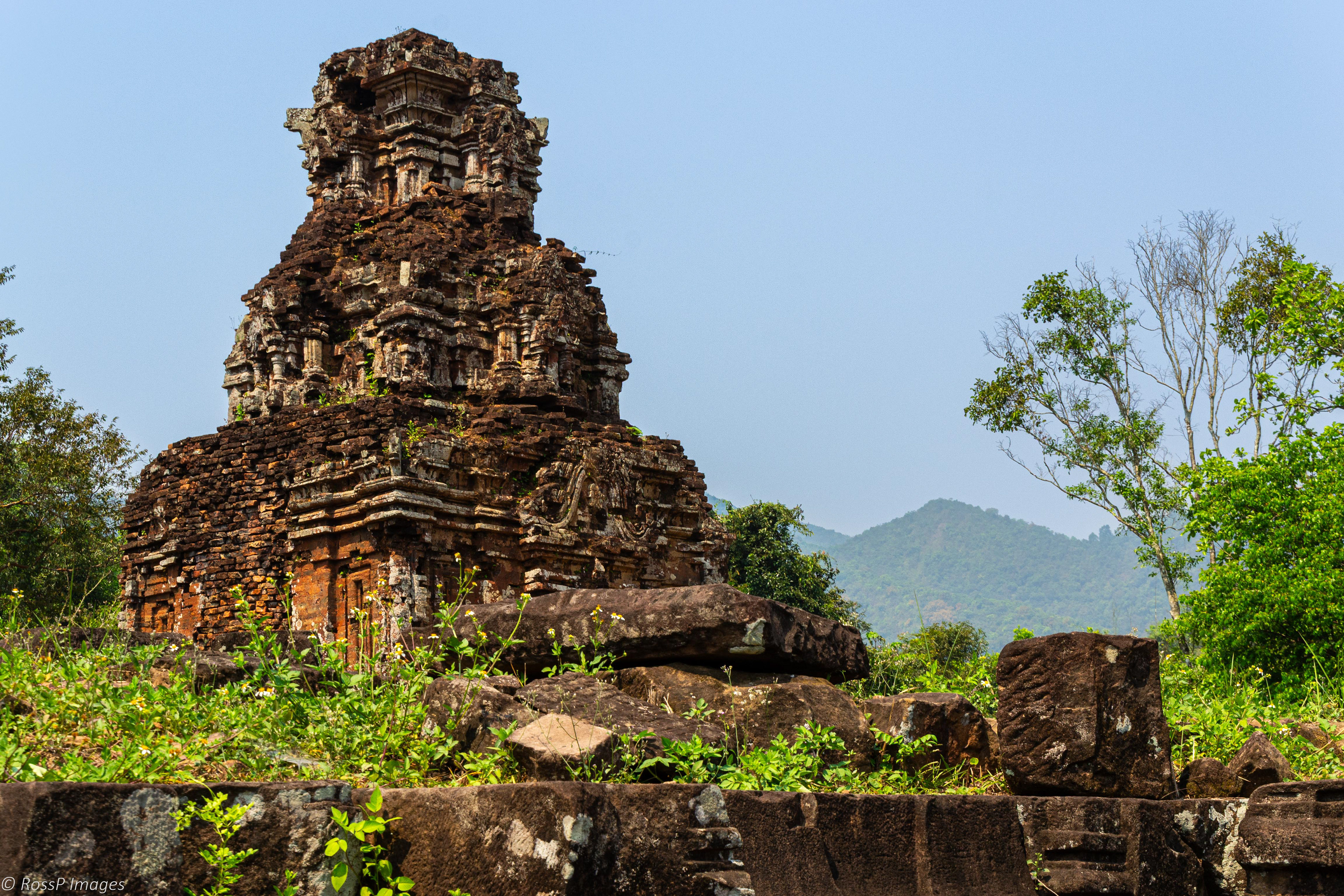
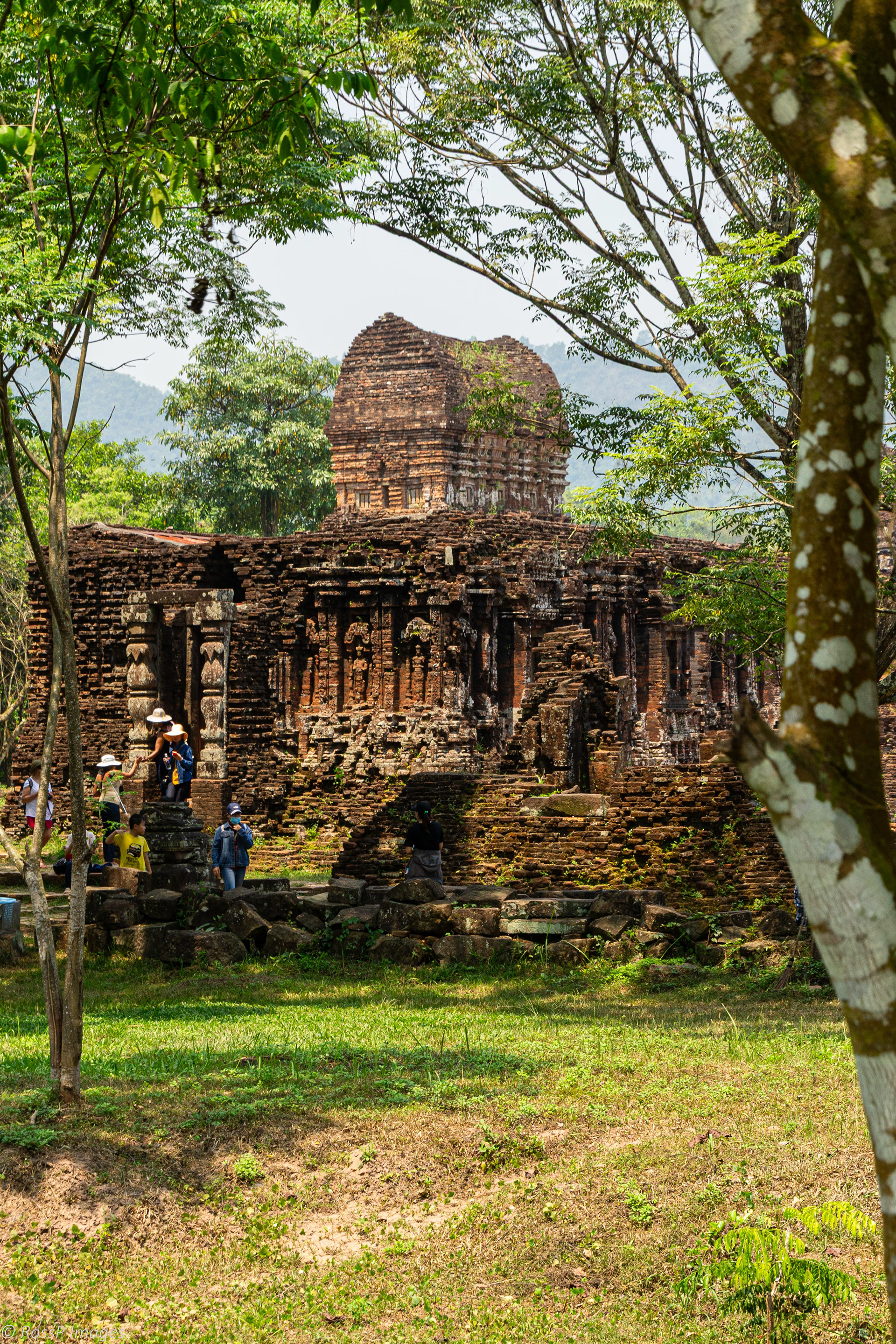
"The storehouse" is an outstanding surviving exemplar of the My Son style.
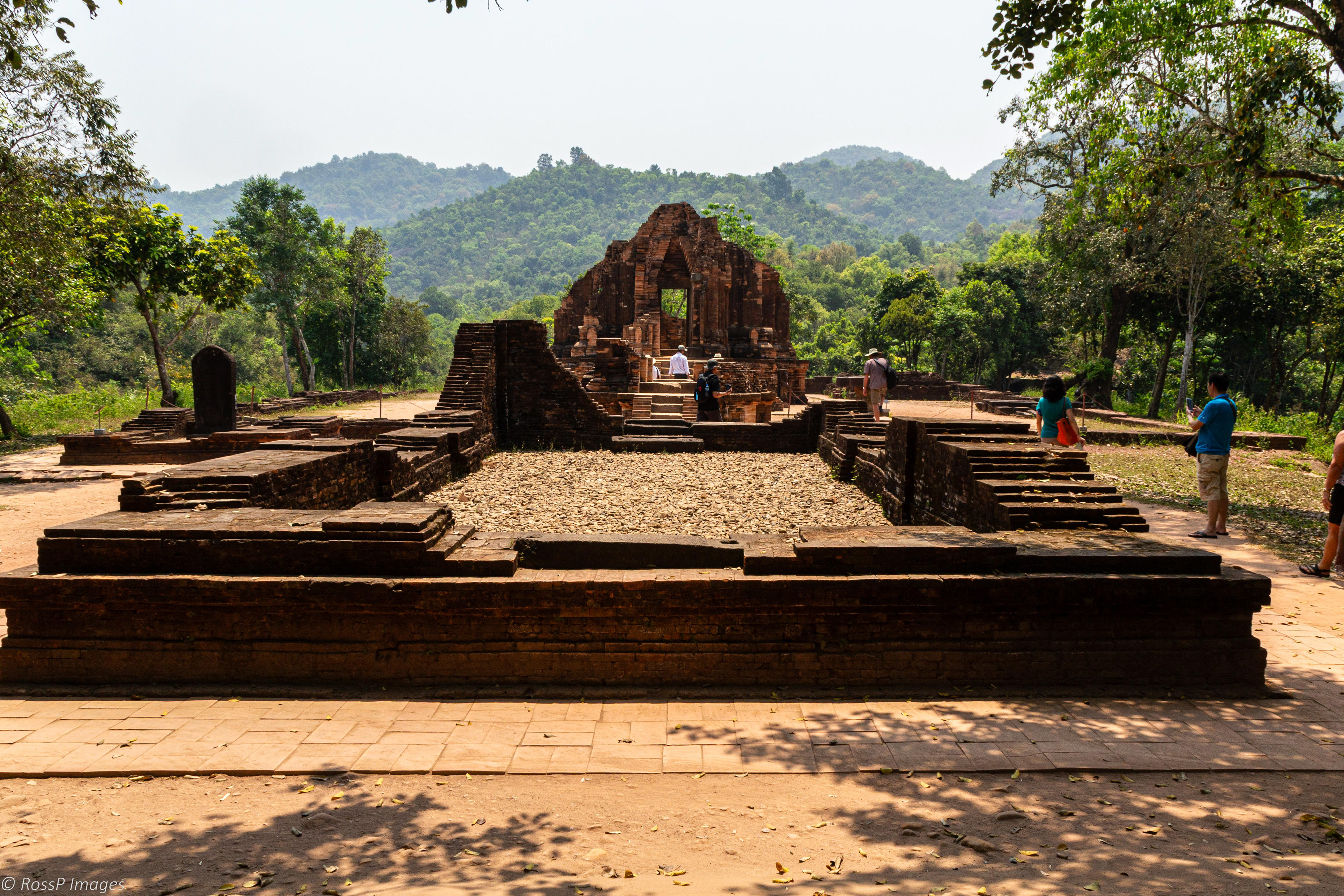
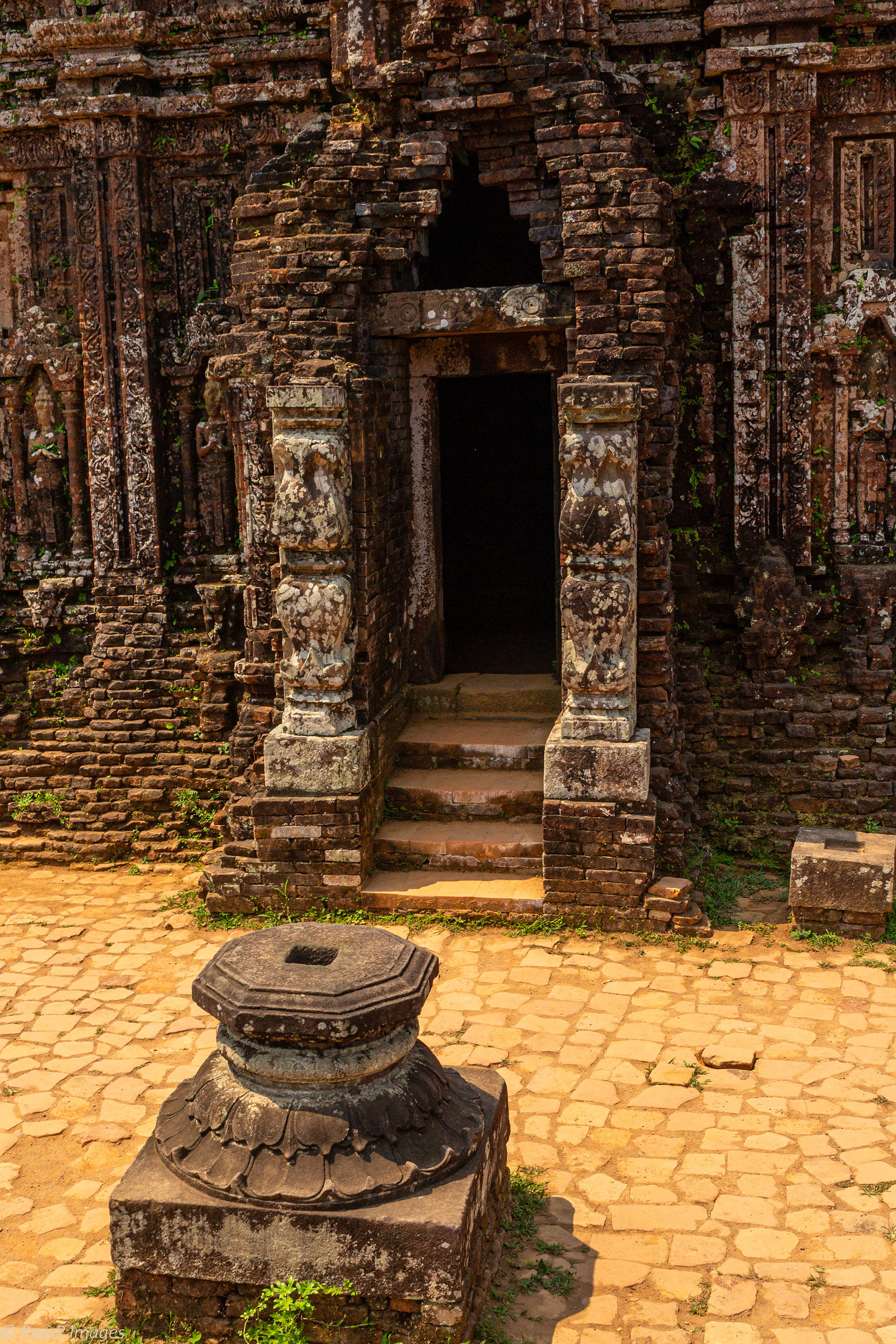

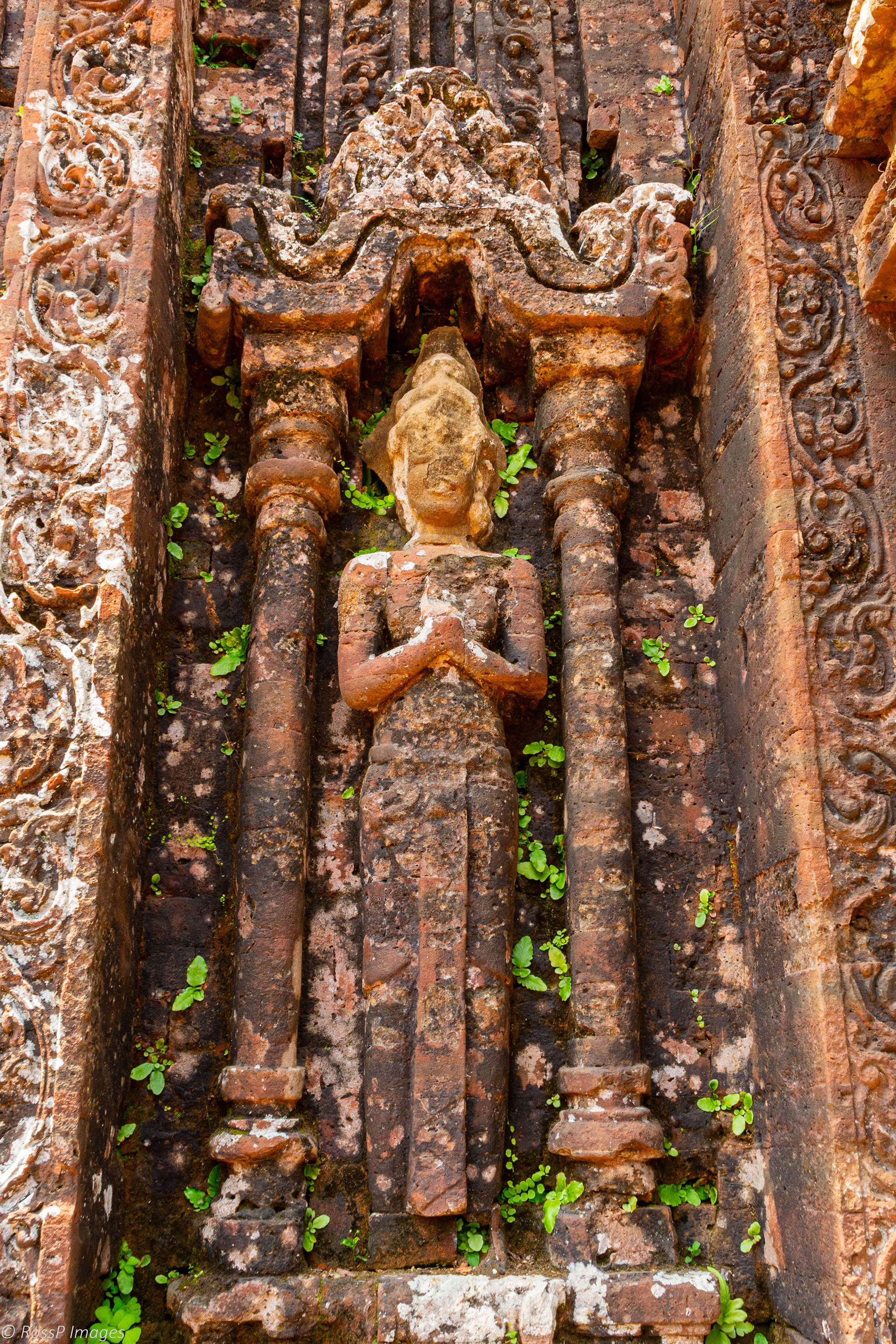
Decorative carvings have been cut directly into the bricks.
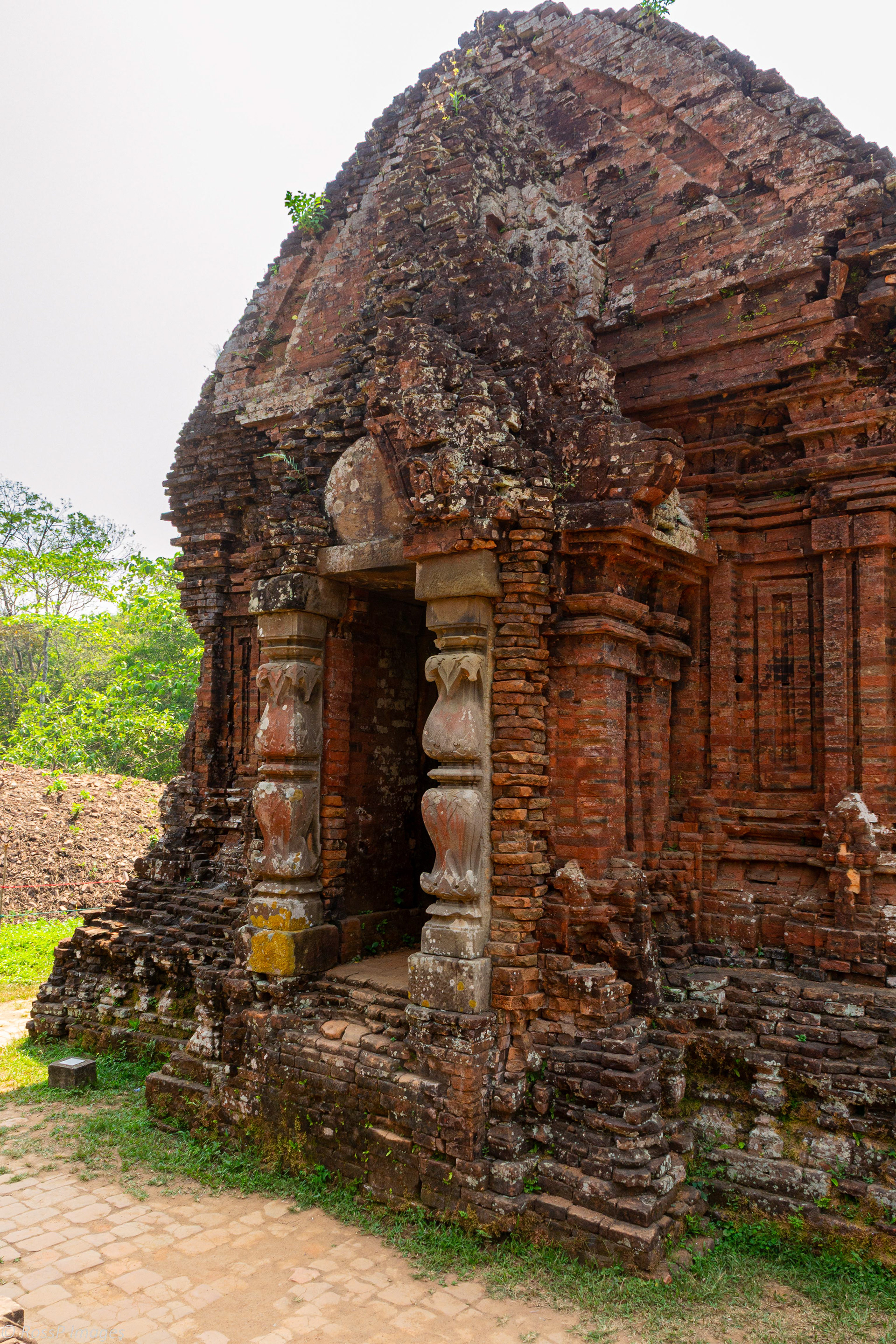
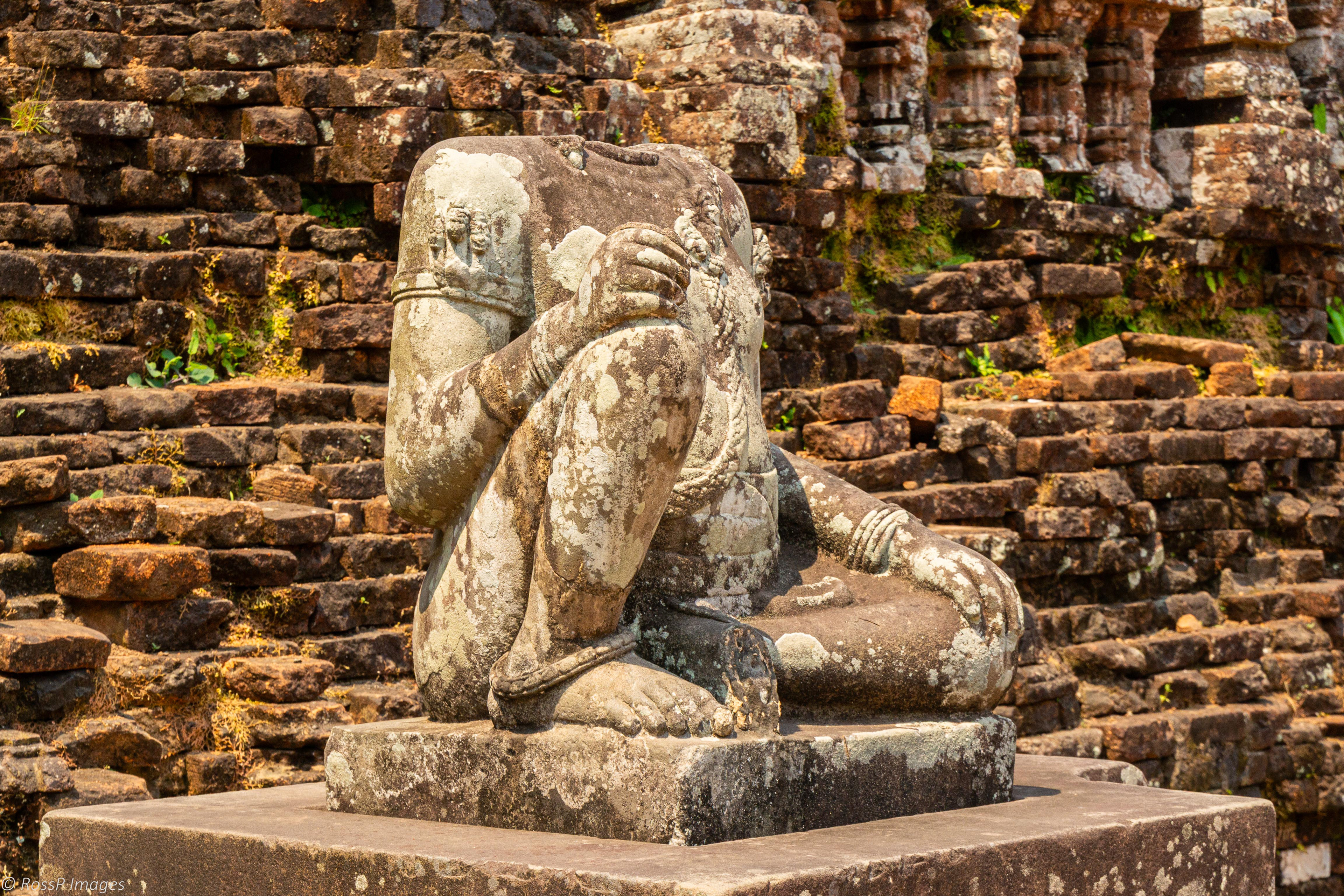
A headless sandstone sculpture of a Hindu diety.
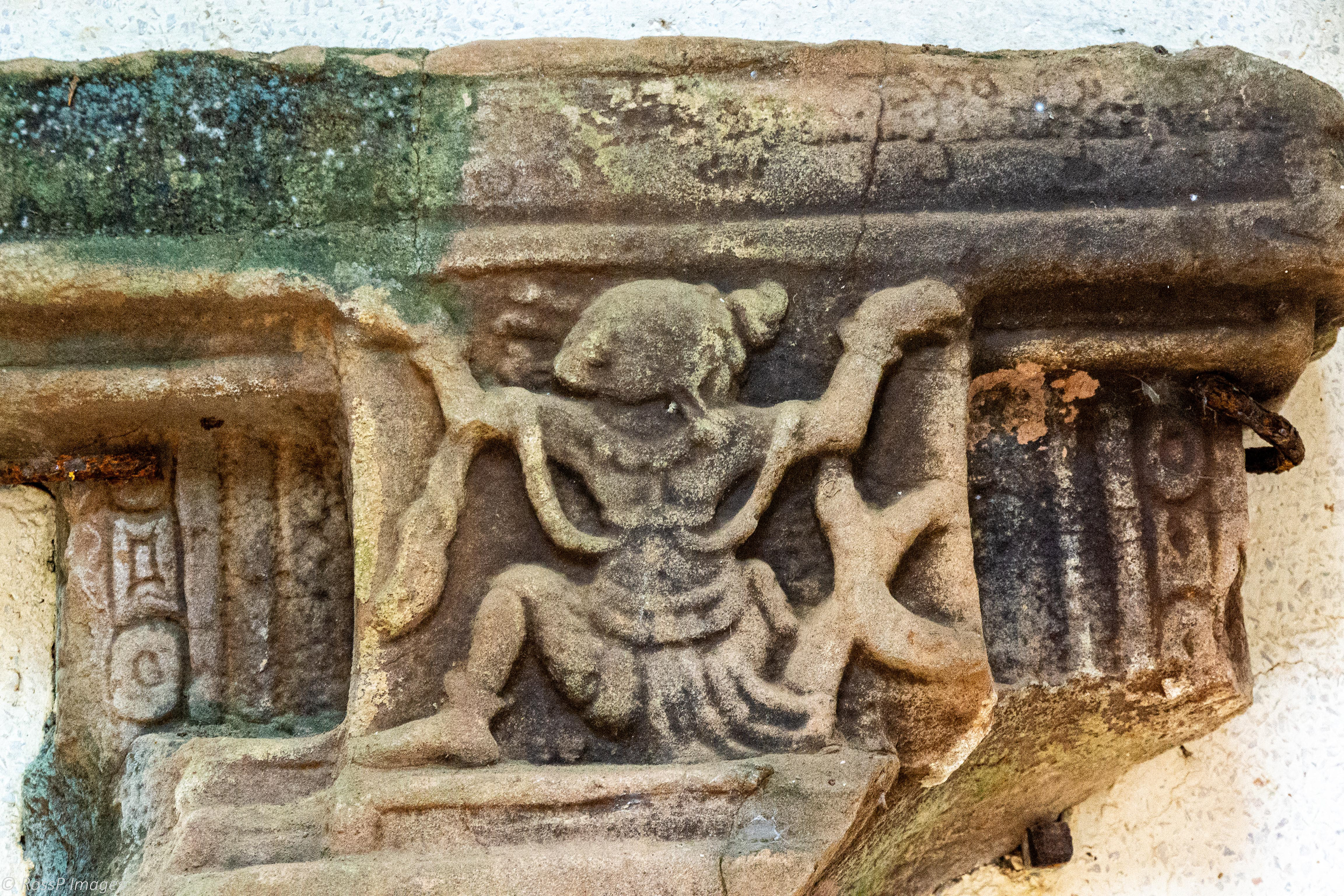
Sandstone bas-relief carvings.
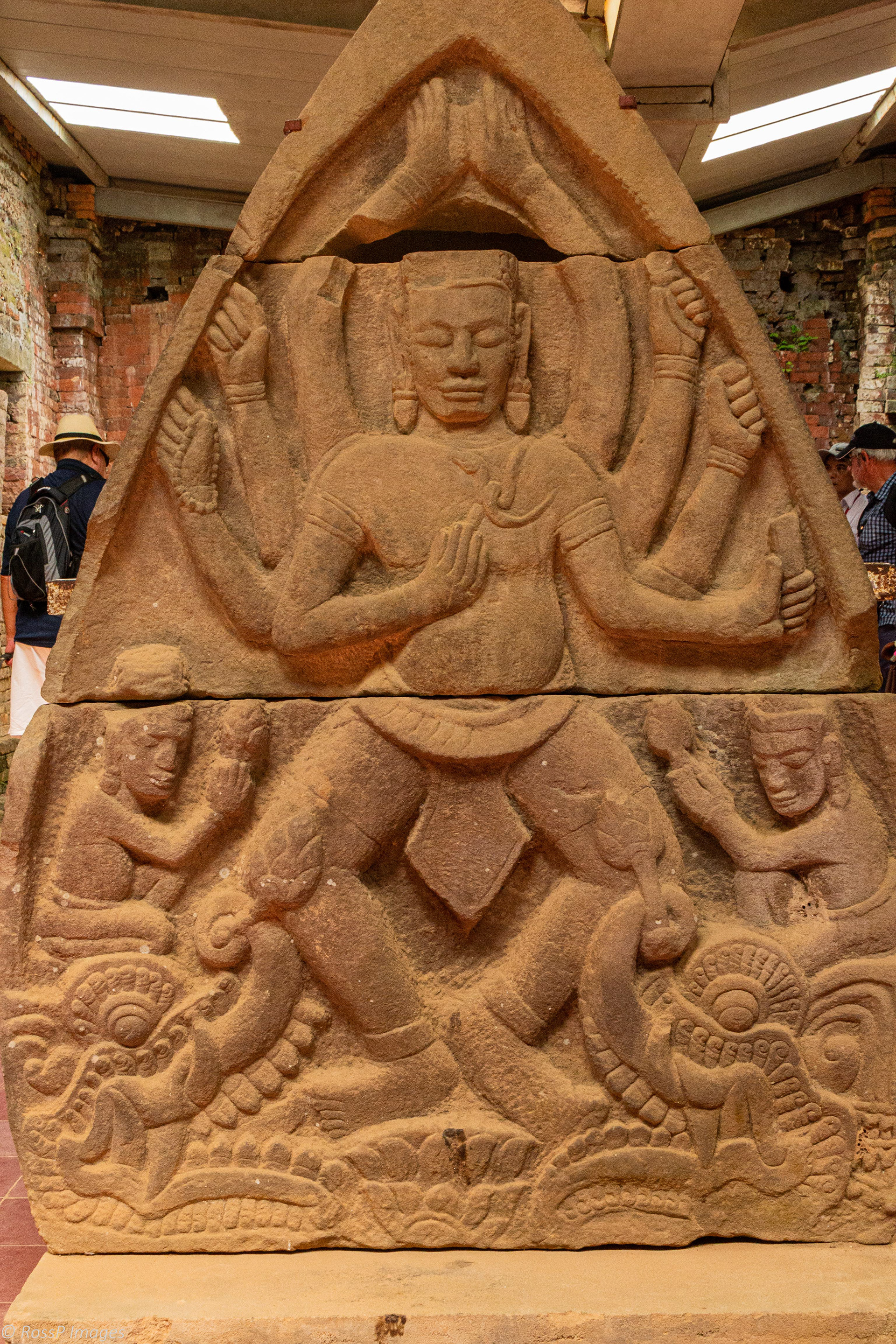
Ho Chi Minh City (formerly Saigon)
We finally arrive in Ho Chi Minh City which will be our base for several days before heading to the Mekong Delta area where we will join a river cruise on the Mekong to Cambodia.
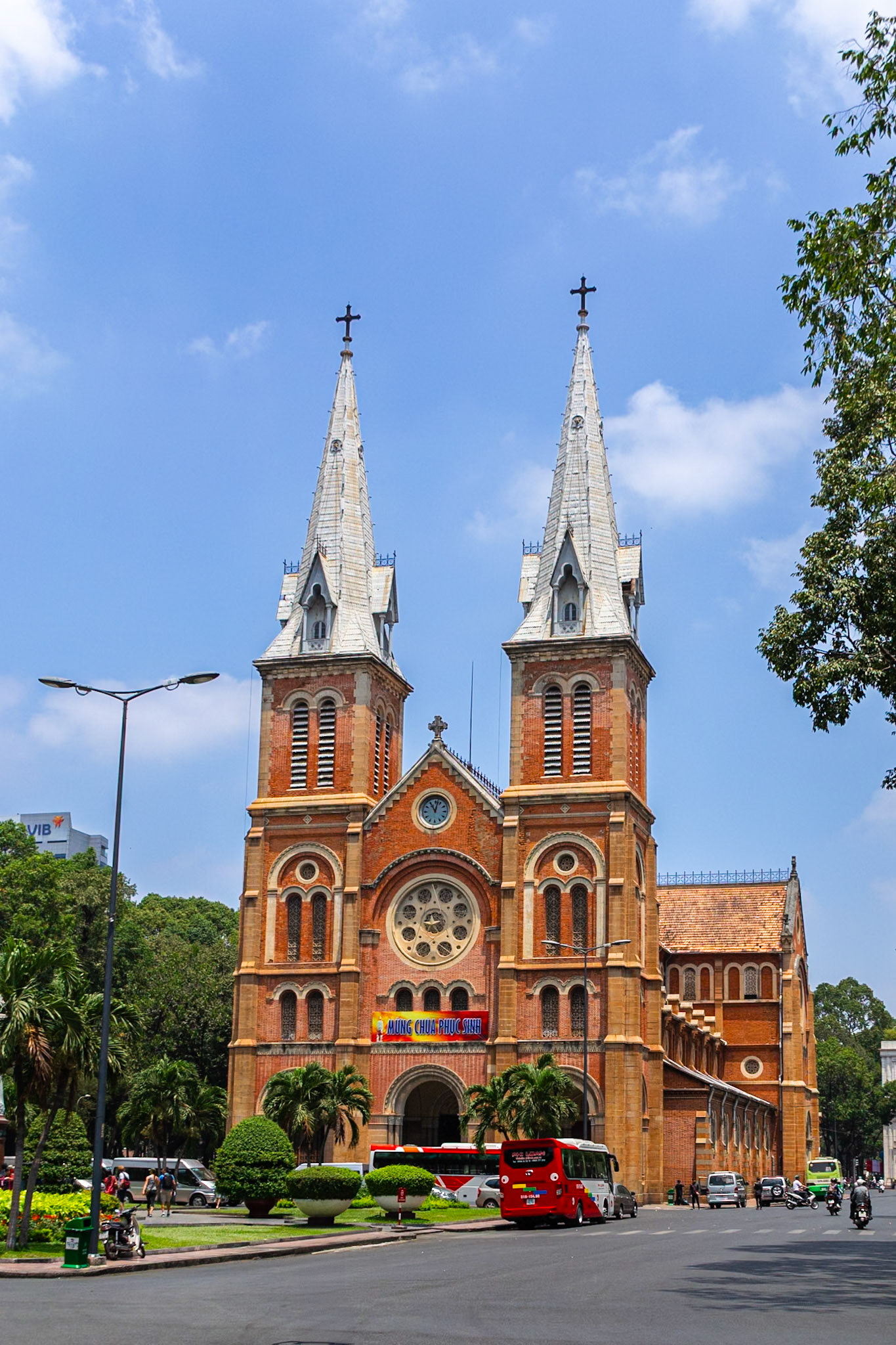
Notre-Dame Cathedral Basilica of Saigon.
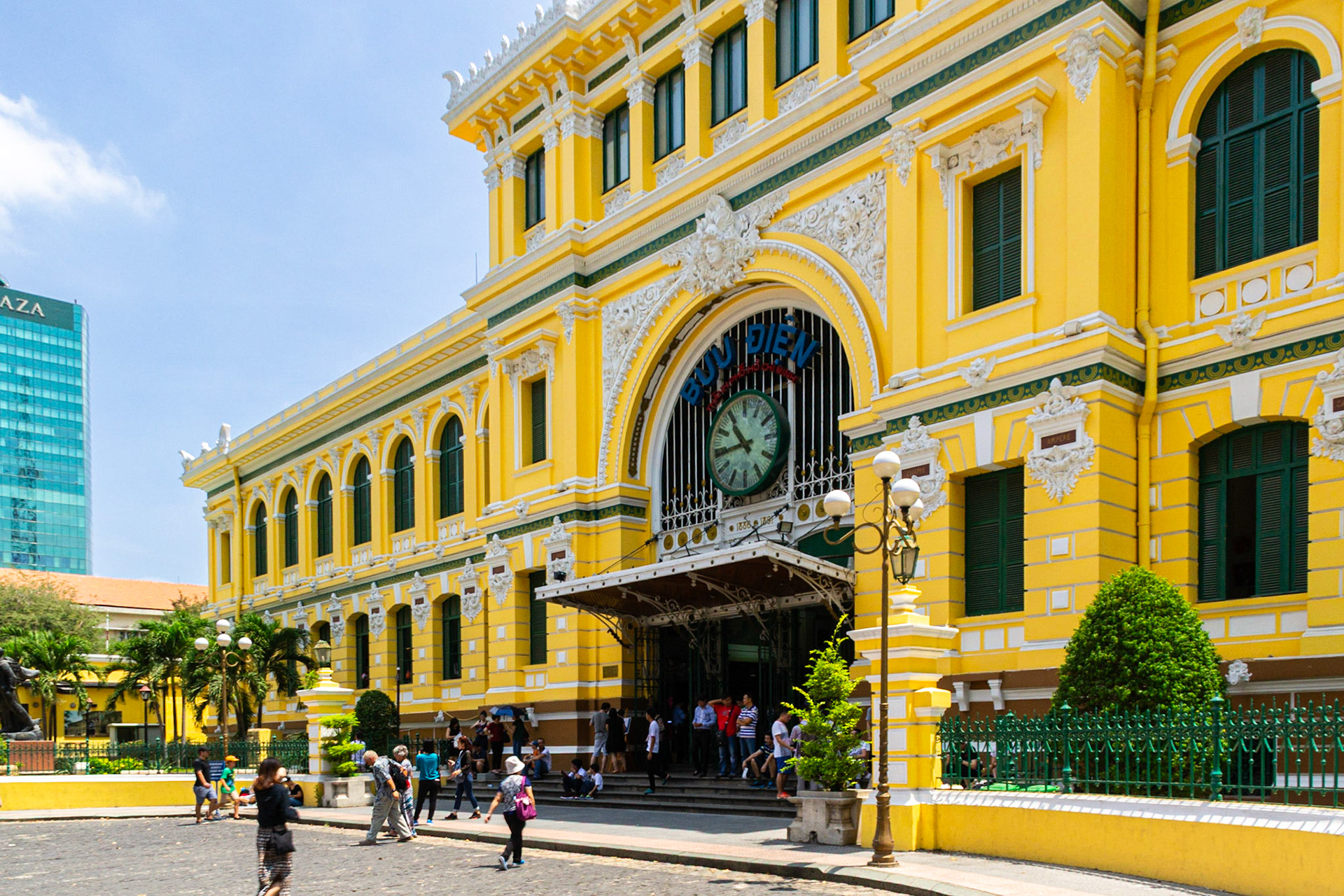
The old Saigon Railway Station was built by the French in 1881.
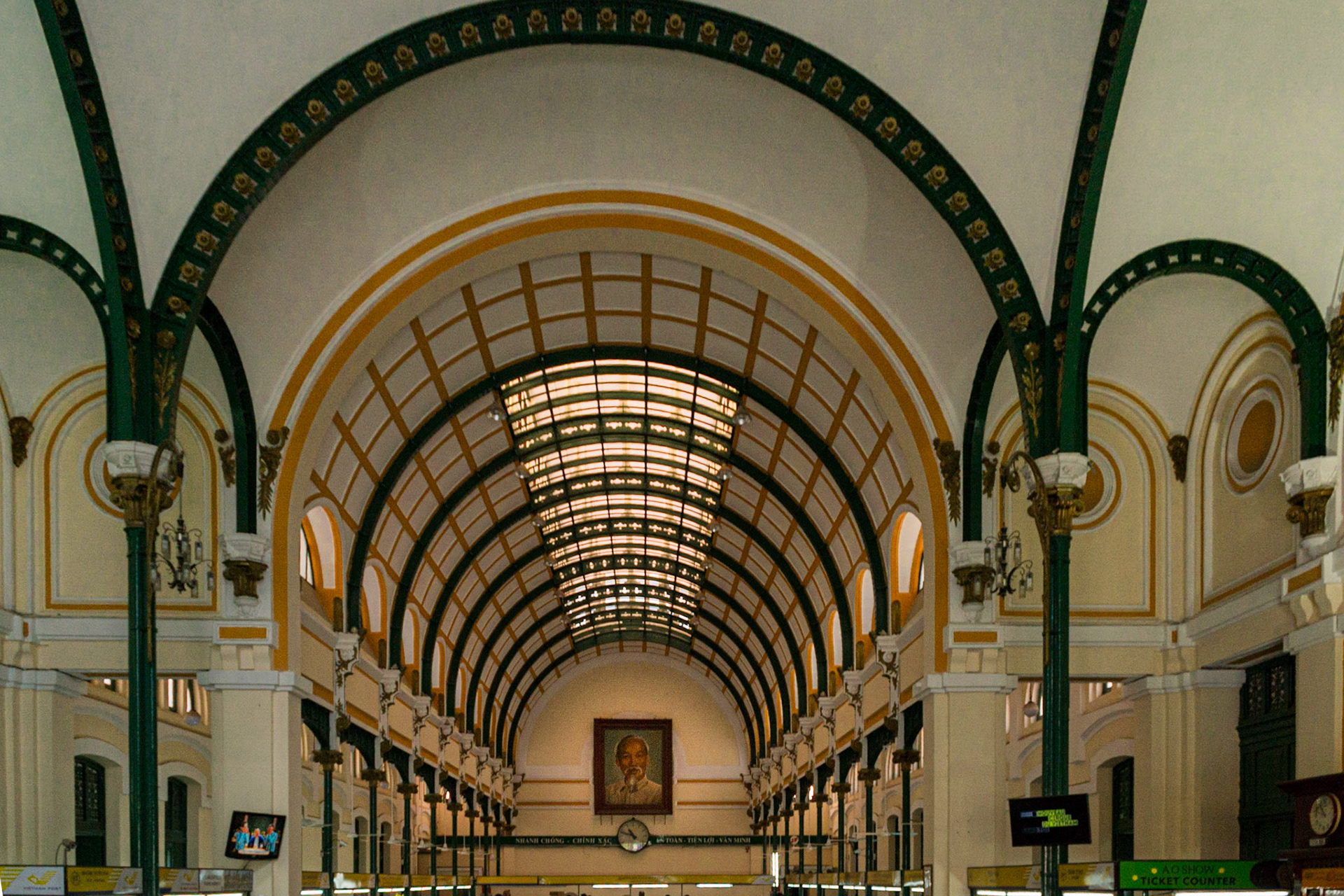
A portrait of Ho Chi Minh himself at the end of the main gallery.
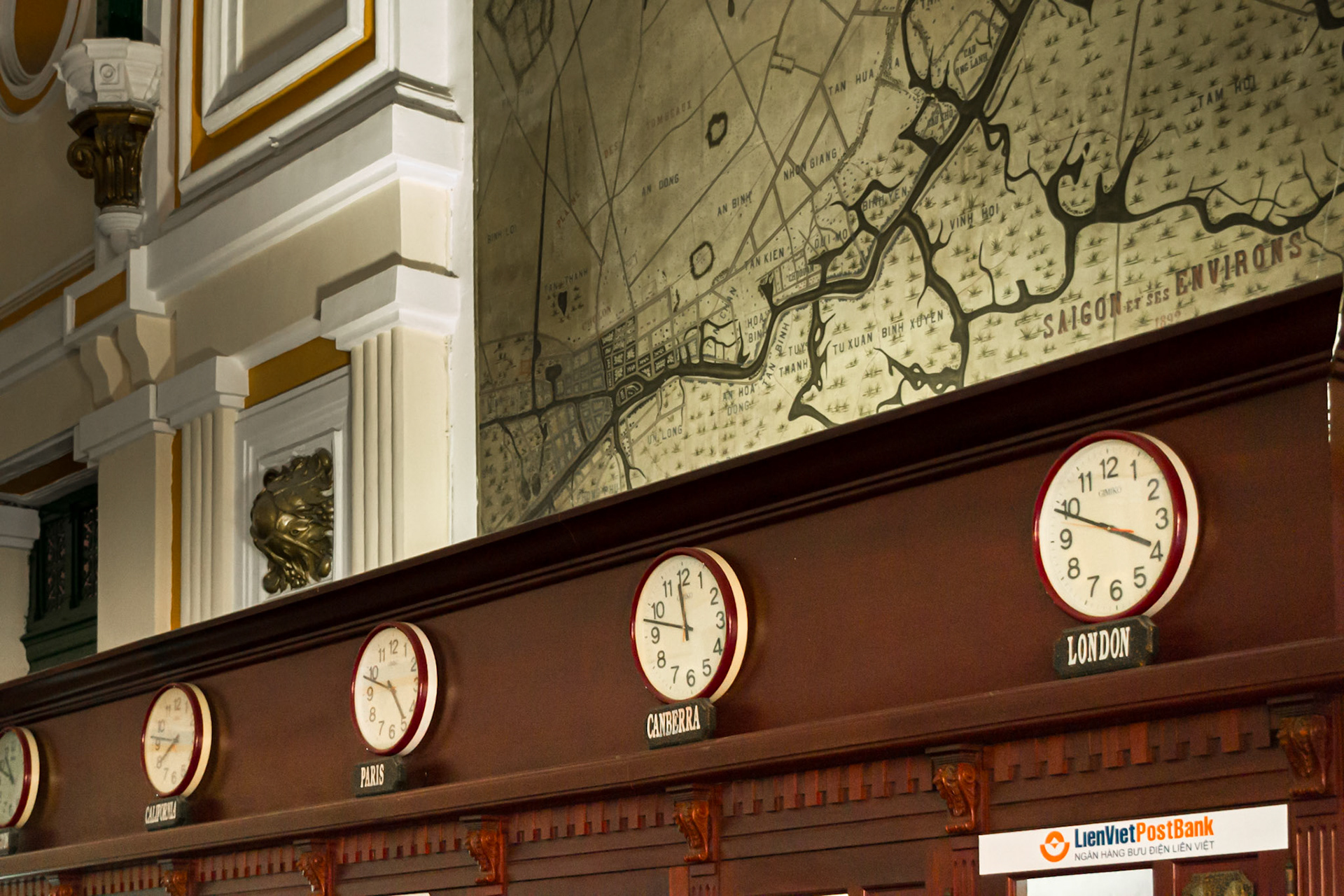
Keeping track of time tnside Siagon Railway Station.

Ho Chi Minh City Hall, another impressive building of French Colonial Style.
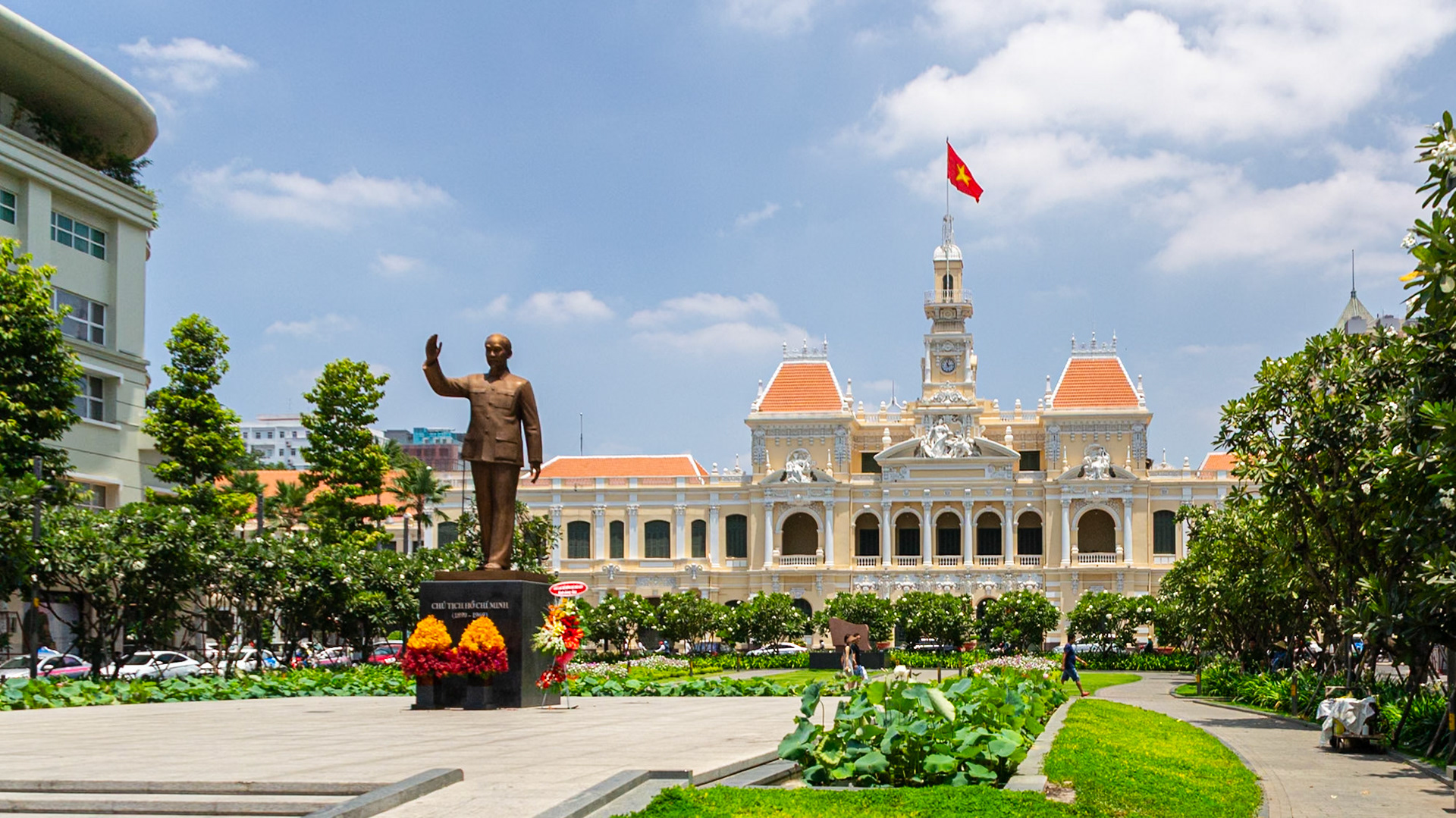
Ho Chi Minh Statue is located in front of Saigon’s People’s Committee Building (City Hall) in Nguyen Hue walking street of District 1.
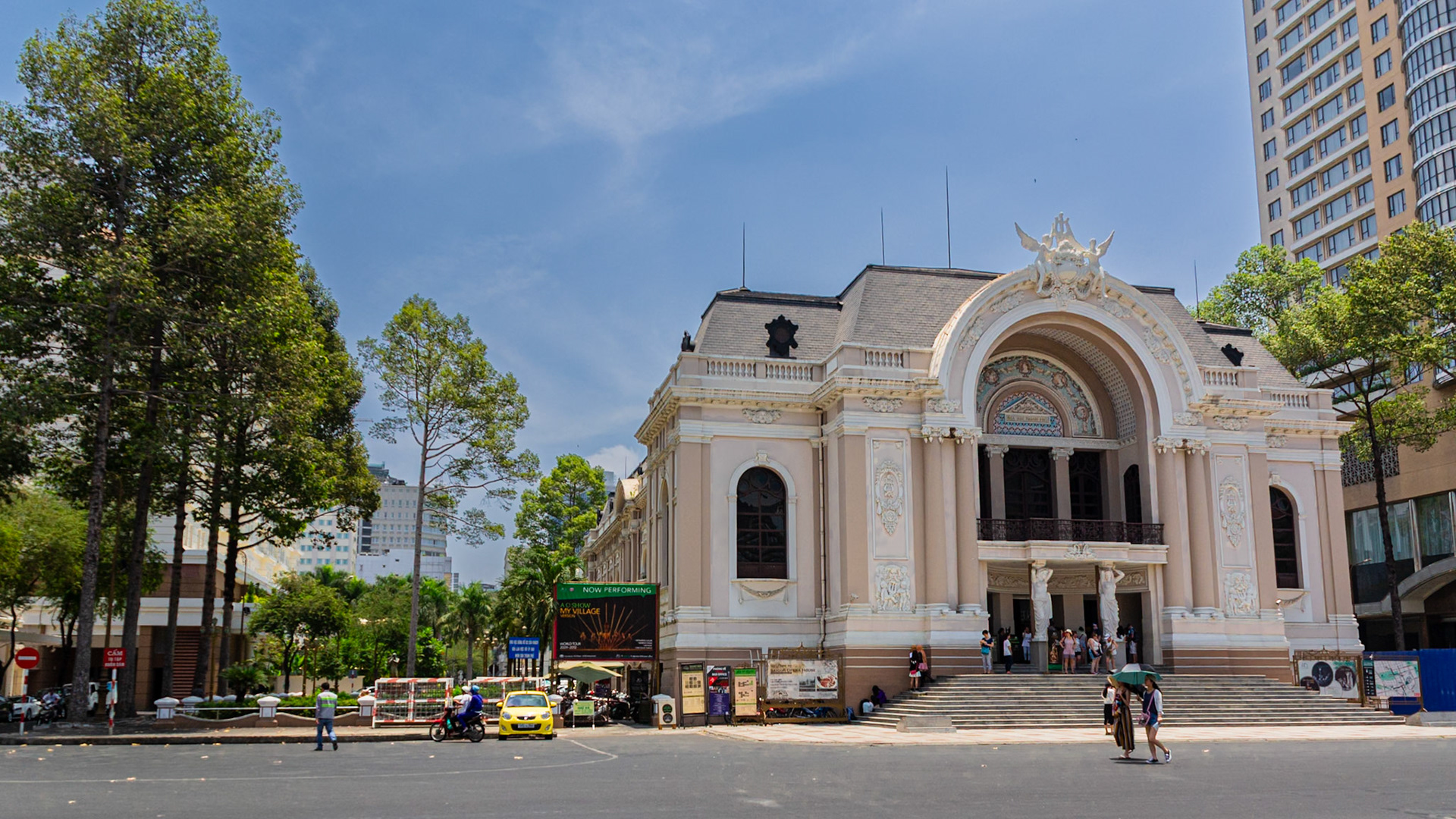
The Saigon Opera House, also known as the Municipal Theatre, built in 1897.
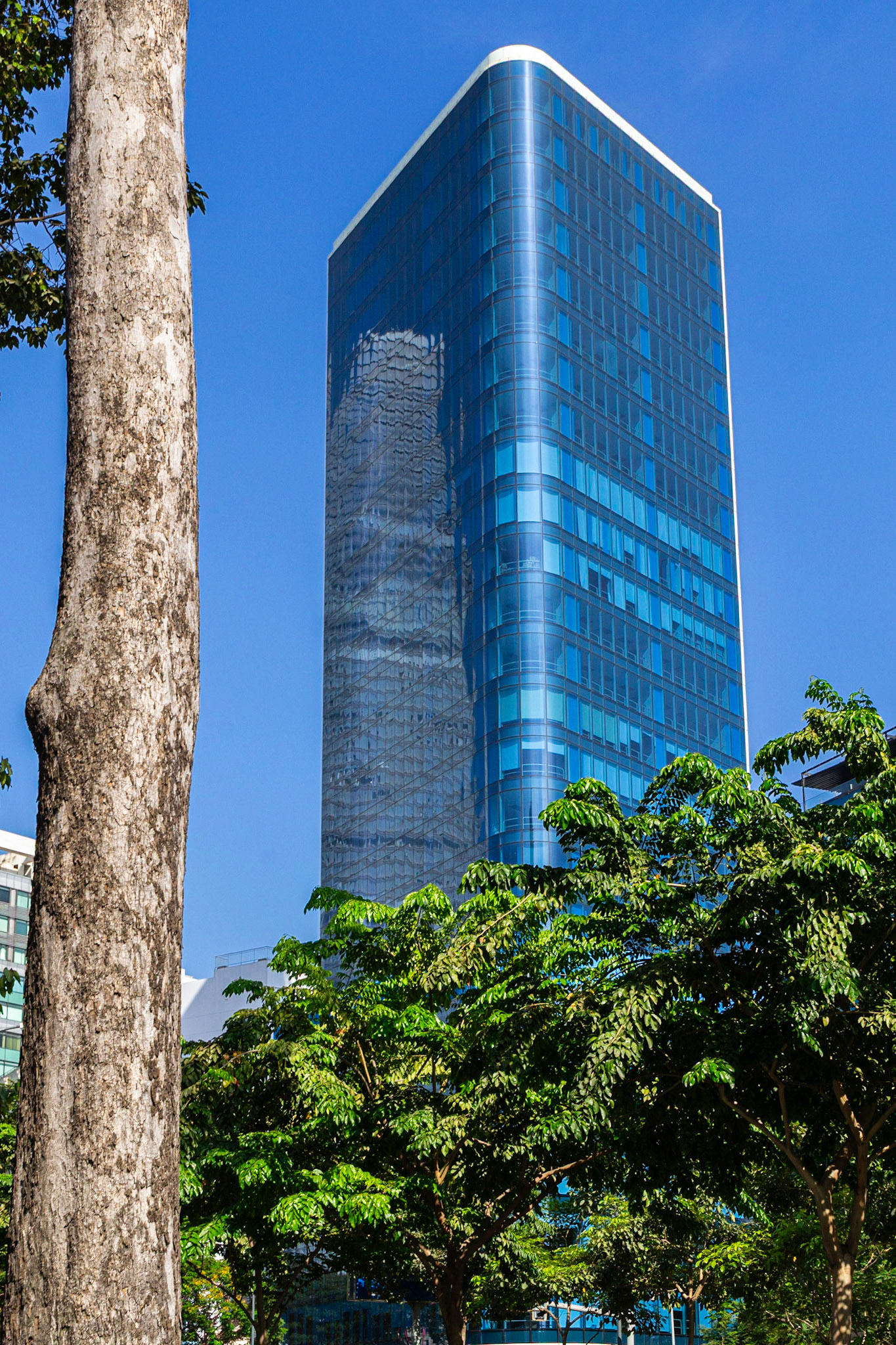
A modern tower clad in sky blue rises above the city.
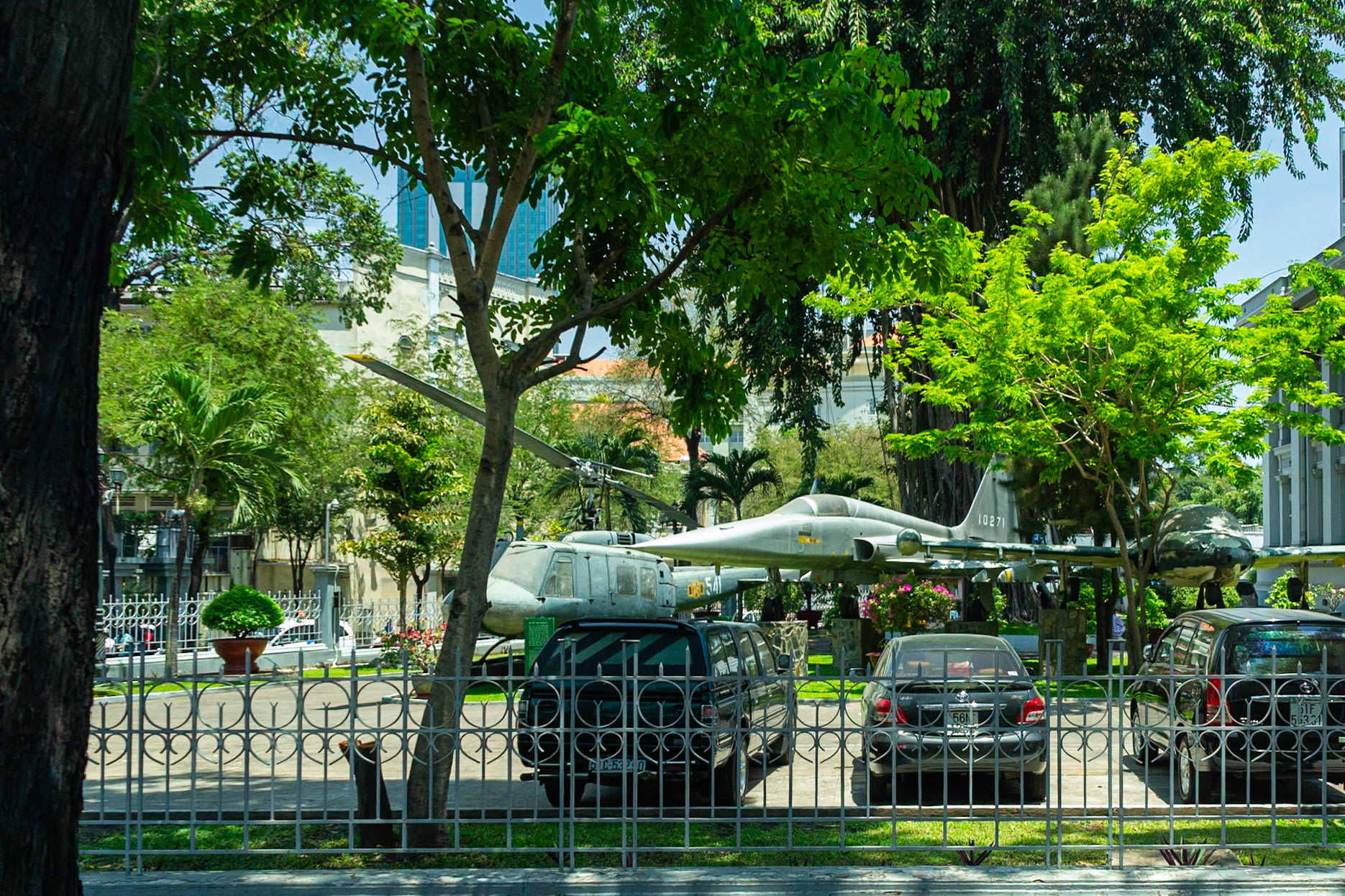
Reminders of their "American War" pop up through0ut the city.
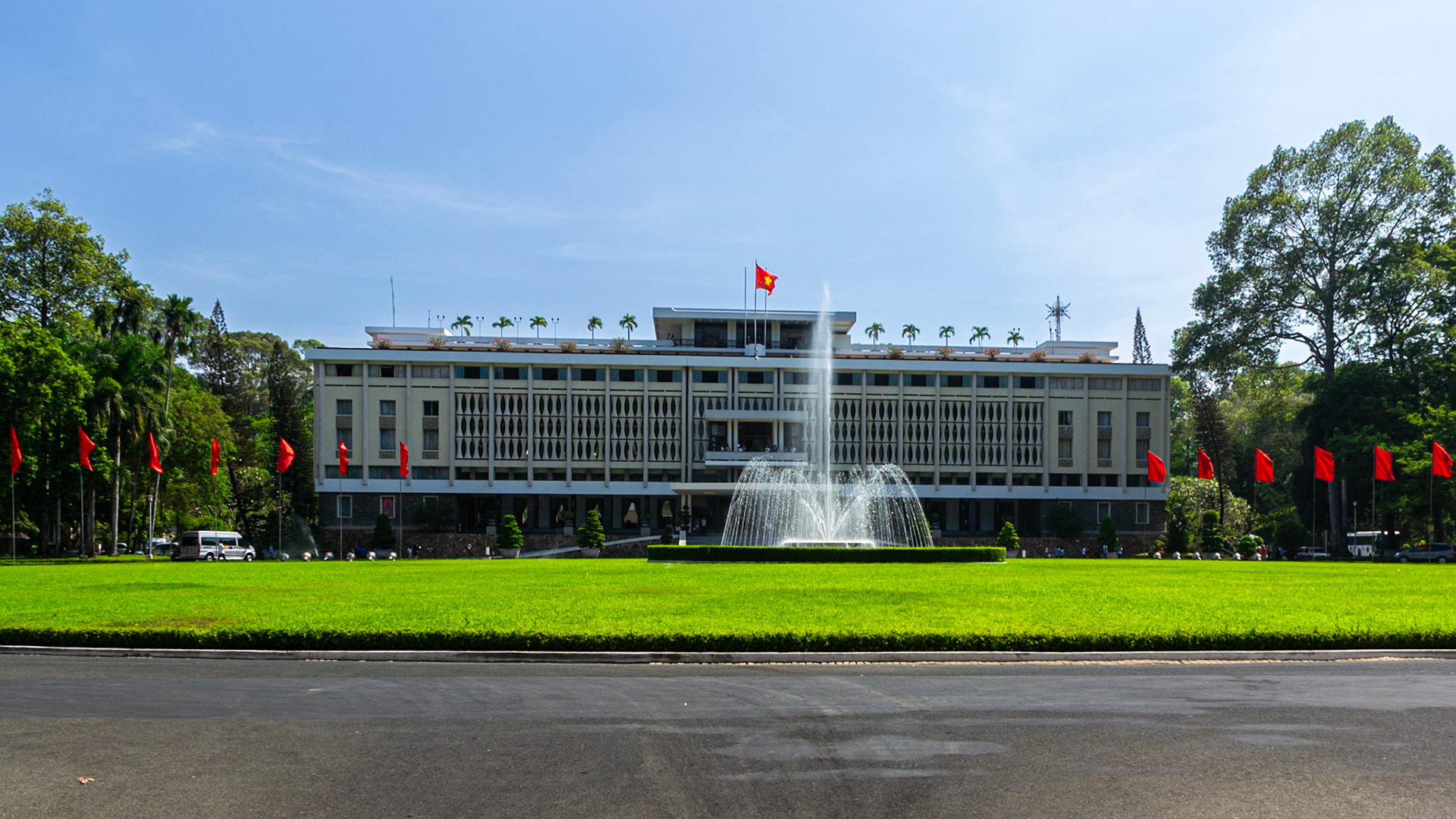
Independance Palace, the site of the fall of Saigon on 30 April 1975 that ended the Vietnam War.
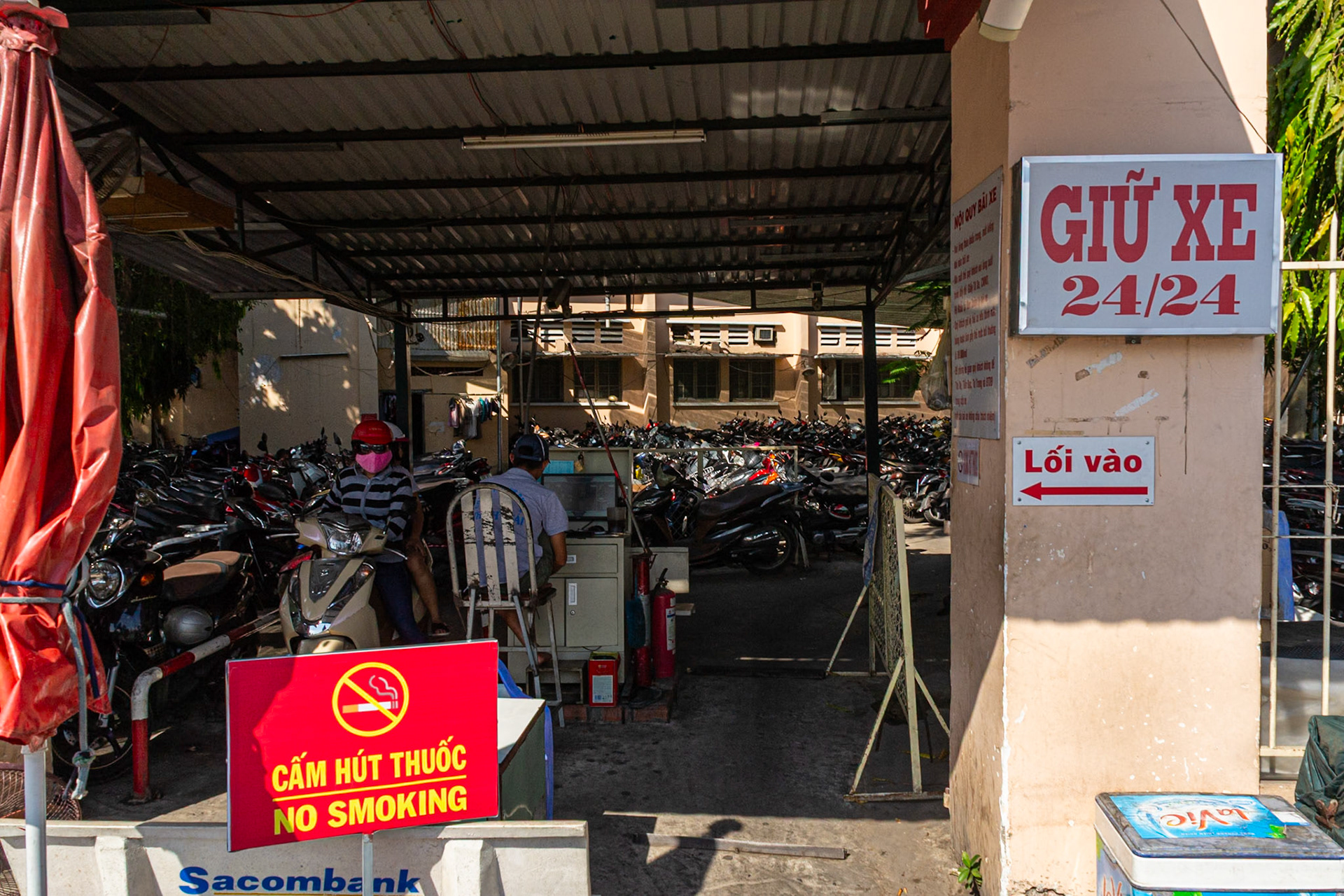
Parking station or garage?
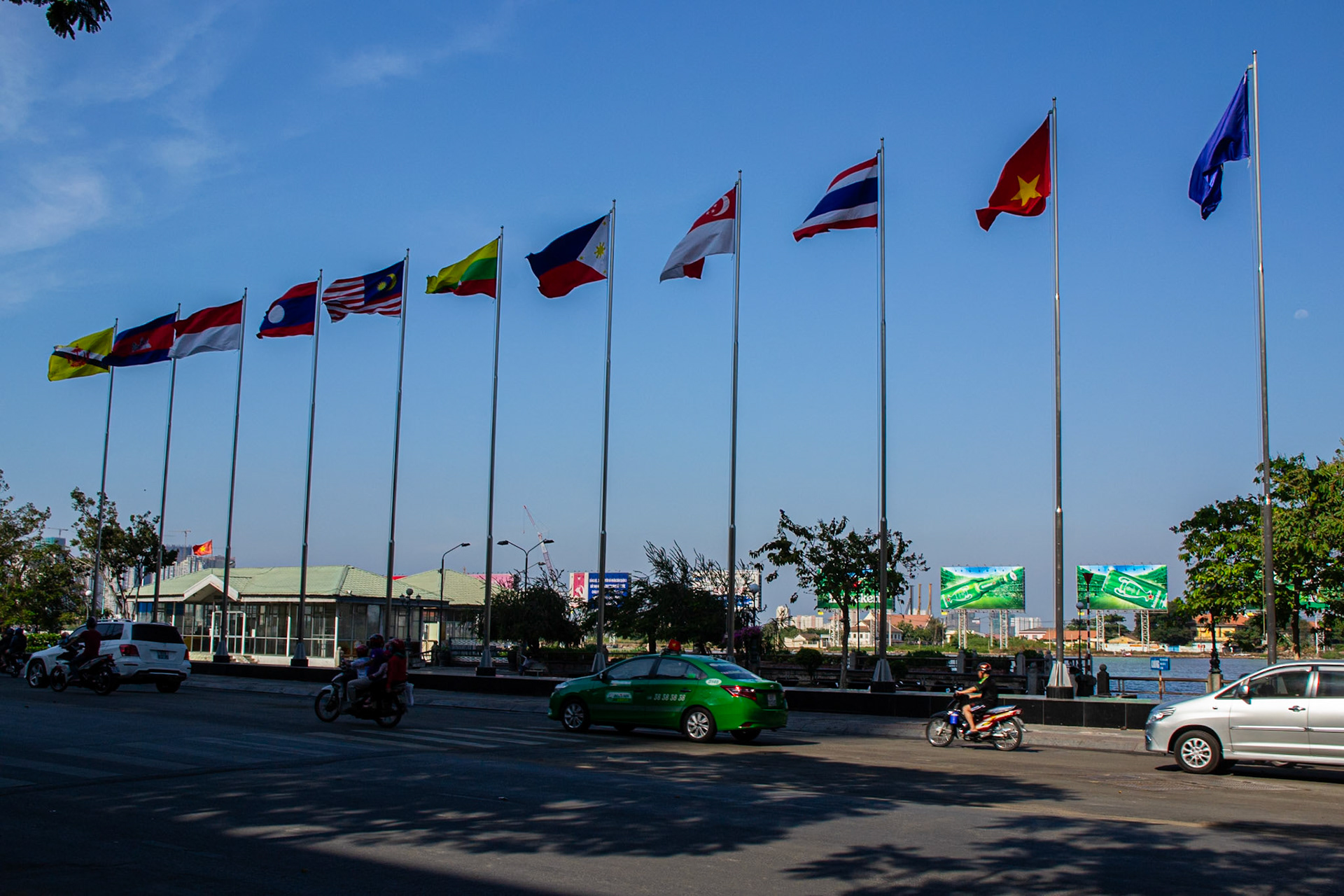
Some flags of their Asian Neighbours.

Dinner cruise on the Saigon River.
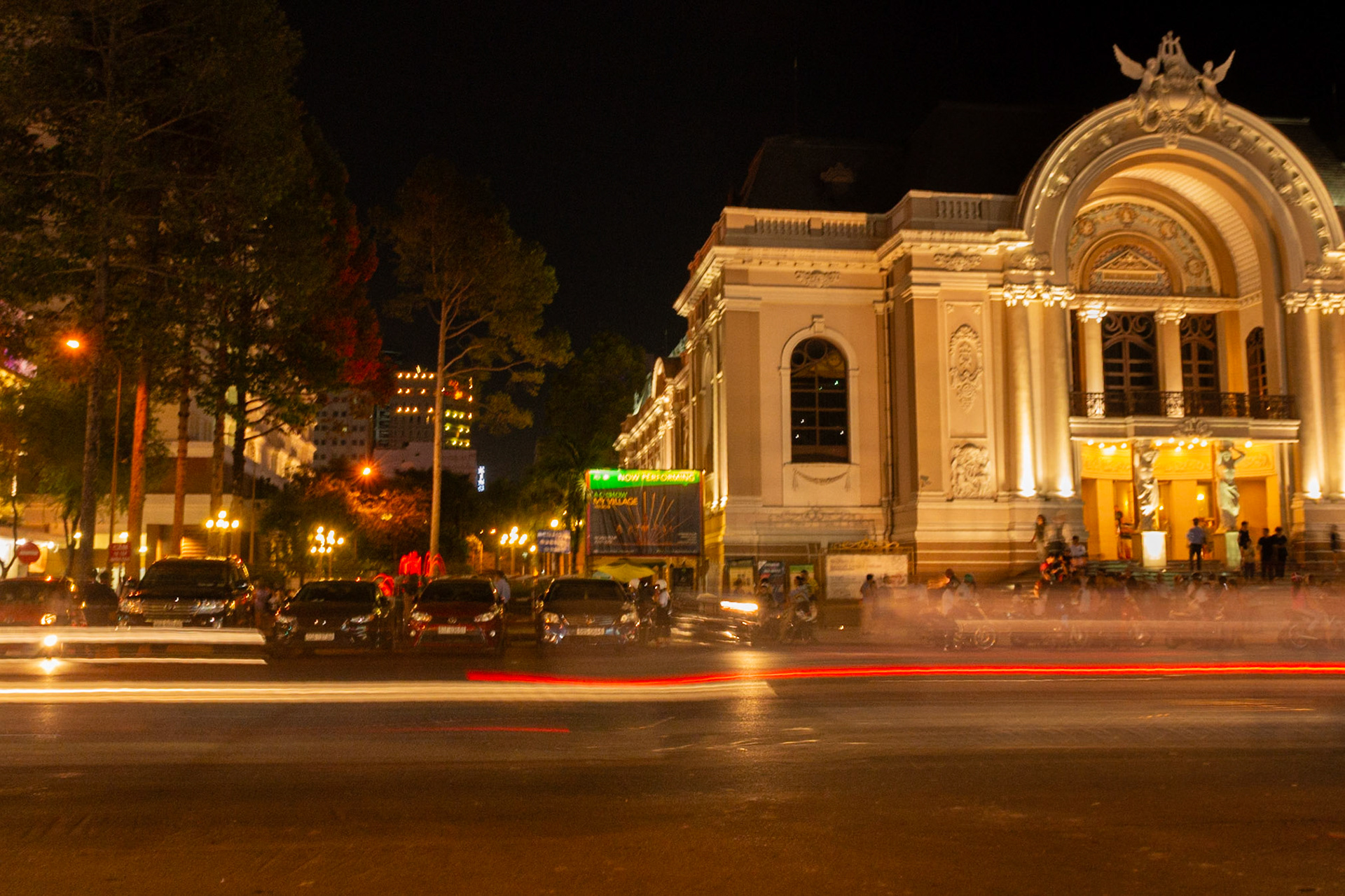
Saigon Opera House at night.
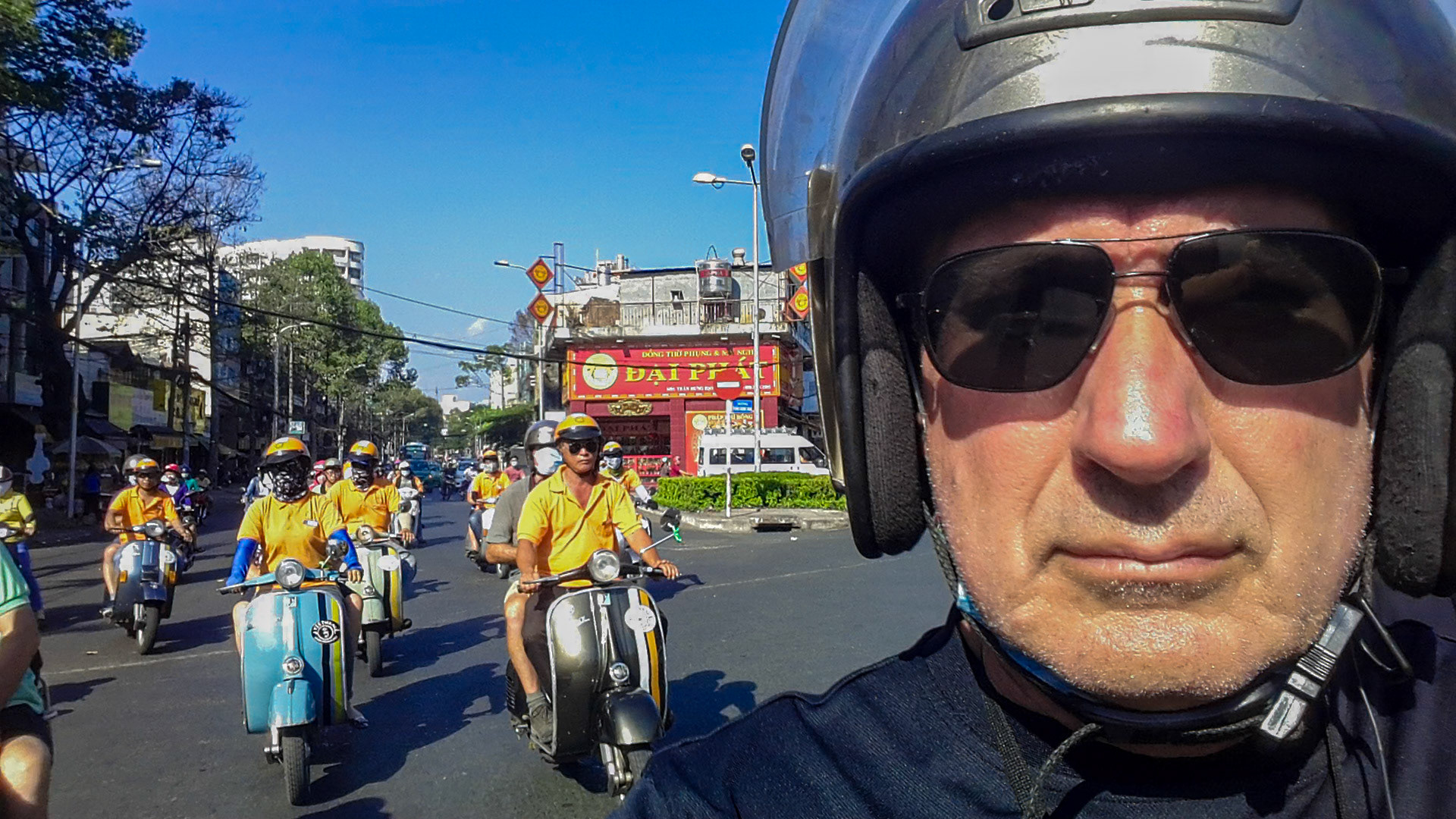
Touring Ho Chi Minh City by Vespa motor-scooter.

Cheryl ready to ride.
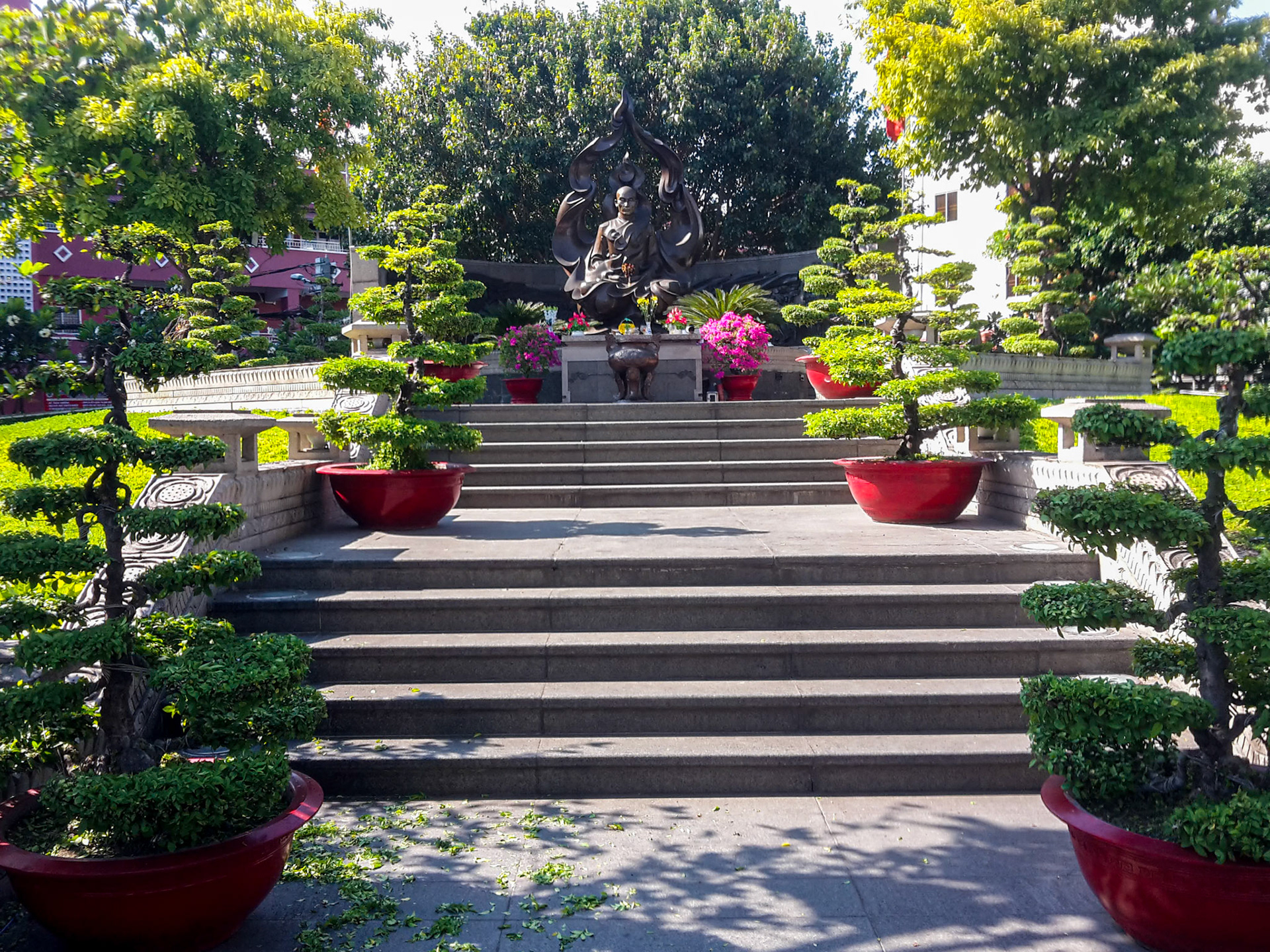
Monument to the Venerable Thich Quảng Đức at the intersection where Quảng Đức performed his self-immolation protest against the then government.
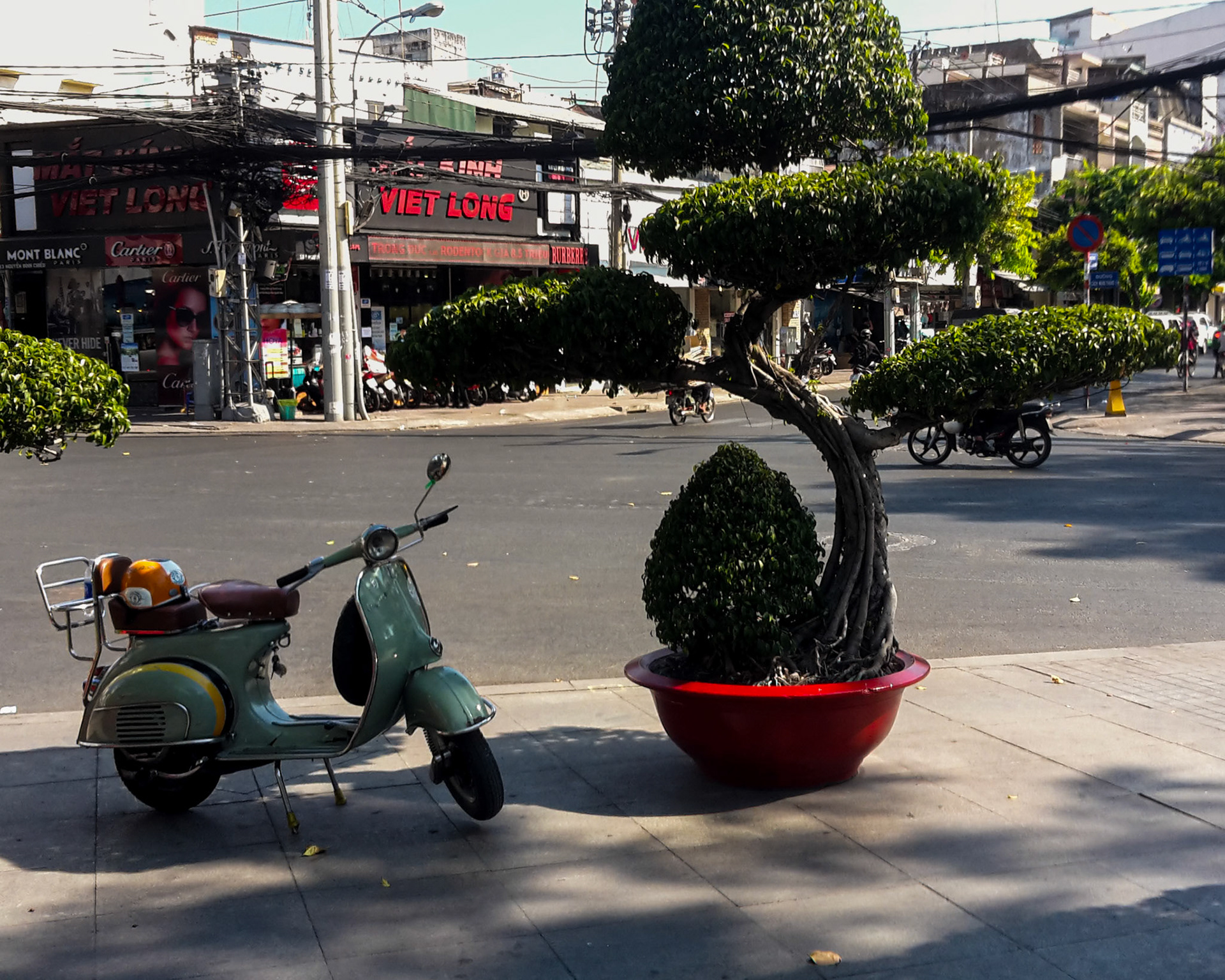
The intersection of Nguyen Dình Street and Cach Mạng. Tháng Tám Street.
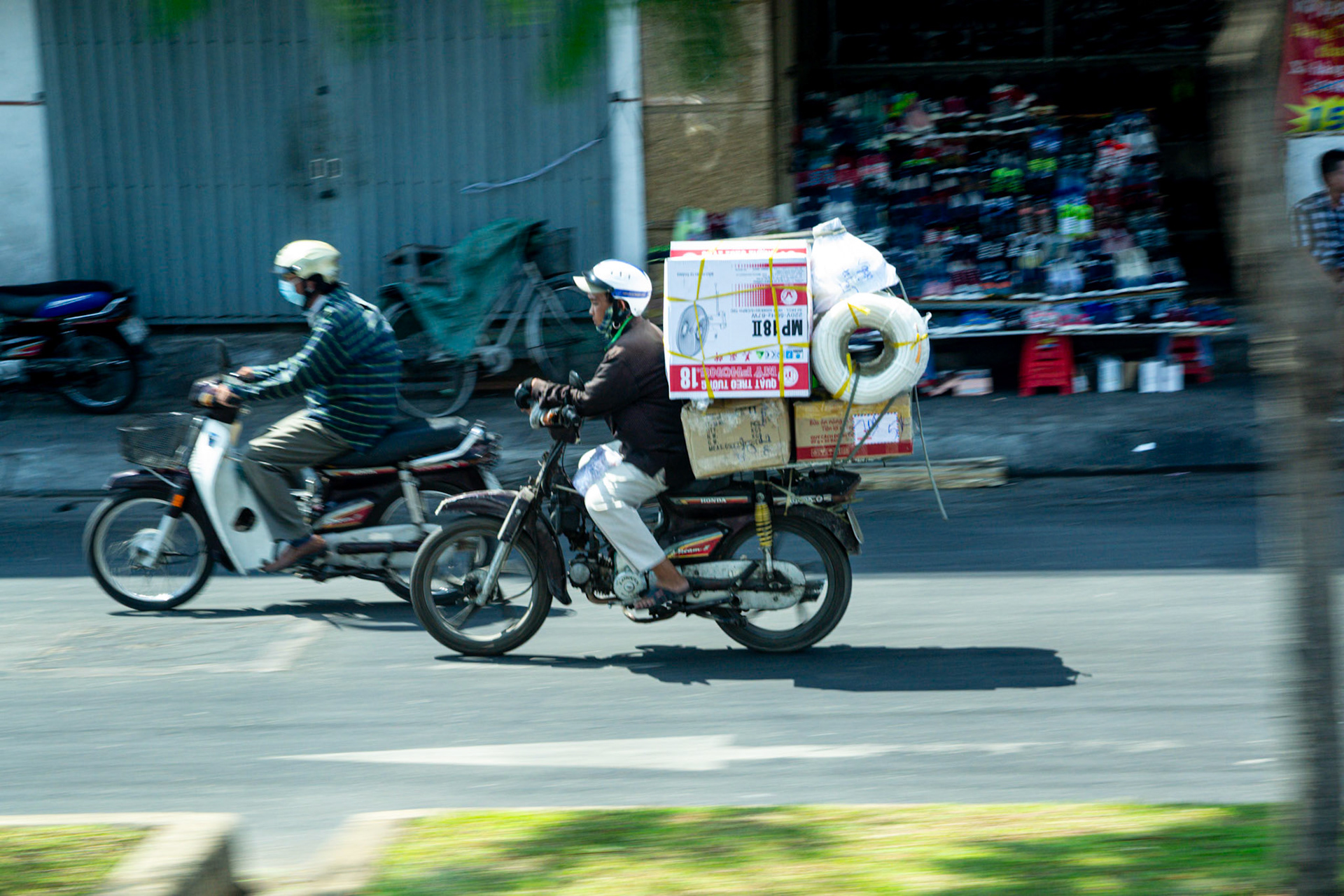
Motorcycle transport of all forms dominates the city streets.
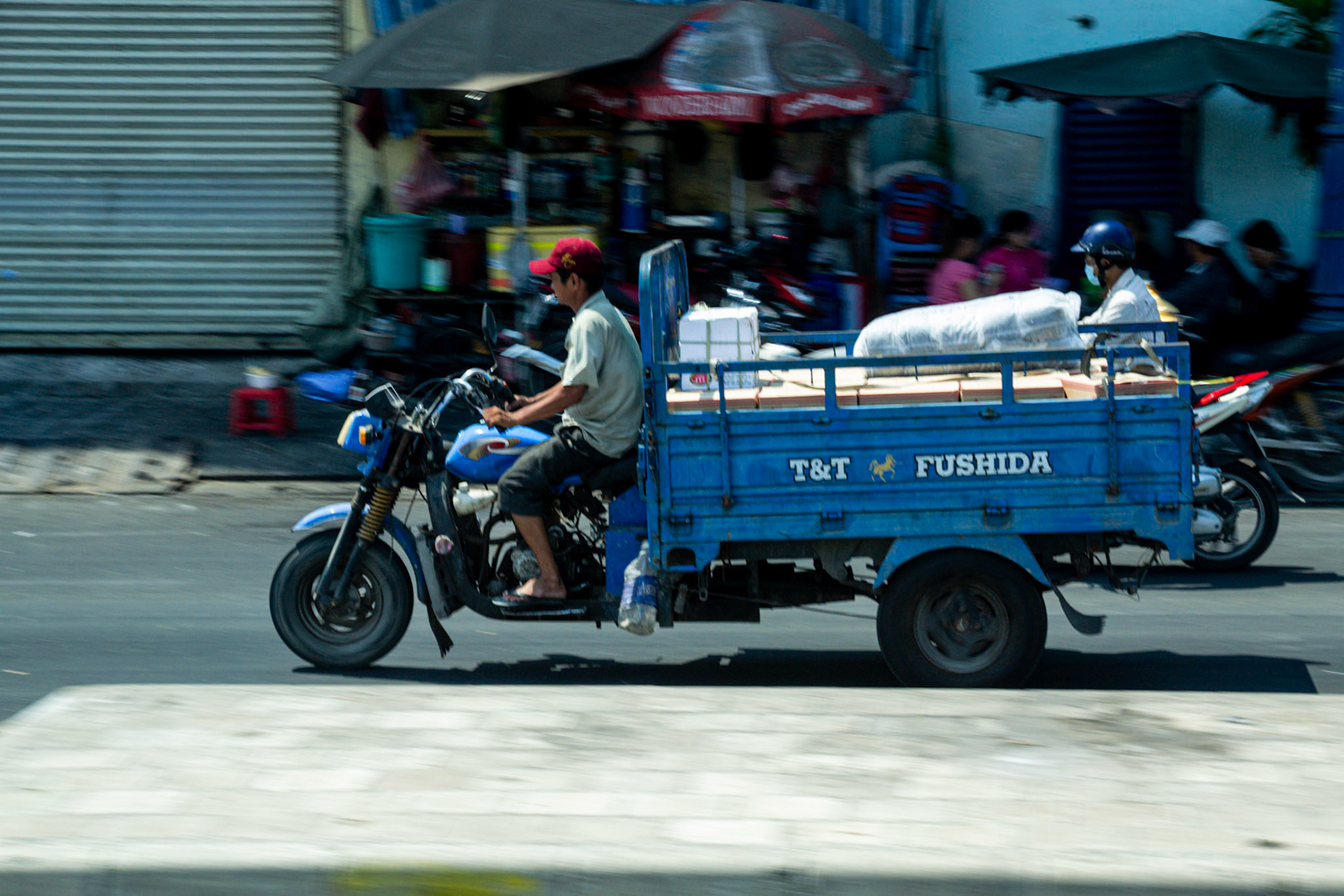
Heavy transport version.
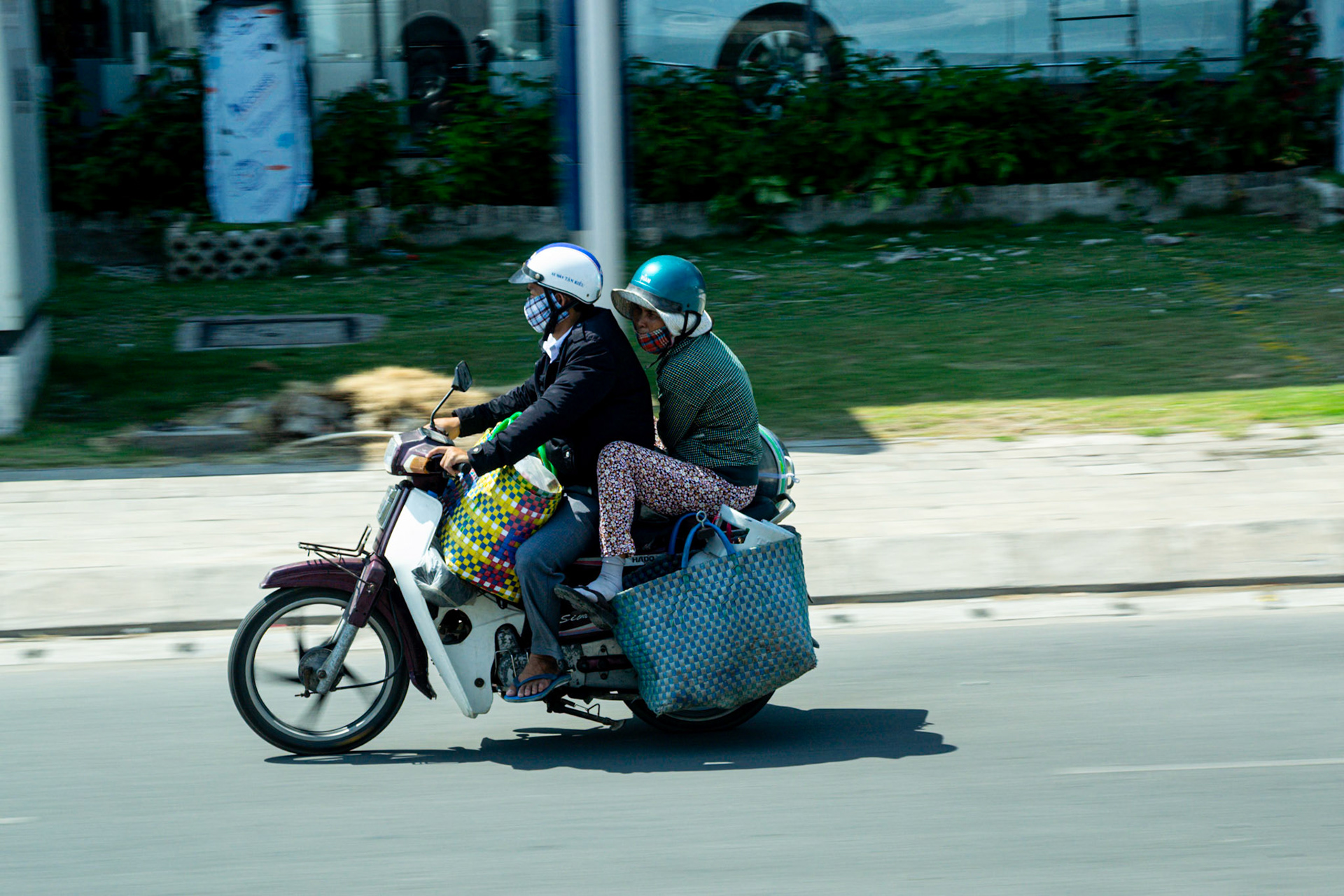
Family shopping trip.
Chu Chi Tunnels
A short boat ride north on the Saigon River, about 60 kilometers northeast of Ho Chi Minh City we visit Chu Chi, an extensive labyrinth of underground tunnels that stretch all the way to the Cambodian border. The Cu Chi Tunnels network was built within 25 years from 1948 during the war against the French. It served as a means of communication between villages and helped the Vietnamese to evade scouting French soldiers. The tunnel network was extended over an area of 250 kilometers during the Vietnam War. It became one of the important parts of Viet Cong fighting troops’ strategy and also the home for thousands of soldiers.

Trap-door entrance to the Viet Cong tunnels below is a tight squeeze.
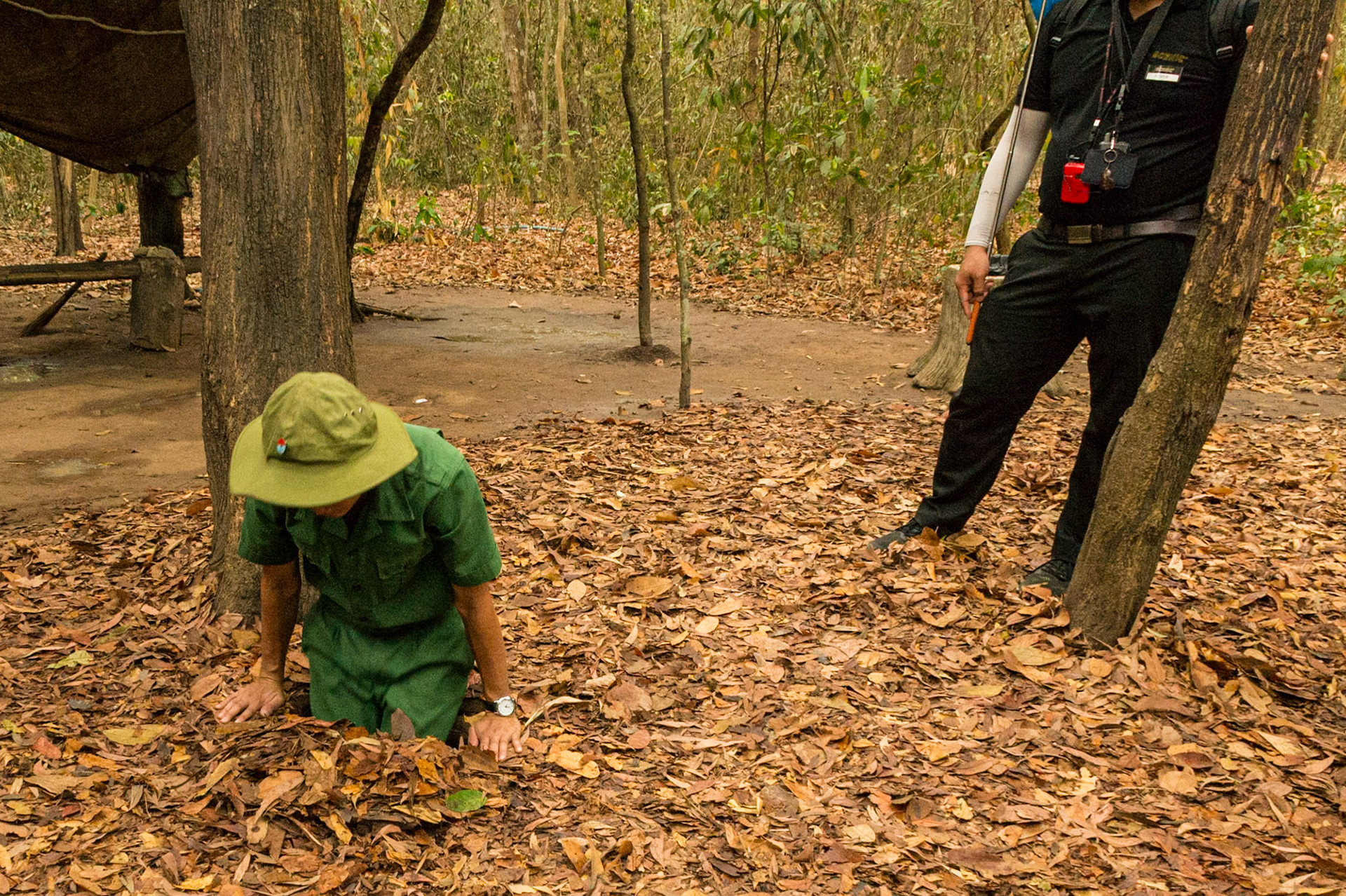
A local Vietnamese ranger demonstrates access to the Cu Chi tunnels......Going, going....

....gone! The leaf covered lid is in place after entering the shaft.
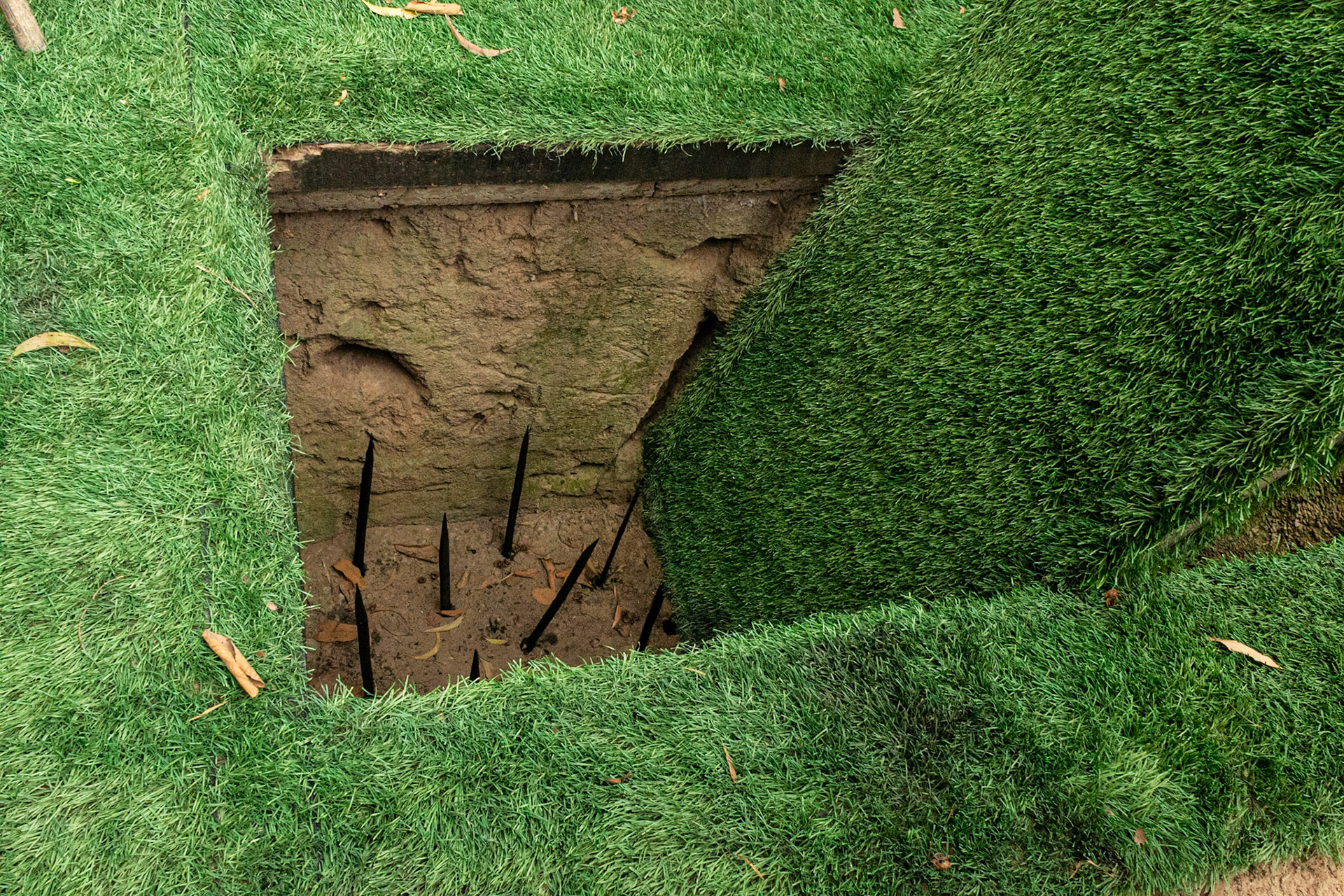
Viet Cong laid down invisible but deadly traps all over the forest floor. Sharp-ended bamboo with a bamboo cover above that would keep the ground and leaves in place to disguise the trap.
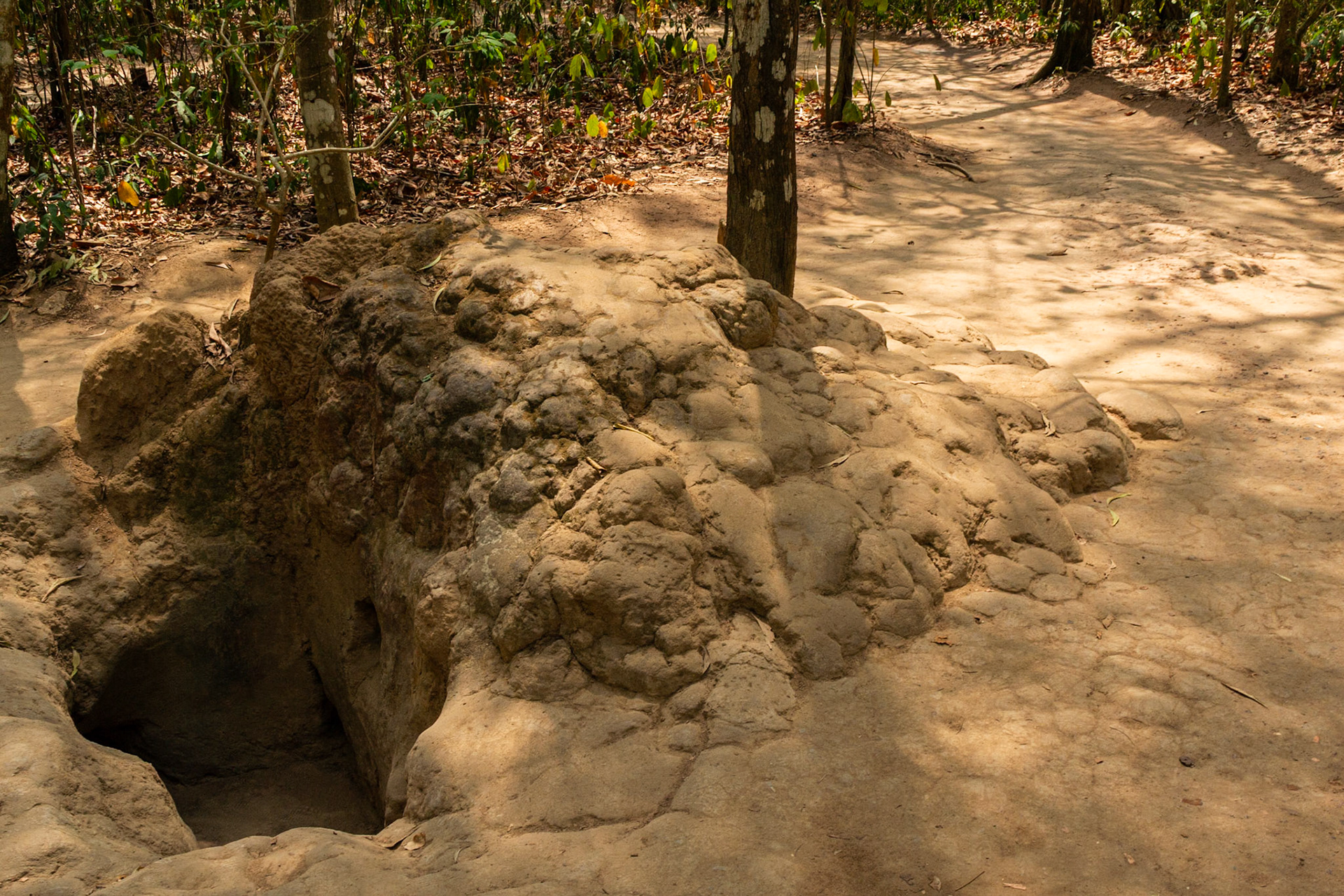
An exposed section of the tunnel complex.

Tourist-friendly entrance into the Cu Chi tunnels for the non-claustrophobic adventurous explorer.
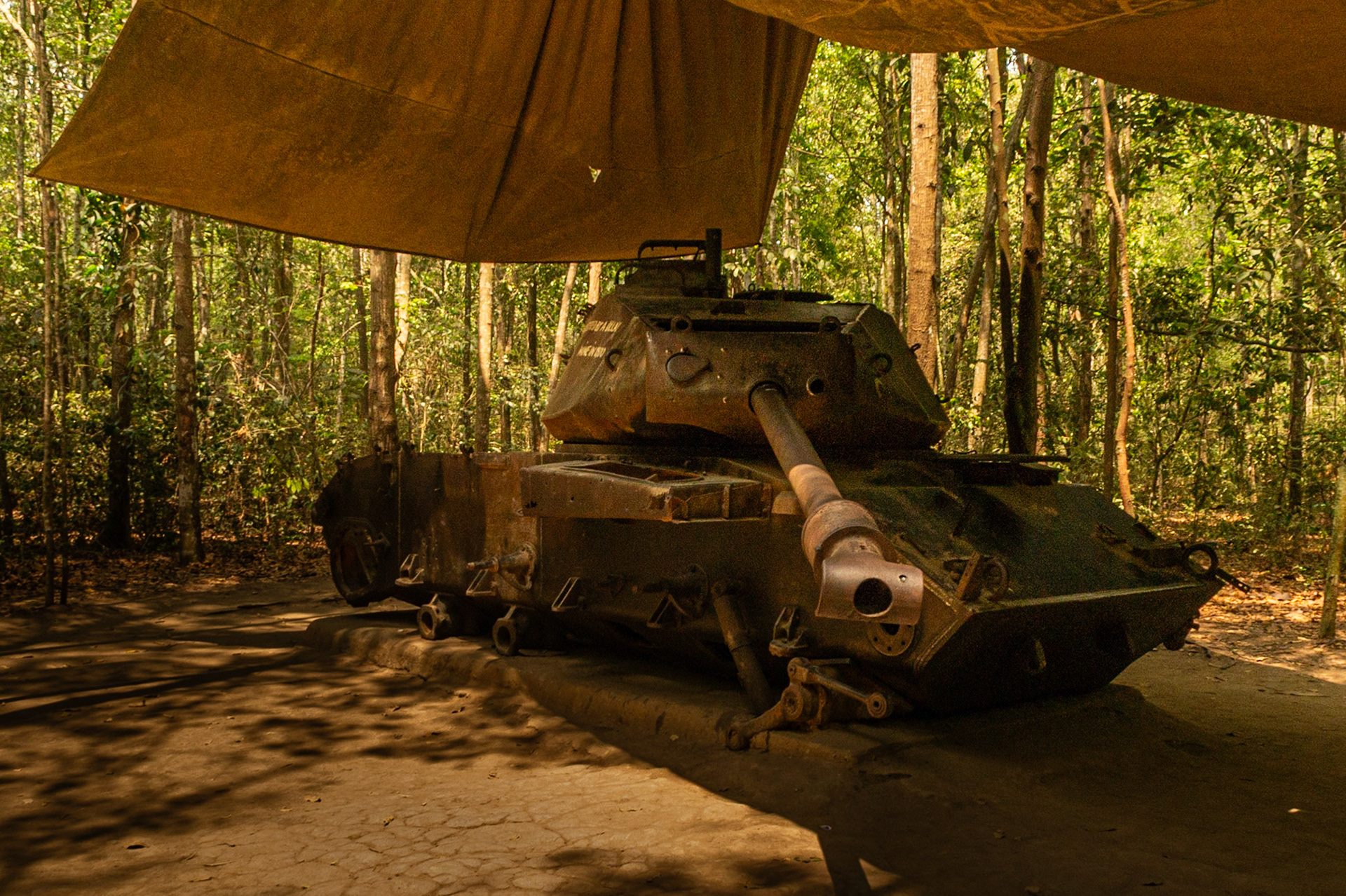
This US tank remains as a reminder of the war. The caption reads, "American M41 Tank was destroyed by a delay mine in 1970." This image was taken April 2016.

This photo shows US M41 tank at the time it was captured with no vegetation remaining.
Mekong River
After leaving Ho Chi Minh City we arrive in the Mekong Delta to board our cruise ship "Scenic Spirit" to begin our river journey to Cambodia. On our first day we explore Cia Be and Sa Dec villages. The local economy of these areas is based mainly on horticulture and tourism with lots of colorful fruit and vegetable gardens, floating markets, traditional crafts and features some ancient Vietnamese houses of note.
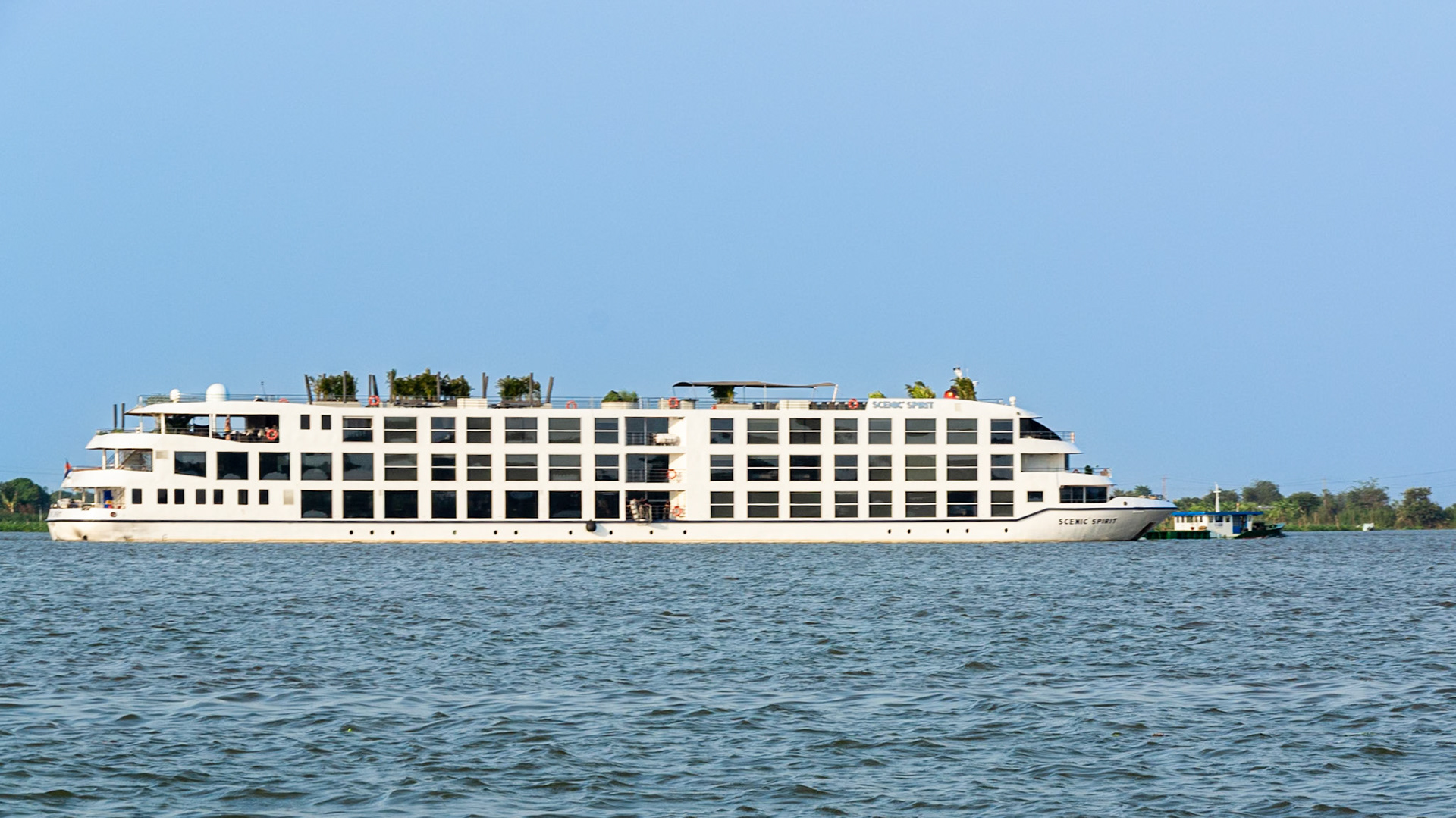
Scenic Spirit our home as we cruise the Mekong River.
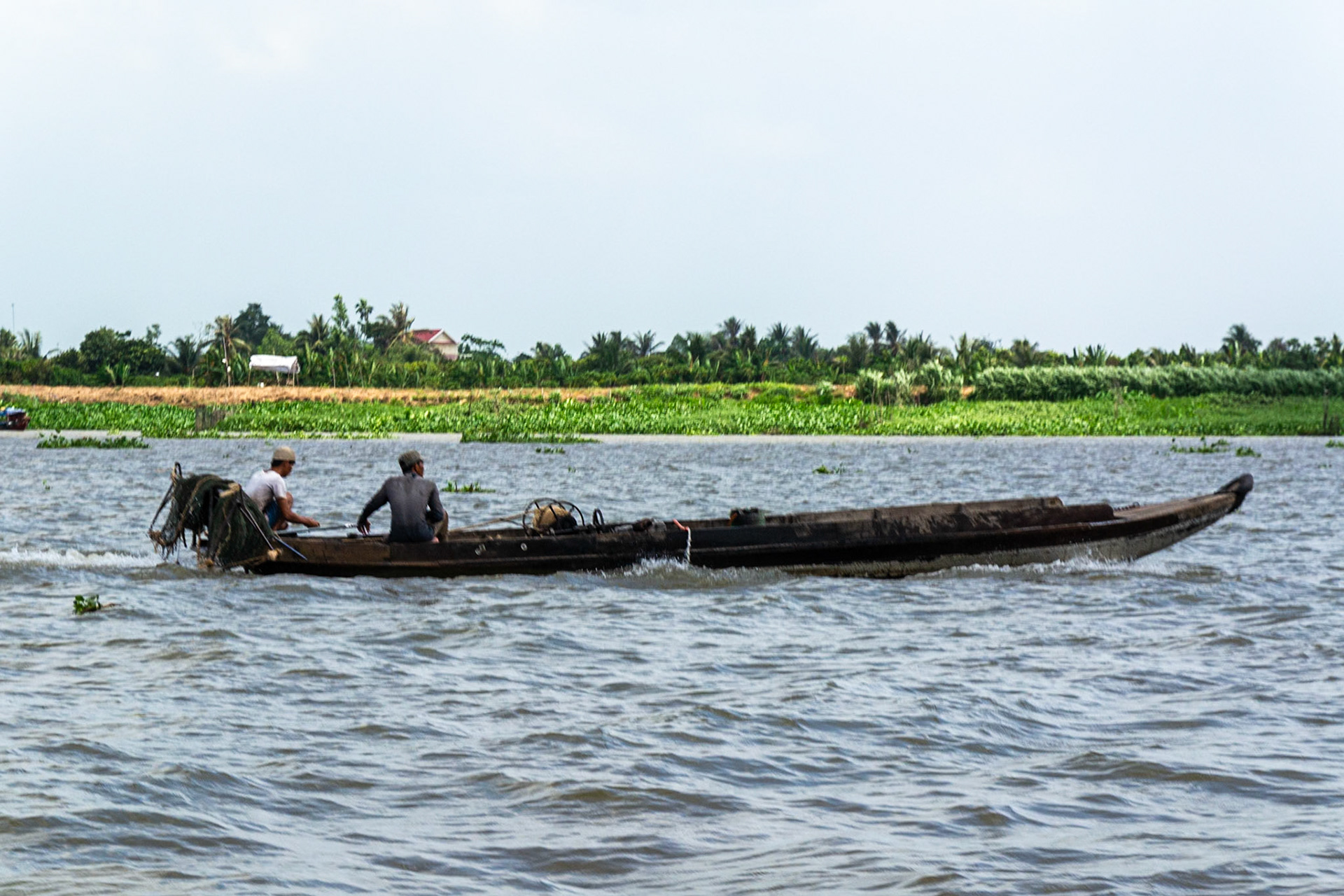
River traffic of all types and sizes ply the waters of the Mekong Delta., here a longboat fishing trawler.
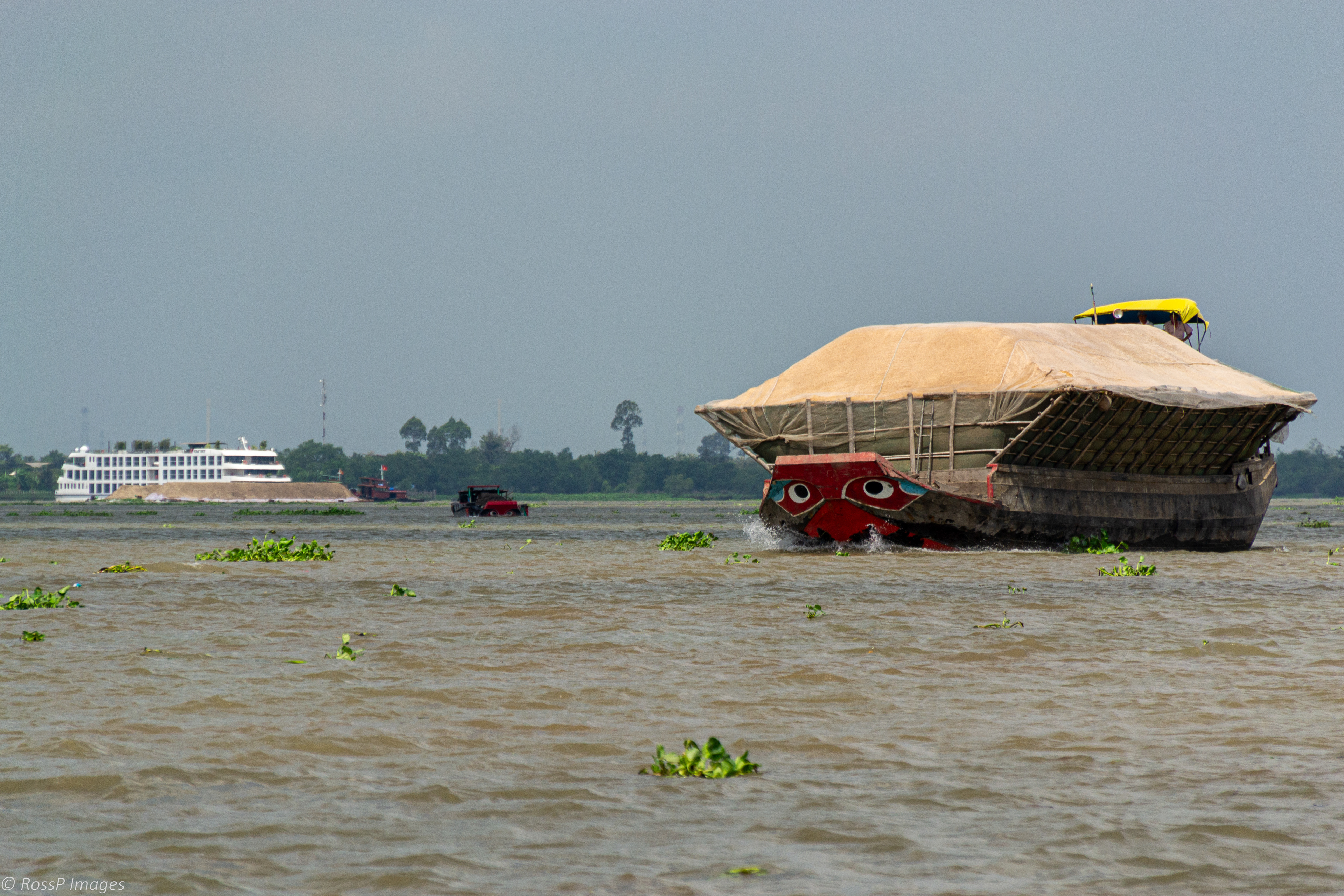
Barges framed to carry lightweight, bulky cargo.
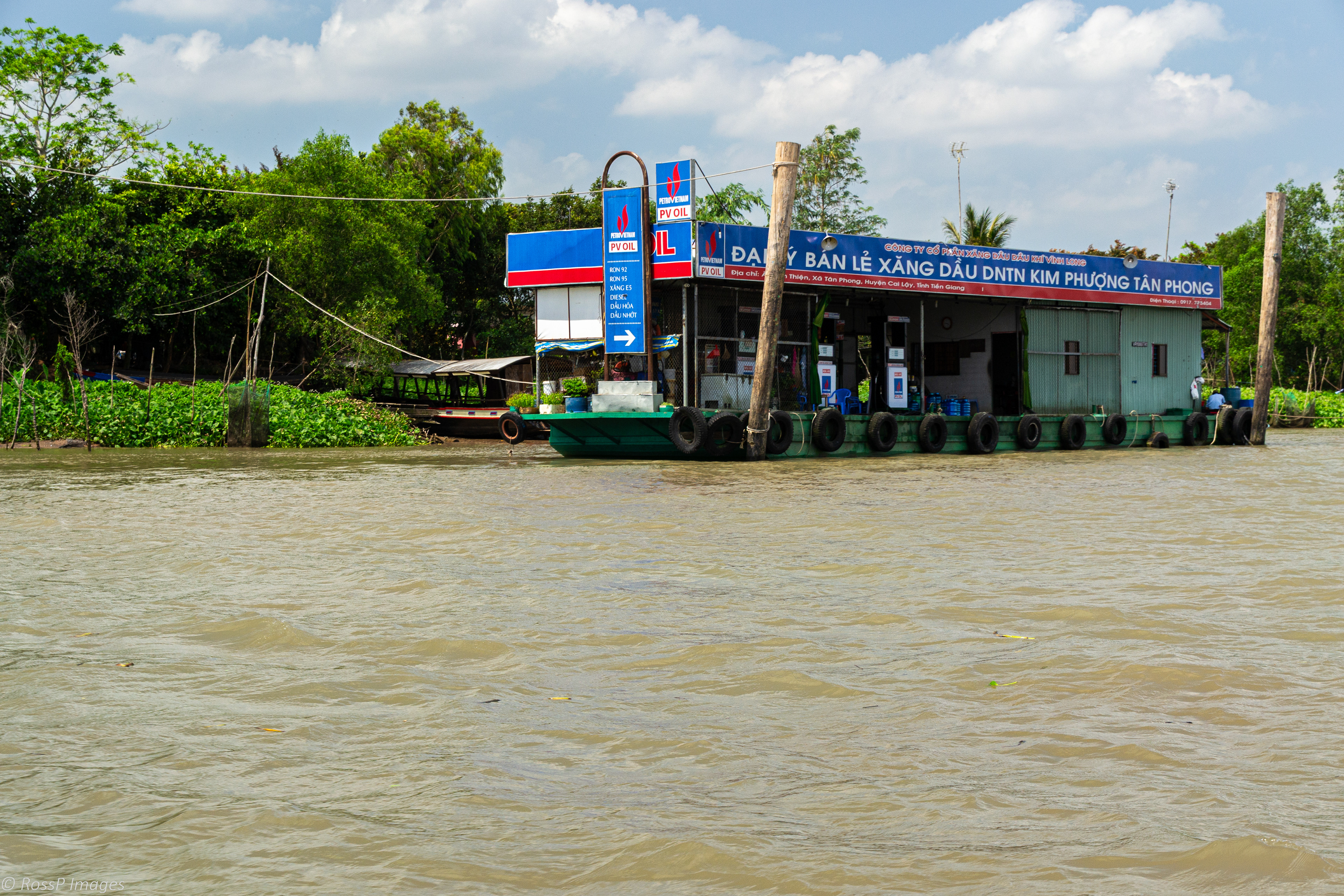
Mekong River floating fuel station.
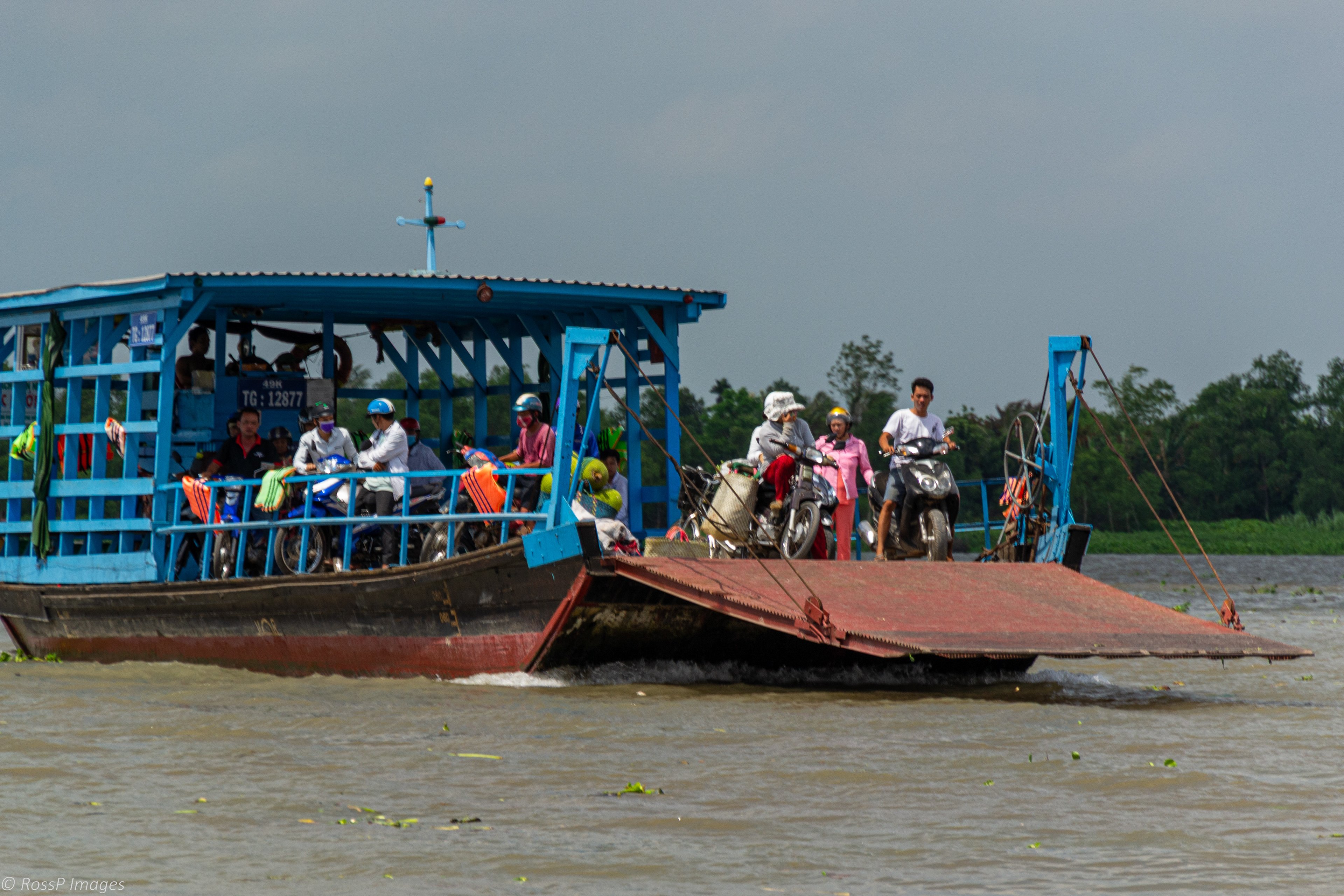
Ferry crossing the Mekong River near Cai Be Village.
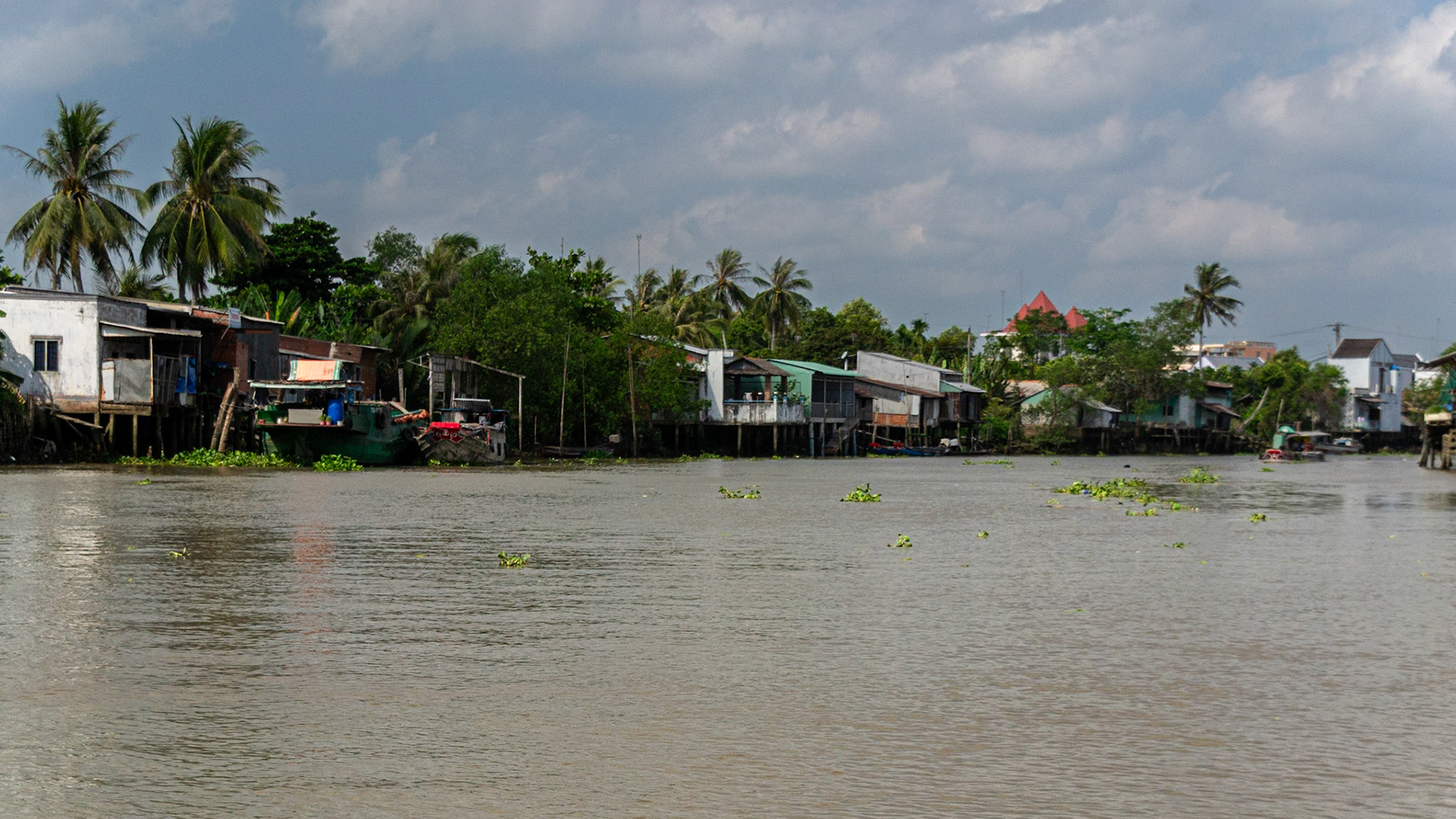
The high tide in Cai Be with amazing local house on stilts.

A typical family restaurant in Cai Be village.
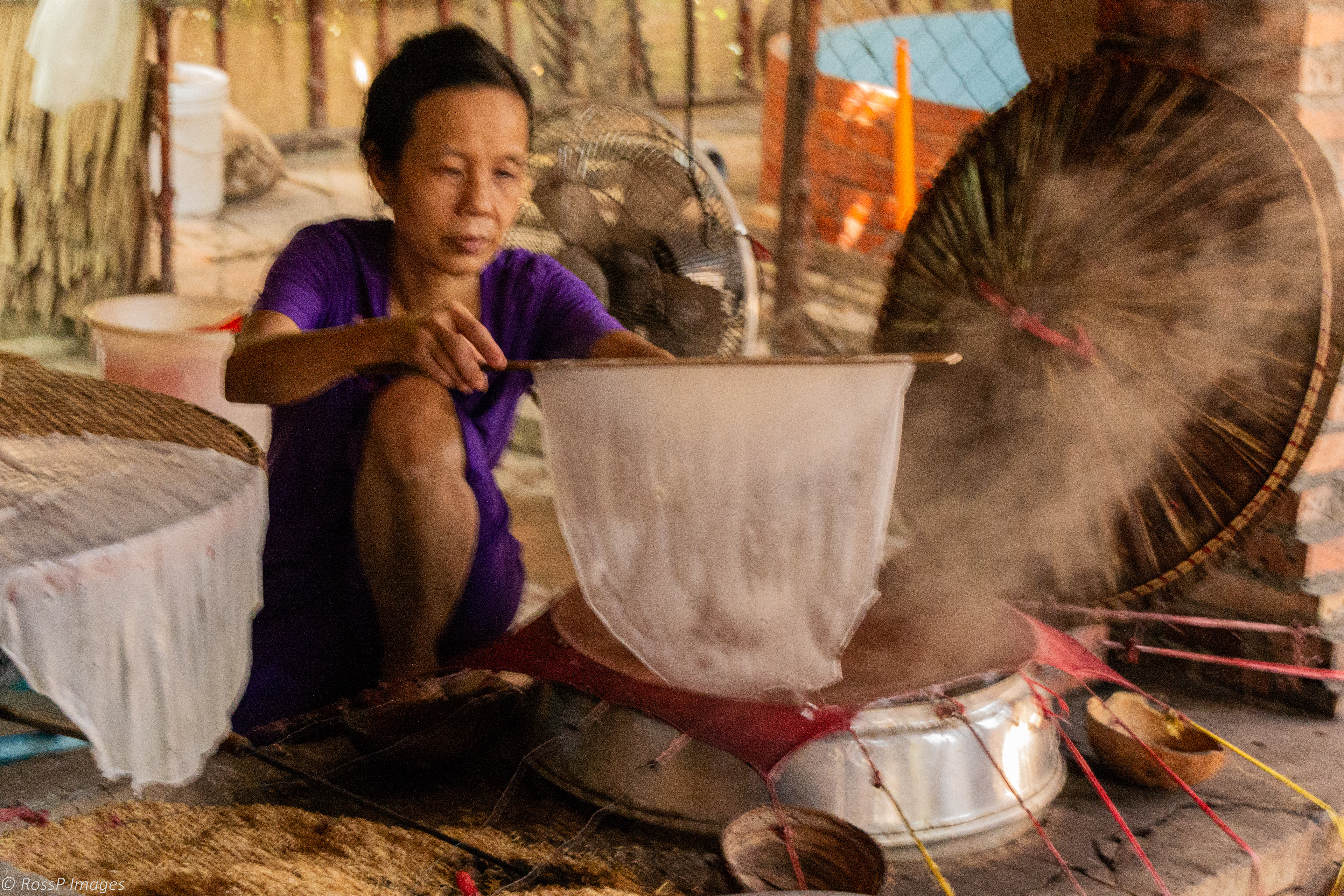
A Vietnamese woman makes rice paper at a restaurant in a Cai Be village.

Snake wine mabe by infusing whole snakes in rice wine or grain alcohol.

Waterfront dwellings typical of the Mekong Delta region.
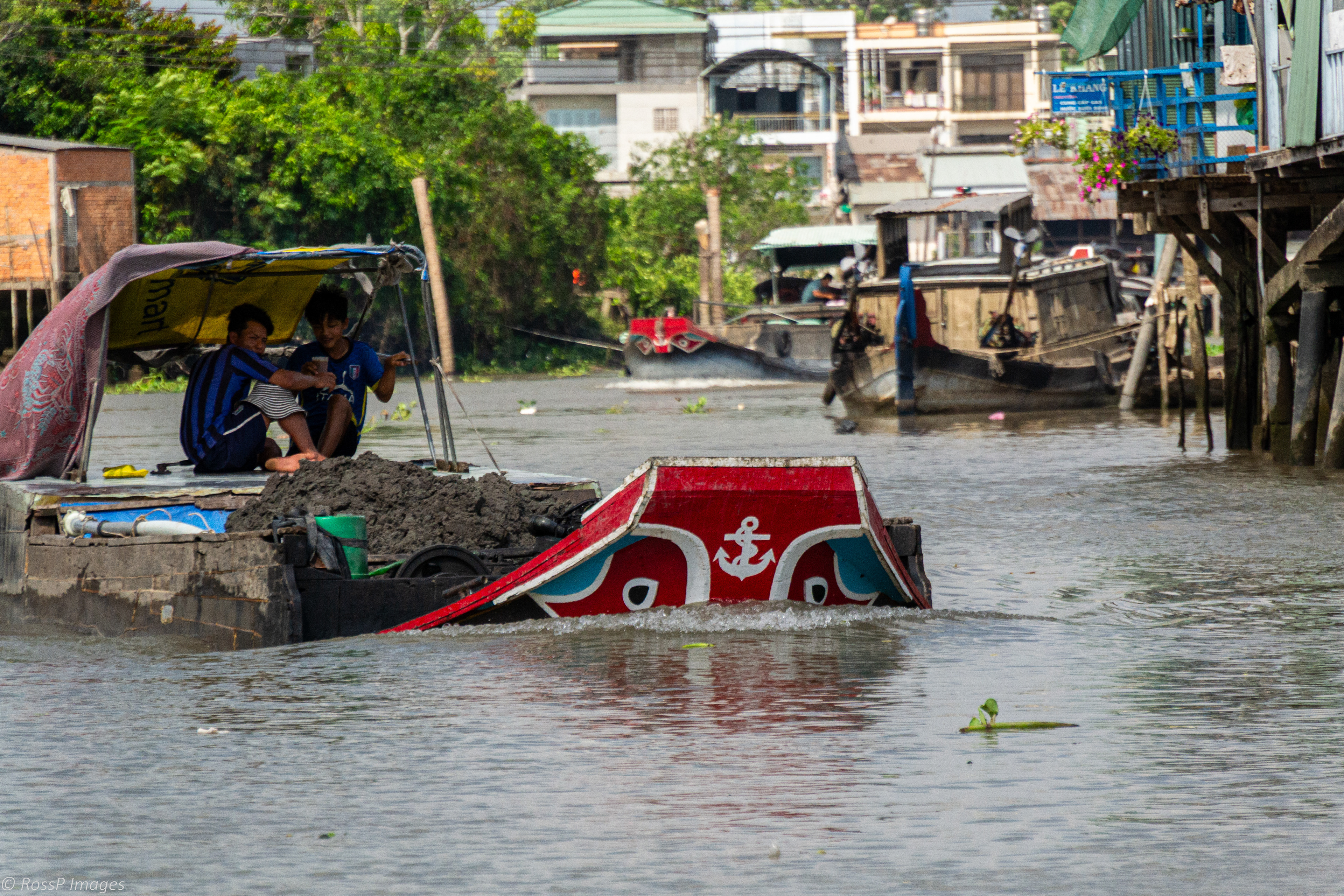
This river barge is periliously loaded to its "Mekong Eyes"
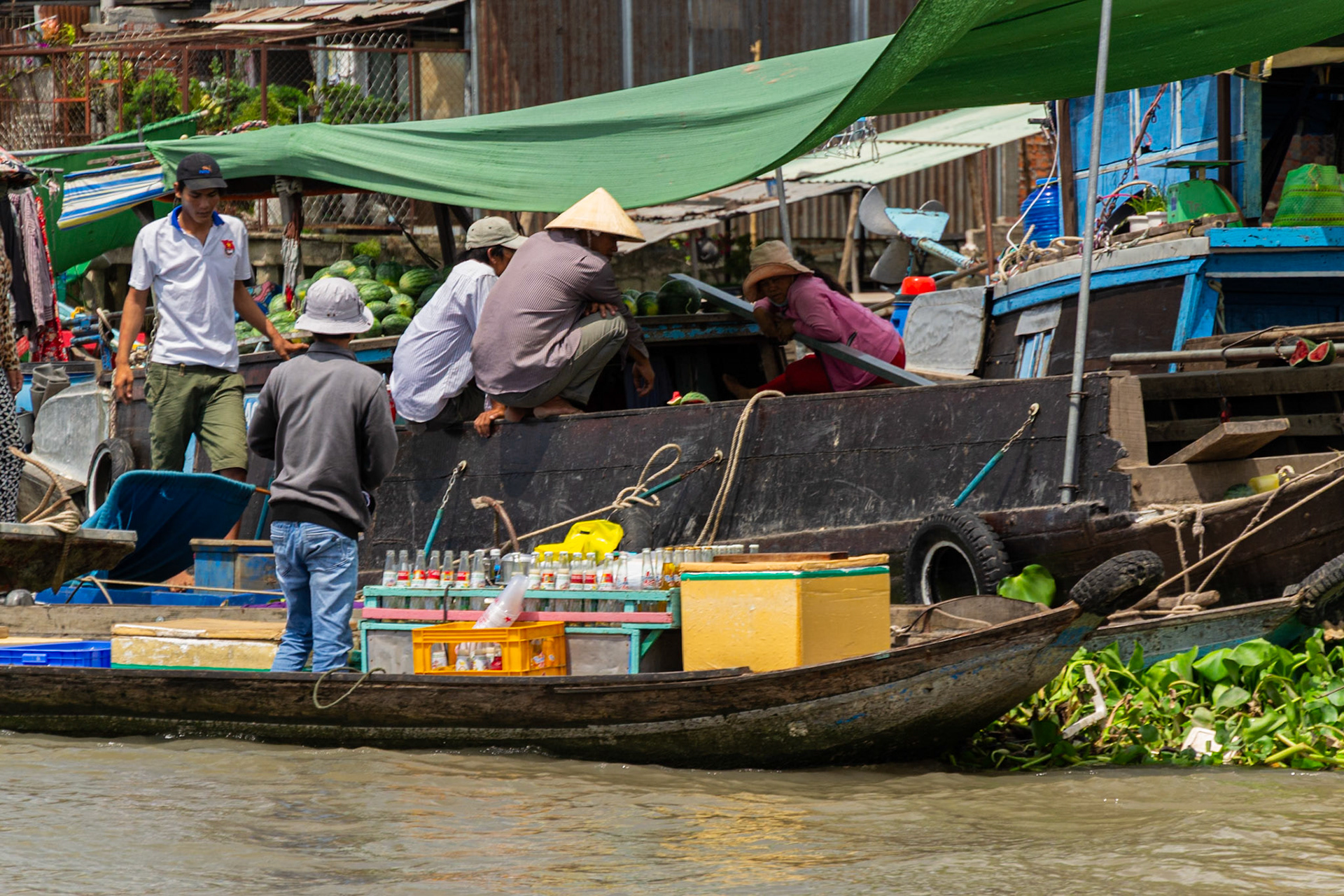
Market boats loaded with fresh produce.
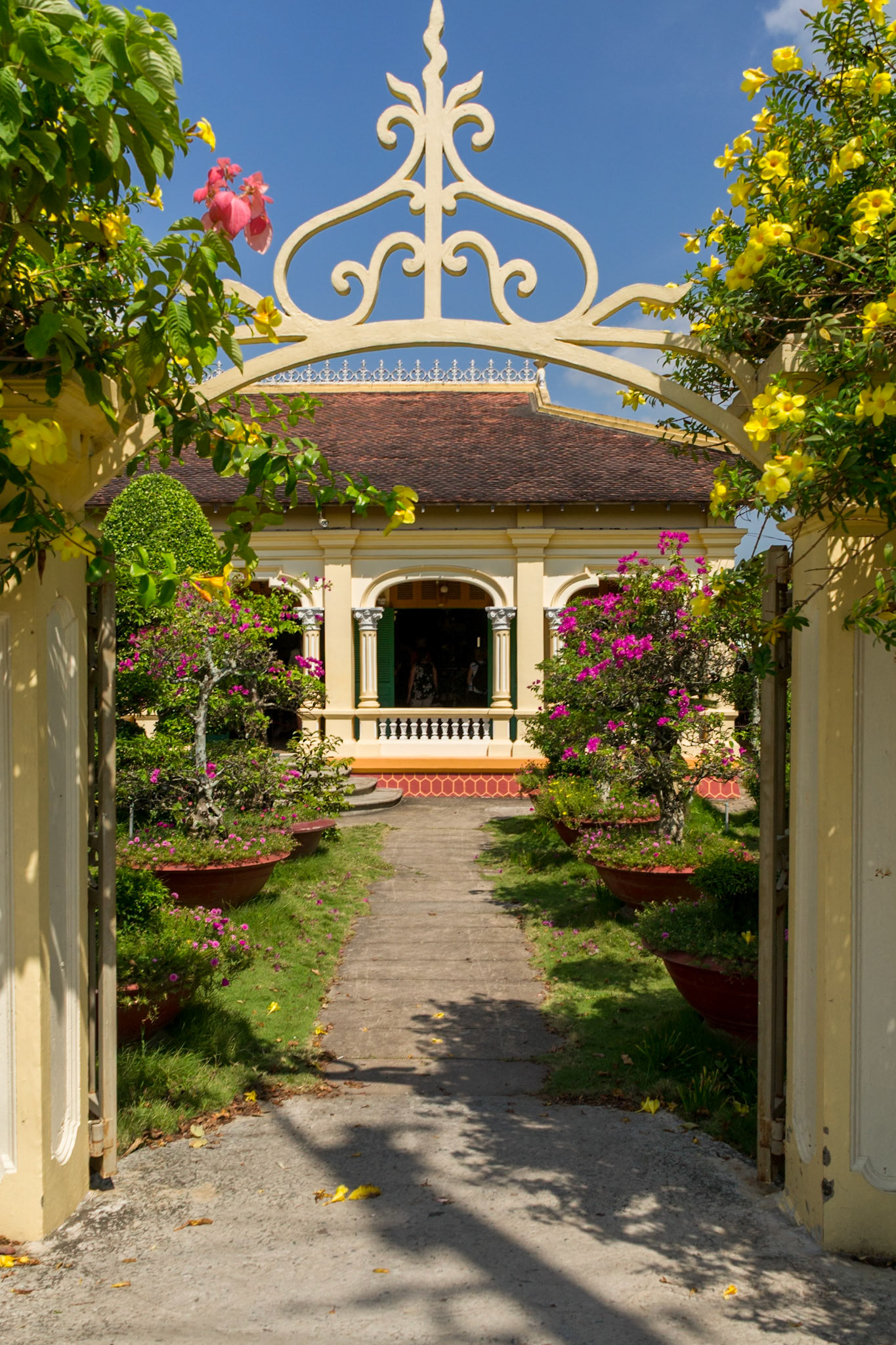
Mr Ba Duc's ancient house was built in 1850
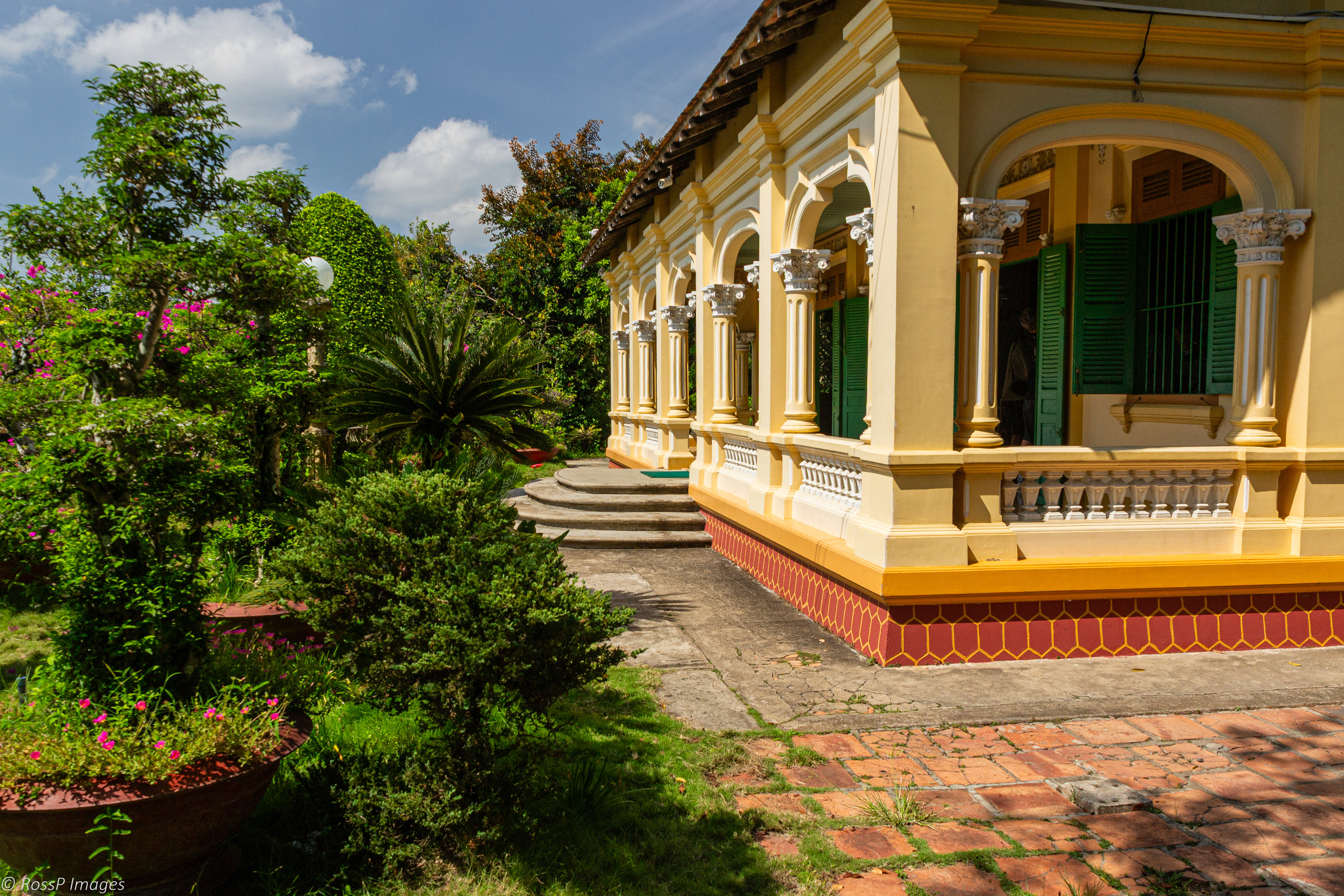
The house was restored in 1938 hence its French Colonial influenced exterior.
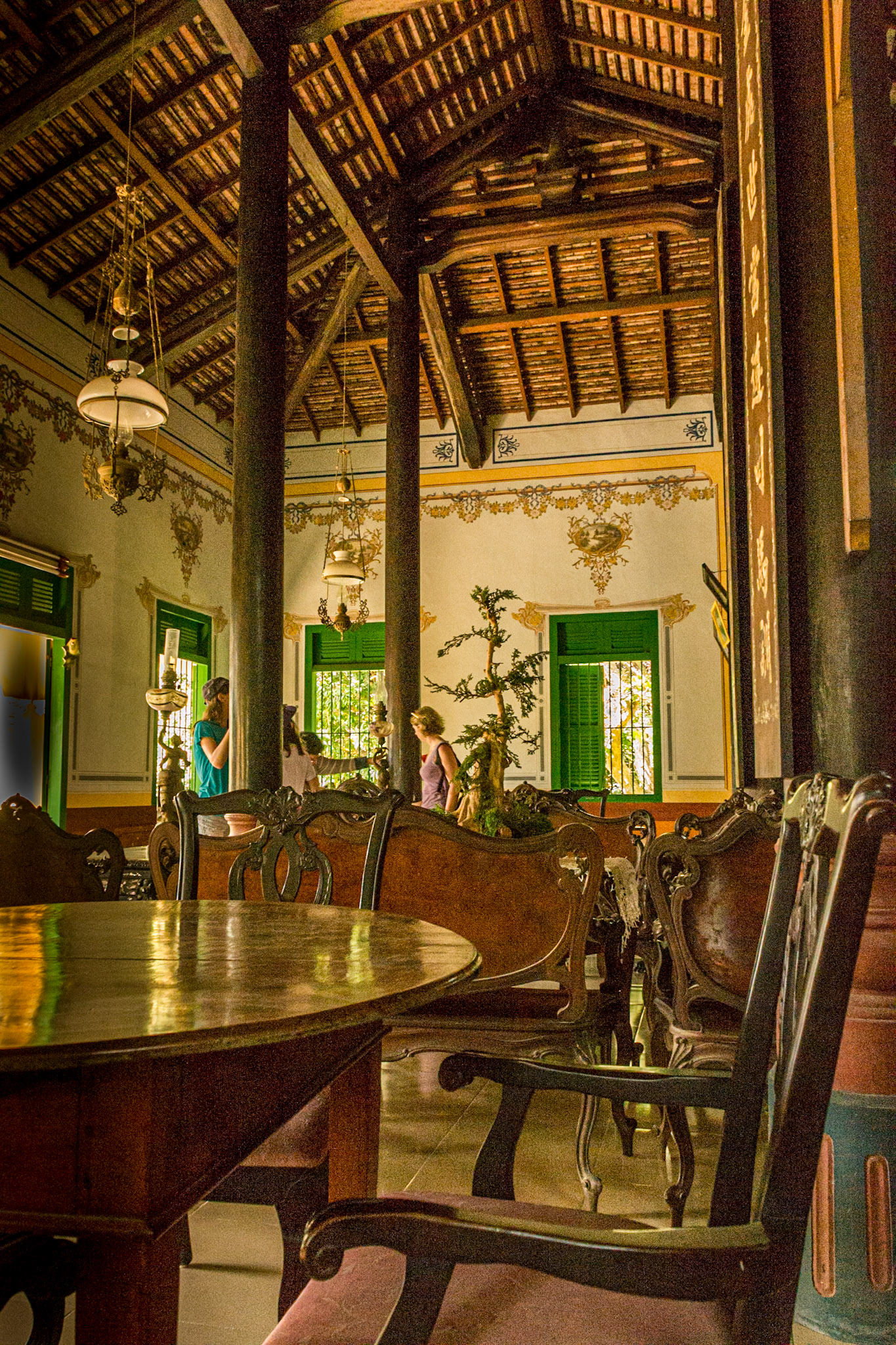
The interior retains the rustic feeling of Vietnamese wooden interior.
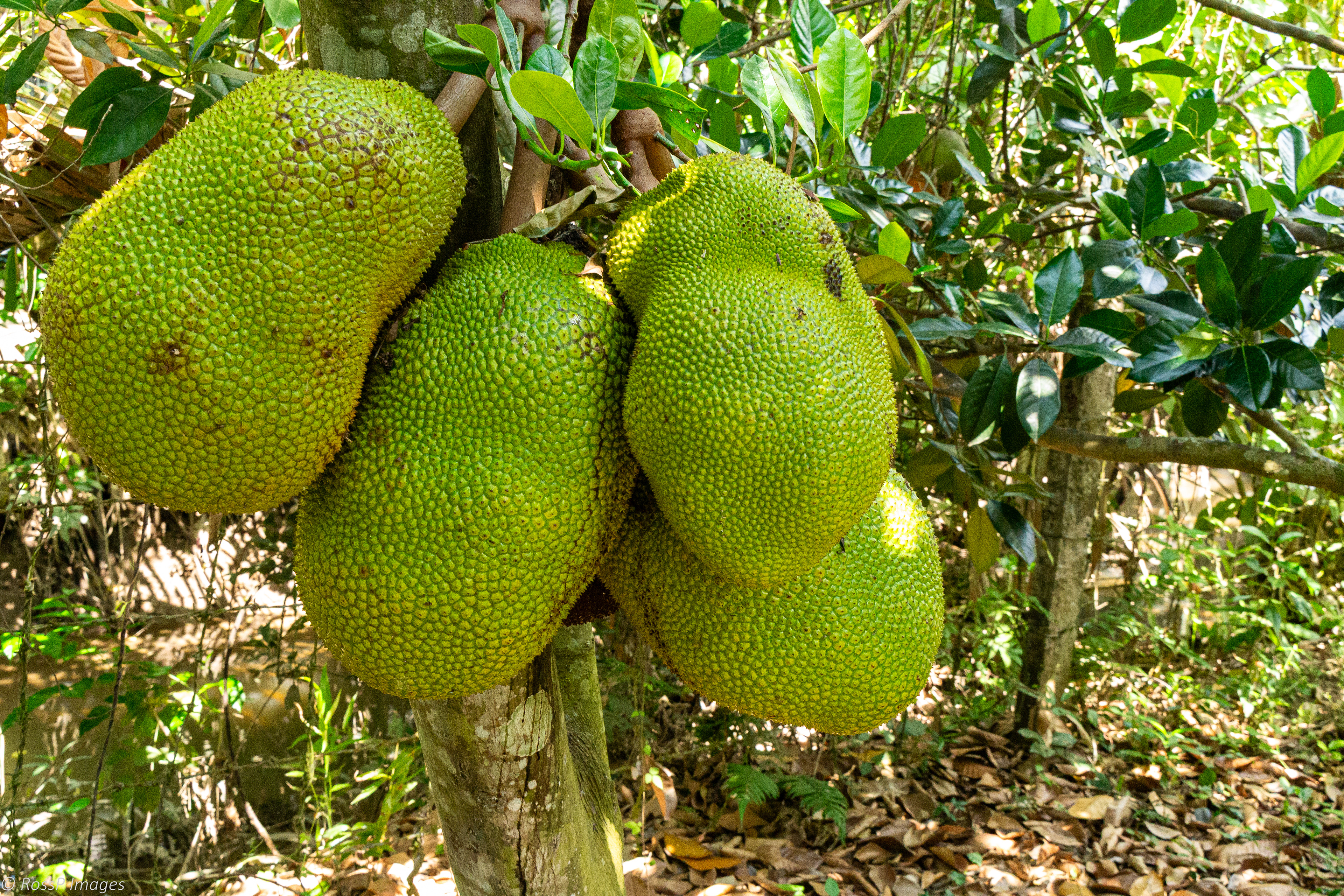
A Jacfruit tree.in the grounds of Ba Doc house.
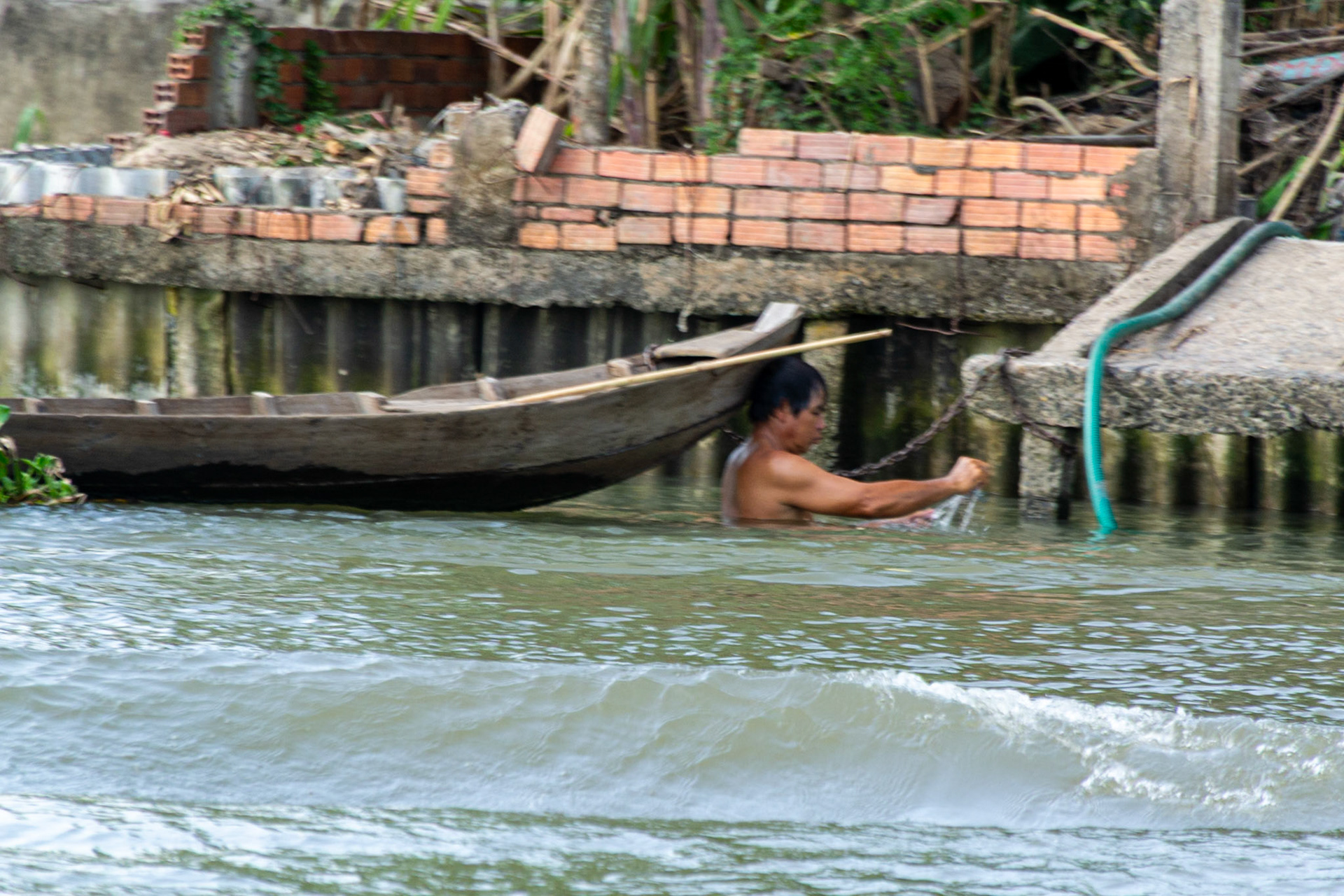
Sailing into Sa Dec village we observe locals enjoying the waters of the Mekong ......bathing,
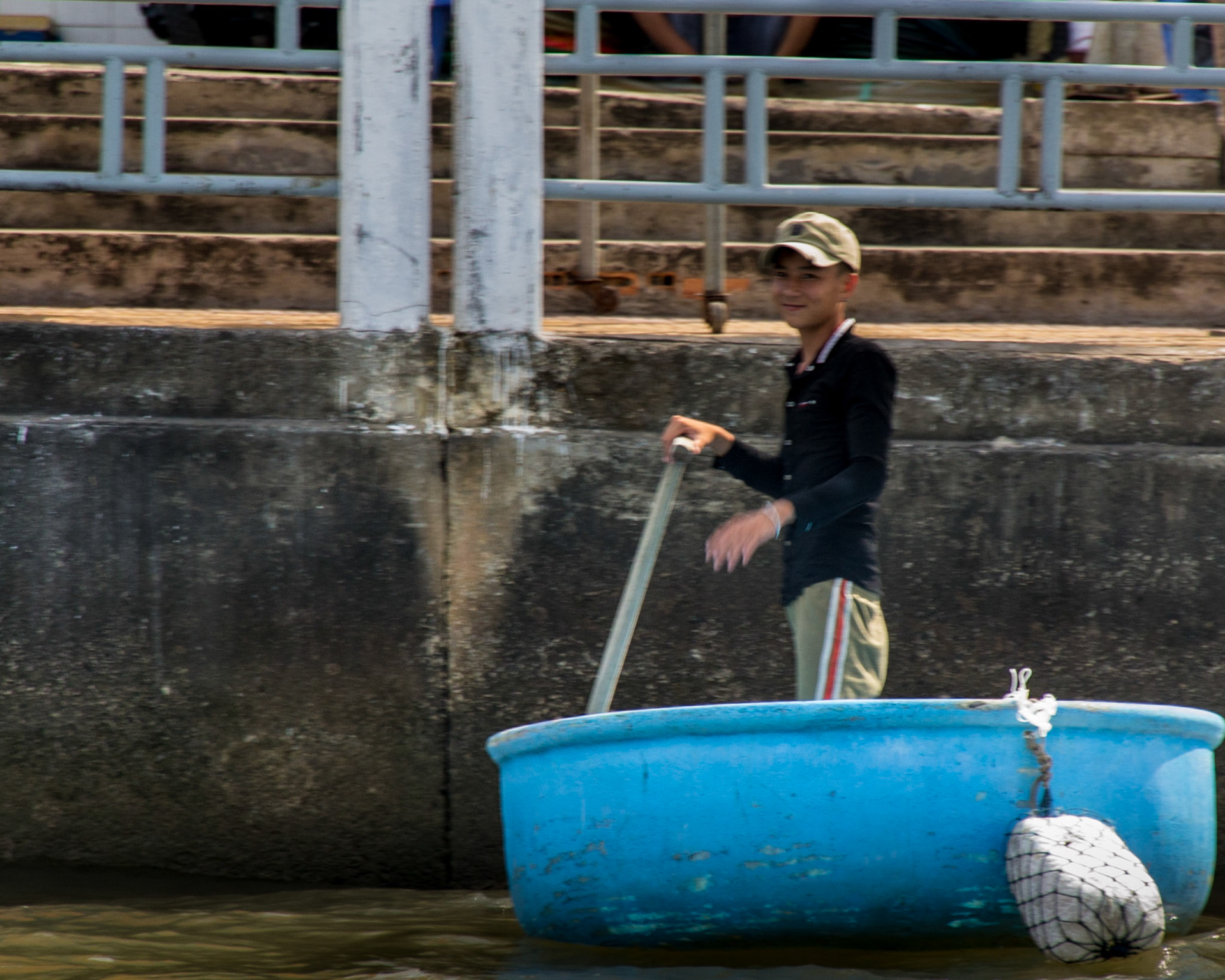
...paddling a tub boat,

and having fun jumping from a bridge.
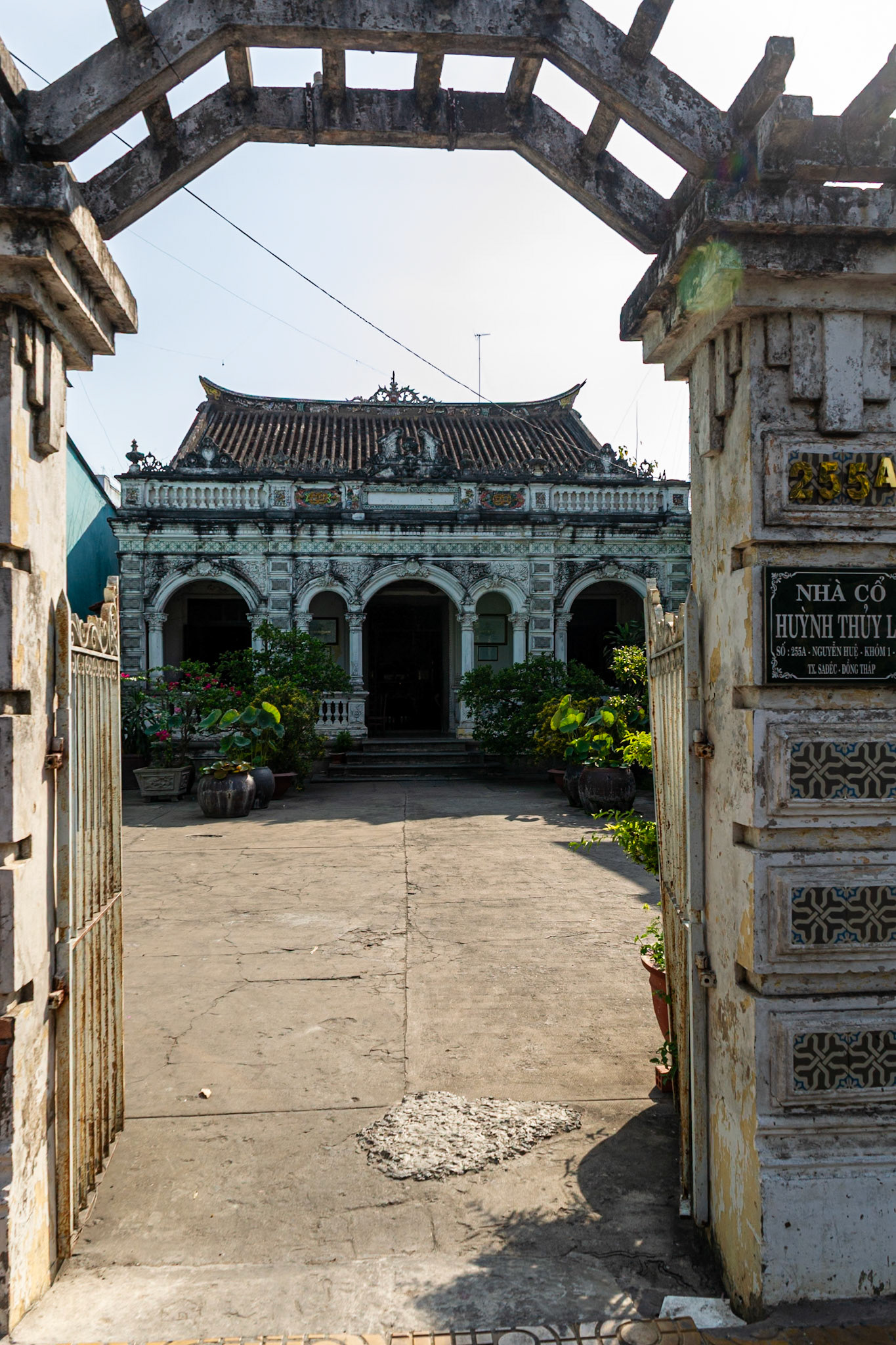
Huynh Thuy Le's house, Sa Dec.
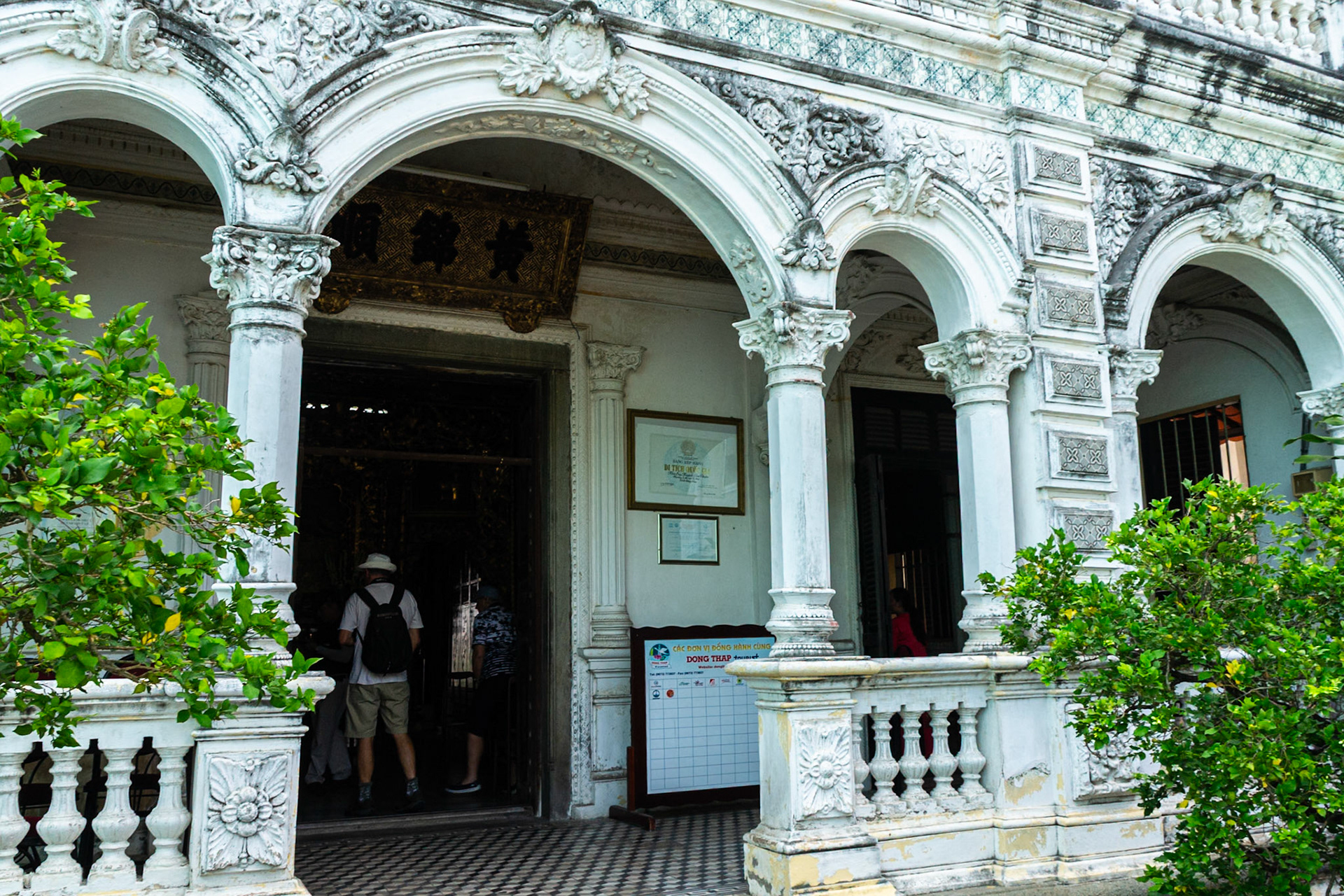
The house became famous when author, Marguerite Duras' autobiography was adapted into a film of the same name (L'Amant) in 1991.

Timber interior of Huynh Thuy Le's house with Moter of Pearl inlaid furniture.
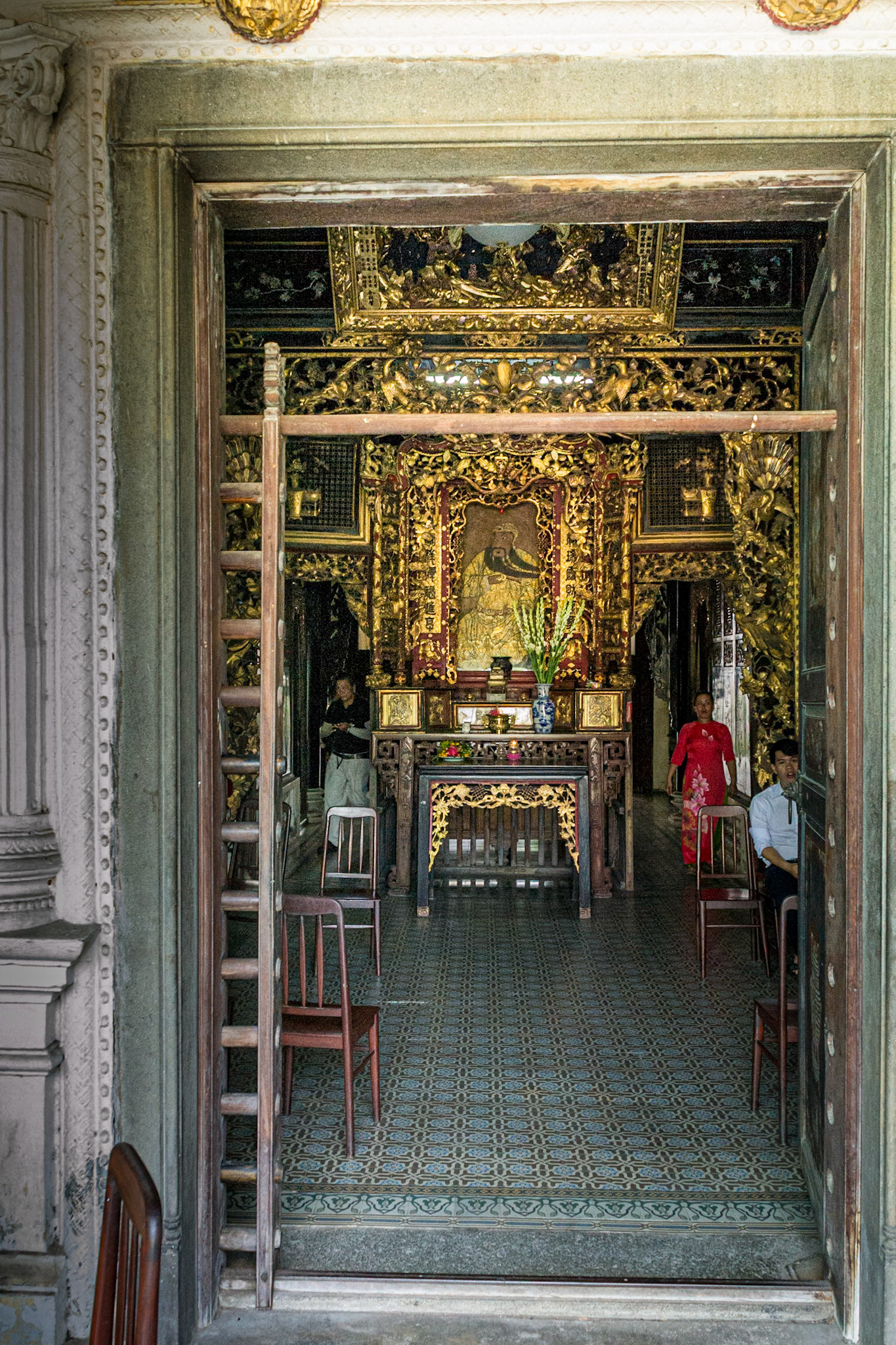
A glimpse of the ornate interior Huynh Thuy Le's house.
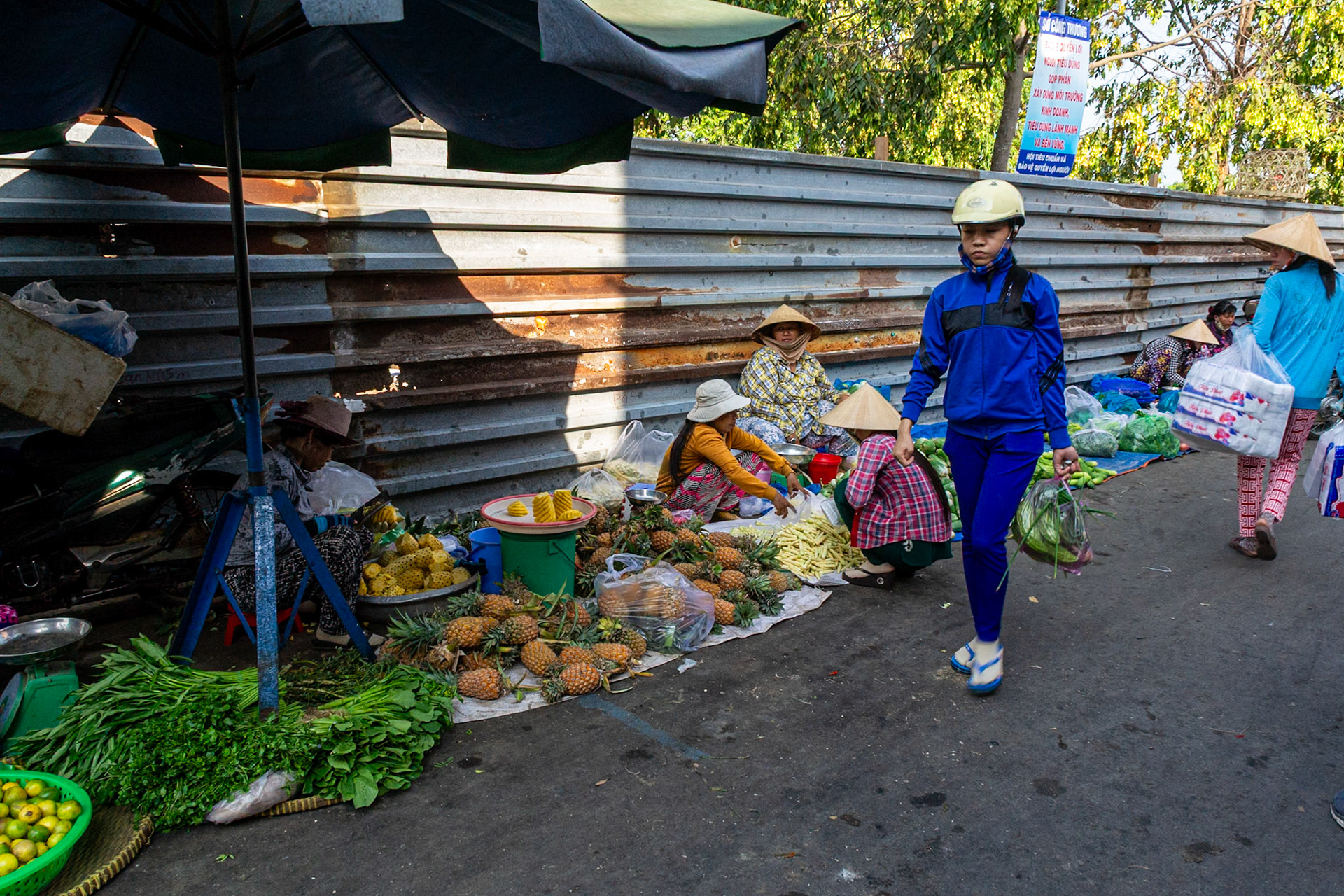
Sa Dec markets have everything from fresh fruit and vegetables through to protein of the "wet" markets.
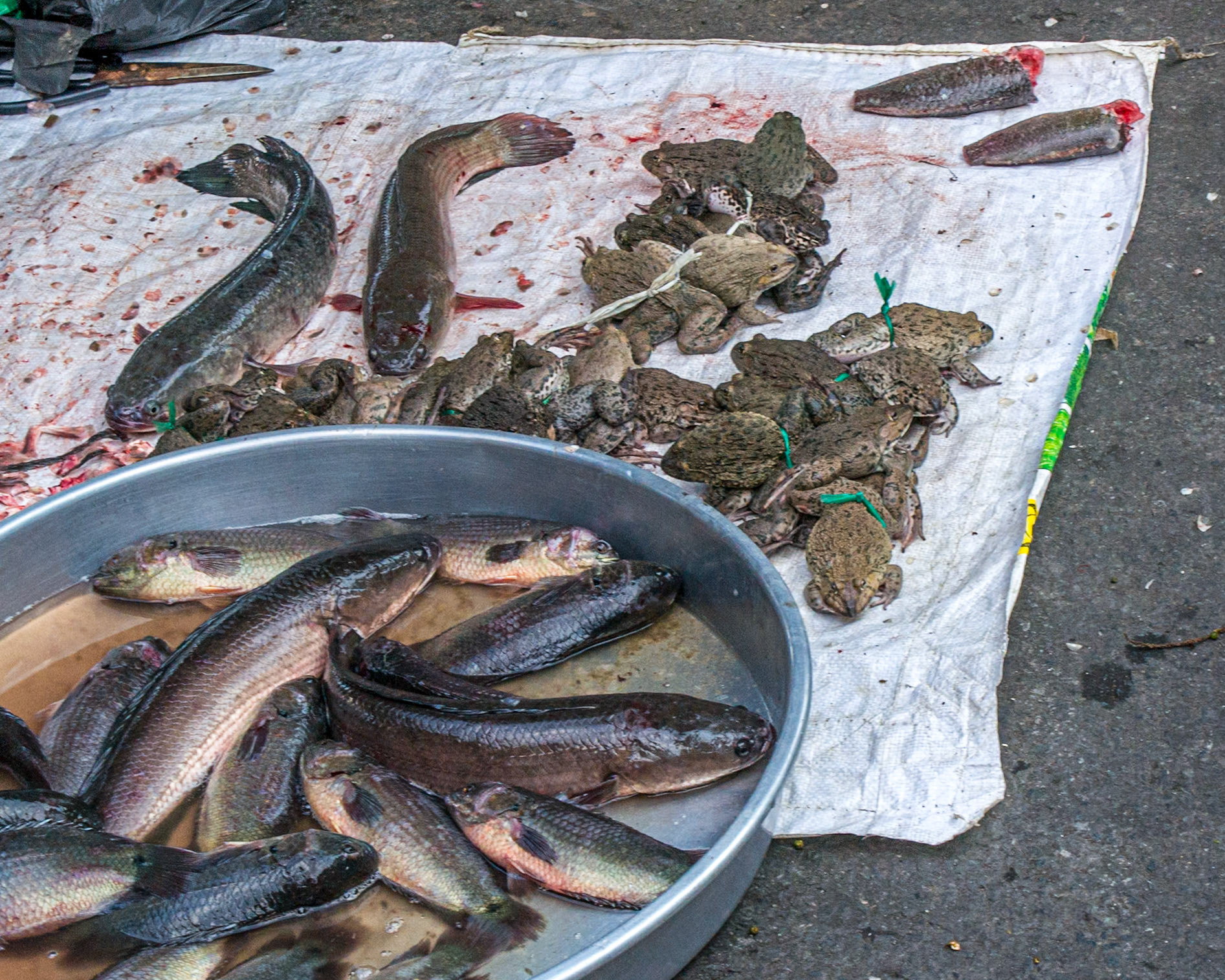
Eel-tailed fish and live frogs on offer.
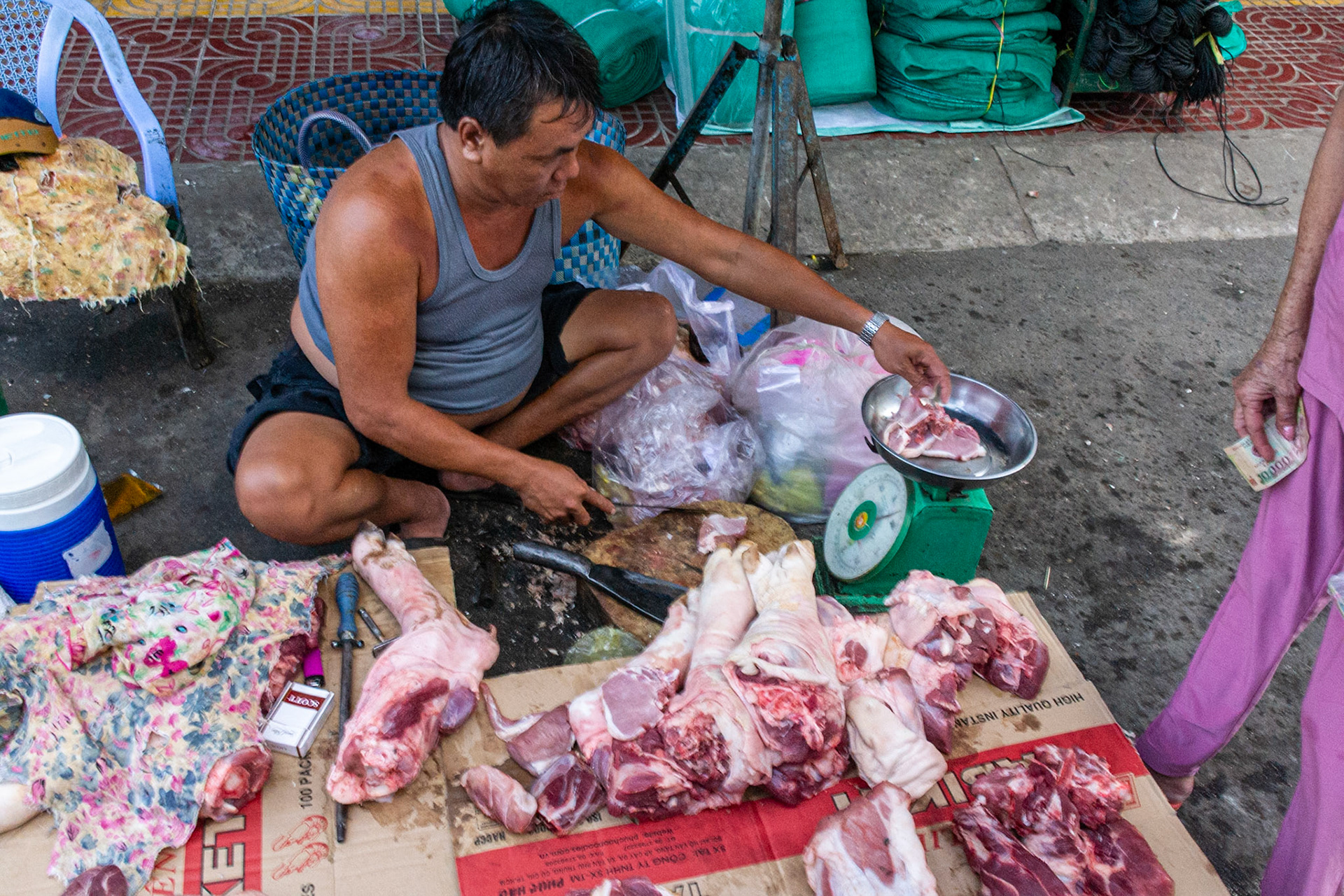
Weighing up a sale of freshly butchered pork.
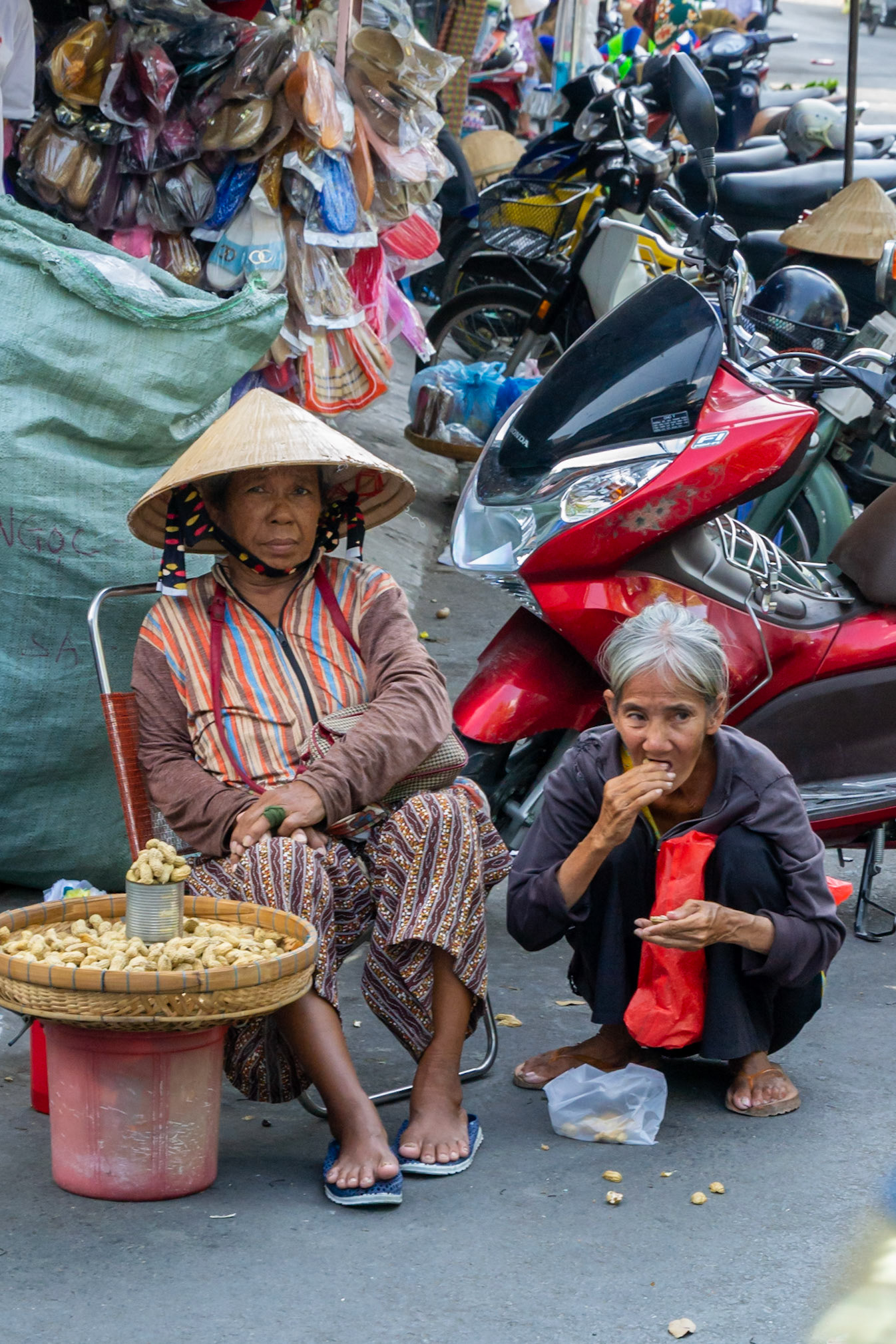
Peanut vendor provides a meal for an elderly lady.

Cool shades, cool dude.
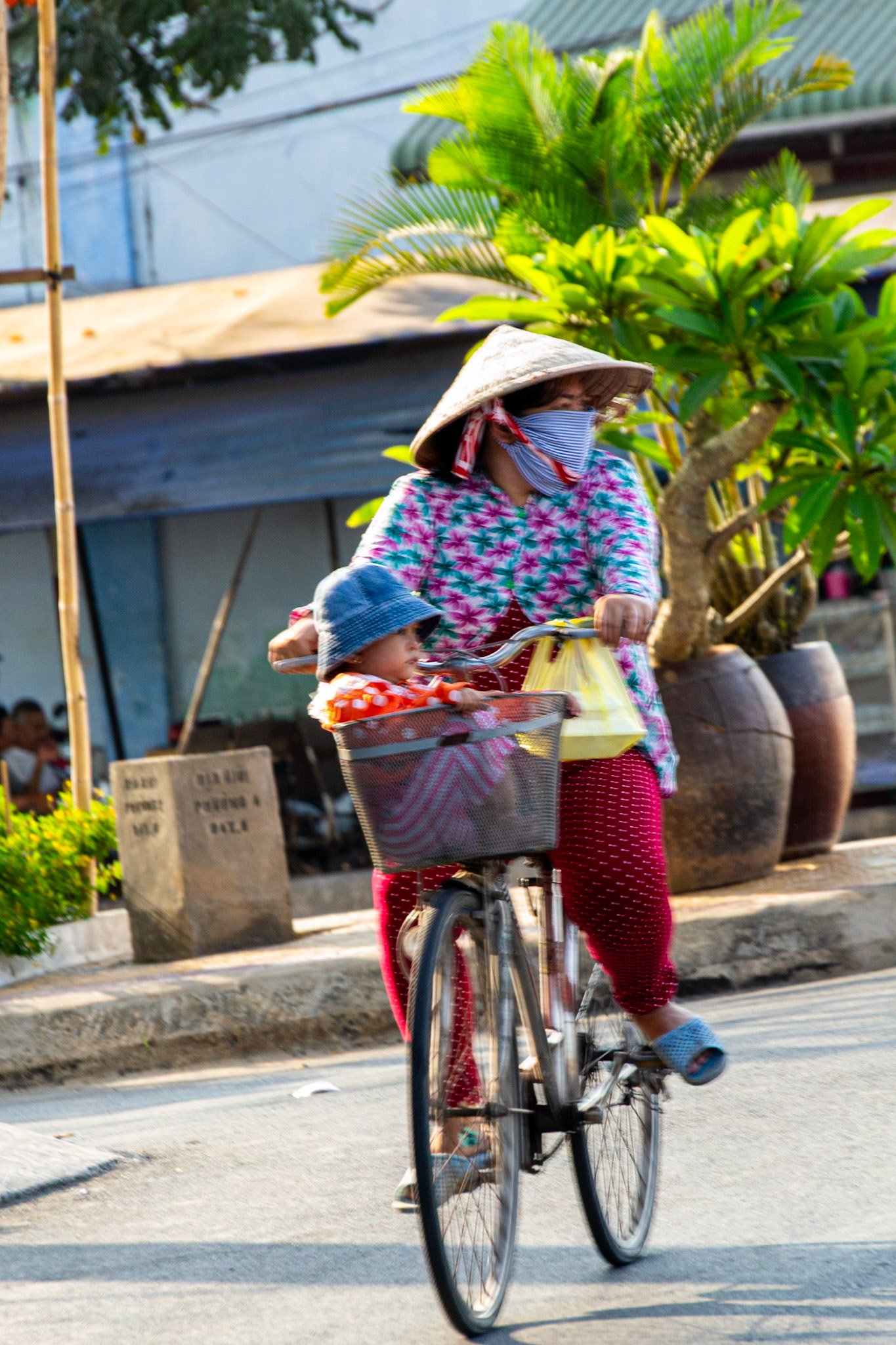
Child-seat for a bicycle.
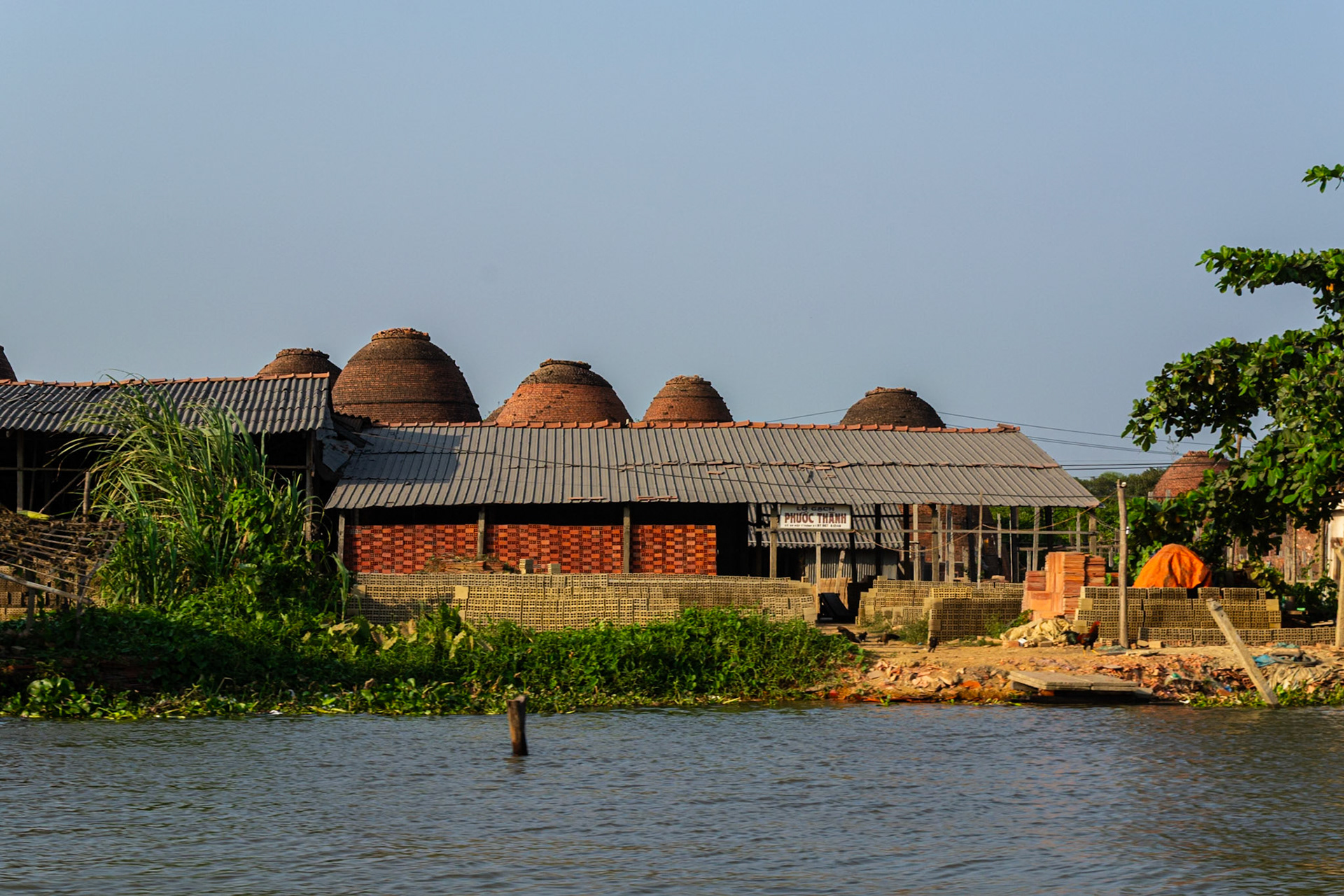
Sa Dec brickworks with kilns protruding above the roofline.
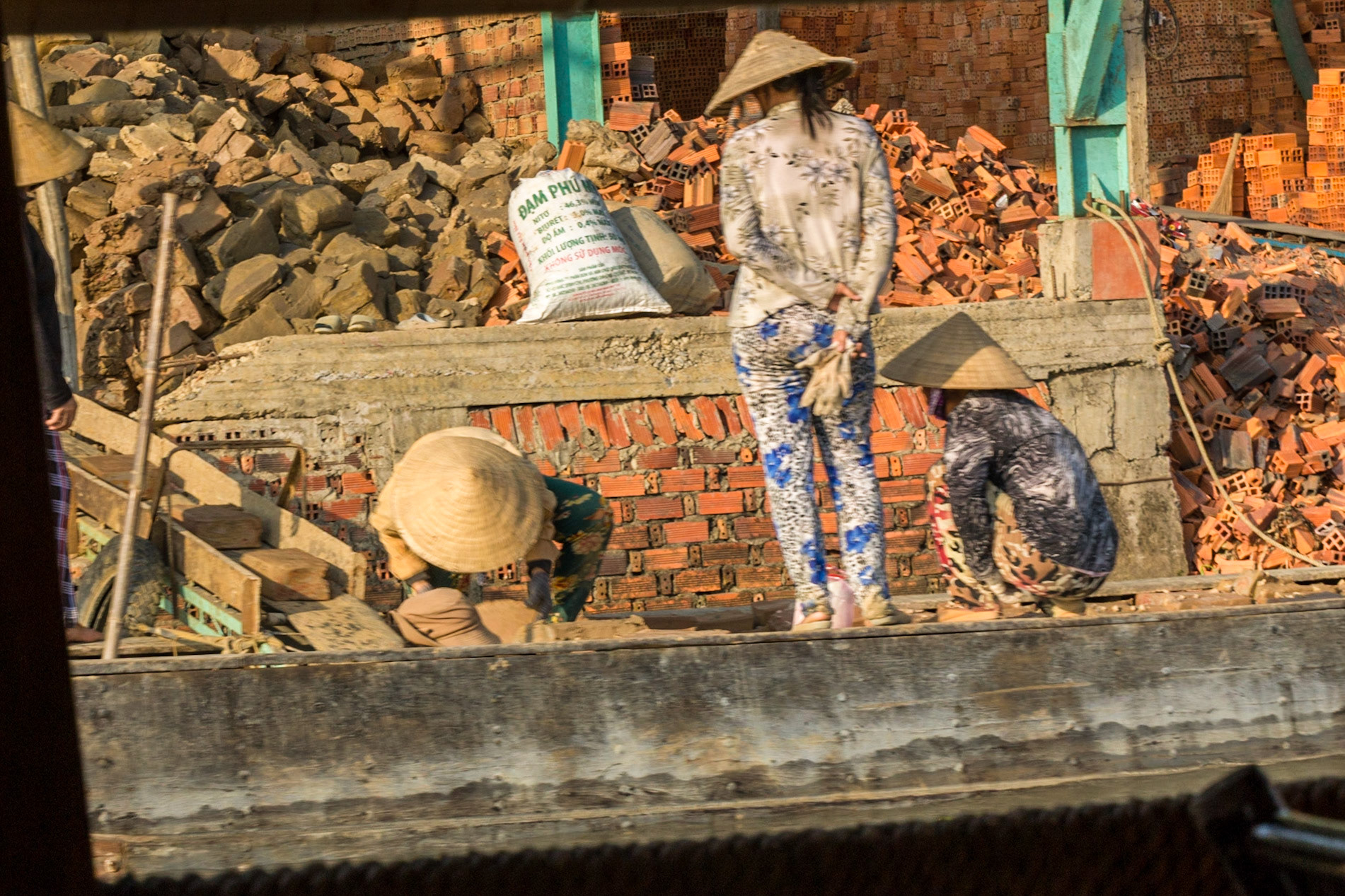
Women unloading billets of clay at the brickworks.
Tan Chau
Our last stop in Vietnam before entering Cambodia is the village of Tan Chau. Leaving our cruise ship behind we travel in small groups using local passenger boats. Along the way we visit Evergreen Island, a hidden-away rural community and chat with residents and farmers about their way of life. On arrival in the township of Tan Chau we are treated a traditional xe-loi (rickshaw ride) through the village before arriving at Than That Tan Chau temple, an eccentric, colorful landmark in the town.
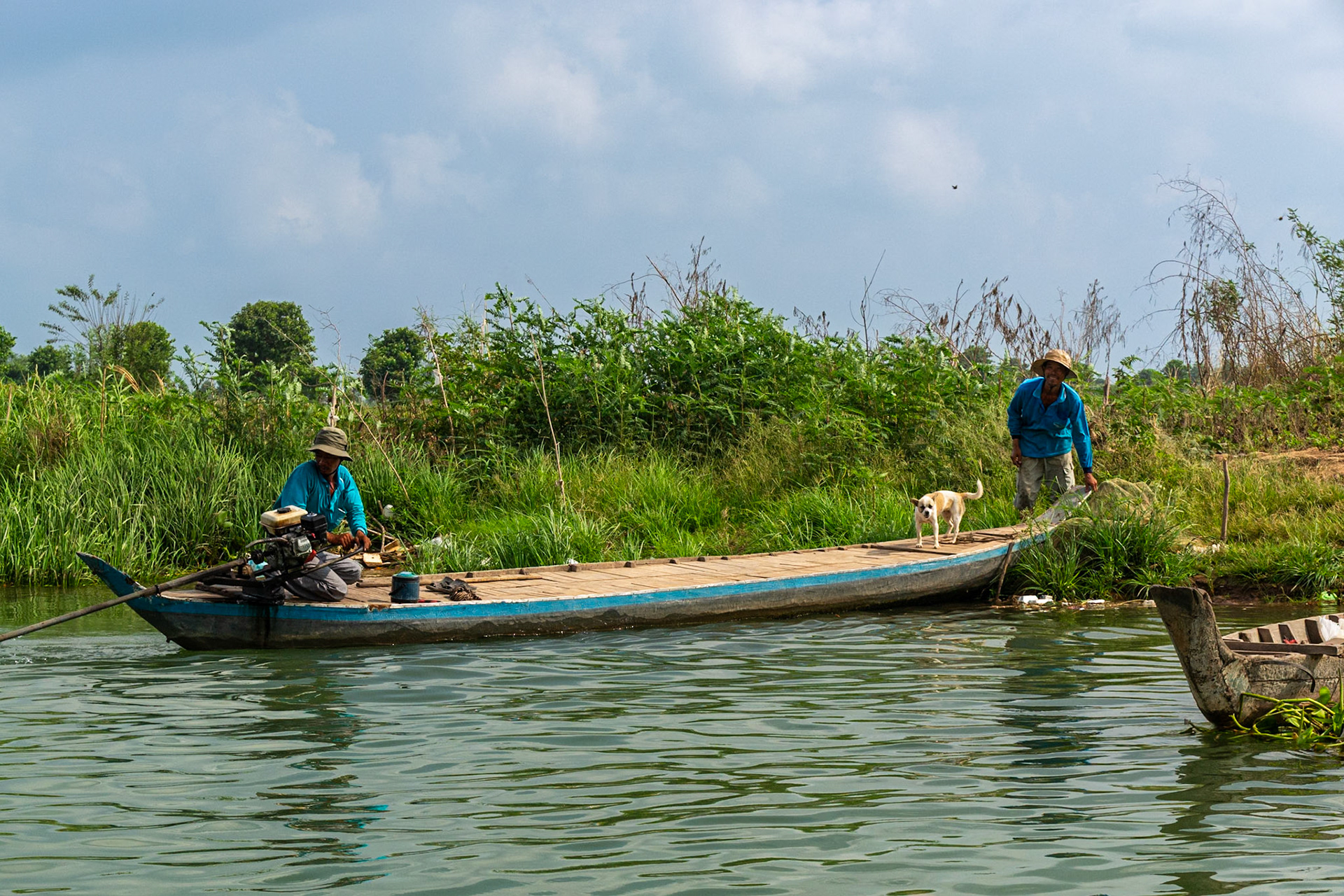
River boat people.
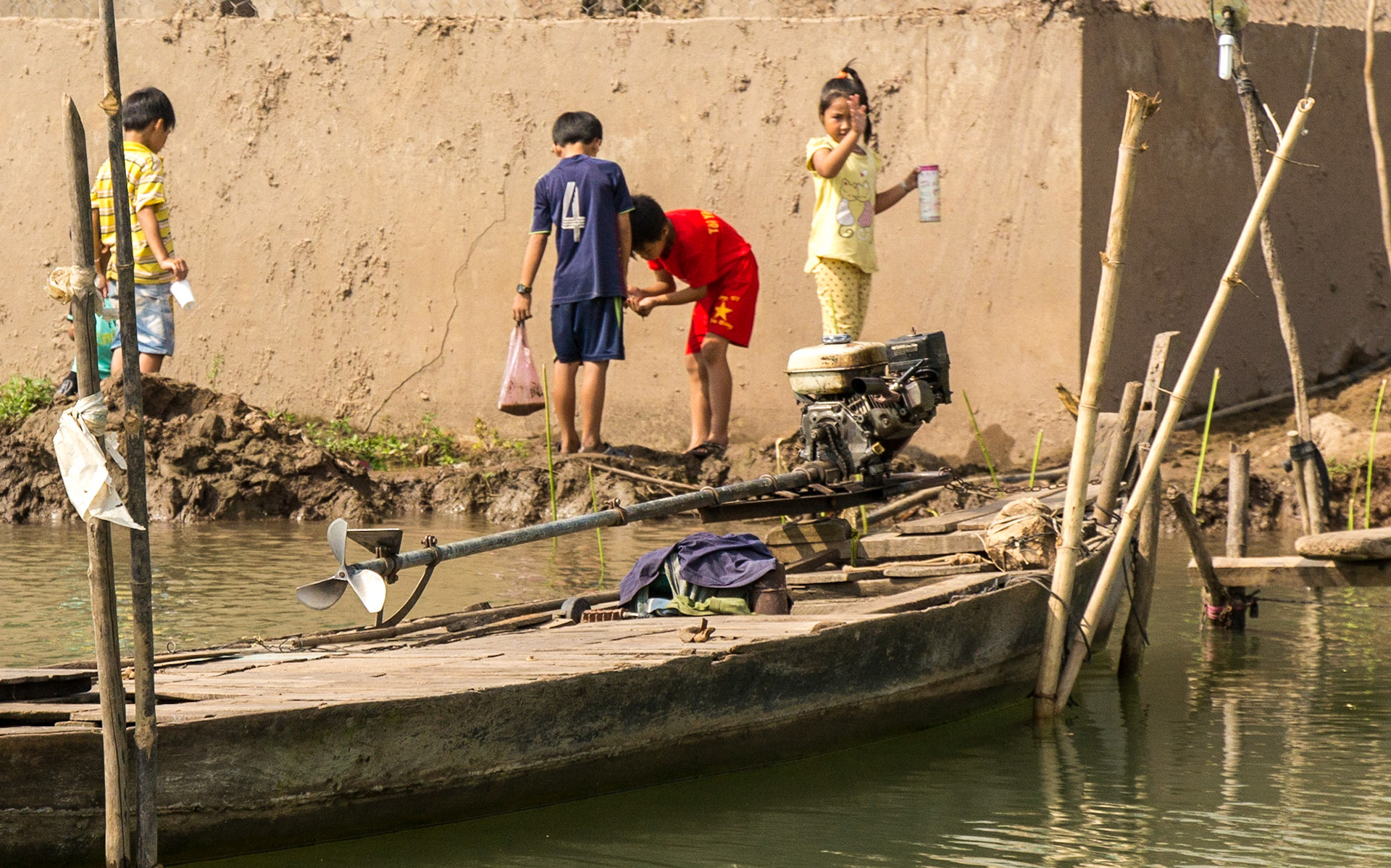
Friendly greetings by local children.
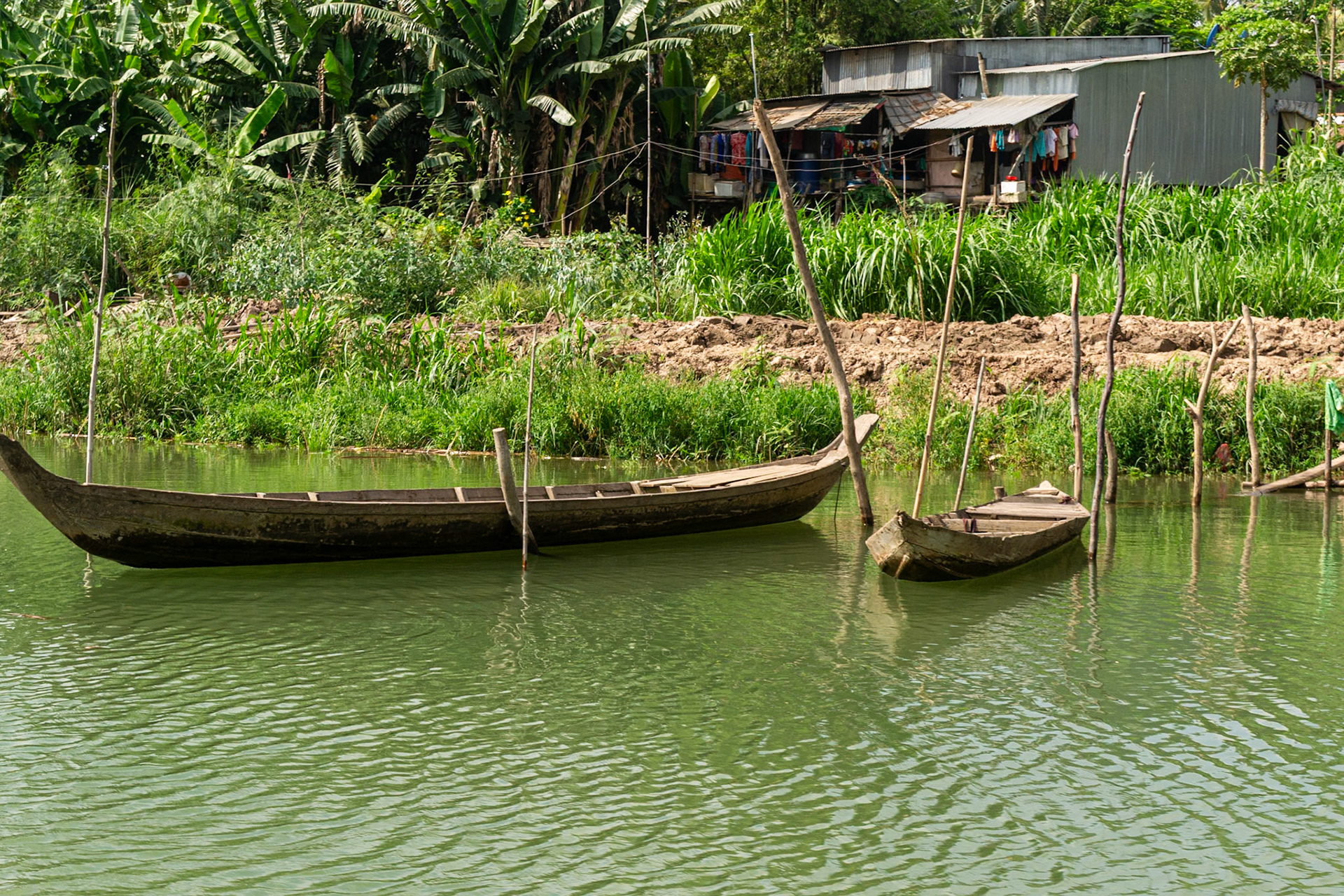
Wooden canoes moored in front of riverside homes typical of the area.

Colourful parasols of the workers in a Tea Plantation.
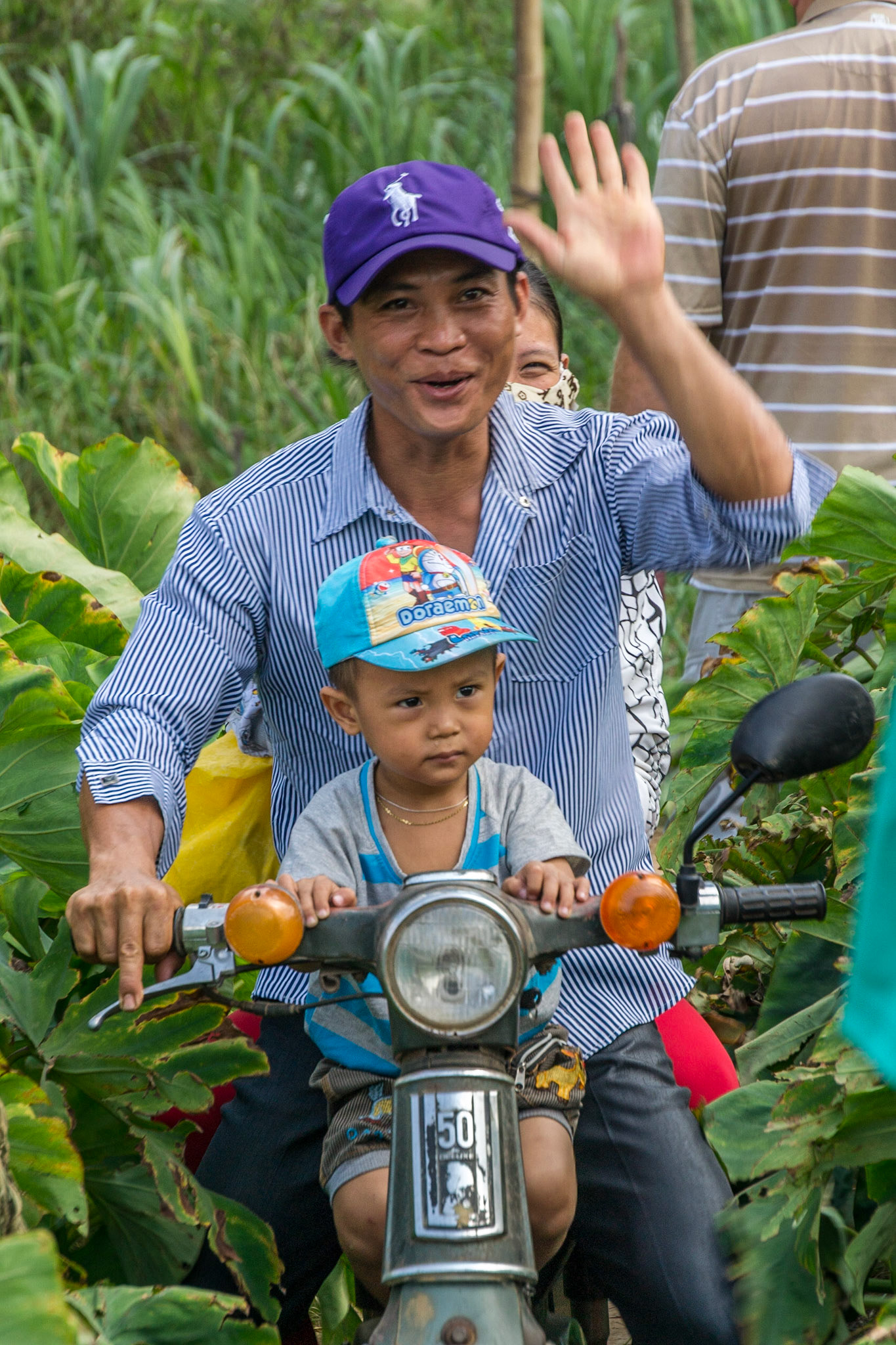
Hi-five as we share a single-lane path through the fields with the locals.
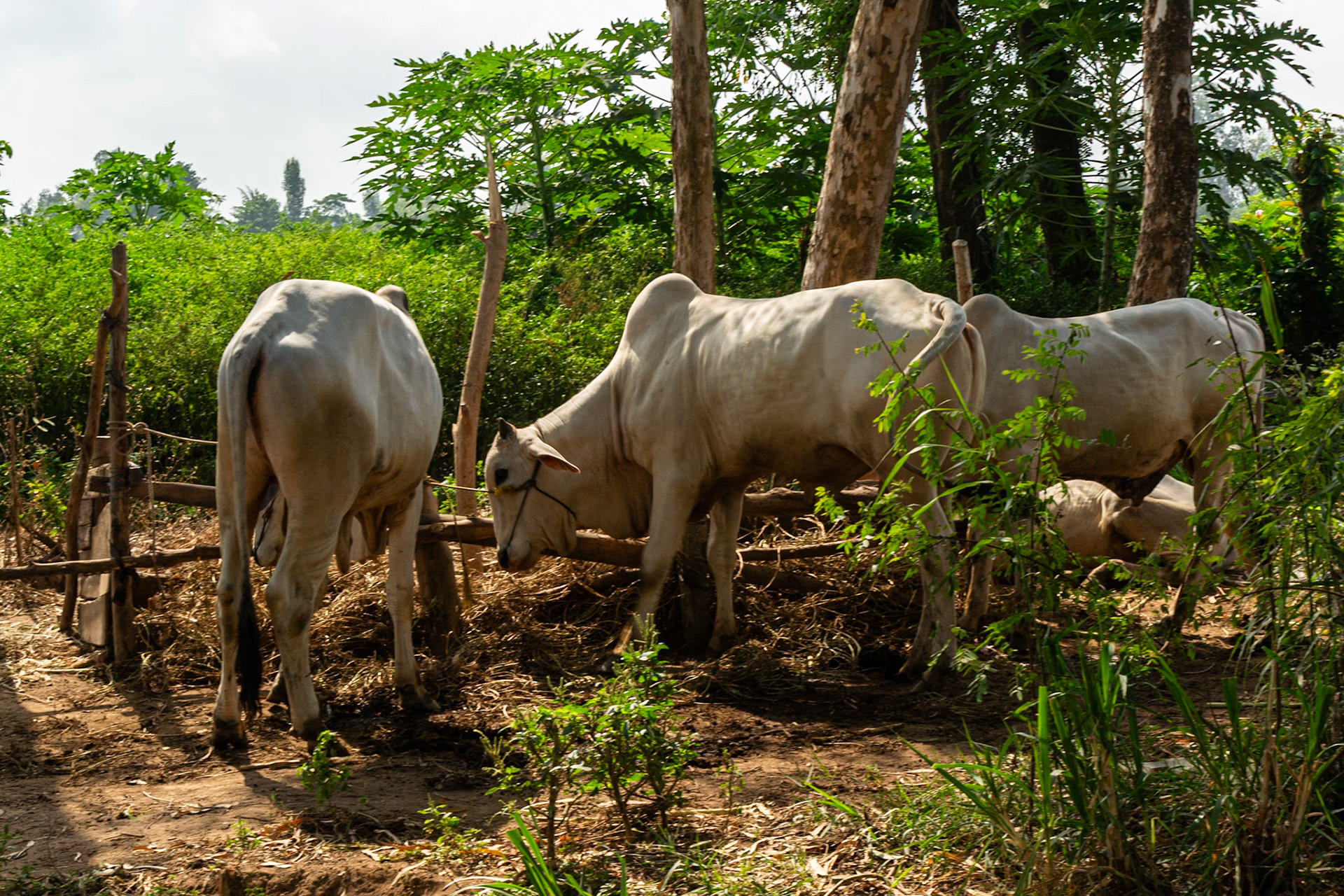
Beef farming in the Mekong delta.
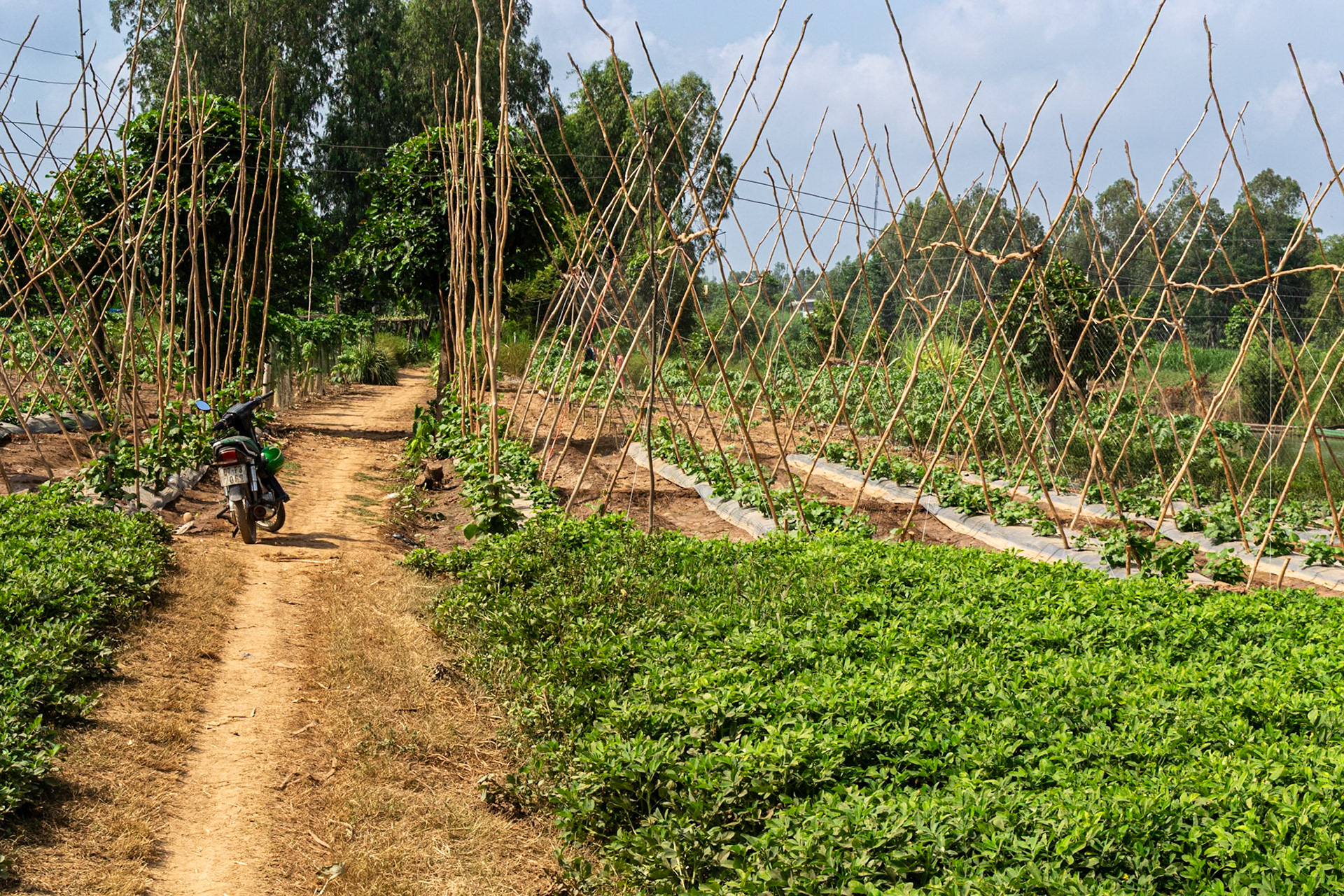
Well-tended vegetable gardens.
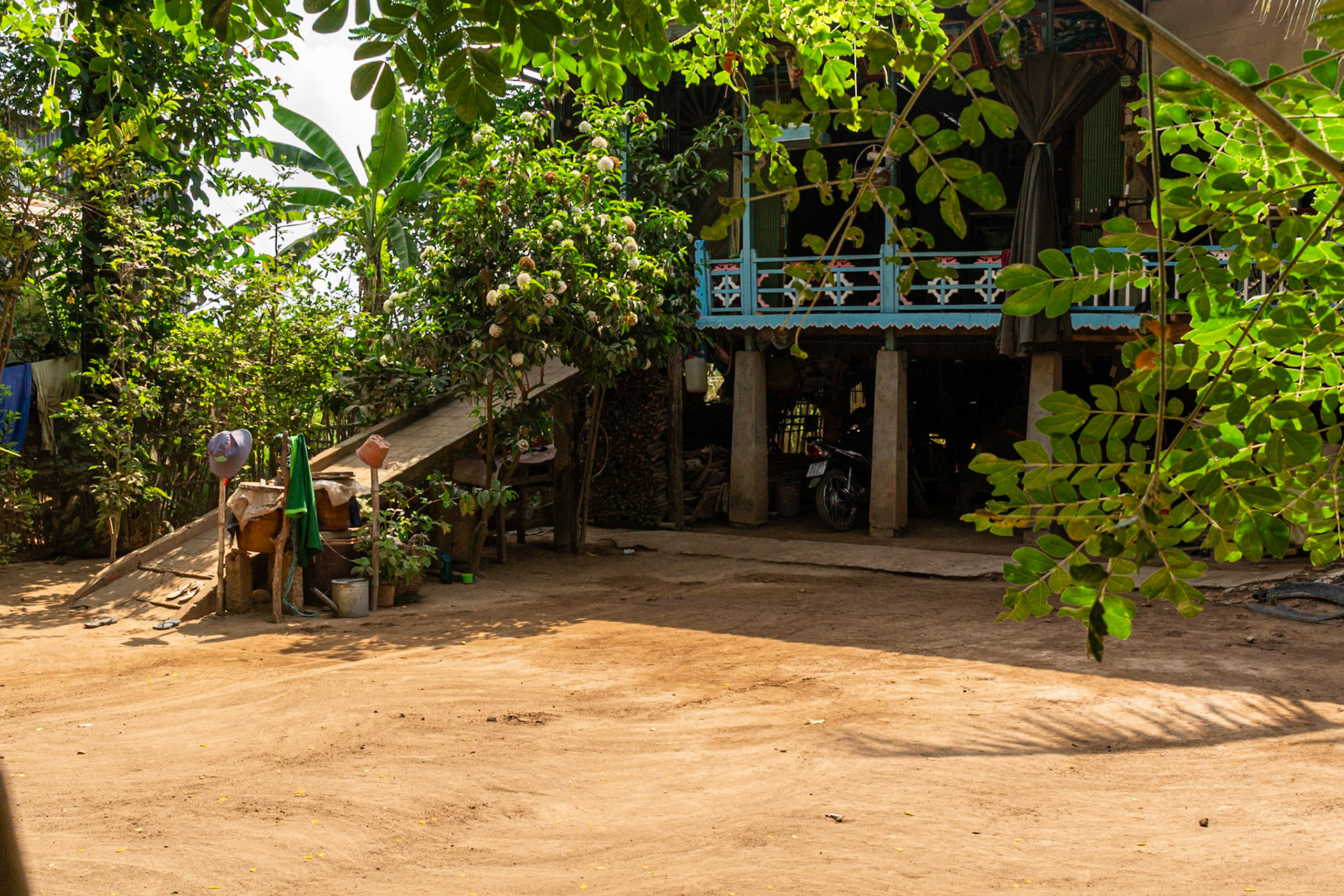
This raised farmhouses with bright blue trim is typical of the homes of the Evergreen island community.
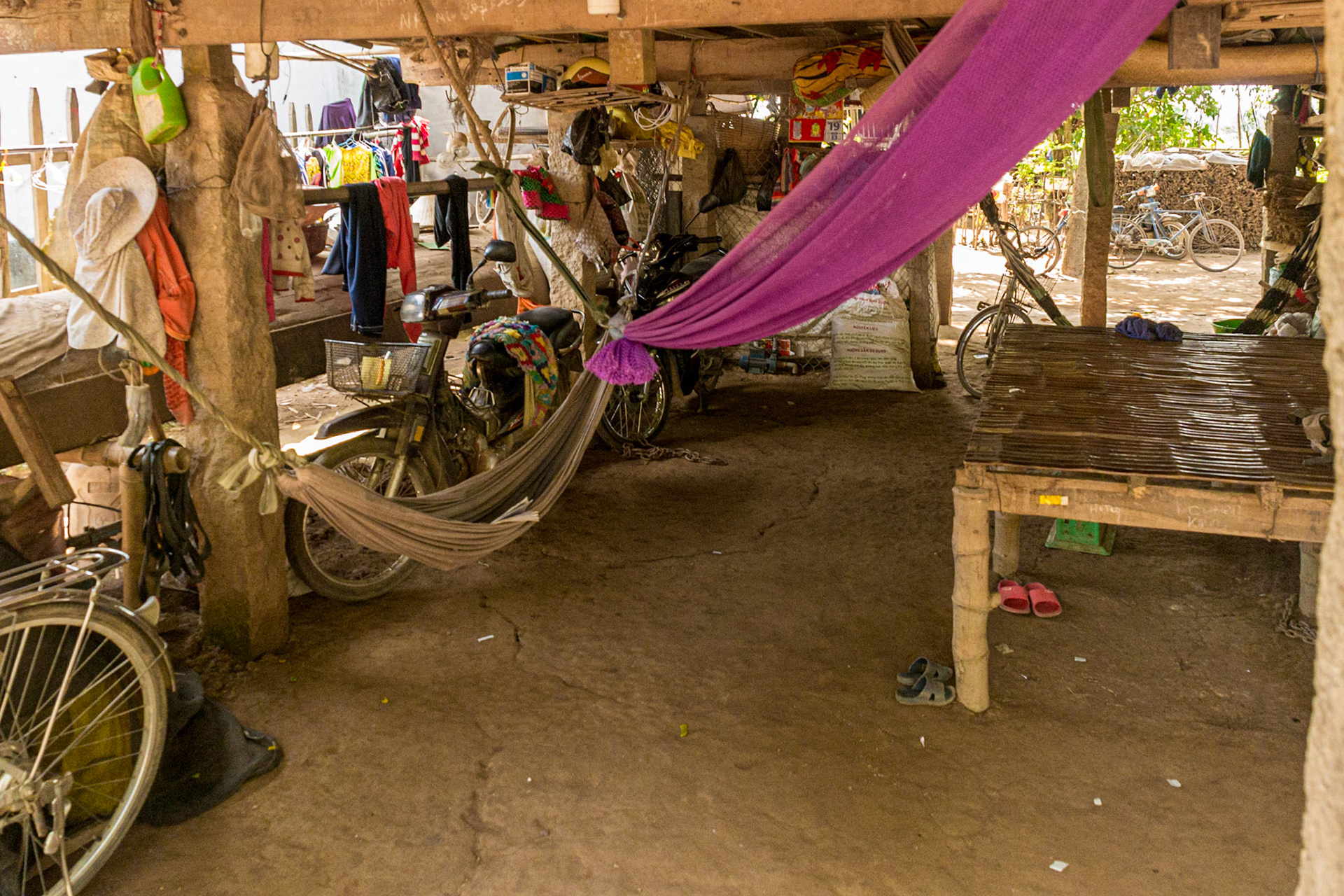
The ground level provides a cool haven for day-to-day living in the hot, humid environment of the delta region.
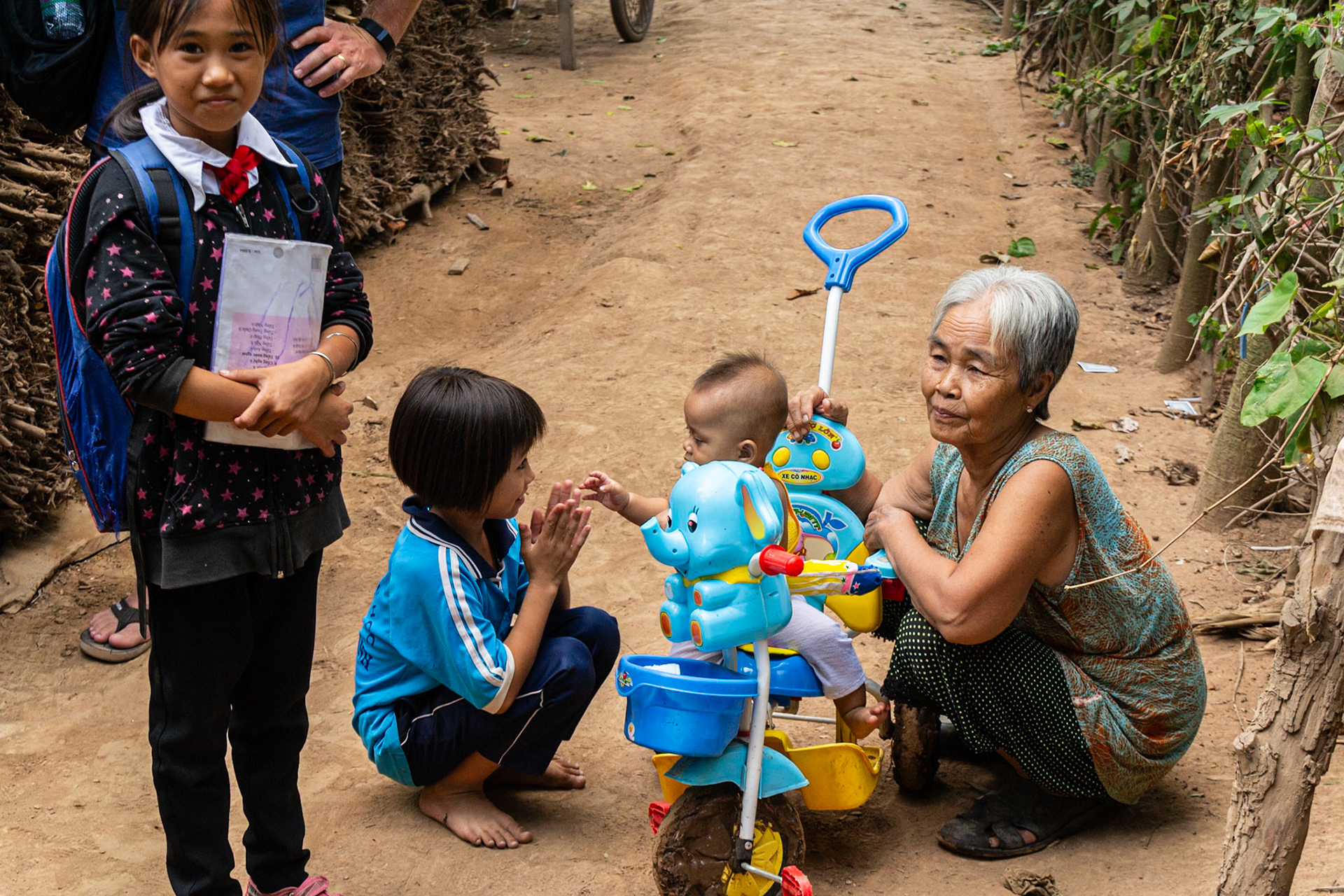
We visit local farming family to gain an insight into their daily lifestyle.
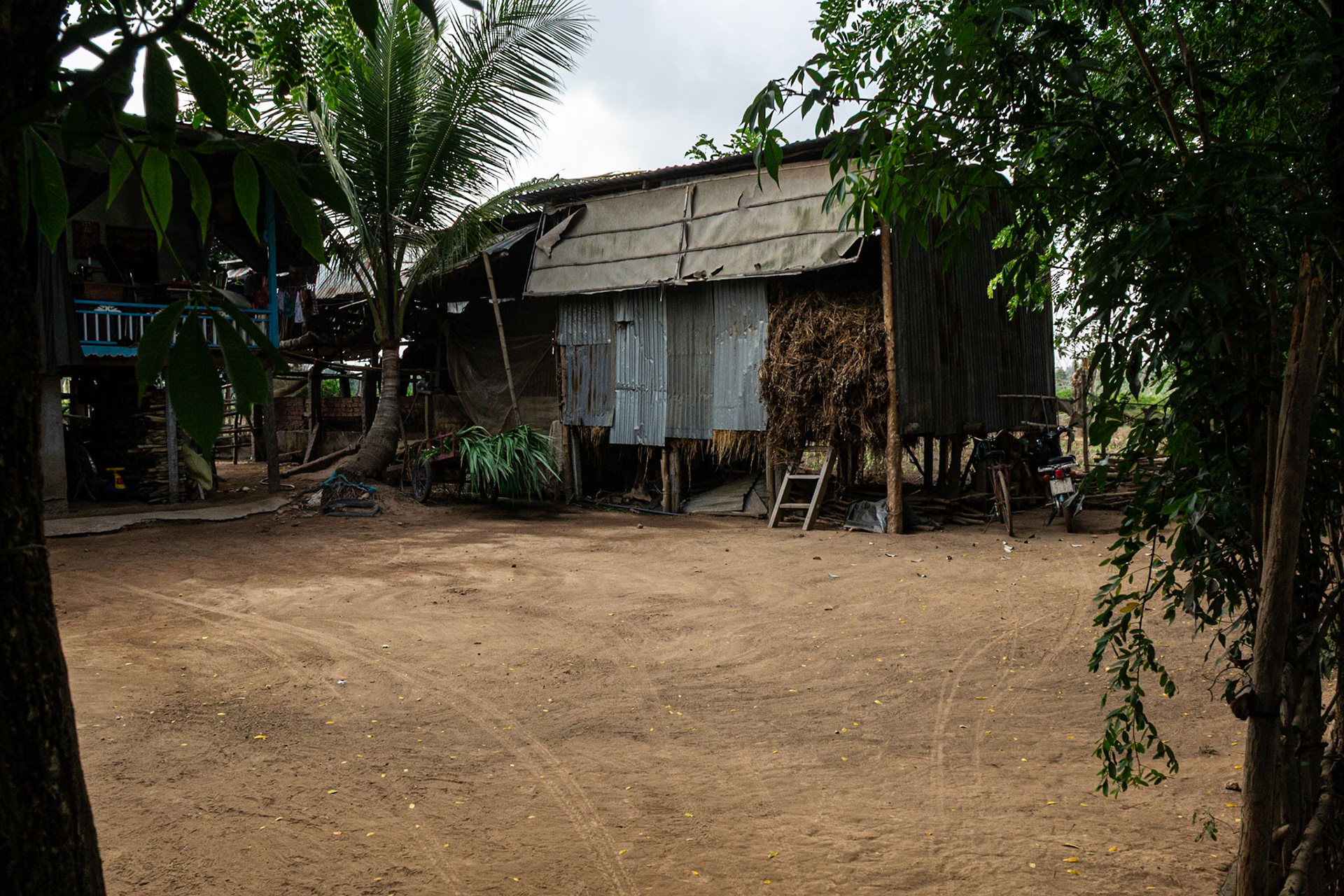
Most buildings are raised to allow for annual monsoon flooding events.

Arriving in Tan Chau.

A tricky boarding process for the rickshaw tour of Tan Chau. (A stainless steel cart towed behind a bicycle).
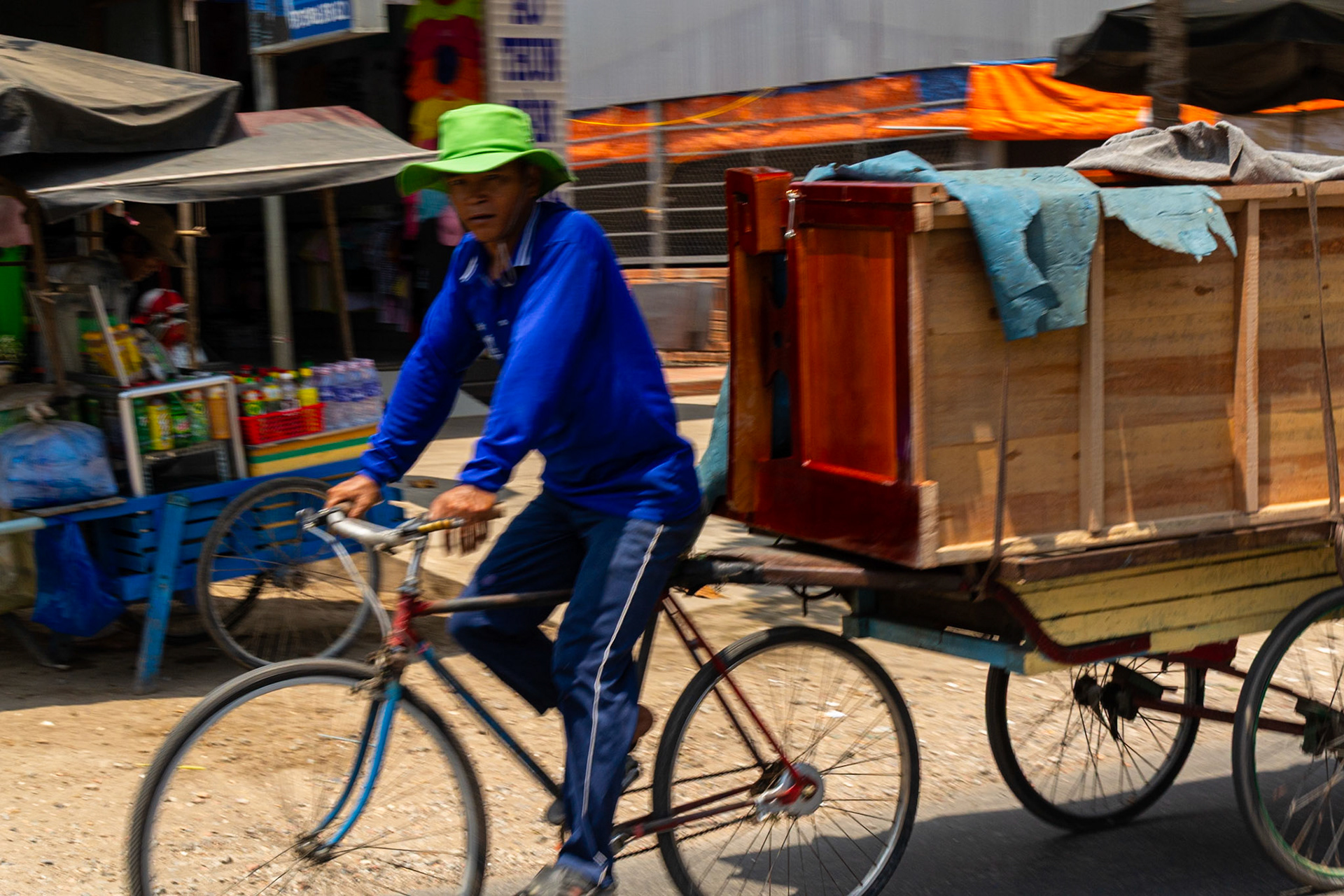
Heavy transport bicycle.
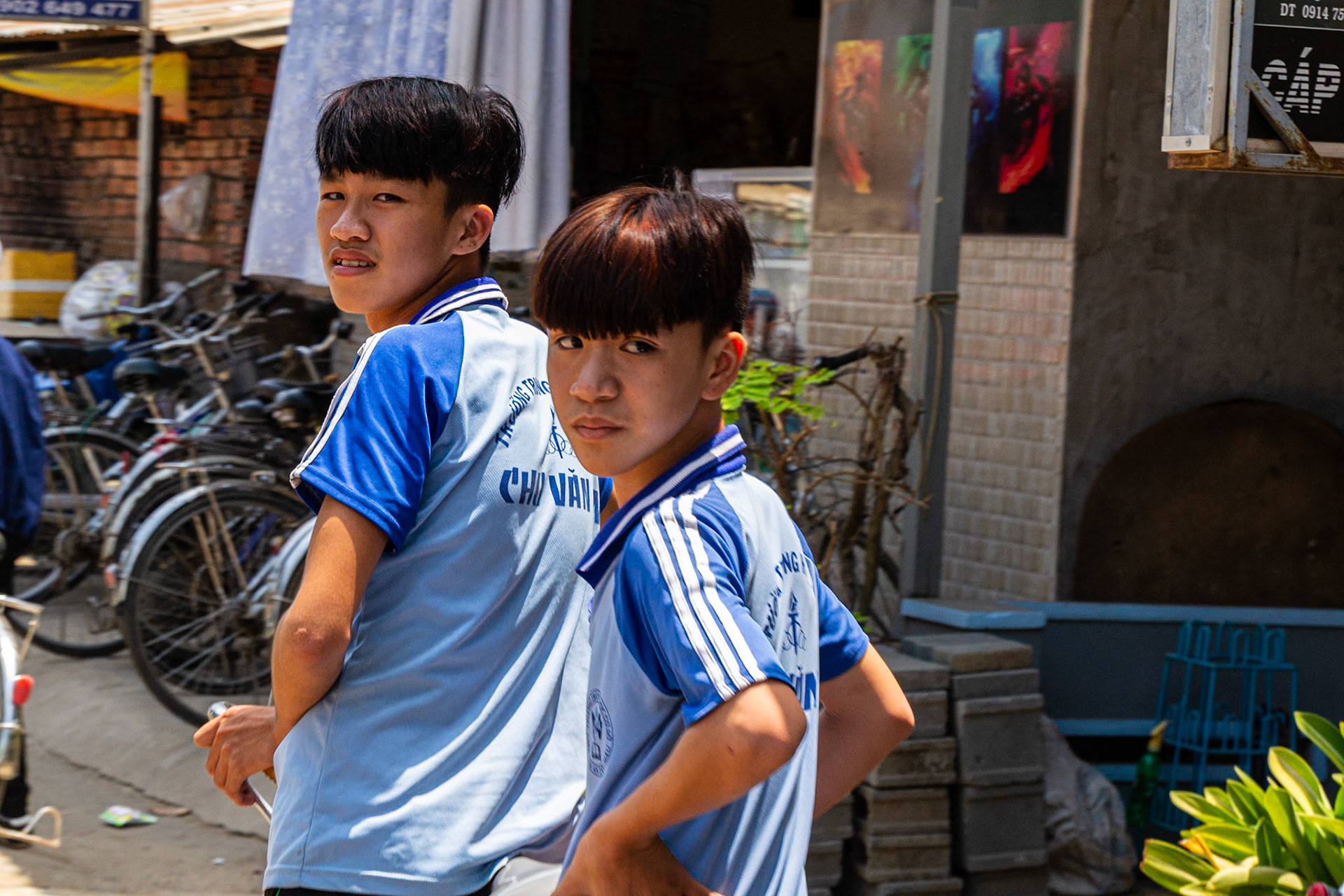
Schoolboys doubling on a bicycle
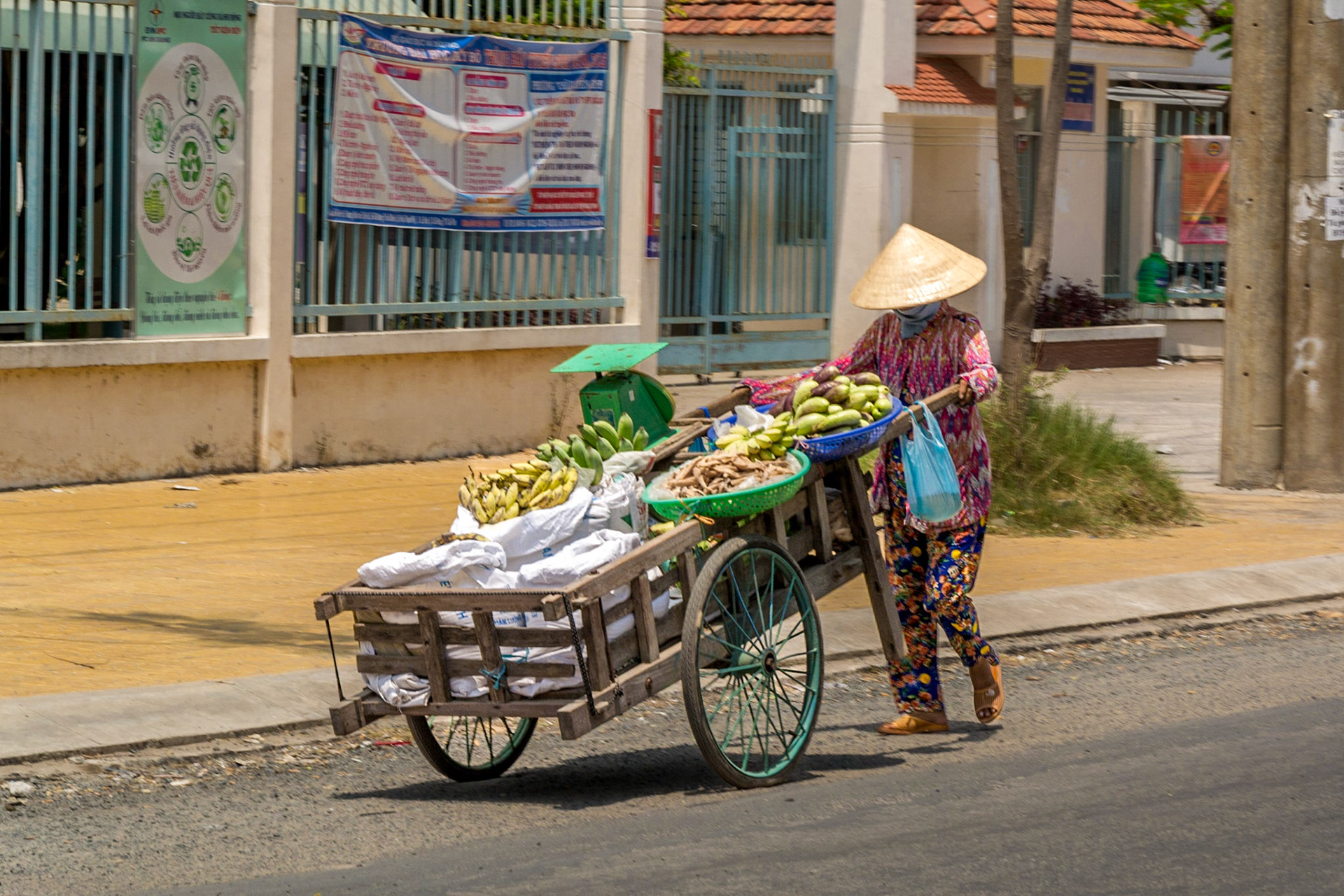
A market vendor pushes her cart laden with local produce through the streets.
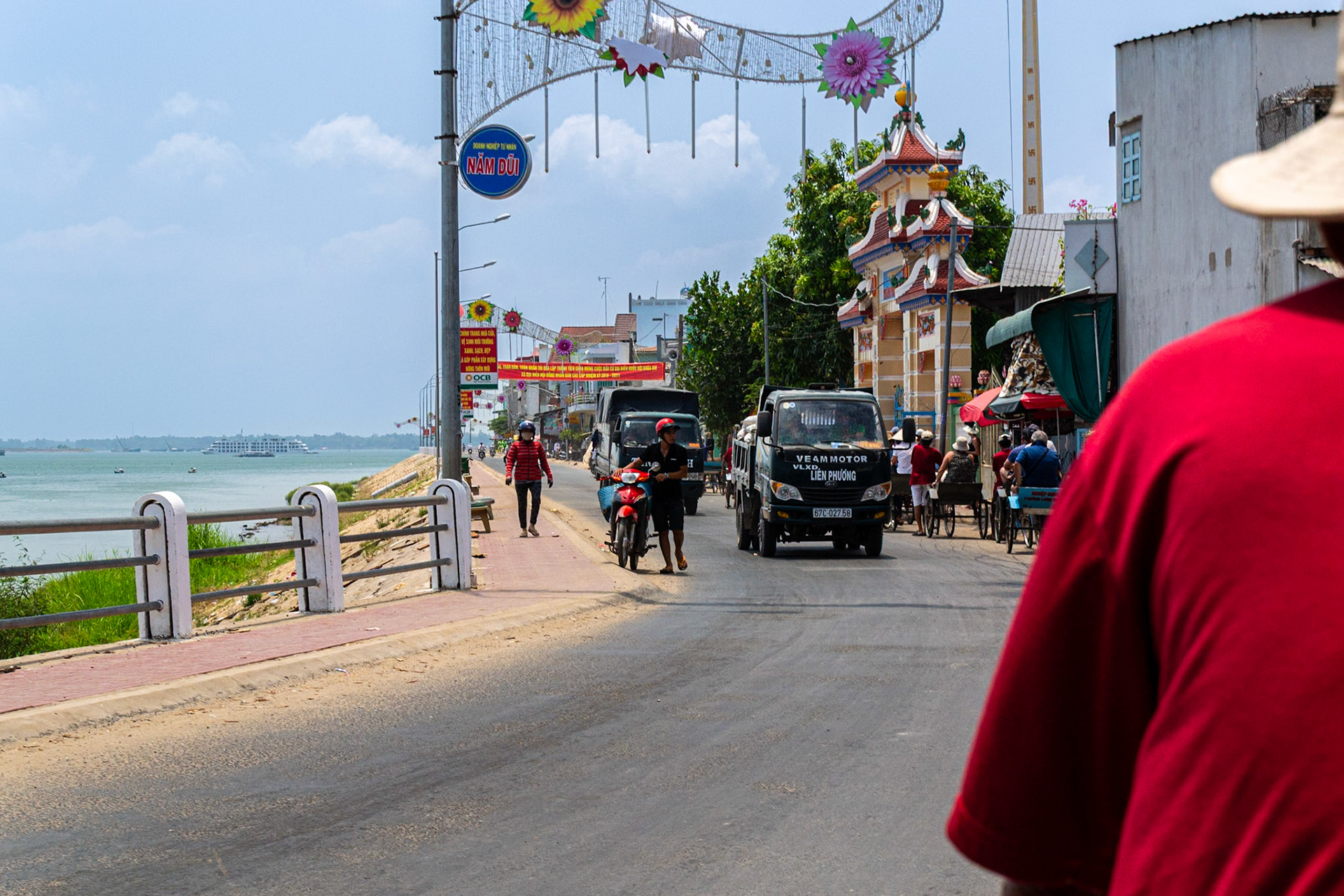
Tan Chau esplanade near Than That Tan Chau temple. Scenic spirit in the background.

Thanh That Tan Chau temple. The temple’s architecture features a unique blend of styles incorporating elements of Buddhist pagodas, Christian cathedrals and traditional Vietnamese temples.

Entry is via via the secure donation box.
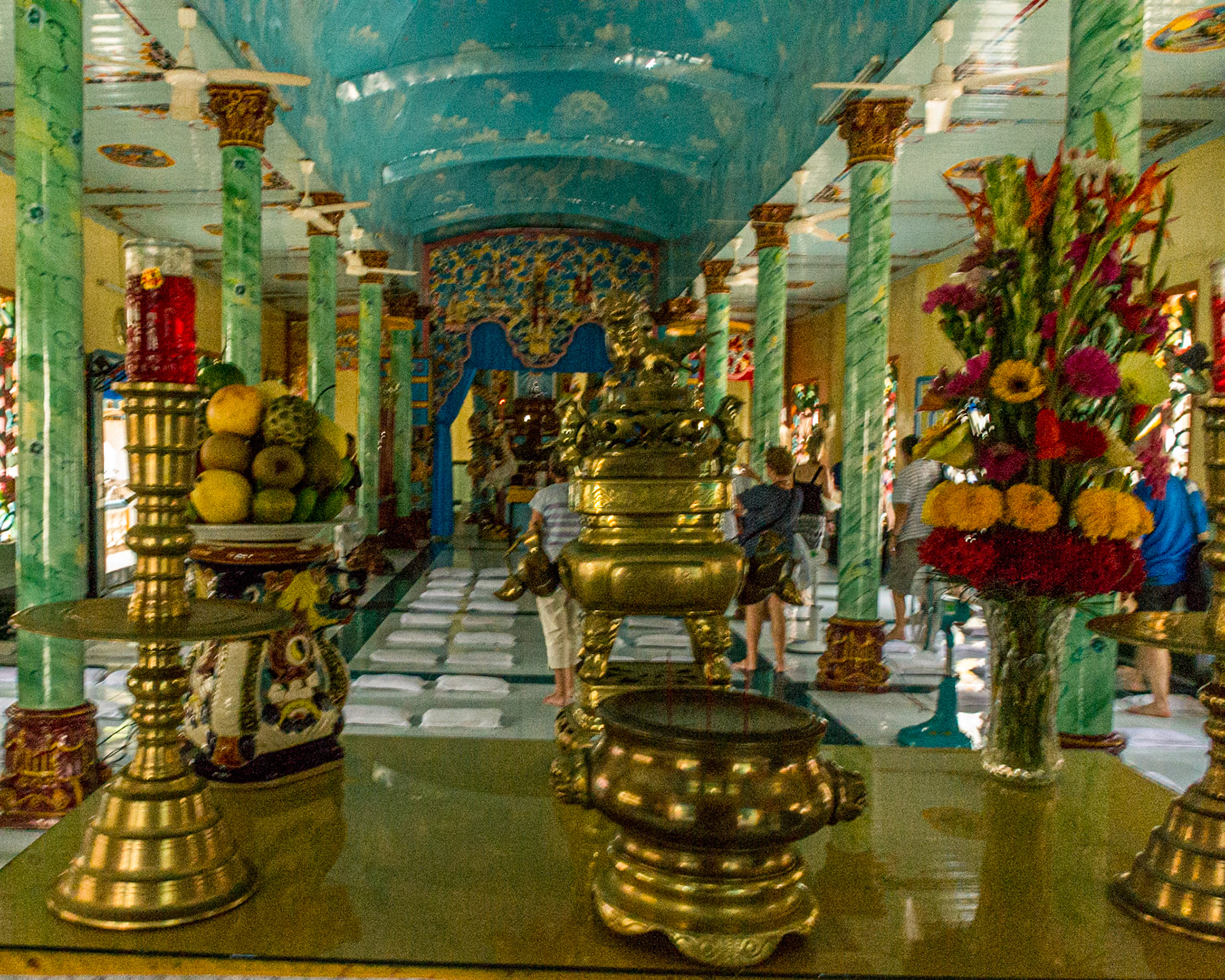
Bright colours of the itnerior of the Cao Daist church
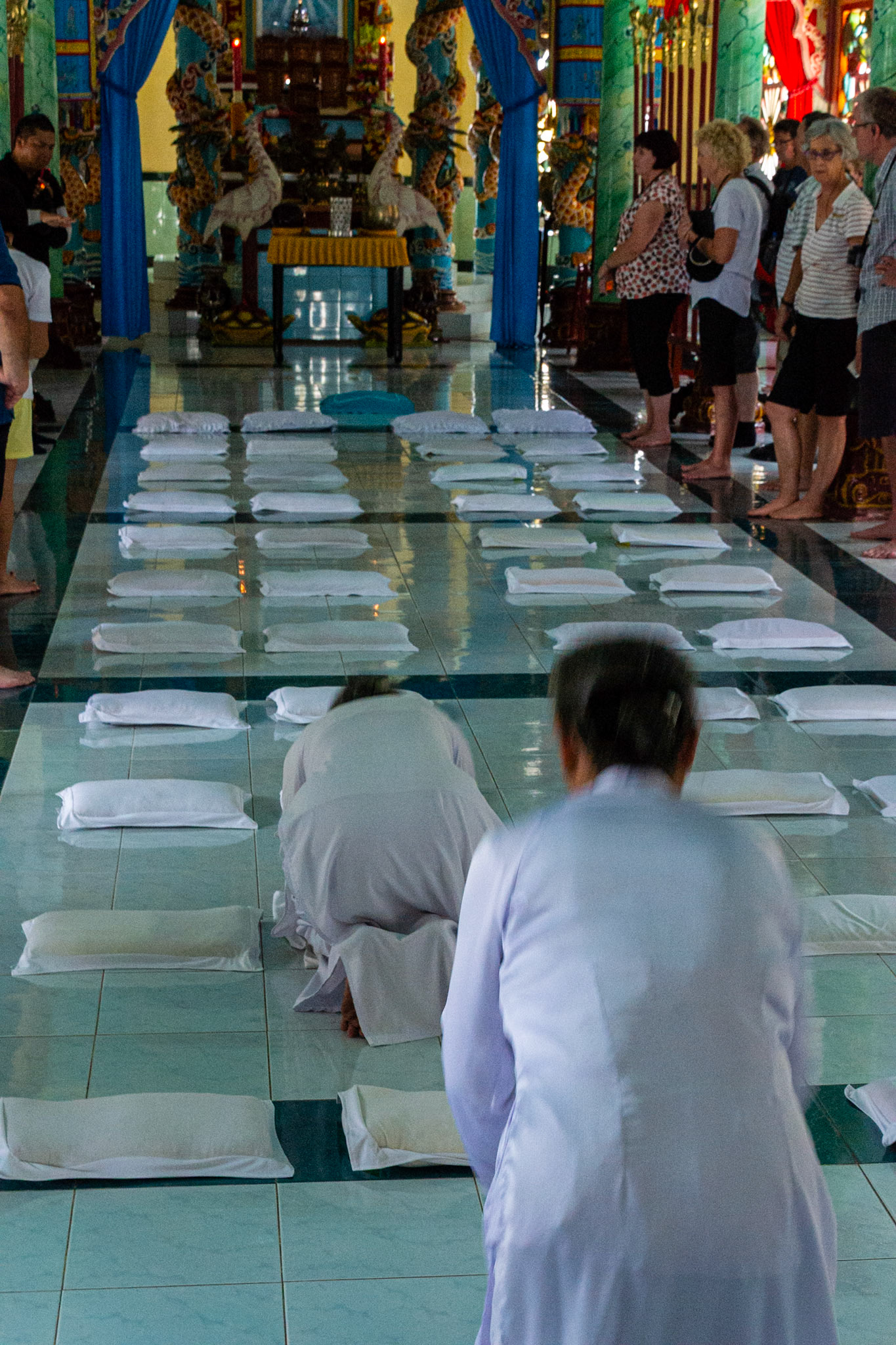
Cao Daist worshipers dressed in white robes. The name “Cao Dai” translates to “High Tower” or “High Place,” symbolizing the divine realm or supreme deity in the religion.
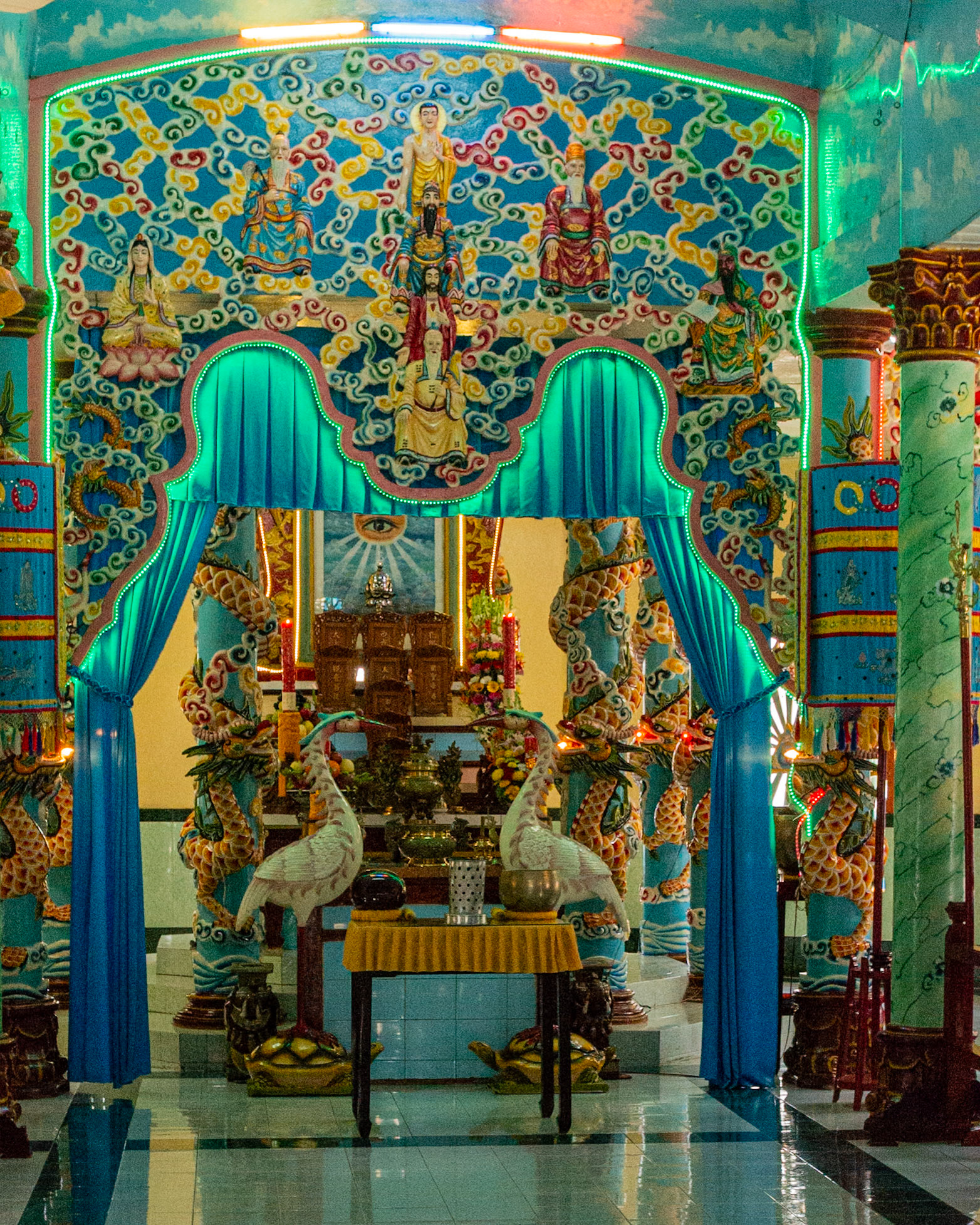
IInside the Cao Dai temple various animals are depicted in the sculptures, designs, and paintings.

A fish farming "tank" nearing completion fefore being sunk into the waters of the Mekong River
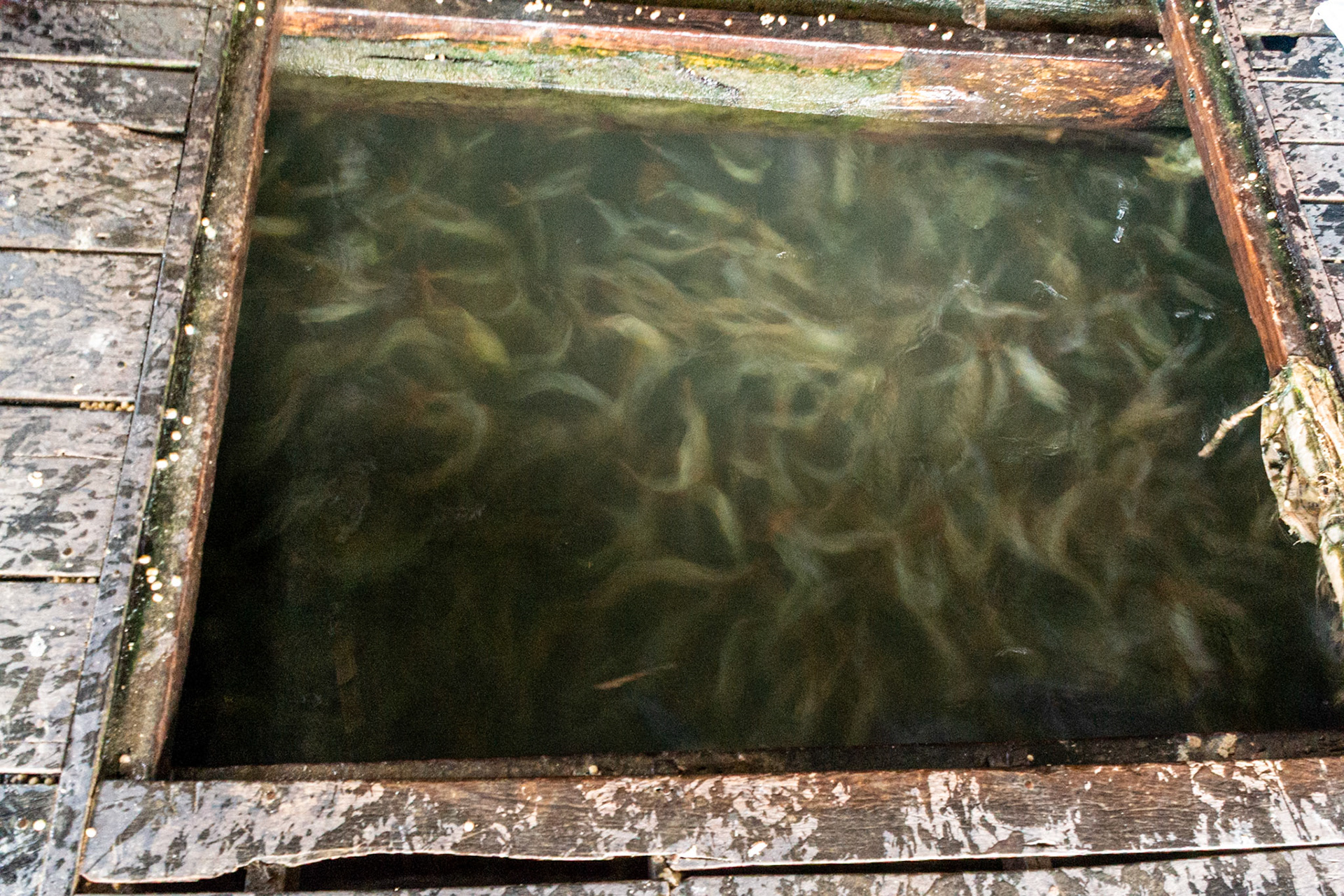
Tanks often contain up to 100,000 fish.
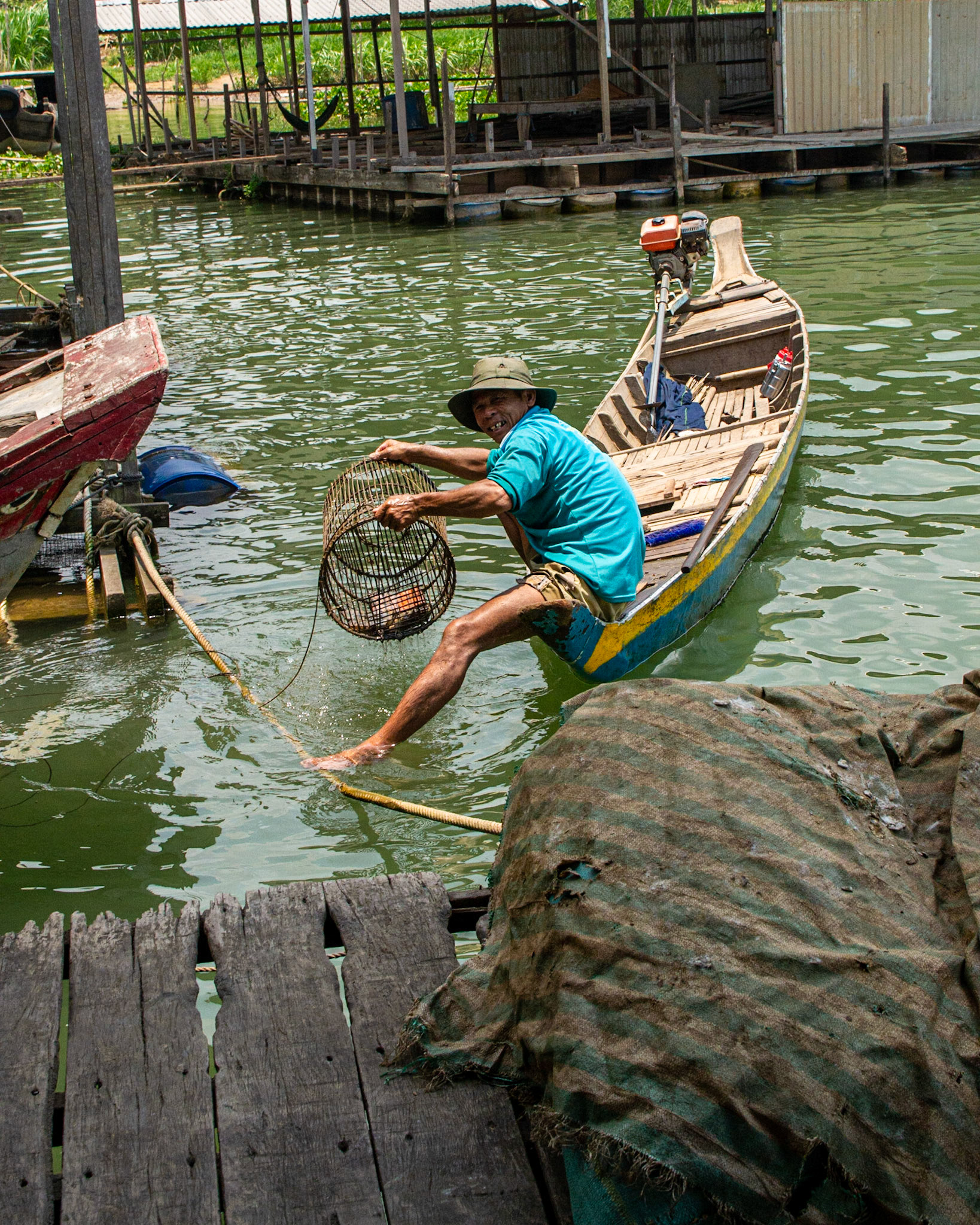
A local fisherman hoping to trap wayward fish escaping from the adjacent the pens .
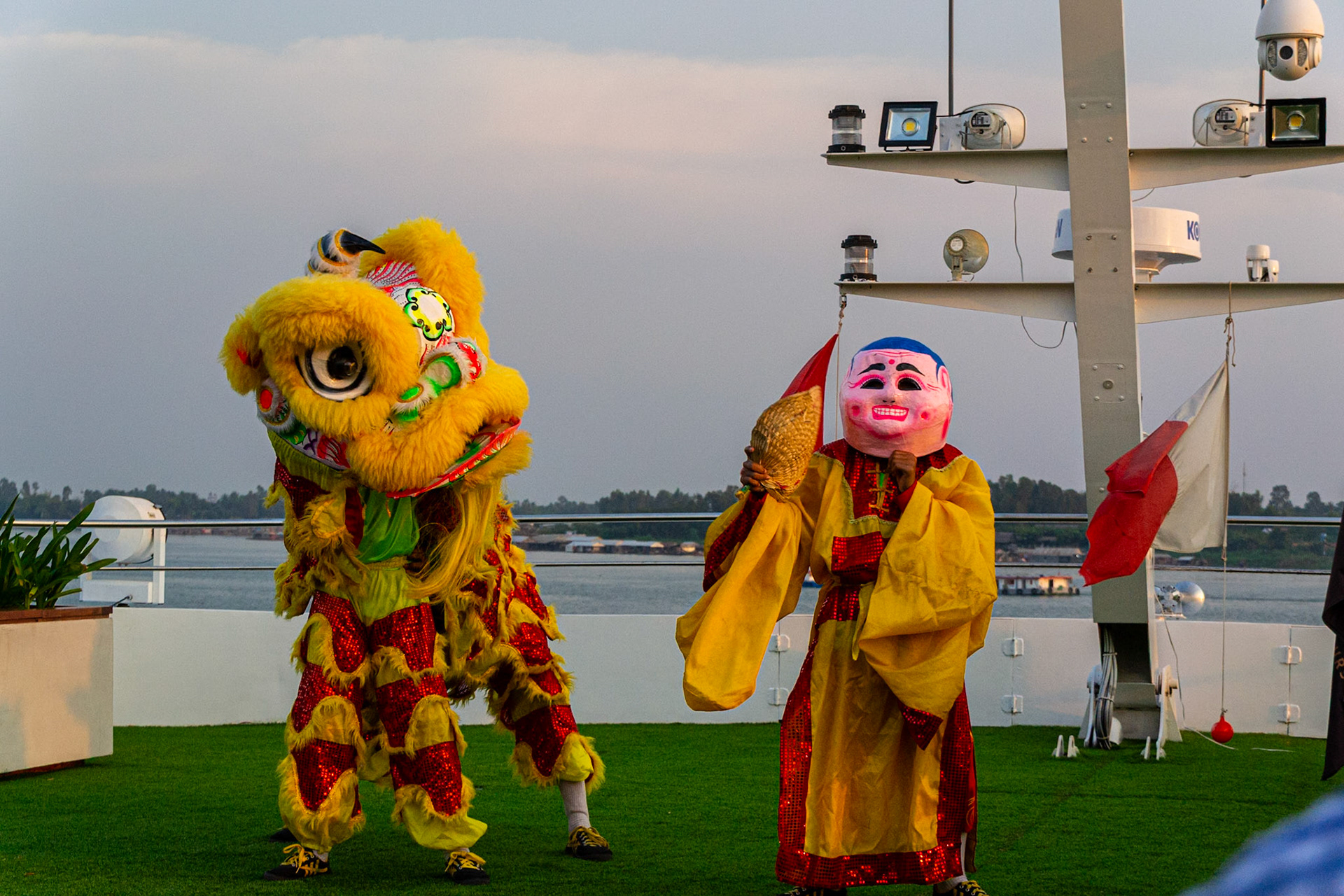
A local dance troup perform a Lion dance on board the Scenic Spirit as a final farewell to Vietnam..
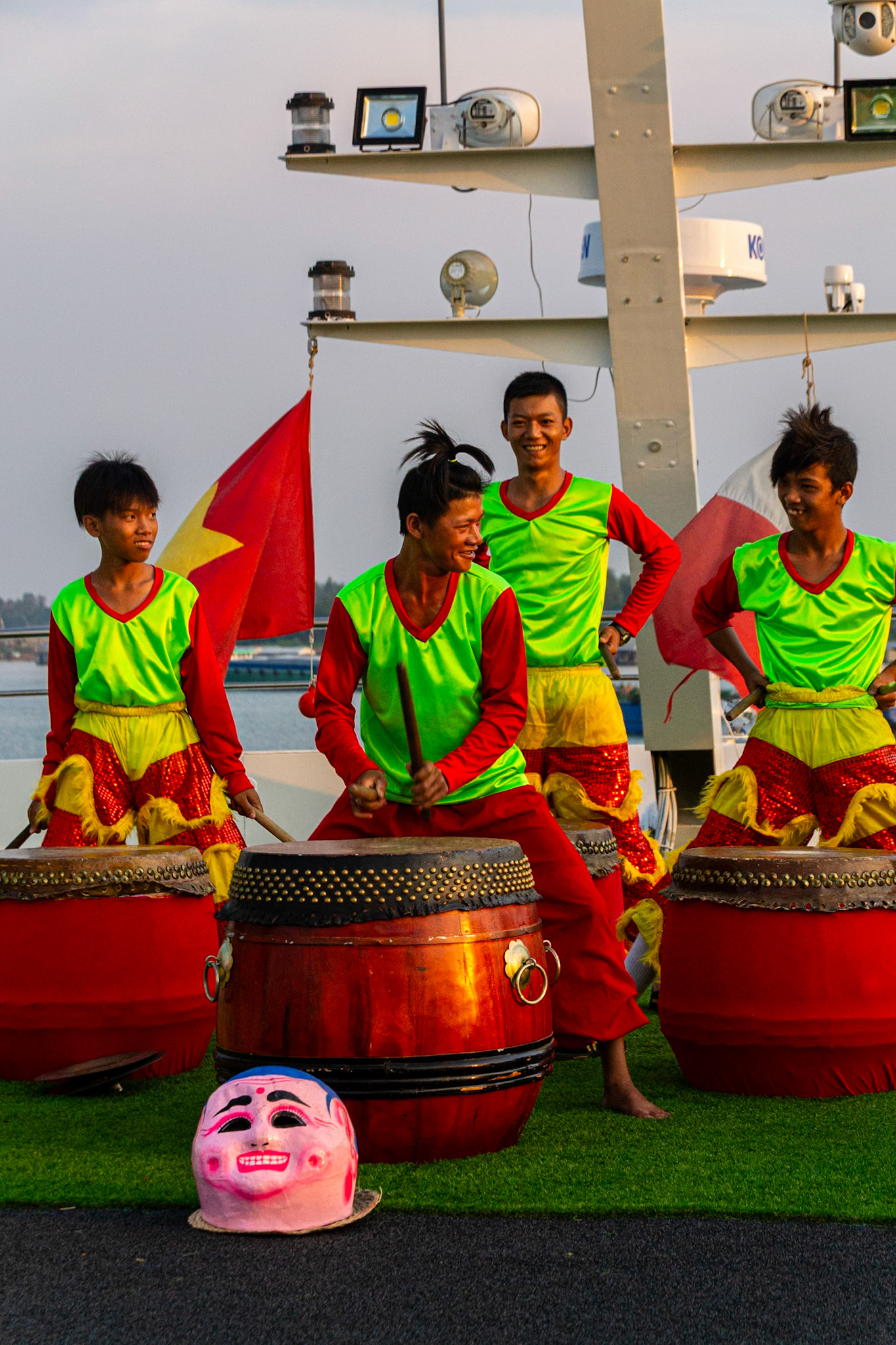
The percussion section of the performance (drums, gong, and cymbals)


